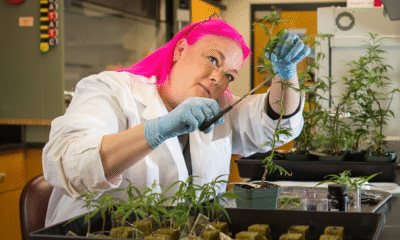Mississippi Cannabis News
Consumable Hemp Products Illegal Without FDA Approval, Mississippi AG Says
Published
5 hours agoon
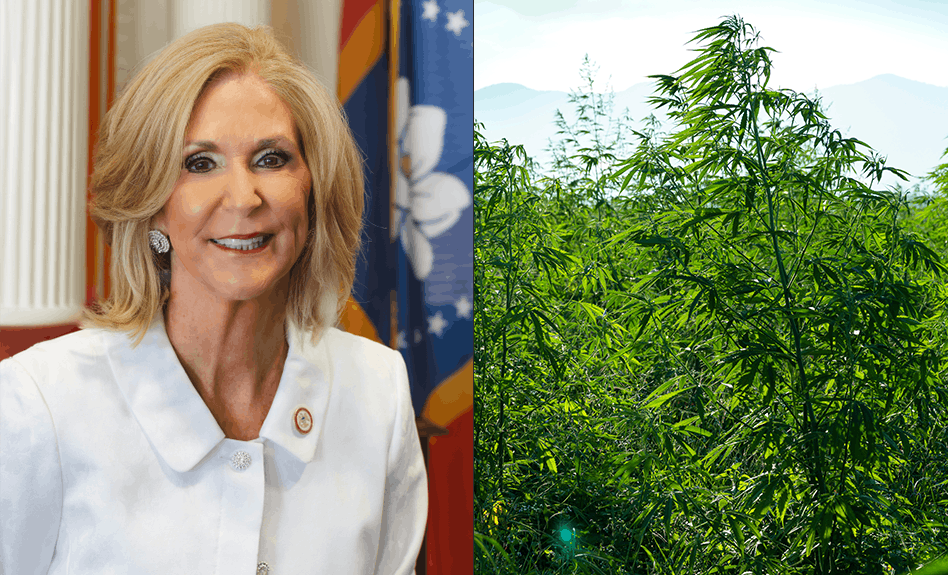
Despite Mississippi lawmakers’ failed attempt to ban intoxicating hemp products this legislative session, the state’s top legal adviser to government officials said those products are already prohibited in the Magnolia State.
State Attorney General Lynn Fitch issued an opinion on June 11 that Mississippi’s Uniform Controlled Substances Law forbids the sale of consumable products containing hemp derivatives that are not approved by the U.S. Food and Drug Administration (FDA).
“Marijuana and THC are included on Mississippi’s Schedule I controlled substances list,” she wrote.
Lynn said the lone exception is for products sold through licensed medical cannabis dispensaries that are regulated under the state’s Medical Cannabis Act that Republican Gov. Tate Reeves signed into law on Feb. 3, 2022—456 days after voters approved a medical cannabis initiative that the state’s Supreme Court overturned. Dispensary sales launched in January 2023.
Fitch’s opinion was in response to Rep. Lee Yancey, R-Rankin, who sought clarity on the matter after his legislation to ban intoxicating hemp products, House Bill 1502, died on the calendar when the Mississippi Legislature adjourned on April 3.
While Fitch responded, she also said that her office cannot opine on questions of federal law.
“Because the cultivation of hemp in Mississippi is legalized, licensed, and controlled by federal law, a complete response to your request is outside the scope of an official opinion,” the attorney general wrote.
Under the 2018 Farm Bill, hemp was federally legalized and defined as a plant that contains no more than 0.3% delta-9 THC on a dry-weight basis during a pre-harvest field test; however, the federal law does not include provisions to regulate finished goods, such as delta-8 THC gummies, THCA vapes or other products containing cannabinoids derived or synthesized from compliant hemp plants.
These intoxicating hemp products are often sold in smoke and vape shops as well as convenience and grocery stores in states such as Mississippi, where regulations evade legislation.
In Mississippi, hemp is legally grown through federal licensure under the U.S. Department of Agriculture’s Domestic Hemp Production Program.
Although state lawmakers passed the Mississippi Hemp Cultivation Act in 2020 to legalize the state’s hemp cultivation program, the Legislature never appropriated necessary funding to implement the program under the law—meaning the only legal option to grow hemp is through the federal program—according to the Mississippi Department of Agriculture and Commerce.
As a result, hemp in Mississippi is defined by federal law: the 2018 Farm Bill.
Although Fitch wrote that the state’s Uniform Controlled Substances Law may prohibit the sale or possession of consumable hemp products that aren’t approved by the FDA, she offered a conflicting statement in her response.
“Mississippi law does not specifically address the possession or sale of products derived from the hemp plant designed for human ingestion and/or consumption,” the Mississippi attorney general wrote. “However, as implied by your questions, the Mississippi Medical Cannabis Act … allows for the sale and possession of medical cannabis products, including edible cannabis products.”
In the absence of legal clarity, Yancey, a member of the House Drug Policy Committee, sponsored the now-dead 2025 legislation that had aimed to ban intoxicating hemp products in Mississippi, with an exception for certain low-THC beverages to be sold to those 21 years and older. The legislation also intended to authorize the Mississippi State Department of Health to regulate CBD products.
While some hemp-derived product manufacturers have called on the FDA to regulate the production, marketing and sale of CBD, the federal agency has often kicked the can to Congress, requesting that federal lawmakers provide funding or take the lead themselves.
While Yancey’s 2025 legislation passed the Mississippi House in an 82-27 vote, the Senate passed an amended version of the bill in a 35-16 vote; however, the bill stalled in a conference committee and was left on the table amid public pushback, in part over the allowance for hemp-derived THC beverages.
Yancey, who spearheaded the state’s medical cannabis legalization bill three years ago, said the basis of his 2025 legislation was to protect children from accessing intoxicating hemp products, SuperTalk Mississippi Media reported.
“These

(10 Pack) Top Rolling Papers – 70mm Single Wide Cigarette Papers – Package of 10
$16.56
Buy Now

(10) Bob Marley King Rolling Paper 110mm Cigarette Smoking Paper
$12.99 Original price was: $12.99.$9.90Current price is: $9.90.
Buy Now

(100 Rolls) 2 1/4 x 150 ft White Adding Machine Tape Paper Rolls Premium One Ply Register/Adding Machine/Calculator Paper Rolls Printing Calculator 10 Key
$59.99
Buy Now

(2 Count) Grove Bag Terploc 1/2 Lb (8 Ounce) Window Pouch – Curing Cultivation and Storage Bags 12″ x 15″
$15.44
Buy Now

(25 Pack BUSHMAKER Low Stress Plant Training Clip
$19.99
Buy Now

(50 Rolls) 3″ x 165′ Kitchen Register Rolls,1 Ply Bond Printer Receipt Paper POS Cash Register Paper (Non –Thermal Kitchen Printer Paper) for TMU200 SRP275 from Pony Packaging
$62.99 Original price was: $62.99.$43.49Current price is: $43.49.
Buy Now

(55 GSM Solid Tube Core) DropShip 3 1 8 x 230 thermal paper (50 Rolls – 1 Case) bpa free – thermal printer paper ct-s801 – BuyRegisterRolls
$59.99 Original price was: $59.99.$56.99Current price is: $56.99.
Buy Now

(6 Rolls) 2 1/4 x 150 ft, White, adding machine tape Paper Rolls, Premium One Ply Cash Register/Adding Machine/Calculator Roll Printing Calculator 10 key adding machine tape
$84.99 Original price was: $84.99.$16.99Current price is: $16.99.
Buy Now
![[Pack of 100 Rolls] Adding Machine Tape/Calculator Paper Rolls 2-1/4 x 150 Feet 1 Ply White Bond Paper for El-1750 1801 P23 Printing Calculator 10 Key](https://mscannabiz.com/wp-content/uploads/2025/05/1747038639_51mDWymaDuL._AC_-300x300.jpg)
[Pack of 100 Rolls] Adding Machine Tape/Calculator Paper Rolls 2-1/4 x 150 Feet 1 Ply White Bond Paper for El-1750 1801 P23 Printing Calculator 10 Key
$84.99 Original price was: $84.99.$59.99Current price is: $59.99.
Buy Now
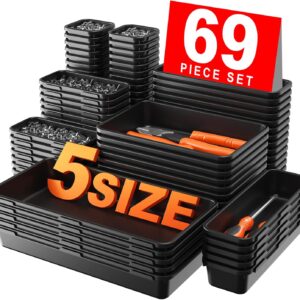
【More Larger Size】A-LUGEI【69Pcs】【5 Size】 Tool Box Organizer Tray Divider Set, 【Black】 Desk Drawer Organizer, Garage Organization and Storage Toolbox for Rolling Tool Chest Cart Cabinet WorkBench Parts
$35.99 Original price was: $35.99.$27.99Current price is: $27.99.
Buy Now

#RP221 24pk Job Orange Slow-Burning 1 1/4 Rolling gcytmOh Papers 2wdZJ Display hatyrjknmbcdf kow smoking smoke tobacco fire pipe cigar 24pk Job Orange HOxHXMFpG Slow-Burning 1 1/4 Rolling Papers
$28.99 Original price was: $28.99.$20.36Current price is: $20.36.
Buy Now

1 1/2 Rolling Papers 6 BOOKLETS
$16.99 Original price was: $16.99.$15.53Current price is: $15.53.
Buy Now

1 1/4 Size Rolling Paper, 1.25 6 Colors Paper with 1 Filter, 78x44mm 7 Pack Premium Cute Rolling Paper, Ultra-thin & Slow Burn Tobacco Cigarette Tools
$6.30
Buy Now

1 1/4 Size Rolling Paper, 10 Pack Mixed Flavor Rolling Paper, Different Fruit Flavor Cigarette Paper, 500pcs Fruit Attraction Fragrance Paper
$9.99
Buy Now

1 box – OCB Single Premium No1 rolling paper regular size 70mm – 2500 papers
$19.75 Original price was: $19.75.$16.04Current price is: $16.04.
Buy Now

1 box – OCB Ultimate size 1 1/4 (77mm) paper – 1250 papers
$24.02
Buy Now

1 Box – OCB Virgin Slim Unbleached Rolling Paper King Size + Filter Tips
$31.52 Original price was: $31.52.$30.00Current price is: $30.00.
Buy Now
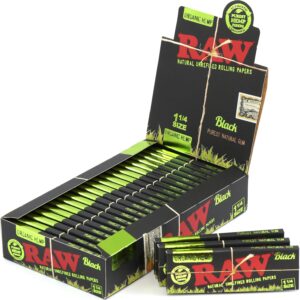
1 box – RAW Black Organic size 1 1/4 (78mm) rolling paper – 1200 papers
$51.99 Original price was: $51.99.$18.34Current price is: $18.34.
Buy Now
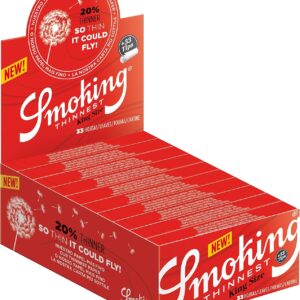
1 box – Smoking Thinnest King size rolling paper 24 booklets + tips
$36.31
Buy Now
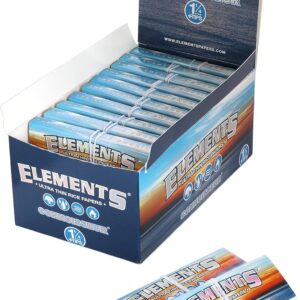
1 Box Elements Connoisseur Size 1 1/4 Ultra Thin Rolling Papers+Tips
$31.03
Buy Now
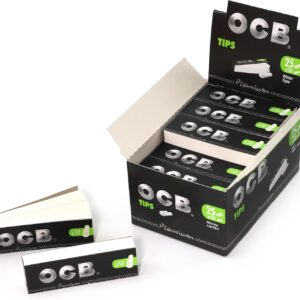
1 box OCB Perforated FILTER TIPS 25 booklets x 50 Paper Filters
$18.00 Original price was: $18.00.$14.31Current price is: $14.31.
Buy Now

1 Ounce Bags,20 Pack Lock & Seal Storage & Curing Bags Heat Sealable upright bags 5.9″ x 9.8″ x 3.15″ Inch (28g)
$16.97
Buy Now
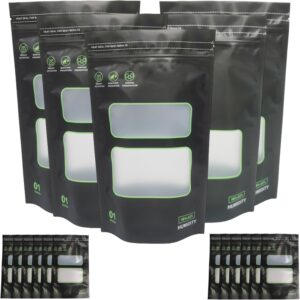
1 Ounce Bags,50 Pack Lock & Seal Storage & Curing Bags Heat Sealable upright terp bags 5.9″ x 9.8″ x 3.15″ Inch (28g)
$26.97
Buy Now
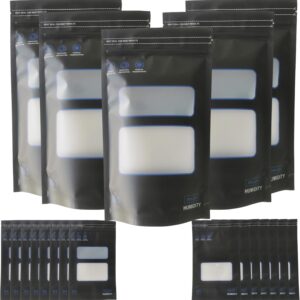
1 Ounce bags,Lock & Seal Storage & Curing terp Bags,Reusable Heat Sealable Bags for Food Storage (1 oz/28g) Sized at 6″ x 9.8″ x 3.15″ Inches (20)
$15.99 Original price was: $15.99.$15.95Current price is: $15.95.
Buy Now

1 OZ Storage Terp Bag 58%-62% RH 2-Way Humidity Control Bags for for Curing & Storage Resealable Humidity Bags Lock & Seal Bag, 20 PCS,6″ x 9.8″ x 3.15″
$17.88 Original price was: $17.88.$8.99Current price is: $8.99.
Buy Now
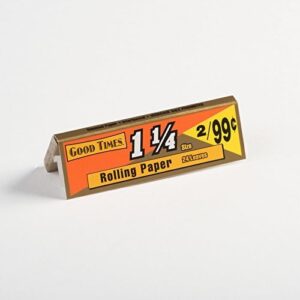
1 Pack Good Times 1 ¼ Size Rolling Paper + Beamer Smoke Sticker
$16.45 Original price was: $16.45.$2.99Current price is: $2.99.
Buy Now
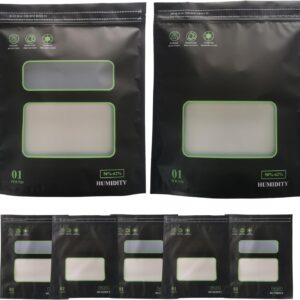
1 Pound Storage Terp Bags, 5 Pack Lock & Seal Heat Sealable Humidity Curing Bags, 16 Ounce, Black
$25.48
Buy Now
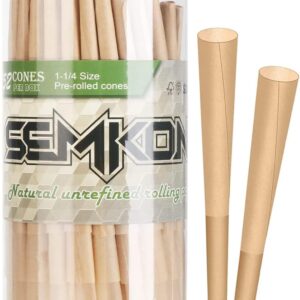
1-1/4 Rolling Papers Pre Rolled Cones | 152 Pack | Natural Pre Rolled Rolling Paper with Tips | Easy to Use and Convenient
$15.99
Buy Now
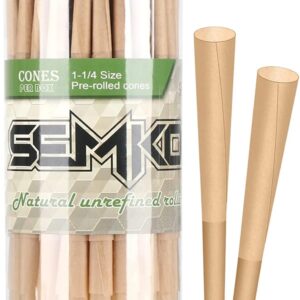
1-1/4 Rolling Papers Pre Rolled Cones | 72 Pack | Natural Pre Rolled Rolling Paper with Tips | Easy to Use and Convenient
$7.59
Buy Now
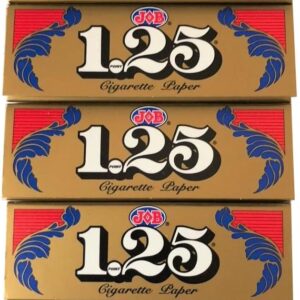
1.25 JOB Rolling Papers, 5 Pack Bundle, 120 Paper Leaves Total
$54.00 Original price was: $54.00.$12.06Current price is: $12.06.
Buy Now
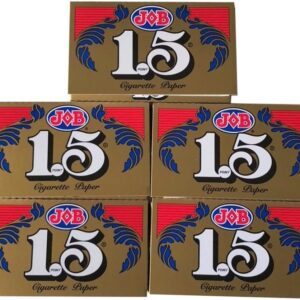
1.5 JOB Rolling Papers, 5 Pack Bundle, 120 Paper Leaves Total
$12.67
Buy Now
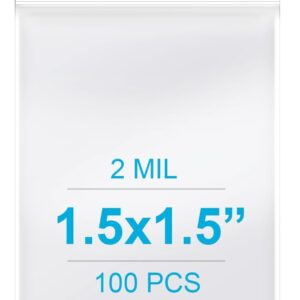
1.5”x 1.5”, (Pack of 100) 2 mil Thick Clear Plastic Reclosable Zip Poly Bags with Resealable Lock Seal Zipper for Photo, Jewelry, Bakery, Treats, Travel, Storage, Packaging & Shipping…
$3.99
Buy Now

1/2 LB Curing & Storage Bags Double-Tracked Zip Closure Heat Sealable, Reusable Humidity Control Bags (13.8 x 10.4 in, 5 Pack)
$14.99 Original price was: $14.99.$12.88Current price is: $12.88.
Buy Now
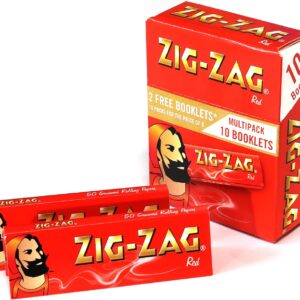
10 booklets – Zig Zag Red Regular Multipack Rolling Papers – total 500 papers
$8.99
Buy Now
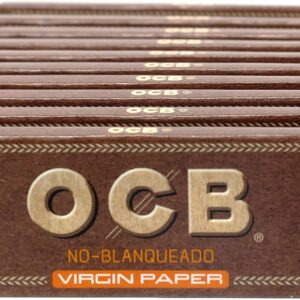
10 booklets OCB VIRGIN Regular size UNBLEACHED Rolling paper – total 500 papers
$5.97
Buy Now
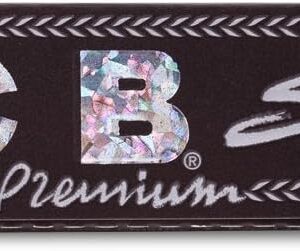
10 booklets rolling paper OCB PREMIUM SLIM King Size – 320 papers
$16.70
Buy Now

10 Grams/Pack – Green Weed Leaf Glitter – Festival Rave Beauty Makeup Face Body Nail Art Decoration- Pot Weed & Marijuana Leaves
$7.90
Buy Now

10 Pcs 1/2 LB Lock & Seal Storage & Curing Bags 8oz (10)
$19.99 Original price was: $19.99.$16.99Current price is: $16.99.
Buy Now
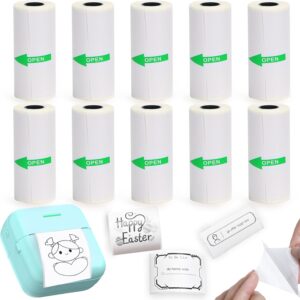
10 Rolls Mini Printer Sticker Paper Refill for Most Mini Thermal Printers, 57 x 25mm for T02/M02 (need remove paper holder)Thermal Sticker Paper Rolls for Study Notes Photos Journals Memo Lists
$12.99 Original price was: $12.99.$11.95Current price is: $11.95.
Buy Now
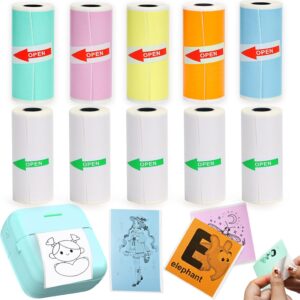
10 Rolls Thermal Sticker Paper for Most Mini Thermal Printers, 57mm x 25mm 5 Rolls White 5 Rolls Colorful Mini Printer Sticker Paper Rolls for Study Notes Photos Journals Memo Lists
$13.99 Original price was: $13.99.$12.87Current price is: $12.87.
Buy Now
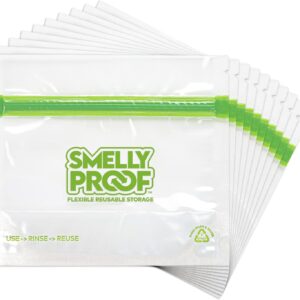
10 x Expandable Stand-Up & Fill REUSABLE Storage Bags for Food Designed & Mfg in US by Smelly Proof, NO PEVA, BPA FREE, Reusable Snack Bags, Dishwasher-Safe, Clear 3 mils STAND & FILL 6″ x 4″ – 10pk
$11.99
Buy Now
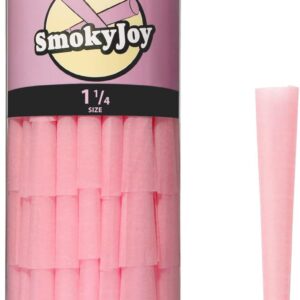
100 Pack 1 1/4 Size Cones – Pre Rolling Rolled Preroll Pre Rolls Papers Cone – Cones with Filter Tips and Packing Tubes Included, Pink
$13.99
Buy Now
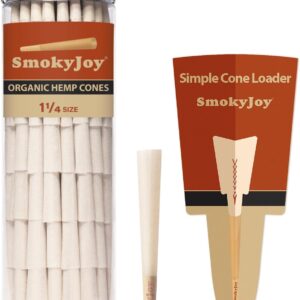
100 Pack 1 1/4 Size Cones Rolling Papers Pre Rolled Paper Cones – Preroll Pre Rolls Paper with Filter Tips and Packing Tubes Included
$13.99 Original price was: $13.99.$12.59Current price is: $12.59.
Buy Now

100 Pack 4 x 4.9 Inches Storage Bags, 3.5g Resealable Leakproof Smell-Proof Bags with Clear Window for Home, Office, and Travel, Great for Snacks, Candy, Jewelry, and Seeds
$15.99
Buy Now

100 Pack 7.5″x11.5″ Mylar Clear/Black Nylon Resealable Stand Up Bags Heat Seal Zipper Lock Reusable Storage Pouches for Zip Food Storage Lock Packaging with Tear Notches
$39.99 Original price was: $39.99.$31.99Current price is: $31.99.
Buy Now
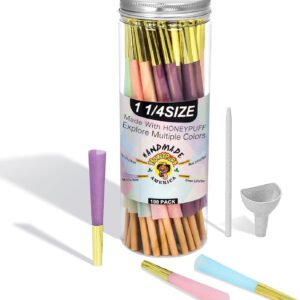
100 PACK Colorful Pre Rolled Cones With Golden Tips, 1 ¼ Size Rainbow Preroll Cones Rolling Papers(Include Loader and Packing Sticks)
$10.99
Buy Now
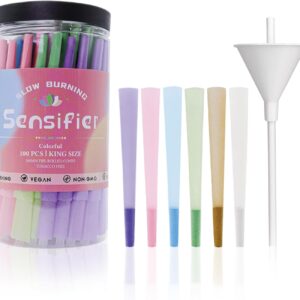
100 PACK Colorful Pre Rolled Cones| King Size Rolling Paper Cone with Loader and Packing Sticks
$9.99
Buy Now
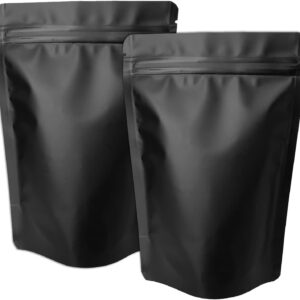
100 Pack Matte Black Stand Up Bags – 5 Mil 6.3×8.6 Inches Resealable Smell Proof Food Storage Zipper Pouch Bag, Large Heat Sealable Plastic Foil Packaging Pouches, Sample Pouch
$24.87
Buy Now
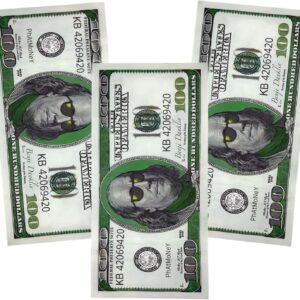
100 Pack Money Design Resealable Paper Food 3.5 Storage Snack Bags 3×6 in
$24.99
Buy Now
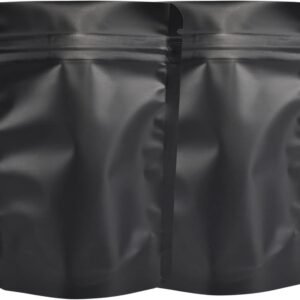
100 Pack Mylar Bag 3.5 Gram,4.7 Mil Thickness Smell Proof Bag,Stand-up Packaging Pouch,Resealable Ziplock Foil Food Storage Baggies Safe Material,4×5 Inches,Matte Black
$18.98
Buy Now

100 Pack Mylar Bag,7 Gram Stand-up Packaging Pouch, 4.72 Mil Thickness Resealable Zip Lock Foil Food Storage Baggies Safe Material,4X6 Inches,Matte Black
$20.98
Buy Now
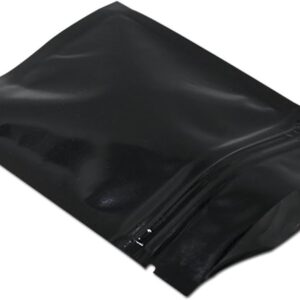
100 Pack Mylar Bags for Zip Reusable Small Aluminum Foil Lock Package Bag Candy DIY Chocolate Coffee Nut Food Long Term Storage Zipper Lock Packaging Bag with Tear Notch (Black, 2.3×3.1 inch)
$7.99
Buy Now

100 Pack Mylar Smell Proof Bags, Resealable Black Stand Up Pouch Bags Foil Sealable Bags for Packaging, 4.72×7.87 Inch
$15.98
Buy Now

100 Pack Resealable Holographic Bags for Small Business, Iridescent Mylar Bags with Clear Front Smell Proof Foil Packing Pouches for Multipurpose Storage (6.3 X 9.5 inches)
$15.99
Buy Now

100 Pack Resealable Packaging Bags for Small Business Double-Sided Color Smell Proof Bags for Food Storage Flat Bags (Black, 2.7″ x 3.8″)
$7.99
Buy Now
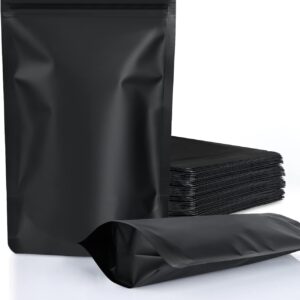
100 Pack Resealable Stand Up Bags,Smell Proof Pouch Sealable Foil Pouch Bags for Packaging (Black, 3.5″ x 5.1″)
$9.99
Buy Now
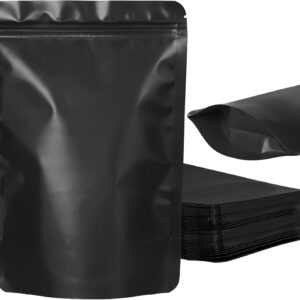
100 Pack Resealable Stand Up Bags,Smell Proof Pouch Sealable Foil Pouch Bags for Packaging(Black,3.5″ x 5.1″)
$9.99
Buy Now
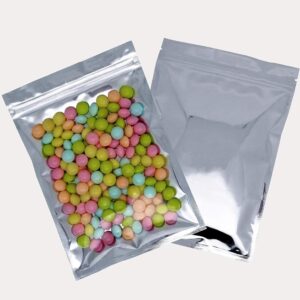
100 Pack Reusable Aluminum Foil Mylar Bags – 5.5 x 7.8 Inch, Resealable Zip Lock, Clear, Waterproof, Long Term Food Storage
$13.15
Buy Now
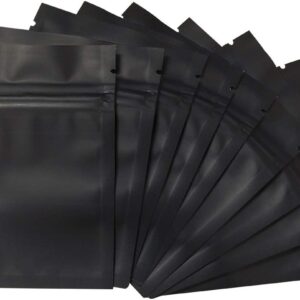
100 Pack Smell Proof Bags 3 x 4 Inch Resealable Mylar Bags Foil Pouch Bag Flat Bag Matte Black
$9.99 Original price was: $9.99.$7.89Current price is: $7.89.
Buy Now

100 Pack Smell Proof Bags, Resealable Bags with Matte Window, Foil Pouch Stand Up Sealable Bags for Packaging(Gold,4″ x 6″)
$13.99
Buy Now

100 Pack Smell Proof Bags, Resealable Mylar Bags with Matte Window, Foil Pouch Stand-up Bags for Food Self Sealing Storage, Scratch Resistant Hand Storage Bags.(Black, 3.9×5.9 Inch)
$9.98
Buy Now

100 Pack Stand Up Pouch Bags, Zip Lock Resealable Mylar Bags for Food Storage, Heat Sealable Foil Packaging Baggies 4 x 5 Inches Cosmic Black
$17.99
Buy Now

100 Pcs 5×7 inch Smell Proof Bags Resealable Mylar Bags Zip lock Foil Pouch Bags Clear Window Matte Black Food Safe Storage Packing
$11.99
Buy Now

100 Pcs Holographic Resealable Packaging Bags for Small Business Supplies, Cute Small Color Smell Proof Foil Pouch Plastic Baggies for Lip Gloss Soap Party Food Storage (4×6 inch)
$9.99 Original price was: $9.99.$9.29Current price is: $9.29.
Buy Now
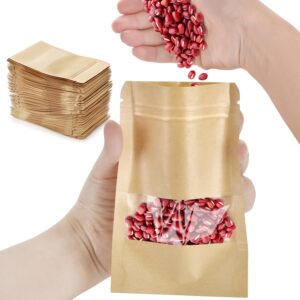
100 Pcs Small Resealable Seed Envelopes, Mini Zip Lock Kraft Bags with Window, 3.5″x5.5″ Coffee Sample Bags Resealable Ziplock Bags, Small Business for Samples Bags, Food Storage Bags
$9.99 Original price was: $9.99.$8.99Current price is: $8.99.
Buy Now

100 PCS Smell Proof Holographic Packaging Bags, Resealable Foil Freshies for Food Storage & Small Business – Sample Pouch for Eyelash, Jewelry, Valentines Day Gifts
$6.99
Buy Now
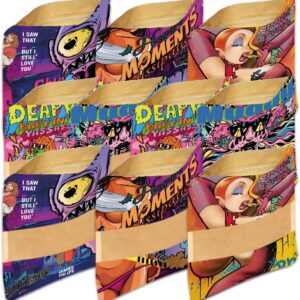
100 Pcs With Design Patterns Kraft paper Packaging Bags3.94×4.92In,Clear Window Resealable Bags Foil Pouch Bags for Food Storage and Tea,Coffee Bean,Snack Candy for Small Business (JKH8004)
$22.85
Buy Now
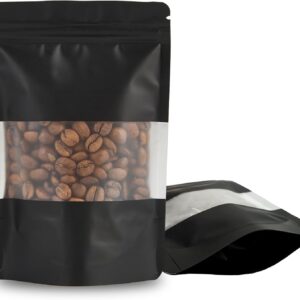
100 Pieces Resealable Mylar Bags, Stand Up Smell Proof Bags with Matte Window, Zipper Lock Foil Pouch Packaging (Black, 3.5 X 5.1 Inch)
$9.99
Buy Now

100-Pack Mylar Bags Resealable Sealable Holographic Zip Bag Jewelry Candy Sample Product Small Bussiness Packaging Supplies 3×3 Inch,Black
$5.99 Original price was: $5.99.$5.39Current price is: $5.39.
Buy Now
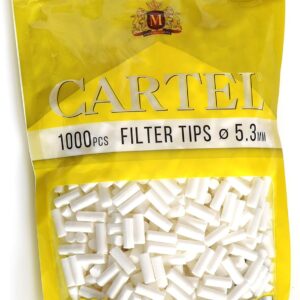
1000 filters – Cartel Extra Slim 5.3mm Filter Tips + Extra Rolling Paper
$17.72
Buy Now
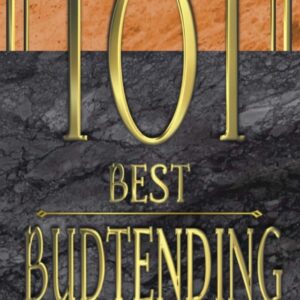
101 Best Budtending Practices: The Handbook That Will Guide The Cannabis Industry Into A New Age
$19.99
Buy Now

10PCS 1 Pound Storage Terp Bags 58%-62% RH 2-Way Humidity Control Bags for Curing & Storage Resealable Humidity Bags (16 Ounce, 1lb)
$58.99
Buy Now

10PCS 1/2 LB Storage Terp Bags 8oz 58%-62% 2-Way Humidity Control Packs, Reusable Heat Sealable Bags for Seal Storage & Curing & Lock
$13.98
Buy Now
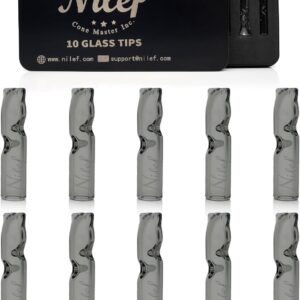
10PCS Reusable Glass Filter Tips for Pre Rolled Rolling Paper Cones, Slim Cigarettes, Glass Rolling Tip Mouthpieces (Grey)
$11.98
Buy Now

10pk 4-MIL Reusable Food Storage Bags, Reusable Sandwich Bags, Reusable Freezer Bags, BPA Free, No PEVA, Non-Silicone Bags for Food Storage, Reusable Snack Bags, 10 Black Smelly Proof Bags 6.5″ x 7.5″
$12.99
Buy Now
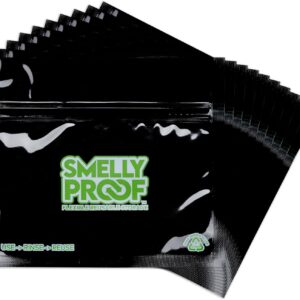
10pk 4-MIL Thick HEAVY DUTY Smelly Proof Reusable Bags Black, USA-Made, Reusable Food Storage Bags, Reusable Sandwich Bags, Reusable Freezer Bags, Non-Silicone Bags, 10 x Reusable Ziplock Bag, 6″ x 4″
$11.99
Buy Now

10pk LARGE Black Reusable Bags, Washable Ziplock Bags, US-Made, BPA & PEVA FREE, Non-Silicone Zip Lock Reusable Food Storage Bags, 4-MIL Reusable Freezer Bags, 10 x Smelly Proof Bags Quart 8.5″ x 10″
$24.95
Buy Now
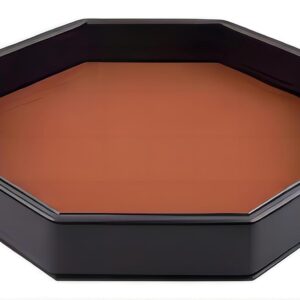
11.5 Inches Dice Rolling Tray, Leather Dice Tray, Felt Lined PU Leather Octagon Dice Tray (Brown)
$17.99 Original price was: $17.99.$15.99Current price is: $15.99.
Buy Now
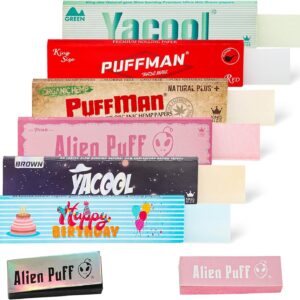
110mm Rolling Papers, 8 Pack Color Ultra thin Cigarette Paper, Kingsizeslim 6 Colors Cone Rolling Paper with Filter x2, Slow Burn & Natural Arabic Gum Smoking Accessories
$6.99
Buy Now

12 Pack of 2 Way Humidity Control Packs, Size 8, 62% RH by ONGROK, Each Pack for up to 1 oz
$9.99
Buy Now
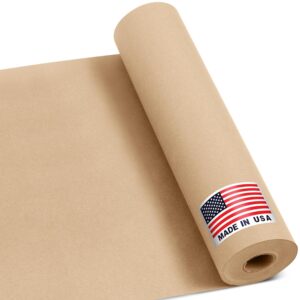
12″ x 1200″ (100 ft) Natural Kraft Paper Roll – USA Made Non-Toxic, Odorless, 100% Recyclable Brown Wrapping Paper for Shipping, Packaging, Crafting & Gift Wrapping
$11.95
Buy Now
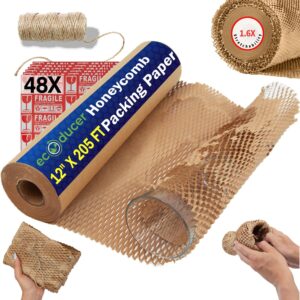
12”x200’ Honeycomb Packing Paper for Moving plus Fragile Stickers and Jute Twine. Eco Friendly Packing Materials Alternative to Bubble Plastic Packing Wrap. Kraft Paper Packaging Roll
$18.99
Buy Now

120 PCS Smell Proof Mylar Bags Resealable Odor Proof Bags Holographic Packaging Pouch Bag with Clear Window for Food Storage Jewelry Candy Electronics Storage, 4 Sizes
$12.59
Buy Now
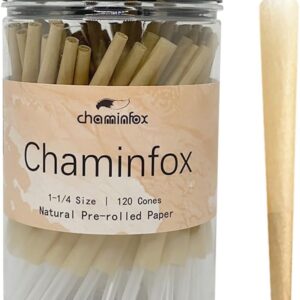
120-Pack Pre-Rolled Cones 1 1/4 Size – 84mm Organic Hemp Rolling Papers with Tips | Natural Brown Unbleached Paper | Slow Burning Preroll Tubes for Cigarette Rolling
$6.99
Buy Now
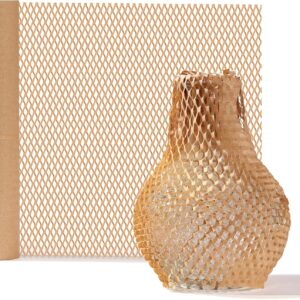
12Inch x 50FT Honeycomb Packing Paper Sheets for Moving Sustainable Alternative to Bubble Cushioning Wrap for Shipping Box Protective Roll
$6.99
Buy Now
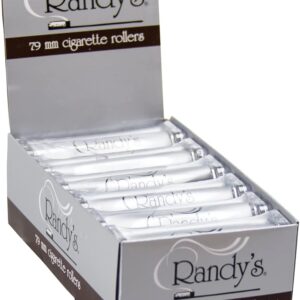
12pc Randy’s 79mm Handheld Roll-Your-Own Cigarette Pocket Hand Rollers Display
$49.95
Buy Now
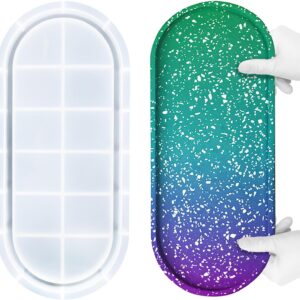
13 inch Large Resin Tray Silicone Oval Rolling Mold for DIY Handmade Decoration Crafting Gift, Big Jewelry Holder Container Plates Tray Mould【Huge Bigger Mold】
$9.99 Original price was: $9.99.$8.99Current price is: $8.99.
Buy Now
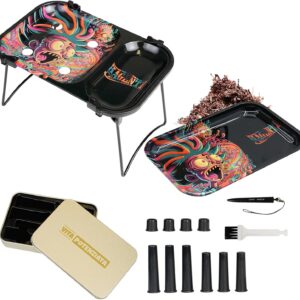
14-in-1 Upgraded Metal Rolling Tray Set – Dual 9.2×6.3 Expanded Trays with 4 Slots Cone Loader, Portable Pre Roll Machine Kit with Lid, Foldable Stand, Cone Roller, Cone Fillers & Funnel (Einstein)
$59.99 Original price was: $59.99.$18.99Current price is: $18.99.
Buy Now
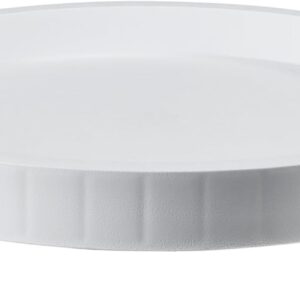
14.2 Inch Planter Caddies Rolling Saucer Caddy with Wheels, Heavy Duty Wheeled Stand for Potted Plant, Round Coaster Roller Base Tray with Casters, Flower Pot Dolly Holder for Indoor Outdoor
$22.99
Buy Now
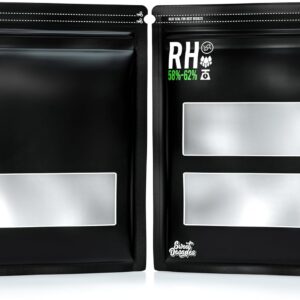
15 Pack – 1/2 Pound Terpene Curing Bags 58%-62% Humidity Control – Lock & Seal Storage Heat Sealable 14x12x5 Inch (8oz, 1/2 lb)
$24.99 Original price was: $24.99.$22.99Current price is: $22.99.
Buy Now
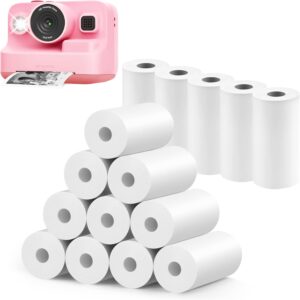
15 Rolls Instant Camera Refill Print Paper, HD Kidizoom Print Camera Paper Refill for Most Kids Instant Camera (57X25mm)
$13.99
Buy Now
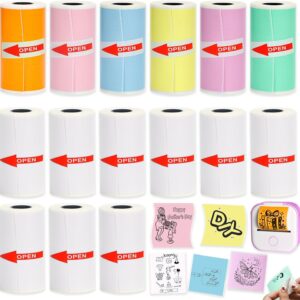
15 Rolls Thermal Sticker Paper 53x28mm for Phomemo T02/M02/M02S/PRO Mini Printers, 3.75m Mini Colorful Self-adhesive Mini Printer Paper for Memoking Mini Printer, Study Notes, Journals, Photos
$22.99 Original price was: $22.99.$18.99Current price is: $18.99.
Buy Now
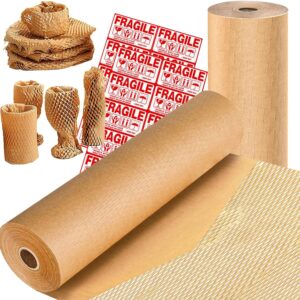
15″ x 164′ Honeycomb Packing Paper Bubble Wrap Alternative, Recyclable Moving and Shipping Cushion Material for Fragile Items with 12 Fragile Stickers
$17.99
Buy Now

150 Pack Mylar Zip Lock Bags Aluminum Foil Bags Durable Double-Sided Metallic Foil Mylar Flat Mini Ziplock Bag 7.5 x 12 cm/ 3 x 4.7 Inch (Gold)
$9.99
Buy Now

16inch Manual Bud Trimmer – Visual Cutting Leaf Trimmer with Outlet Port for Hydroponic Trim Twisted Spin Cut Plant Bud Leaf and Flower
$265.95
Buy Now
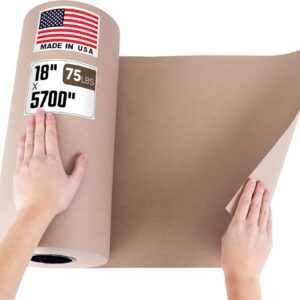
18″ x 5700″ (475 feet) Natural Brown Kraft Paper Roll, 75 Lb Extra Heavy-Duty (Grocery Bag Grade) – Made in USA Large Size Roll of Brown Wrapping Paper, 3-inch Core – for Packaging, Shipping
$59.95
Buy Now
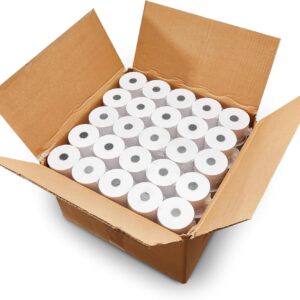
2 1/4″ x 150′ One Ply Bond Receipt Paper Rolls Compatible with most Citizen and Royal Cash Registers (Non-Thermal – Pack of 100)
$69.99
Buy Now
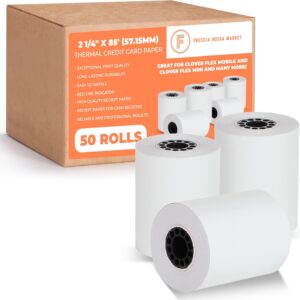
2 1/4″ X 85′ Thermal Paper Receipt Rolls Fits Clover Mini and Credit Card Machines and Cash Registers 2.25 x 85 ft 50 Per Box for Use in Omni, Verifone FD50 T4220 VX510 VX570 FD50 BPA Free
$24.99
Buy Now
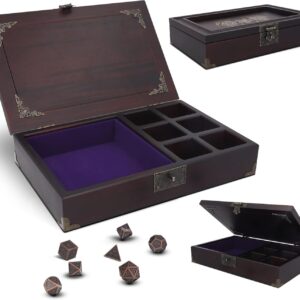
2 in 1 DND Dice Tray – Metal Dice Sets With Wooden Box – Holder & Storage Organizer | Rolling Tray for RPG Table Games – Box for Dungeons & Dragons Players
$38.95
Buy Now

2 PCS 1/8 inch Heavy Duty Adjustable Grow Light Rope Hanger, 150 lbs Light Rope Hangers for Grow Plant Fan Filter Light Room Equipment
$5.99
Buy Now
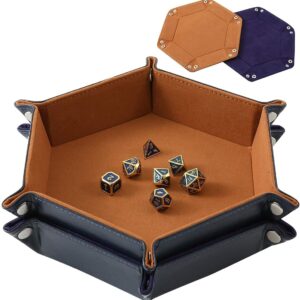
2 Pcs Portable Folding Dice Rolling Tray Set for RPG DND Table Games – PU Leather and Velvet Holder Storage Box – Navy Blue and Camel
$7.99
Buy Now

2.5 Inch Hand Crank Grinder, Potable Large Grinder With Clear Top Cover, Best Gift(Yellow)
$17.98
Buy Now

200 Mylar Zip Lock Bags, Aluminum Foil Flat ZipLock Food Storage Bags Pouch 7.5 x 12 cm/ 3 x 4.7 Inch (Blue)
$9.99
Buy Now
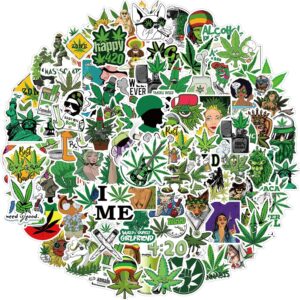
200 PCS Vinyl Waterproof Weed Stickers Aesthetic for Adults – Cool Funny DIY Marijuana Stickers Decals Accessories – Stoner Mary Jane 420 Stickers for Laptop Water Bottles Journaling
$8.99
Buy Now
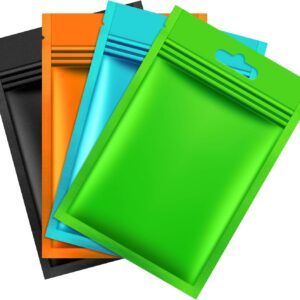
200 Pieces Film Resealable Bags Polyester Odor Proof Bags Aluminum Foil Food Storage Metallic Flat Zipper Sealable Pouch for Small Business Packaging Weed Candy Sample(3.1 x 5.1 Inch,Multicolor)
$9.79
Buy Now

200 Pieces Resealable Mylar Bags(4.3×6.3inch, Matte Gold), Stand Up Zipper Lock Aluminum Foil Bag, Packaging for Small Businesses, Packaging Bags for Food/Nuts Storage
$21.99
Buy Now

200pcs 3″X 4″ Smell Proof Bags Resealable Mylar Bags Foil Pouch Double-Sided Flat Zip lock Bag Matte Black…
$13.59
Buy Now

200Pcs Resealable Bags 3.5g, Ziplock Leakproof Reusable Storage Bags with Clear Window for Food Snack Jewelry Storage Supplies
$9.99
Buy Now

200Pcs Trippy Stickers for Laptop, Alien Leaves Waterproof Stickers for Water Bottles, Skateboard, Guitar, Helmet, Gift for Teen, Kids, Adults
$8.99
Buy Now
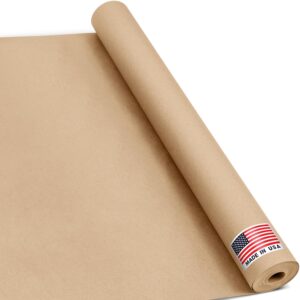
24″ x 1200″ (100 ft) Natural Kraft Paper Roll – USA Made Non-Toxic, Odorless, 100% Recyclable Brown Wrapping Paper for Shipping, Packaging, Crafting & Gift Wrapping
$25.45
Buy Now
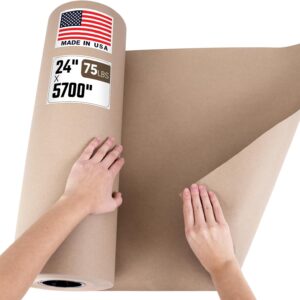
24″ x 5700″ (475 feet) Natural Brown Kraft Paper Roll, 75 Lb Extra Heavy-Duty (Grocery Bag Grade) – Made in USA Large Size Roll of Brown Wrapping Paper, 3-inch Core – For Packaging, Shipping
$74.59
Buy Now

24pc Display – OCB Organic Hemp Papers & Tips – 50pk / 1 1/4″
$53.99
Buy Now

25 Pack – 2 Ounce Terpene Curing Bags 58%-62% Humidity Control – Lock & Seal Storage Heat Sealable 12x9x5 Inch (2oz, 56g)
$24.99
Buy Now
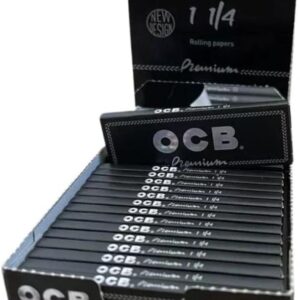
25 x rolling paper OCB Premium Black 1 1/4-78mm
$25.04 Original price was: $25.04.$23.80Current price is: $23.80.
Buy Now
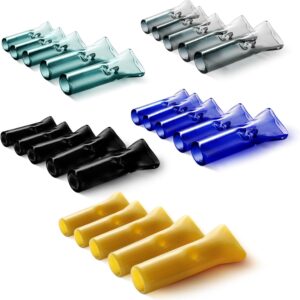
25PCS Reusable Glass Filter Tips for Pre Rolled Rolling Paper Cones, Slim Cigarettes, Flat Glass Rolling Tip Mouthpieces(I.D 6mm and 7mm)
$17.99
Buy Now
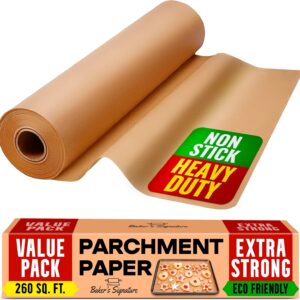
260 Sq.Ft Unbleached Parchment Paper for Baking – Roll with Cutter, Heavy Duty Non-Stick Brown Parchment for Baking, Cooking, Grilling, Steaming and Air Fryer, 15in x 210ft by Baker’s Signature
$15.47 Original price was: $15.47.$13.92Current price is: $13.92.
Buy Now

2×3 inch 100PCS Resealable Smell Proof Bags,Holographic Packaging Bags,Foil Pouch Baggies Clear Small Mylar Ziplock Bag for Jewelry,Candy,Food Storage,Business
$6.99
Buy Now

3 1/8 x 190 Thermal Receipt Paper Rolls For Most POS Systems and Receipt Printers, Compatible With Clover Station, Square Station, Toast Station, TM-T88, TSP Series (30 Rolls)
$59.99
Buy Now
![3 1/8 x 230 Thermal Paper Receipt Rolls (10 PACK) [USA Based Brand] 55 GSM - Compatible with All POS Systems, Cash Registers - BPA Free, Premium Quality Receipt Paper Rolls](https://mscannabiz.com/wp-content/uploads/2025/05/71wvowCOUFL._AC_SL1500_-300x300.jpg)
3 1/8 x 230 Thermal Paper Receipt Rolls (10 PACK) [USA Based Brand] 55 GSM – Compatible with All POS Systems, Cash Registers – BPA Free, Premium Quality Receipt Paper Rolls
$23.50
Buy Now
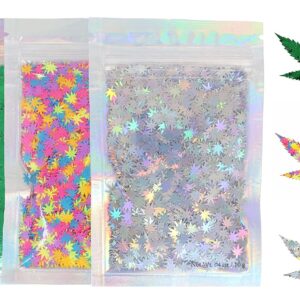
3 Pack – Green, Rainbow & Silver Holographic Leaf Glitter – Solvent Resistant & Cosmetic Grade – Face Body Nails Resin Arts & Crafts, Tumblers, Bath Bombs, Resin – Weed Pot Marijuana Leaf
$9.95
Buy Now
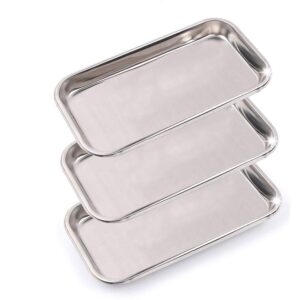
3 Pack Professional Medical Surgical Stainless Steel Dental Procedure Tray Thickening Lab Instrument Tools Trays -Flat Type (8.6″ * 4.3″ * 0.8″, 3)
$9.99
Buy Now

3 Packs Stainless Steel 3 In1 Tamper Tool Reamer Cleaner Cleaning Tool
$5.99
Buy Now

3 Pcs Safety T Shirts Reflective High Visibility Hi Vis Long Sleeve Construction Work Shirts for Men (Black,2XL)
$65.99
Buy Now

3 Pieces Wall Art Marijuana Plants Canvas Wall Art Cannabis Sativa Wall Painting Cannabis Cultivation Wall Decor Wall Art for Living Room Framed Wall Art Ready to Hang 20X40INCH X3
$85.99
Buy Now
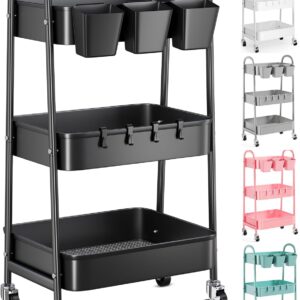
3 Tier Black Metal Rolling Cart with Lockable Wheels and Cups, Three Tiered Utility Storage Organizer on Wheels for Bathroom, Kitchen, Laundry, Garage, Office, Craft, Art, Baby Diaper, Snacks, Books
$49.99 Original price was: $49.99.$29.97Current price is: $29.97.
Buy Now
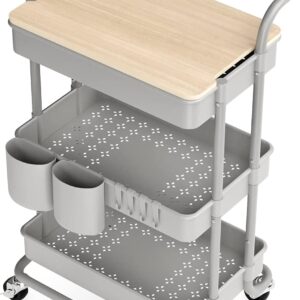
3 Tier Rolling Cart, with Table Top, Rolling Storage Cart with Handles and Locking Wheels, Utility Cart with 2 Small Baskets and 4 Hooks for Bathroom. Office, Balcony, Living Room (Grey)
$29.99 Original price was: $29.99.$24.99Current price is: $24.99.
Buy Now
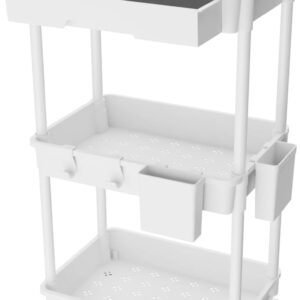
3 Tier Rolling Utility Cart with Drawer,REBECAT Utility Cart Made of Multifunctional Storage Organizer Tool for Kitchen,Bathroom,Living Room,Office(White)
$22.49 Original price was: $22.49.$21.36Current price is: $21.36.
Buy Now
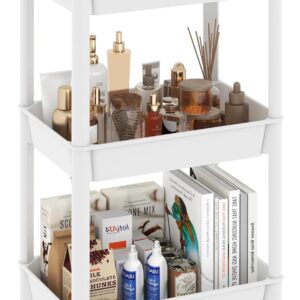
3-Tier Utility Rolling Cart with Cover Top Board, Mobile Utility Cart with Lockable Casters Multi-Functional Storage Trolley for Office, Bathroom, Kitchen, Garden, Laundry Room (White)
$23.99 Original price was: $23.99.$19.99Current price is: $19.99.
Buy Now

3.5g 3.94×4.92In 100 Pcs Kraft Paper Reusable Resealable Zipper Bags, Kraft Paper with PE Laminate, Ideal for Food Storage, Coffee, Tea, Snack, Candy, Small Business Packaging
$19.99
Buy Now

30 x 200 Kraft Paper
$35.00 Original price was: $35.00.$20.76Current price is: $20.76.
Buy Now
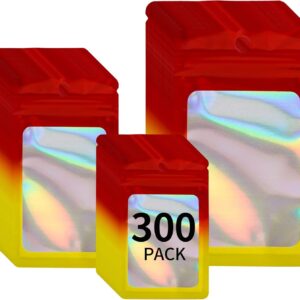
300 Pack 3 Sizes Resealable Mylar Holographic Bags Food Storage Smell Proof Bags with Front Window Packaging Pouch for Cookies Sample Jewelry (Red to Yellow, 3″ x 4.7″,4″ x 6″,4.7″ x 7.9″)
$21.98
Buy Now
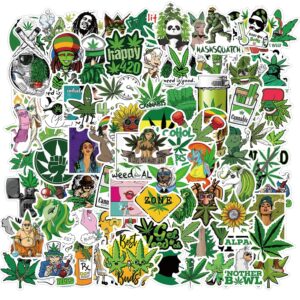
300 PCS Vinyl Waterproof Weed Stickers for Adults – Cool Funny DIY Marijuana Stickers Decals Accessories – Stoner Mary Jane 420 Stickers for Laptop Water Bottles Computer Cellphone
$15.99
Buy Now

350 Pack- Smell Proof Resealable Mylar Pouch Bags, 3 x 4 Inches, Black with Food Grade Interior, Zero BPA, Candy, Eyelashes, Jewelry and More
$19.99
Buy Now
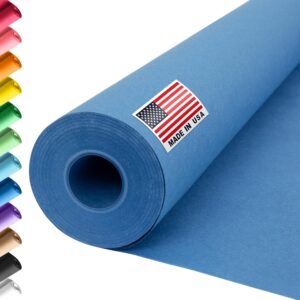
36″ x 1200″ (100 ft) Dark Blue Construction Paper Roll, (Pack of 1 Roll, Dark Blue Color) – Made in USA Construction Kraft Paper Roll for School Projects – Color Paper for Crafts, Art Paper
$47.95
Buy Now
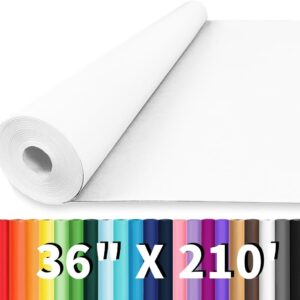
36″ x 2520″ (210′) White Wrapping Paper Jumbo Rolls, White Kraft Paper Roll, Easel Painting Drawing Paper Roll Art Supplies, Gift Wrapping Chart Poster Bulletin Board Paper Roll 80GSM 55LB
$39.99
Buy Now

360° Appliance Sliding Tray for Coffee Maker, Bamboo Rolling Tray with Universal Wheels, Heavy Duty Countertop Slider Mat for Kitchen Appliances, 13” x 16”
$49.99 Original price was: $49.99.$19.99Current price is: $19.99.
Buy Now

360° Rolling Tray Bamboo Appliance Slider for Kitchen Appliances, for Breville Espresso Machine Accessories, Sliding Tray for Coffee Maker Appliances Mat Easily from Under The Cabinet Black 12.8″×15.8
$34.48 Original price was: $34.48.$28.99Current price is: $28.99.
Buy Now
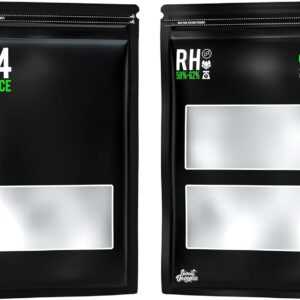
4 Ounce Bags – 25 Pack Lock & Seal Storage Curing Bags 58%-62% RH Humidity 2-Way Control Heat Sealable 8.1″ x 12″ x 3.78″ Inch (4oz, 1/4LB)
$24.99
Buy Now
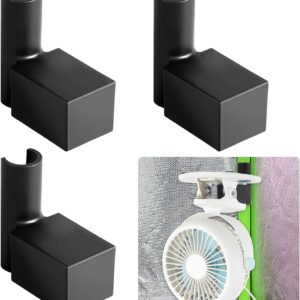
4 Pack Black Grow Tent Fan Accessories Mount Silicone Pole Mount for Clip on Fans Oscillating Clip Fan Oscillating Fan for Grow Tents Grow Tent Corner Shelf for Pole Fly Strips Lights Tent Poles
$12.99
Buy Now
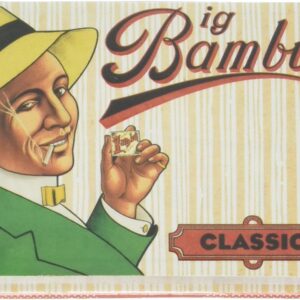
4 Packs Booklets of Big Bambu Cigarette Rolling Papers
$8.99 Original price was: $8.99.$8.21Current price is: $8.21.
Buy Now
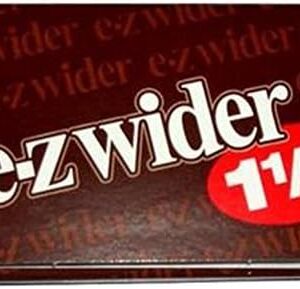
4 PACKS OF EZ WIDER 1 1/2 CIGARETTE ROLLING PAPERS,EZWIDER.
$51.99 Original price was: $51.99.$9.95Current price is: $9.95.
Buy Now
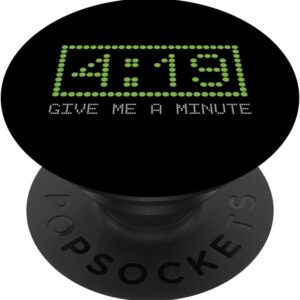
4:19 Give Me A Minute 420 Weed Cannabis Stoner Gift PopSockets Standard PopGrip
$14.99
Buy Now

400 Pack 4 Size Bags with Clear Window,Scratch Resistant Hand Holographic Packaging Pouch,Resealable Bag for Small Bussiness Cookies Jewelry Candy Sample (Red Yellow, 2.4×3.9,3×4.7,4×7,5.5×7.9 inch)
$20.98 Original price was: $20.98.$18.98Current price is: $18.98.
Buy Now
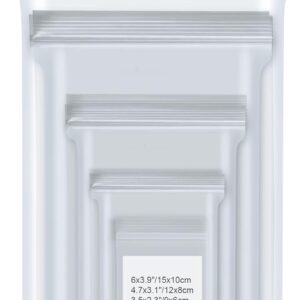
400 Pcs Small Plastic Bags, Resealable Clear Jewelry Bags, Small Baggies, Poly Reclosable Mini Bag, 4 Assorted Sizes 6×3.9 4.7×3.1 3.5×2.3 2.7x2IN, 2 Mil Zipper Bag for Jewelry Pill Packaging VOPTON
$6.99
Buy Now
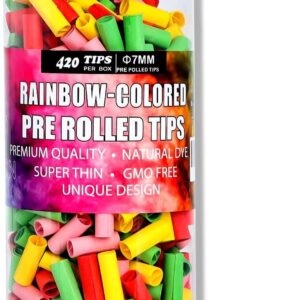
420 Pack | 7mm Pre Rolled Tips | Rasta Color Filter Tips | Natural Unbleached Rolling Papers | Suitable for King Size / 110mm / 1 1/4 Size Rolling Paper
$13.99
Buy Now

420 Roman Numerals Weed Marijuana Cannabis April 20 Design T-Shirt
$13.99
Buy Now

5 booklets – Rizla Silver Combi Pack King Size Slim Rolling Paper + Filter Tips
$7.75
Buy Now
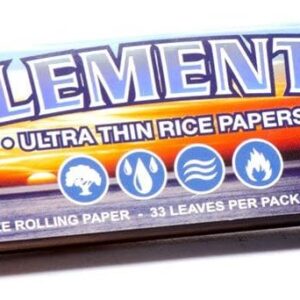
5 booklets Elements King Size (NOT Slim) Ultra Thin Rice rolling paper
$6.30
Buy Now
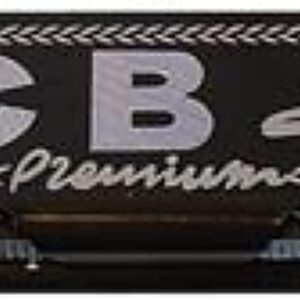
5 booklets OCB PREMIUM SLIM Rolling paper King Size + filter tips
$9.99 Original price was: $9.99.$8.99Current price is: $8.99.
Buy Now
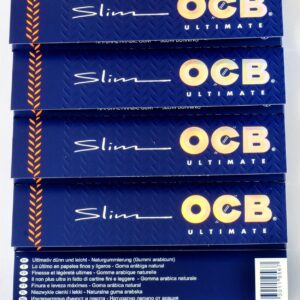
5 booklets OCB Ultimate Slim Thinnest Rolling Paper King Size
$6.09
Buy Now
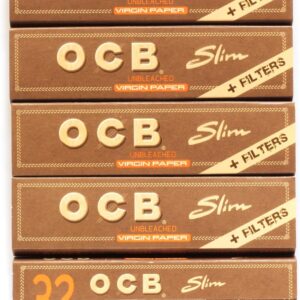
5 booklets OCB Virgin Slim Unbleached Rolling Paper King Size + Filter Tips
$9.99 Original price was: $9.99.$9.47Current price is: $9.47.
Buy Now
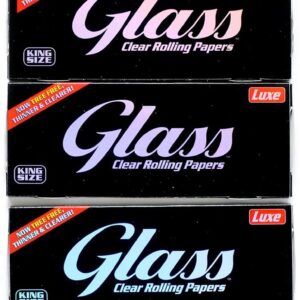
5 Booklets x GLASS Clear Rolling Paper King Size – 100% Natural – 200 Papers
$6.49 Original price was: $6.49.$6.17Current price is: $6.17.
Buy Now
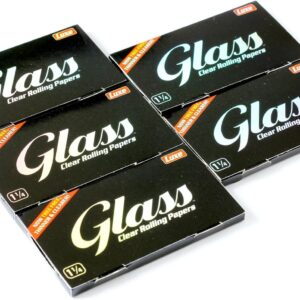
5 booklets x GLASS Clear Rolling paper size 1 1/4-100% Natural – 250 papers
$5.57
Buy Now
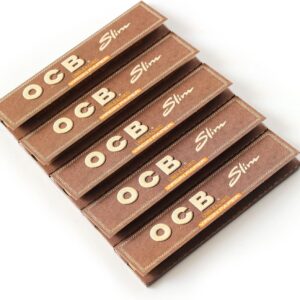
5 booklets x OCB Virgin King Size Slim UNBLEACHED Rolling paper – 160 papers
$51.99 Original price was: $51.99.$5.77Current price is: $5.77.
Buy Now

5 Pack 1 Pound Terpene Curing Bags 58%-62% RH Humidity 2-Way Control Lock & Seal Storage & Curing Heat Sealable 14×18.5×6 Inches (16 Ounce, 1lb)
$25.99 Original price was: $25.99.$23.99Current price is: $23.99.
Buy Now

5 PCS Resin Molds Silicone Molds for Epoxy Resin with Large Rolling Tray Mold and Grinder Mold for Grind and Storage DIY Resin Casting
$34.99 Original price was: $34.99.$19.99Current price is: $19.99.
Buy Now

5 Various Gallon Size Zip Plastic Bags (Pack of 100), 1/1.3/1.5/2/3 Gal, 2 mil each 20 Count Food Grade Reclosable Zip Top Lock Bags for Home & Kitchen
$23.09
Buy Now
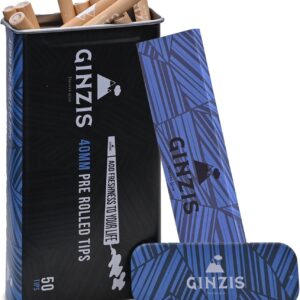
50 Ginzis Slim Rolling Kit – Filter Tips for Rolling Papers & Pre Rolls, 40mm Long Cardboard Filters & 109x33mm Narrow Rolling Papers in Durable Metal Tin Box for Smoother & Cleaner Experience, Black
$9.99
Buy Now
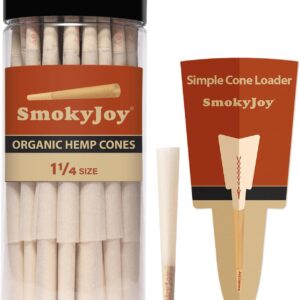
50 Pack 1 1/4 Size Cones – Pre Rolling Rolled Preroll Papers with Filter Tips and Packing Tubes Included
$7.99 Original price was: $7.99.$6.99Current price is: $6.99.
Buy Now
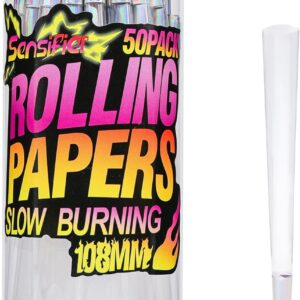
50 PACK Clear Pre Rolled Cones| King Size Rolling Paper Cone 108 MM
$7.99
Buy Now
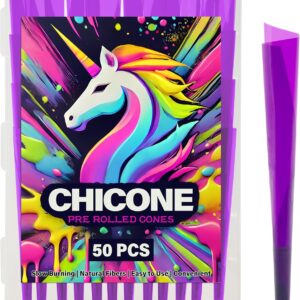
50 Pack Unbleached Pre Rolled Cones with W-Shaped Tips & Packing Tubes | King Size 108mm rolling paper cones| Slow Even Burning Preroll Cones & Packing Tubes (purple)
$9.99 Original price was: $9.99.$5.99Current price is: $5.99.
Buy Now
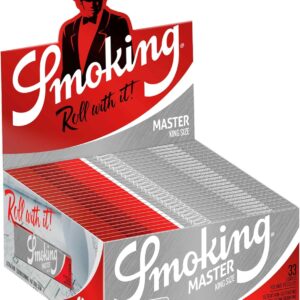
50 SMOKING MASTER KING SIZE EXTRA SLIM Rolling Papers
$39.99
Buy Now
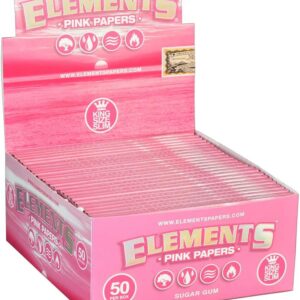
50pc Display – Elements Pink Rolling Papers – King Size Slim
$49.95 Original price was: $49.95.$32.19Current price is: $32.19.
Buy Now
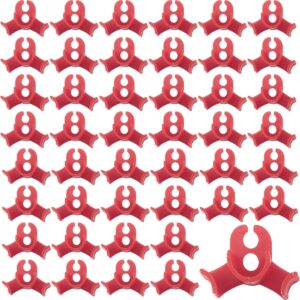
50PCS 90 PCS Plant Stem Trainer Plant Bender Low-Stress Training Clips Adjustable Plant Stem Training Clips Adjustable Plant Bender for Climbing Plants Plant Bender
$8.99
Buy Now
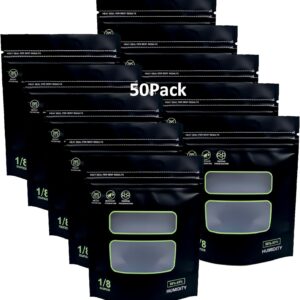
50pcs Storage Terp Bags – 58%-62% RH 2-Way Humidity Control Resealable Bags for Curing & Storage (1/8 oz)
$15.99
Buy Now
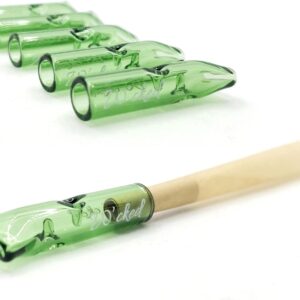
5PCS Reusable W’cked Glass Filter Tips for Pre Rolled Rolling Paper Cones, Slim Cigarettes, Glass Rolling Tip Mouthpieces (Green)
$13.97
Buy Now
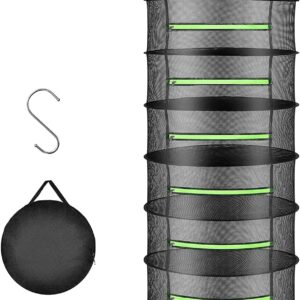
6 Layer Herb Drying Rack Net Mesh with Green Zippers,Bonus Hook Drying Rack Herbs for Hydroponics Plant Bud Seed, Mesh Hanging Plant Dry,Herb Dry Net for Garden (Zipper Type)
$23.69
Buy Now

6 PCS Silicone Molds for Resin – Large Resin Molds with Rolling Tray Mold and Resin Grinder Mold for Grind and Storage, DIY Resin Epoxy Kit
$32.99
Buy Now
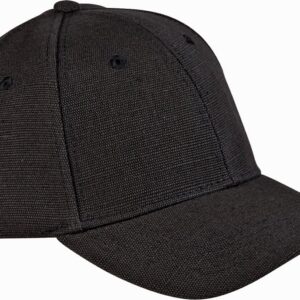
6.8 oz. Hemp Baseball Cap (EC7090)
$11.28
Buy Now

6″ x 9″ Black Resealable Zip Lock Bags -100 Pack of Opaque Plastic Storage Bags for Privacy, Light Protection, and Food Storage Ideal for Crafts, Tools, Office Supplies SKU r69bk-100
$19.70
Buy Now

7 Chakras Stones Healing Crystals Tree of Life Wall Hanger Tumbled Gemstones Meditation Hanging Ornament Christmas Tree Memorial Hanging Pendant Xmas Gift
$12.93
Buy Now

7 Pack Colors Rolling Paper with Filter Tip, Kingsizeslim 110MM Cigarette Smoking Paper, Slow Burning Natural Arabic Gum Tobacco Accessories
$4.80
Buy Now
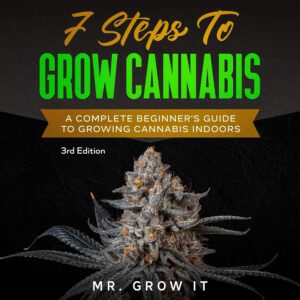
7 Steps to Grow Cannabis: A Complete Beginner’s Guide to Growing Cannabis Indoors
$0.00
Buy Now
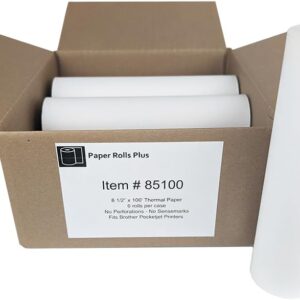
8 1/2″ x 100′ Brother Thermal Paper – Fits: PocketJet 6, 7, 8 Series Printers – 6 Rolls/Case
$59.95
Buy Now
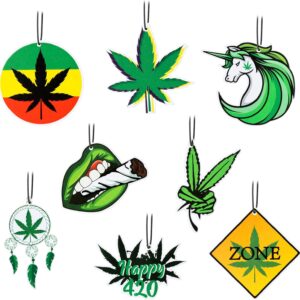
8 Pcs Weed Car Air Fresheners Marijuana Leaves Pot Cannabis Smoking Happy 420 Have a Dope Incense Chips Scented Diffuser Rearview Mirror Hanging Pendant Ornaments Automotive Interior Accessories Gifts
$10.99 Original price was: $10.99.$8.99Current price is: $8.99.
Buy Now

90 Degree Plant Bender, Plant Trainer, for Low Stress Training, 100 Pack, Green
$13.99 Original price was: $13.99.$11.99Current price is: $11.99.
Buy Now

90 pcs Smoking Green Sticker Pack – Use as Cannabis Weed Leaf Stickers, Trippy Stoner Stickers, Marijuana 420 Theme Decors on Bong, Skateboard, Laptop, Hemp Accessories Graffiti Decals (Matte Finish)
$13.99
Buy Now

A Comprehensive Guide To Cloning Cannabis Plants
$2.99
Buy Now
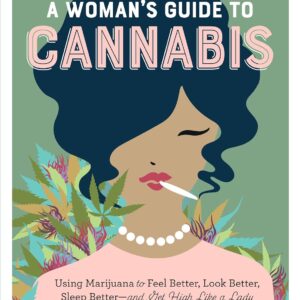
A Woman’s Guide to Cannabis: Using Marijuana to Feel Better, Look Better, Sleep Better–and Get High Like a Lady
$16.95 Original price was: $16.95.$14.49Current price is: $14.49.
Buy Now
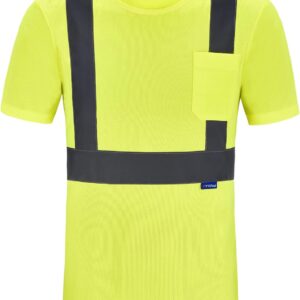
A-SAFETY Safety Shirt,High Visibility Work T Shirt Long Short Sleeve Class 3 (XS-6XL)
$14.99
Buy Now
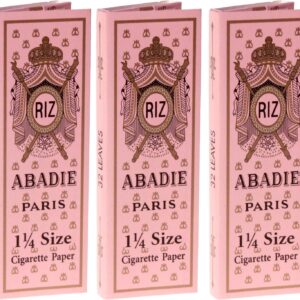
Abadie Paris Cigarette Paper – 1 1/4 (79mm), 3 Pack (96 Leaves), Natural, French Paper
$9.99
Buy Now
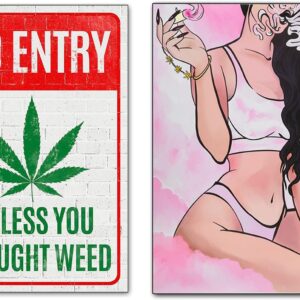
Abctec 2PCS Roller Smoker Wall Art Print, Weed Posters, Pink Stoner Girl,Pothead Accessories, Cannabis Art, Marijuana, 420 Gifts,Unframed 12×16 Inch
$6.97
Buy Now

AC Infinity 6.6” Stainless Steel Pruning Shear with Cleaning Kit, Lightweight Ergonomic Design, Nonstick Titanium Coated Blades for Gardening, Hydroponics, Grow Tents
$13.99
Buy Now

Accounting Fundamentals: A Non-Finance Manager’s Guide to Finance and Accounting
$19.99
Buy Now
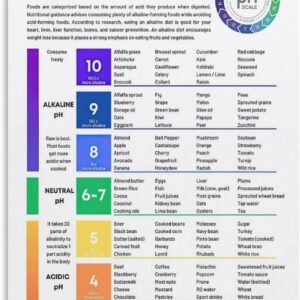
Acid Alkaline Food List Healthier Shopping Using Alkaline Food Chart Food Ph Guide Nutrition Educational Poster Living Room Bedroom Aesthetic Wall Decor Canvas Wall Art Gift 12x18inch(30x45cm)
$20.50
Buy Now

Acrylic Appliance Slider with 360° Rolling Wheels, Sliding Tray for Coffee Maker, Countertop Moving Tray Accessories for Kitchen Counter 13″ x 14″(Clear)
$31.99
Buy Now

Acrylic Appliance Slider with Rubber Wheels, Sliding Tray for Heavy Kitchen Appliances, Coffee Maker Slider Tray for Counter, Countertop Moving Tray Accessories for Kitchen – 13″ x 14″ (Clear)
$34.99
Buy Now

Adjustable Kermit The Frog Embroidered Baseball Cap – Unisex Classic Dad Trucker Hat
$12.99 Original price was: $12.99.$9.99Current price is: $9.99.
Buy Now

Adjustable Low Stress Training Plant Support Clips for Plant Training Plant Stem Bending Grow Tent Accessories Plant Ties Plant Training Grow Clips (50, Blue)
$16.99
Buy Now
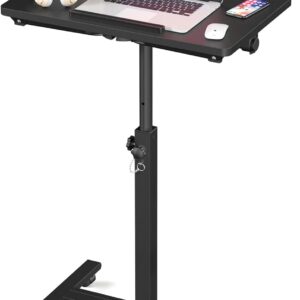
Adjustable Overbed Bedside Table, Hospital Bed Table with Wheels, Portable Rolling Desk, Mobile Small Standing Desk, Rolling Laptop Stand, Computer Cart
$179.98 Original price was: $179.98.$39.99Current price is: $39.99.
Buy Now
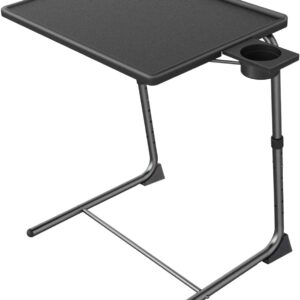
Adjustable TV Tray Table – TV Dinner Tray on Bed & Sofa, Comfortable Folding Table with 6 Height & 3 Tilt Angle Adjustments (Black)
$45.99 Original price was: $45.99.$38.99Current price is: $38.99.
Buy Now

Airtight Glass Storage Jar Medium 3.75″ Tall (Frosted Hi Maintenance)
$16.95
Buy Now
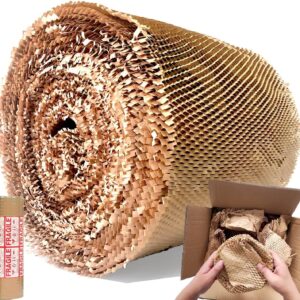
AlexHome Honeycomb Packing Paper,15″ W x 200′ L,Eco Friendly Biodegradable Bubble Cushioning Wrap,Honeycomb Wrapping Paper,Recyclable Cushioning Packing Material,Packing Paper Roll, Packing Supplies
$21.99
Buy Now

Alien Tattooist Astronaut Tattooing UFO Lover Tattoo Artist T-Shirt
$19.99
Buy Now
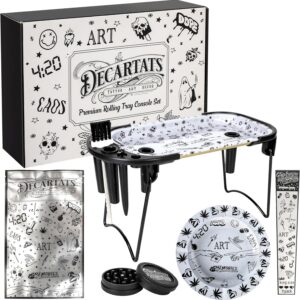
All-in-One Metal Rolling Tray Set with Cone Loader – Premium Foldable Tray, Pre Roll Machine, Ashtray, Candy Grinder & Storage – Fits King Size & 1 1/4 Papers
$139.00 Original price was: $139.00.$14.99Current price is: $14.99.
Buy Now

ALLNTRENDS Trucker Hat Weed Smile Snapback 420 Cap
$19.94
Buy Now
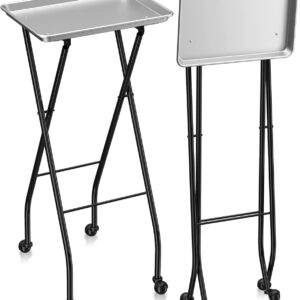
Aluminum Foldaway Folding Service Tray on Wheels
$109.47 Original price was: $109.47.$94.47Current price is: $94.47.
Buy Now
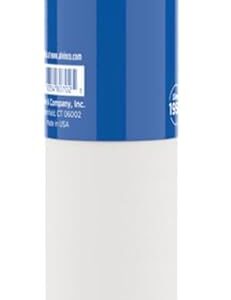
ALVIN 55W-B Lightweight Tracing Paper Roll, White, Suitable with Ink, Charcoal, Felt Tip Pen, for Sketching or Detailing – 14 Inches, 20 Yards, 1-inch Core
$13.25
Buy Now
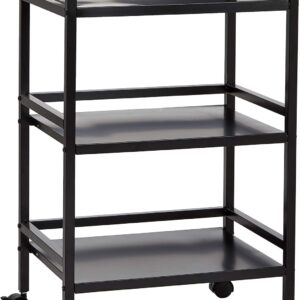
Amazon Basics 3-Tier Metal Rolling Cart, Black
$37.97 Original price was: $37.97.$34.17Current price is: $34.17.
Buy Now
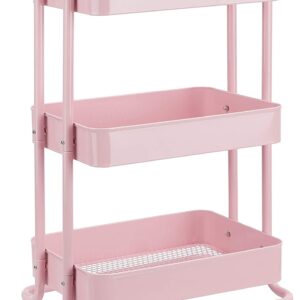
Amazon Basics 3-Tier Rolling Utility or Kitchen Cart, Lockable Wheels, Multifunctional Storage, Dusty Pink
$37.51 Original price was: $37.51.$34.17Current price is: $34.17.
Buy Now

Amazon Basics Parchment Paper, 90 Sq Ft Roll (Pack of 2)
$19.99 Original price was: $19.99.$14.40Current price is: $14.40.
Buy Now

Anime Ball Grinder, Large Spice Grinder 2.2 Inch
$14.75
Buy Now
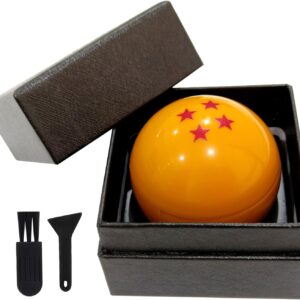
Anime Grinder – 2.2 inch 3 Pieces, Yellow
$15.99
Buy Now
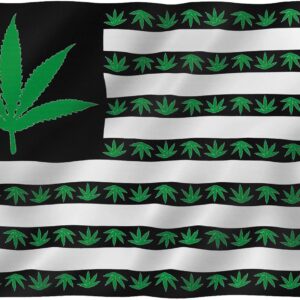
ANLEY Fly Breeze 3×5 Foot Marijuana Leaf USA Polyester Flag – Vivid Color and Fade proof – Canvas Header and Double Stitched – US Marijuana Leaves Flags with Brass Grommets 3 X 5 Ft
$6.95
Buy Now

ANNCED Beanie Hat Knitted Cap for Men Women,Thin Warm Knit Slouchy Cancer Hat Ski Cap Winter Warm Hip Hop Soft Skull Cap
$11.99
Buy Now

Anrapley Lighter, 6.0in Long Butane Torch Lighter with Fuel Level Window, Windproof Pen Lighter Adjustable Jet Flame for Candle Fireplace Grill Kitchen BBQ, Dad Gifts, Black(Gas not Included)
$9.98
Buy Now
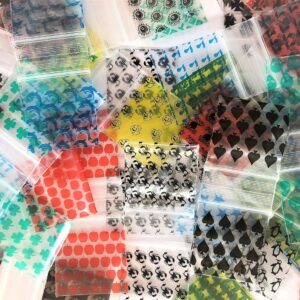
Apple Brand Bags 1515 Original Apple Brand Zip Top Baggies Mix 26 Designs 104 bags 1.5 x 1.5
$9.99 Original price was: $9.99.$8.45Current price is: $8.45.
Buy Now
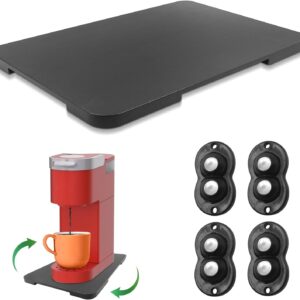
Appliance Slider 360° Rolling Tray for Coffee Maker Bamboo Coffee Pot Slider Tray Countertop Rotation Sliding Tray with Wheels, Small Appliances Mat Black(Small 13.9″×9.4″)
$30.99 Original price was: $30.99.$24.64Current price is: $24.64.
Buy Now

Appliance Slider 360° Rolling Tray for Coffee Maker, Wooden Sliding Tray for Coffee Maker Countertop, Coffee Maker Tray for Counter & Heavy Kitchen Appliances (16.8 x 12.8 inch)
$31.98 Original price was: $31.98.$27.99Current price is: $27.99.
Buy Now
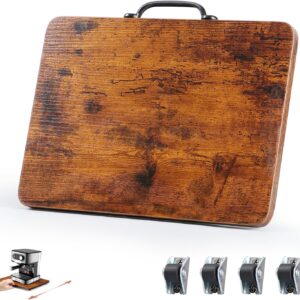
Appliance Slider, Sliding Tray for Coffee Maker, Coffee Pot Slider for Countertop, Kitchen Appliance Rolling Tray with Rubber Wheels (Rustic Brown, Medium – Wide (13” x 9.5”))
$25.99 Original price was: $25.99.$21.99Current price is: $21.99.
Buy Now

Appliance Slider, Wooden Sliding Tray for Coffee Maker, Coffee Pot Slider for Counter, Kitchen Caddy Rolling Tray (Classic Black- Deep)
$31.99
Buy Now

Appliance Slider, Wooden Sliding Tray for Coffee Maker, Coffee Pot Slider for Counter, Kitchen Caddy Rolling Tray (Classic Black- Wide)
$34.99 Original price was: $34.99.$31.99Current price is: $31.99.
Buy Now

Appliance Sliders for Kitchen Appliances, 360° Rolling Coffee Tray for Countertop, Bamboo Sliding Tray for Coffee Maker, Large Coffee Pot Slider Tray for KitchenAid Stand Mixer, Air Fryer, Toaster
$32.99 Original price was: $32.99.$28.99Current price is: $28.99.
Buy Now

Appliance Sliders for Kitchen Appliances, Sliding Tray for Coffee Maker, Coffee Pot Slider Tray with Rubber Rolling Wheels for Heavy Kitchen Appliances like Blender (colorless, 10″D x 12″W)
$22.99 Original price was: $22.99.$21.84Current price is: $21.84.
Buy Now
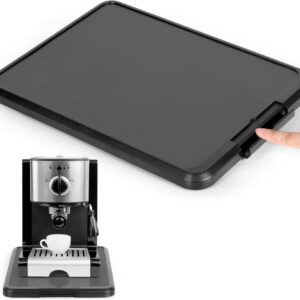
Appliance Sliding Tray, Kitchen Coffee Maker Sliding Caddy with Rolling Wheels for Countertop Coffee Maker Kitchen Aid Mixer Blenders and Air Fryer(16.1″W x11.8″D)
$18.99
Buy Now

ARGOMAX Appliance Rolling Tray, Coffee Maker Slider, coffee pull out tray, sliding coffee maker tray, Suitable for coffee machines, air fryers and other appliances (10.3” W × 15.3”D)
$23.99
Buy Now
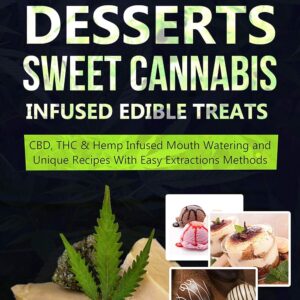
Around the World in 40 Desserts – Sweet Cannabis-Infused Edible Treats : CBD, THC & Hemp Infused Mouth Watering and Unique Recipes with Easy Extraction methods
$2.99
Buy Now
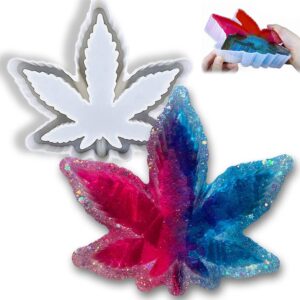
Ashtray Mold for Resin, Large Leaf Silicone Mold for Epoxy Resin, Maple Leaf Rolling Tray for Jewelry Storage Box, DIY Craft Gift, Home Decoration
$11.24 Original price was: $11.24.$8.99Current price is: $8.99.
Buy Now

Ask Ed: Marijuana Success: Tips and Advice for Gardening Year-Round
$19.99 Original price was: $19.99.$18.22Current price is: $18.22.
Buy Now
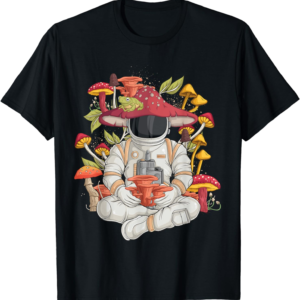
Astronaut Cottagecore frog Aesthetic Men Women Graphic T-Shirt
$16.99
Buy Now
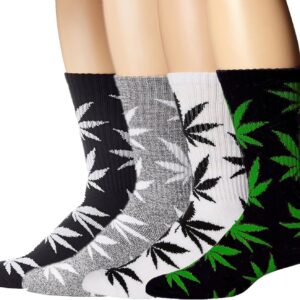
Athletic Sports High Crew Socks for Men Women Leaf Cotton Sock
$13.99
Buy Now
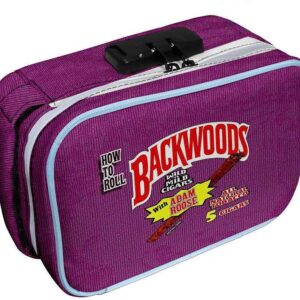
Backwoods Bags Smell Proof Bags Deodorant bags Storage Bags Travel Bags with Combination Lock- IndoorOutdoor (A9), 23*12*16cm
$21.99
Buy Now
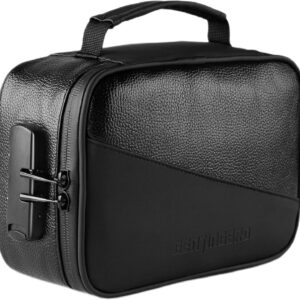
Bag with Combination Lock Travel Bag with Lock
$18.99
Buy Now
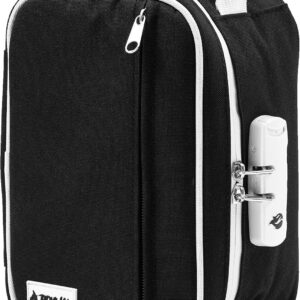
Bag with Combination Lock, Medicine Container Case For Your Accessories (8.5×5.5×4, Black)
$19.99
Buy Now
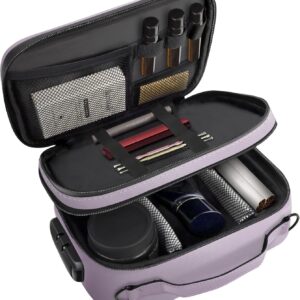
BALEINE Large Storage Bag with Combination Lock, Water-resistant Travel Organization Case (Lilac)
$19.95
Buy Now

Bamboo Appliance Slider, Sliding Tray for Coffee Maker, Kitchen Countertop Appliance Rolling Tray, Coffee Pot Slider Tray with Rubber Wheels, Wide – Medium (13″D x 14″W)
$24.99
Buy Now
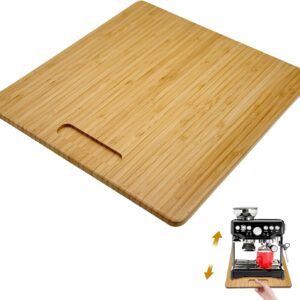
Bamboo Appliance Sliders for Kitchen Appliances, Sliding Tray with Silent Rubber Wheels for Coffee Maker, Kitchen Countertop Appliance Rolling Tray (Large 13″ x 14″)
$49.99 Original price was: $49.99.$21.99Current price is: $21.99.
Buy Now
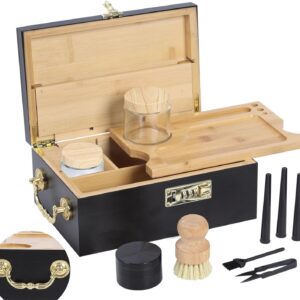
Bamboo Box Tray Set with Combination Lock, Decorative Box with Accessories,Tray and Glass Jars, Lockable Decorative Box Set with Exquisite Handles,Ideal for Home Storage and Great Gift(Black)
$69.99 Original price was: $69.99.$39.99Current price is: $39.99.
Buy Now
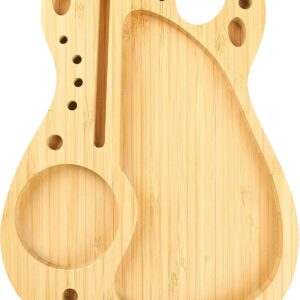
Bamboo Rolling Tray, Large Cigarette Tray, Decorative Tray with Rolling Paper Grinder Cigarette Slot(Guitar – 9.06” x 7.29”)
$59.99 Original price was: $59.99.$7.99Current price is: $7.99.
Buy Now
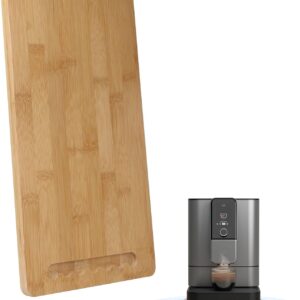
Bamboo Sliding Appliance Tray,Coffee Maker Slider Tray with Rubber Wheels, Countertop Pull Out Organizer for Coffee Machines,Air Fryers and Other (Natural, Small-Long(7.5”W x 14.5”L))
$57.99 Original price was: $57.99.$20.99Current price is: $20.99.
Buy Now

Bamboo Stash Kit, Storage Box, Rolling Tray, Rolling Kit, Rolling Tray Box with Lock, Smell Proof Box, Bamboo Rolling Tray Bundle, Lock Box
$37.95 Original price was: $37.95.$34.95Current price is: $34.95.
Buy Now
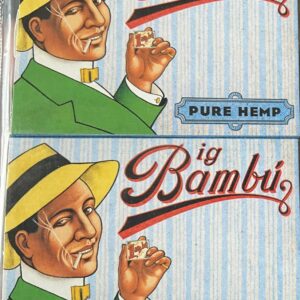
Bambu – Big Bambu Pure Hemp Rolling Paper (10 Booklets)
$19.99 Original price was: $19.99.$17.90Current price is: $17.90.
Buy Now
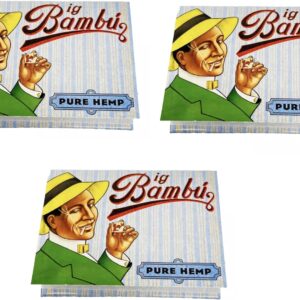
Bambu – Big Bambu Pure Hemp Rolling Paper (3 Booklets)
$8.10
Buy Now
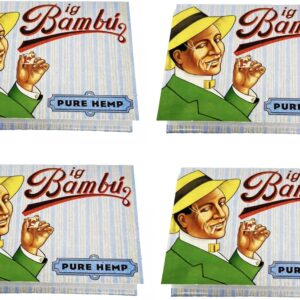
Bambu – Big Bambu Pure Hemp Rolling Paper (4 Booklets)
$9.77
Buy Now
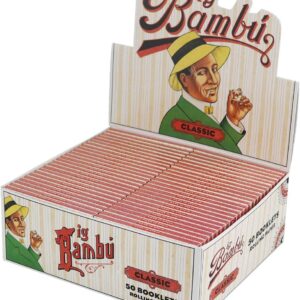
Bambu Big Cigarette Paper 50-Count
$83.95 Original price was: $83.95.$74.07Current price is: $74.07.
Buy Now
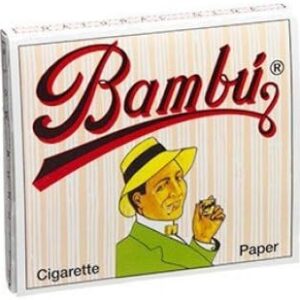
Bambu Regular 1-1/4″ Rolling Paper, Pack of 5 Booklets
$9.46 Original price was: $9.46.$8.34Current price is: $8.34.
Buy Now

Banking Cannabis: A Comprehensive Guide to Cannabis and Compliance
$29.95
Buy Now

Baseball Cap Snapback Hats Adjustable Trucker Hat for Men Women
$18.98
Buy Now

Bates- Paint Tray Liner, 9 Inch, 10 Pack, Paint Roller Tray, Disposable Plastic Paint Trays, Paint Pans Trays, Paint Supplies for House Painting, Roller Tray
$13.85
Buy Now
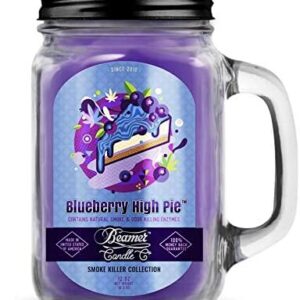
Beamer Candle Co. Smoke Killer Collection – Blueberry High Pie Large Candle
$23.99
Buy Now
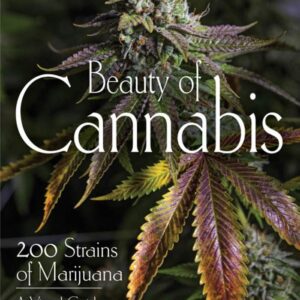
Beauty of Cannabis: 200 Strains of Marijuana, A Visual Guide
$24.95
Buy Now
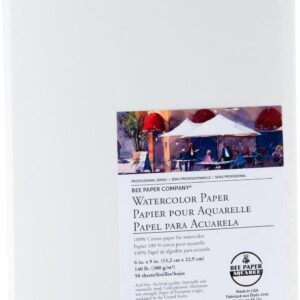
Bee Paper Company Watercolor Paper 100% Cotton Roll
$39.79
Buy Now
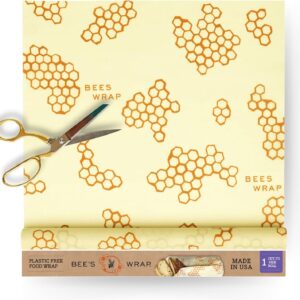
Bee’s Wrap Beeswax Wraps for Food – Honeycomb Cut to Size Wax Paper Roll – Made in USA Reusable Waxed Paper & Bowl Covers – Organic & Eco-Friendly Alternative to Aluminum Foil & Plastic Wrap
$24.00
Buy Now

Beginner’s Guide to Growing Medical Cannabis: Unlock the Secrets to Successfully Cultivating Your Own Medicinal Cannabis Plants
$12.95
Buy Now
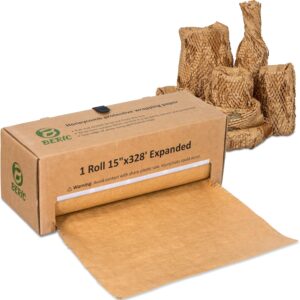
Beric Honeycomb Paper Cushioning Wrap – Packing – Shipping Supplies – Packing Paper – Boxes For Packaging – Alternative To Bubble Wrap Roll – Packing Paper For Moving – 15″ X 328′
$39.95
Buy Now

Besshopie Womens Halter Tops Summer Sleeveless Shirts Sexy High Neck Fitted Tops Racer Back Tank Tops Blouses
$32.99
Buy Now

Best Pops Ever for Dad Graphic Sarcastic Funny T Shirt
$14.99
Buy Now
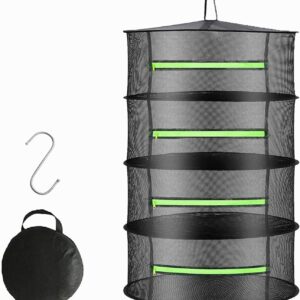
Bestio Herb Drying Rack, 4 Layer Hanging Drying Rack Mesh for Plants with Zipper, Pruning Scissors, Hook, Black Weed Drying Rack Net, for Drying Herb Flowers Buds Fish Vegetables
$17.99
Buy Now
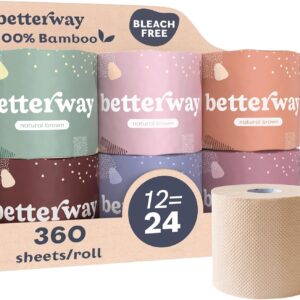
Betterway Unbleached Bamboo Toilet Paper Rolls – Eco-Friendly 3 Ply Toilet Tissue – 12 Double Rolls – 360 Sheets/Roll – Organic, FSC Certified, Septic Safe TP – Lint-Free, PFA-Free Bath Tissue
$29.99
Buy Now

Beyond Buds, Next Generation: Marijuana Concentrates and Cannabis Infusions
$29.95 Original price was: $29.95.$24.06Current price is: $24.06.
Buy Now
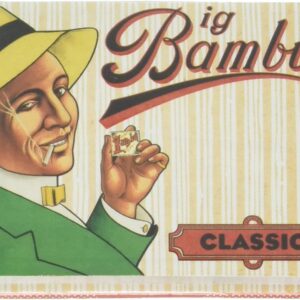
Big Bambu Papers – 24 pack
$51.99 Original price was: $51.99.$39.50Current price is: $39.50.
Buy Now

Big Bambu Rolling Papers (50 Booklets)
$75.49
Buy Now

Bigfoot Starry Night Sasquatch Van Gogh Sky Painting Art T-Shirt
$19.95
Buy Now
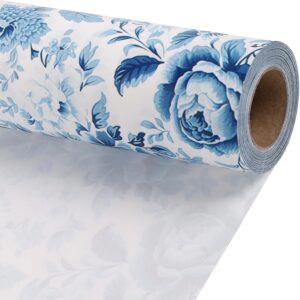
BIOBROWN Floral Wrapping Paper Jumbo Roll – 30 Inch X 33 Feet (82.5 sq. ft. ttl.) Blue White Peony Design Chinoiserie Gift Wrap Stone Paper for Wedding, Bridal Shower, Mother’s Day
$23.99
Buy Now
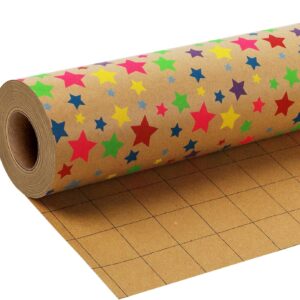
BIOBROWN Kraft Wrapping Paper Roll Colorful Stars Design Perfect for Birthday Holiday Wrap 17 inch X 33 feet
$13.99 Original price was: $13.99.$11.89Current price is: $11.89.
Buy Now
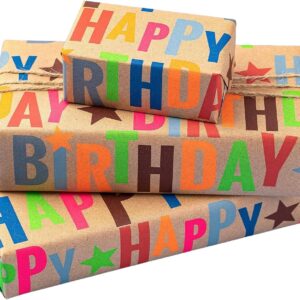
BIOBROWN Kraft Wrapping Paper Roll Colorful Text Happy Birthday Design Perfect for Birthday Holiday Wrap 17 inch X 33 feet
$13.99 Original price was: $13.99.$11.19Current price is: $11.19.
Buy Now

Black Cuff Marijuana Leaf Knitted Beanie
$14.95
Buy Now
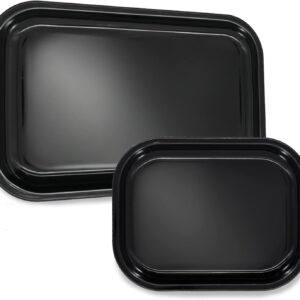
Black Metal Tray 2 Pack 11″x7″ and 7″x5.5″ (Black)
$19.97 Original price was: $19.97.$9.99Current price is: $9.99.
Buy Now
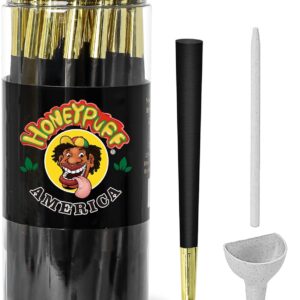
Black Pre Rolled Cones With Goled Filter Tips, 50 PACK King Size Back Prerolled Rolling Paper Cones(Include Loader and Packing Sticks)
$6.99
Buy Now
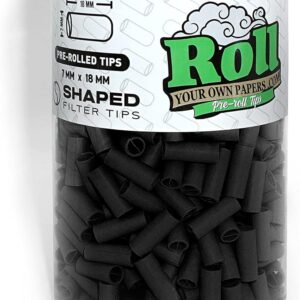
Black Pre-Rolled Filter Tips, 7mm – Bottle of 500 Tips
$55.00 Original price was: $55.00.$12.90Current price is: $12.90.
Buy Now
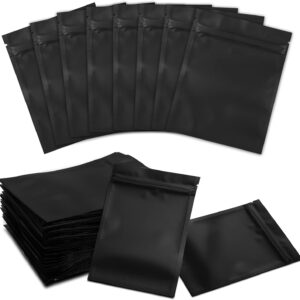
Black Resealable Bags Packaging Bags 3×4 Inch 300 Pieces Double-Sided Matte Black
$17.99
Buy Now
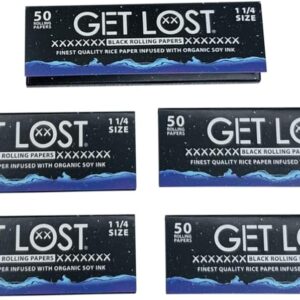
Black Rolling Papers, 1 1/4 Inches, 50 Count, 5 Pack
$8.00
Buy Now

Black Rolling Tray Set with Magnetic Lid 7″x5″ – Smoking Accessories by Gray Oval
$12.99
Buy Now
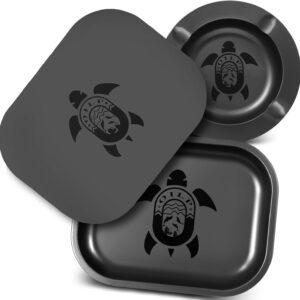
Black Rolling Tray with Magnetic Lid & Cool Ashtray for Outside Patio Outdoor Home Cute Decor,Metal Ash tray Set for Storage or Travel- Set of 3 (Funny Turtle Design)
$32.99 Original price was: $32.99.$8.56Current price is: $8.56.
Buy Now

Black Scrapers, Brushes & Spoons Kit with 3 in 1 cleaning tool for Spice Grinder include 4 Pcs Scrapers,6 Pcs 3 Types of Brushes,2 Spoons,1 Pcs Plastic Jar and A Storage Box
$9.99 Original price was: $9.99.$9.49Current price is: $9.49.
Buy Now
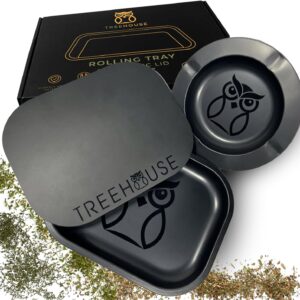
Black Treehouse Rolling Tray Set with PVC Soft Magnetic Lid, Ashtray Included for Home Storage or Travel – 7″ x 5.5″, Small, Cute
$37.99 Original price was: $37.99.$9.99Current price is: $9.99.
Buy Now
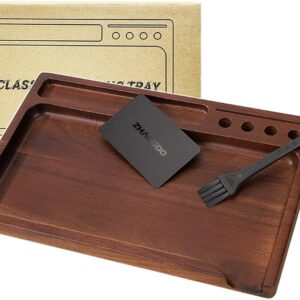
Black Walnut Rolling Tray 11″x7″ Tray Rolling Tray Set with Cleaning Brush and Scoop Card – Accessories for Rolling Papers, Grinders – Tray with Smooth Rounded Edges
$19.98 Original price was: $19.98.$14.98Current price is: $14.98.
Buy Now

black white Cannabis accessories Marijuana Leaf Weed Drugs PopSockets PopGrip: Swappable Grip for Phones & Tablets
$11.72
Buy Now
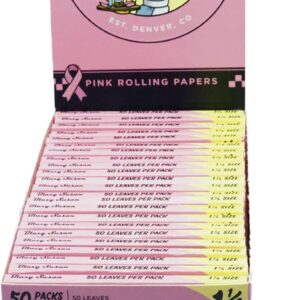
Blazy Pink Cones 50ct Pack | Pink Rolling Cones | Vegan & Smooth Burning | Blazy Susan Quality Smoking Accessories
$19.99 Original price was: $19.99.$12.99Current price is: $12.99.
Buy Now
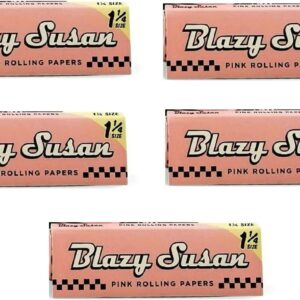
BLAZY Susan King Size Slim Rolling Papers 5 Packs 50 Sheets PER Pack + DSS Scoop Card
$5.99 Original price was: $5.99.$5.70Current price is: $5.70.
Buy Now
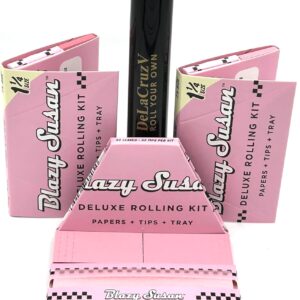
Blazy susan Pink Deluxe Rolling Kit 1 1/4 paper+tips 3 packs and Tube.
$12.99
Buy Now
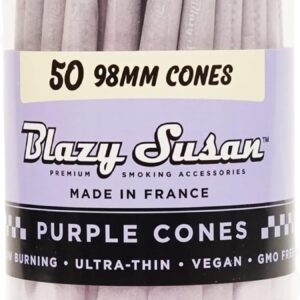
Blazy Susan Purple Pre-Rolled Cones, 50 Count (98mm) – Slow-Burning Rolling Paper & Ultra-Thin Natural Preroll Cones with Filter Tips – Vegan, GMO-Free, Convenient & Easy-To-Use Prerolled Cones
$13.85 Original price was: $13.85.$11.97Current price is: $11.97.
Buy Now
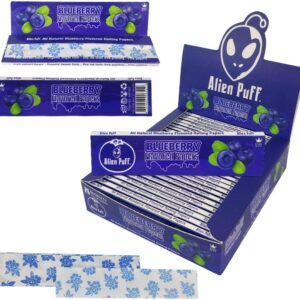
Blueberry Flavored Rolling Papers, King Size 109x44mm
$17.00
Buy Now

Blulu 100 Pieces Resealable Foil Proof Bag Foil Pouch Flat Bag for Party Favor Food Storage(4 x 6 Inches,Black)
$11.99
Buy Now
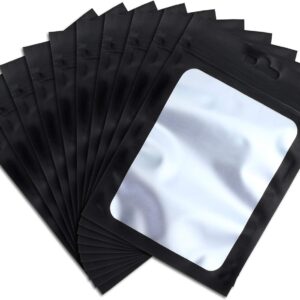
Boao 100 Pieces Resealable Foil Food Storage Bags with Clear Window Coffee Beans Candy Packaging Pouch for Food Small Business Supplies for Jewelry Self Sealed Storage Bags(4.7 x 7.9 Inch,Black)
$11.49
Buy Now
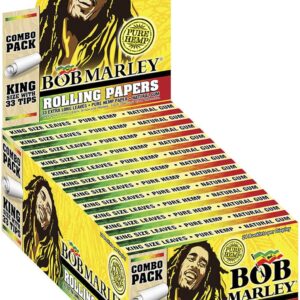
Bob Marley Natural Cigarette Rolling Papers with Tips (24 Booklets)
$39.90 Original price was: $39.90.$37.98Current price is: $37.98.
Buy Now
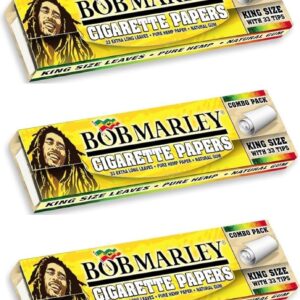
Bob Marley Pure Hemp Cigarette Rolling Papers Combo Pack – All Natural – with Tips (5 Pack)
$15.99 Original price was: $15.99.$11.73Current price is: $11.73.
Buy Now
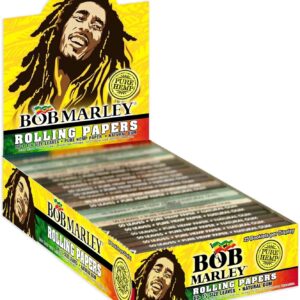
Bob Marley Rolling Paper – 1 1/4″ Medium Size (78mm) Paper – Box of 25 Booklets! (50 Leaves Per Book)
$24.99
Buy Now
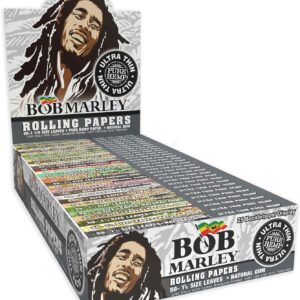
Bob Marley Rolling Paper – 1 1/4″ Medium Size (78mm) Ultra Thin Paper – Box of 25 Booklets! (50 Leaves Per Book)
$23.99
Buy Now
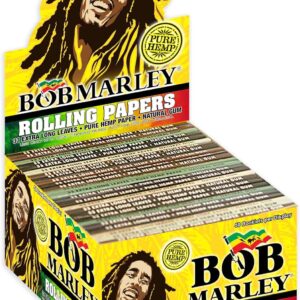
Bob Marley Rolling Paper – King Size (110mm) Cigarette Paper – Box of 50 Booklets (33 Leaves Per Book)
$39.95
Buy Now
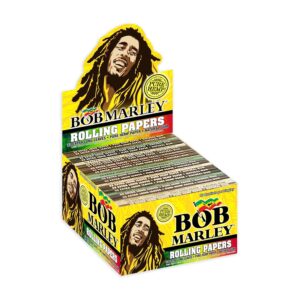
Bob Marley Rolling Paper – King Size Extra Long (110mm) Pure Hemp Paper – Full Box of 50 Booklets!
$51.99 Original price was: $51.99.$38.99Current price is: $38.99.
Buy Now
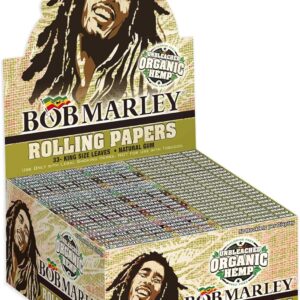
Bob Marley Rolling Paper Unbleached – King Size (110mm) Cigarette Paper – Box of 50 Booklets (33 Leaves Per Book)
$39.99
Buy Now
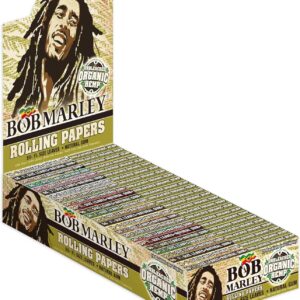
Bob Marley Rolling Papers Unbleached Organic 1 1/4 Rolling Paper – 1 Box (25 Booklets)
$51.99 Original price was: $51.99.$27.98Current price is: $27.98.
Buy Now

Booda Brand Stoner Avenue Street Sign 4 Signs of Exit 420 /High St/Mary Jane Lane/Stoner Ave for Room Decor, Duplex Printed Anti-Fade Trippy Room Decor for Stoner, Vintage Rustic Retro Street Sign
$12.99
Buy Now

Boveda 62% RH Size 8-10 Pack Two-Way Humidity Control Packs – For Storing 1 oz – Moisture Absorber for Small Storage Containers – Humidifier Packs – Hydration Packets w/Resealable Bag
$16.50
Buy Now

Boveda 62% Two-Way Humidity Control Packs For Storing ½ oz – Size 4 – 10 Pack – Moisture Absorbers for Small Storage Containers – Humidifier Packs – Hydration Packets in Resealable Bag
$14.99
Buy Now
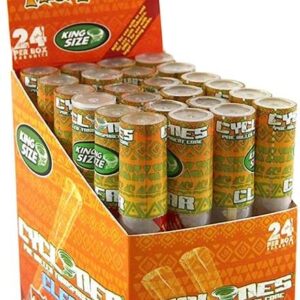
Box 24 Cyclones TIKI TANGO King Size Flavored Pre Rolled Cones Reusable Wood Tip by Cyclones
$17.62
Buy Now
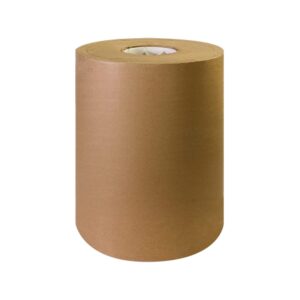
BOX USA Kraft Brown Paper Roll, 50#, 12″ x 720′, 100% Recycled Paper, Ideal for Shipping, Packing, Moving, Gift Wrapping, Craft, Dunnage and Parcel
$39.99
Buy Now
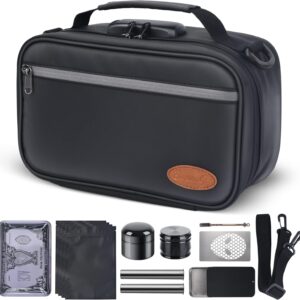
BOYISTARGLarge Storage Bag with 10 Small Items ,Combination Lock, Portable Lock Bag Set Travel Case Great Christmas Gifts for Men, Black
$49.94 Original price was: $49.94.$36.99Current price is: $36.99.
Buy Now
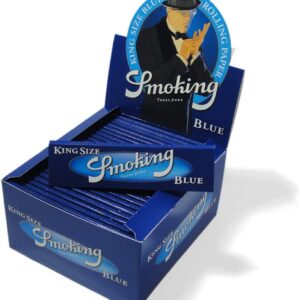
Brand Rolling Paper – Blue – King Size (Full Box)
$38.99
Buy Now
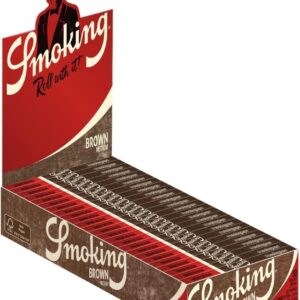
Brand Rolling Paper – Brown Unbleached – 1 1/4 Full Box
$19.93 Original price was: $19.93.$15.35Current price is: $15.35.
Buy Now
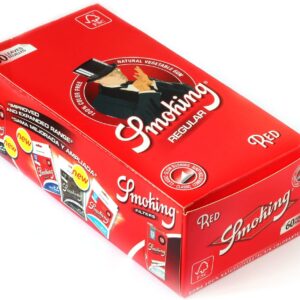
Brand Rolling Papers – Red Regular (70mm)
$24.99
Buy Now
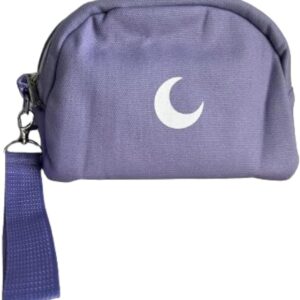
Brando Moon Smell Proof Makeup Bag with Moon – Carbon Neutralizing Fabric – Air Tight Zippers (Purple)
$20.99
Buy Now

Brccee AC Kitchen Apron I’d Hit That Marijuana Pot Weed Stoner Apron Adult Women Unisex Durable Comfortable Washable for Baking, Crafting, Gardening, Cooking Kitchen
$15.99 Original price was: $15.99.$12.99Current price is: $12.99.
Buy Now
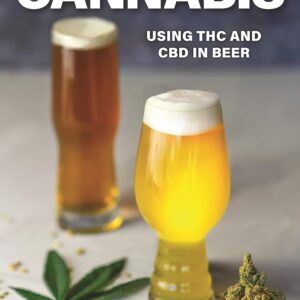
Brewing with Cannabis: Using THC and CBD in Beer (Volume 1)
$19.95
Buy Now
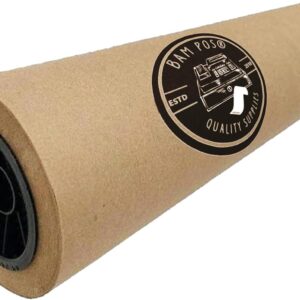
Brown Kraft Paper Roll – Extra Long, Durable & Recycled Paper – Ideal for Packing, Gift Wrapping, Postal, Shipping, Artwork, Crafts, Bulletin Boards & Covering Floor (17.5” x 1800” (150’)
$15.99
Buy Now
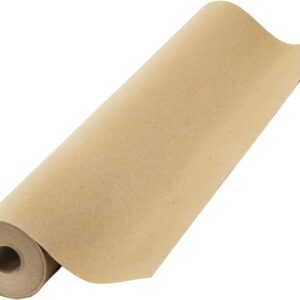
Brown Kraft Paper Roll 17.75” x 1200” (100ft) Made in USA- Ideal for Gift Wrapping, Packing Paper for Moving, Art Craft, Shipping, Floor Covering, Table Runner, 100% Recycled Material
$39.99 Original price was: $39.99.$11.97Current price is: $11.97.
Buy Now
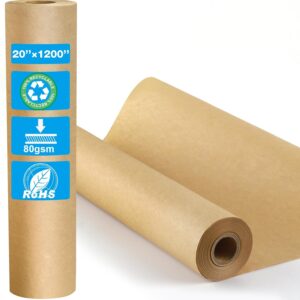
Brown Kraft Paper Roll- GLAMFIELDS 20″ x 1,200″ (100′) Brown Paper Roll for Packing, Moving, Gift Wrapping, Postal, Shipping, Parcel, Wall Art, Crafts, Bulletin Boards, Floor Covering, Table Runner
$19.99
Buy Now

Brushes Scrapers Spoons Set for Herb Grinder Pipe Cleaners Tool Pollen Kit for Herb Grinder (17)
$6.99
Buy Now
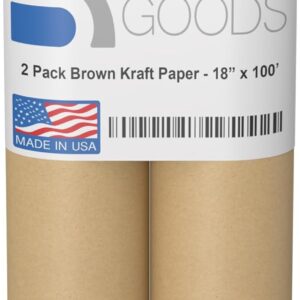
Bryco Goods (Pack of 2) Brown Kraft Packing Paper Rolls – 18″ x 100′ (1200”) – Moving Supplies, Gift Wrapping, Arts & Crafts, Bulletin Board Paper – Made in The USA
$22.97 Original price was: $22.97.$20.49Current price is: $20.49.
Buy Now
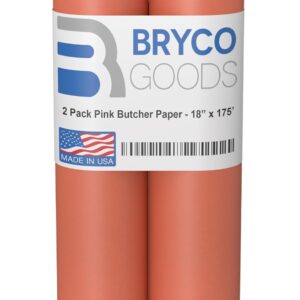
Bryco Goods (Pack of 2) Pink Butcher Paper Rolls, 18″x175′ (2100 Inch) Food-Grade Peach Butcher Paper for Smoker, BBQ, Grilling, Smoking Meat – USA Made – Unbleached, Uncoated and Unwaxed
$33.97 Original price was: $33.97.$29.99Current price is: $29.99.
Buy Now
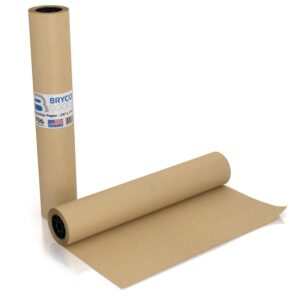
Bryco Goods 24 Inch x 175 Feet, Brown Butcher Paper Roll, Unbleached, Uncoated, Unwaxed, Food-Grade, Wide Kraft Paper for BBQ, Smoking, Grilling, Wrapping Meat, Table Covering – USA Made
$27.97
Buy Now
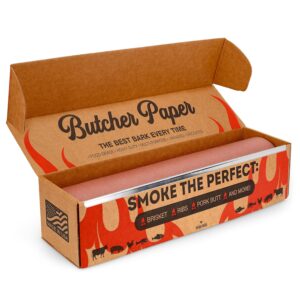
Bryco Goods Pink Butcher Paper Roll with Dispenser Box, 18″ x 175′ (2100”) Food-Grade Peach Butcher Paper for Smoker, BBQ, Grilling, Smoking Meat – USA Made – Unbleached, Uncoated and Unwaxed
$20.97
Buy Now

Bucket Hat for Men Women – Famous Us Route 66 Fashion Sun Cap Unisex Fisherman Hat
$6.99
Buy Now

Bucket Hats Fashion Sun Cap Packable Outdoor Fisherman Hat for Women and Men
$13.99
Buy Now
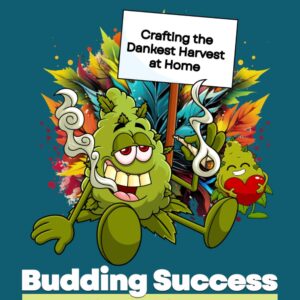
Budding Success: Your Essential Cannabis Cultivation Companion
$13.99
Buy Now
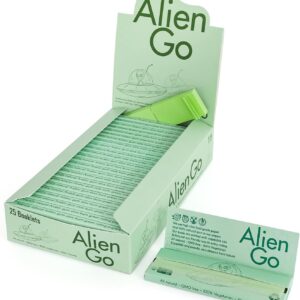
BudMan 1 1/4 Size Green Rolling Papers, 78mm Premium Rolling Papers, 25 Packs rolling papers with filters, Natural Arabic Gum, Tobacco Tools
$8.59 Original price was: $8.59.$7.80Current price is: $7.80.
Buy Now
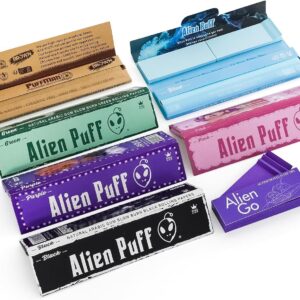
BudMan Rolling Papers, Color Rolling Papers, 7 packs 110mm kingsizeslim Ultra-Thin papers, Easy To Carry, Slow Burn, Tobacco Tools
$4.99 Original price was: $4.99.$4.50Current price is: $4.50.
Buy Now

Budtender Education: Cannabis Education for Budtenders from an Oakland Equity Perspective.
$13.90
Buy Now

Budtender Gift Cannabis Dispensary Just Another Bud Tender PopSockets PopGrip: Swappable Grip for Phones & Tablets
$12.99
Buy Now

Bugler Cigarette Rolling Paper Gummed Box, 24 Count (Pack of 1)
$31.99 Original price was: $31.99.$29.27Current price is: $29.27.
Buy Now
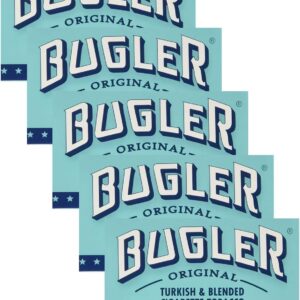
Bugler Cigarette Rolling Papers Single Wide(70mm) – Pack of 5
$51.99 Original price was: $51.99.$9.64Current price is: $9.64.
Buy Now
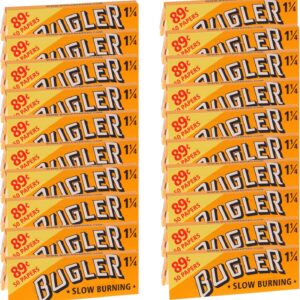
Bugler Orange Slow Burning Cigarette Rolling Papers 1 1/4 (78mm) – 24 Booklets
$19.79
Buy Now
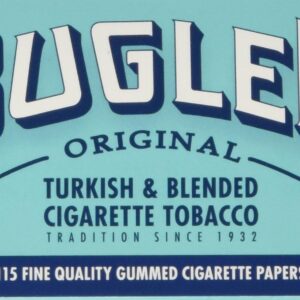
Bugler Original Cigarette Papers, 3pk
$6.26
Buy Now
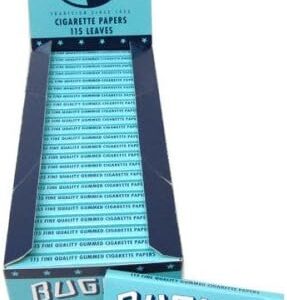
BUGLER ROLLING PAPERS SW 115 LEAVES UNFLAVORED FLAVOR PACK OF 24
$34.65
Buy Now

Building a Successful Cannabis Testing Laboratory : A Comprehensive Guide
$49.99
Buy Now
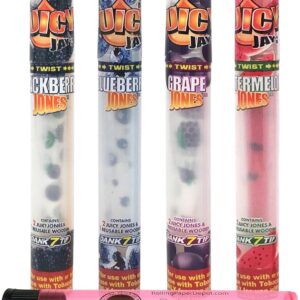
Bundle – 5 Items – Juicy Jay’s Juicy Jones Pre-Rolled Cone Sampler Pack (1 Pack of 4 Flavors) with Authentic Rolling Paper Depot KewlTube
$9.98
Buy Now
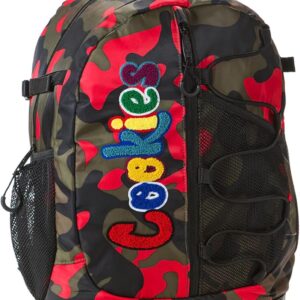
Bungee Smell Proof Backpack – Large Odorless Travel Backpack for Men & Women, Carry-On, Work, Stylish & Spacious Bag – Red Camo
$128.00
Buy Now

Burp Lids 12 Pack Curing Kit – Fits All Wide Mouth Mason Jar Containers – A Home Harvesting Essential. 12 lids + extraction pump. Vacuum sealed for successful cure.
$69.98
Buy Now

Burp Lids Automatic Pump | for Curing, Harvesting & Automatic Burping | Fits All Wide Mouth Jars
$39.99
Buy Now
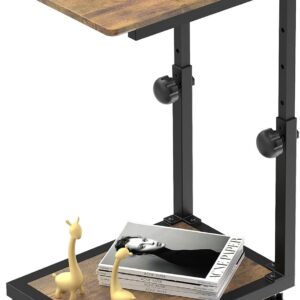
C Shaped End Table with Rolling Wheels, Height Adjustable Sofa Side Table for Small Space Bedroom, Industrial TV Tray Couch Table Cart for Living Room, Retro Brown & Black
$37.99 Original price was: $37.99.$36.00Current price is: $36.00.
Buy Now
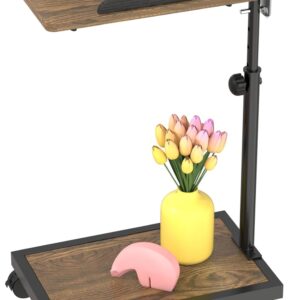
C Shaped End Table with Rolling Wheels, Height Adjustable Sofa Side Table for Small Spaces, Tiltable Surface for Tablets or Laptops, Industrial TV Tray Cart for Living Room, Retro Brown
$47.99 Original price was: $47.99.$36.00Current price is: $36.00.
Buy Now
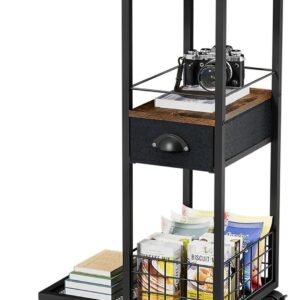
C Shaped Sofa Side Table: Couch End Table with Drawer – Bedside Table with Wheels – 19.7”L x 11.8”W x 28”H – C Mobile Tables with Storage Basket for Living Room Bedroom
$39.99 Original price was: $39.99.$37.99Current price is: $37.99.
Buy Now

C Table End Table Adjustable Height, 360°Swivel TV Tray Table for Small Spaces, Couch Tables That slide under, C Shaped Side Tables living room and bedroom for Sofa, Bed,Chair, Snack (Walnut Brown)
$59.64 Original price was: $59.64.$44.99Current price is: $44.99.
Buy Now

C Table End Table Adjustable Height, 360°Swivel TV Tray Table for Small Spaces, Couch Tables That Slide Under, C Shaped Side Tables with Wheels for Living Room and Bedroom, Bed
$49.99 Original price was: $49.99.$44.99Current price is: $44.99.
Buy Now

Califari Hat – Features Unique Strain Art – Ideal for Outdoor Fun
$24.20
Buy Now
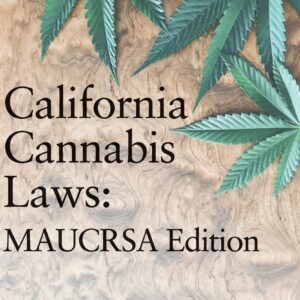
California Cannabis Laws: MAUCRSA Edition (Cannabis Codes of California)
$60.00
Buy Now
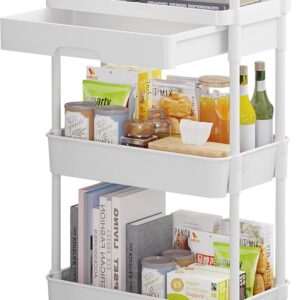
Calmootey 3-Tier Rolling Utility Cart with Drawer,Multifunctional Storage Organizer with Plastic Shelf & Metal Wheels,Storage Cart for Kitchen,Bathroom,Living Room,Office,White
$26.97 Original price was: $26.97.$25.19Current price is: $25.19.
Buy Now

Cannabinoids Cannabis Education Poster – Dispensary Decor Wall Hanging Decor Living Room Poster And Canvas
$17.99
Buy Now
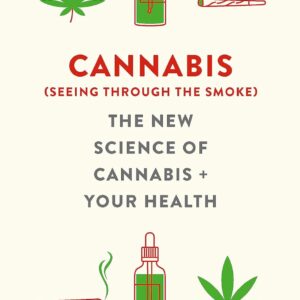
Cannabis (seeing through the smoke): The New Science of Cannabis and Your Health
$21.63
Buy Now
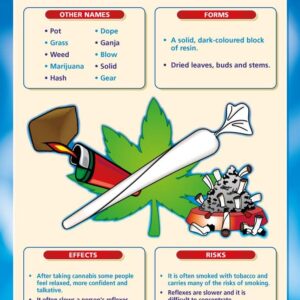
Cannabis | PSHE Posters | Gloss Paper measuring 33” x 23.5” | PSE Classroom Posters | Education Charts by Daydream Education
$7.95
Buy Now

Cannabis 101 – Quick Reference Guide – Cannabis Educational Series by Permacharts
$7.95
Buy Now
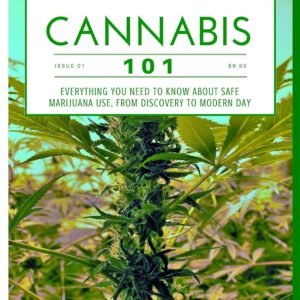
Cannabis 101: Everything You Need To Know About Safe Marijuana Use
$5.99
Buy Now

Cannabis 101: Understanding (and breaking into) the Industry
$2.99
Buy Now

Cannabis 420 Flex Fit Hat
$24.95
Buy Now
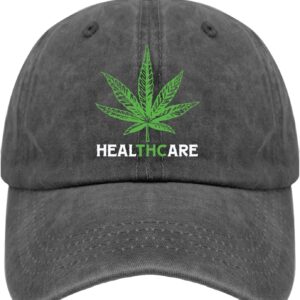
Cannabis 420 Weed THCHealthcare- Sun Hat Garden Hat Pigment Black Mens Beach Hat Gifts for Girlfriends Golf Hats
$14.99
Buy Now

Cannabis accessories Marijuana Leaf Smoke Weed Drugs | gift PopSockets PopGrip: Swappable Grip for Phones & Tablets
$11.72
Buy Now
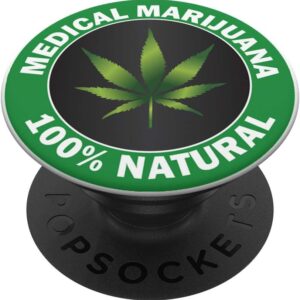
Cannabis accessories Marijuana Leaf Smoke Weed Drugs | gift PopSockets PopGrip: Swappable Grip for Phones & Tablets
$11.72
Buy Now

Cannabis accessories Marijuana Leaf Smoke Weed Drugs | gift PopSockets PopGrip: Swappable Grip for Phones & Tablets
$11.72
Buy Now

Cannabis accessories Marijuana Leaf Smoke Weed Drugs | gift PopSockets Swappable PopGrip
$14.99
Buy Now

Cannabis accessories Marijuana Leaf Smoke Weed Drugs | gift PopSockets Swappable PopGrip
$11.99
Buy Now
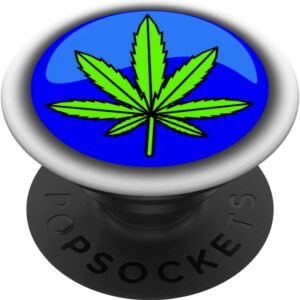
Cannabis accessories Marijuana Leaf Smoke Weed Drugs | gift PopSockets Swappable PopGrip
$11.99
Buy Now
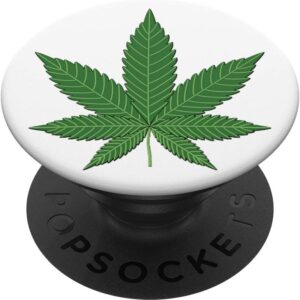
Cannabis accessories Marijuana Leaf Smoke Weed Drugs | gift PopSockets Swappable PopGrip
$11.99
Buy Now

Cannabis and CBD for Health and Wellness: An Essential Guide for Using Nature’s Medicine to Relieve Stress, Anxiety, Chronic Pain, Inflammation, and More
$16.99 Original price was: $16.99.$11.00Current price is: $11.00.
Buy Now
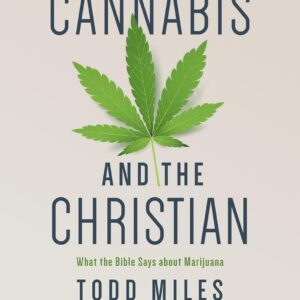
Cannabis and the Christian: What the Bible Says about Marijuana
$12.99
Buy Now
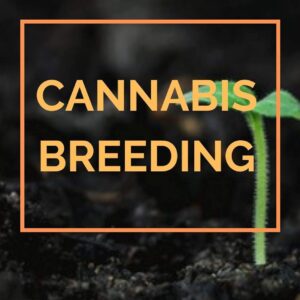
CANNABIS BREEDING : The Essential Guide To Cultivation And Propagation Of Cannabis
$18.99
Buy Now

Cannabis Breeding: The Art and Science of Crafting Distinctive Cultivars
$9.99
Buy Now

CANNABIS BUSINESS STARTUP: Easy and complete beginner’s guide to legally start, run and grow your successful marijuana business from scratch. Everything … in the cannabis industry (Marijuana guide)
$4.99
Buy Now

Cannabis Cloning: the Easy, Cheap, and Effective Way to Get It Right Every Time
$6.99
Buy Now
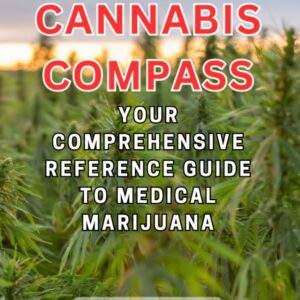
Cannabis Compass: Your Comprehensive Reference Guide to Medical Marijuana: Navigating Uses, Benefits, and Legality for Informed Wellness Decisions
$11.95
Buy Now
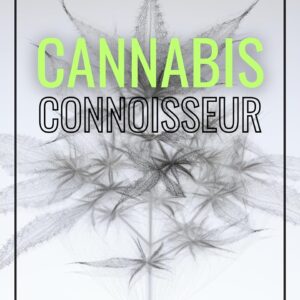
Cannabis Connoisseur: A Concise Grow Guide For 2024
$9.99
Buy Now

Cannabis Connoisseurs: The Unofficial Budtending Handbook
$9.99
Buy Now
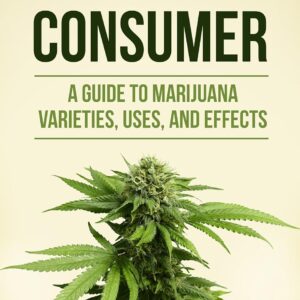
Cannabis Consumer: A Guide to Marijuana Varieties, Uses, and Effects
$3.99
Buy Now

Cannabis Crossbreeding: Creating Your Strain Library: Techniques for breeding cannabis to create unique strains
$3.99
Buy Now
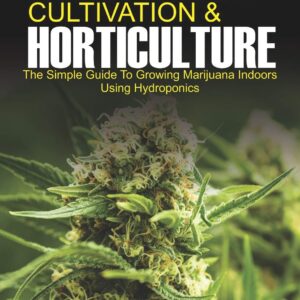
Cannabis Cultivation and Horticulture: The Simple Guide to Growing Marijuana Indoors Using Hydroponics
$12.99
Buy Now

Cannabis Cultivation Codes: An Advanced Grow Guide with Techniques for 2024
$29.99
Buy Now
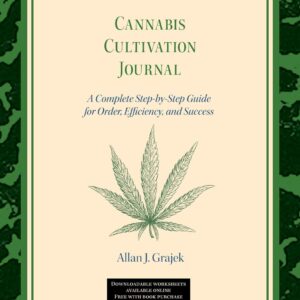
Cannabis Cultivation Journal: A Complete Step by Step Guide for Order, Efficiency, and Success
$19.76
Buy Now
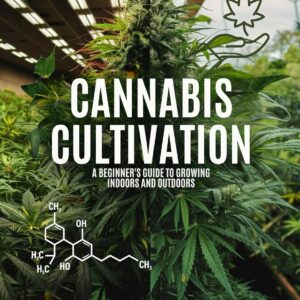
CANNABIS CULTIVATION: A BEGINNER’S GUIDE TO GROWING INDOORS AND OUTDOORS
$3.99
Buy Now
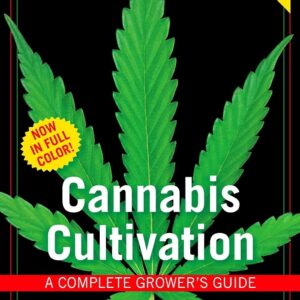
Cannabis Cultivation: A Complete Grower’s Guide
$14.74
Buy Now
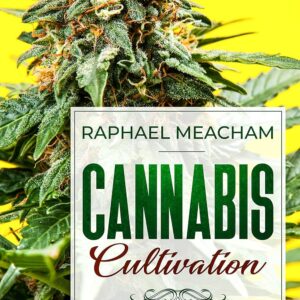
Cannabis Cultivation: Growing Marijuana Indoors (from Sourcing Seed to Harvesting Weed)
$2.99
Buy Now
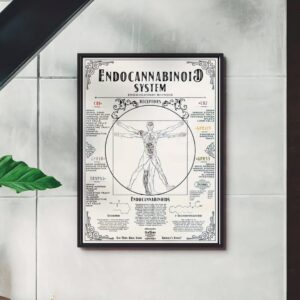
Cannabis Education ‘endocannabinoid System’ Poster – Decoration Home Dispensary Wall Decor Poster And Canvas
$17.99
Buy Now
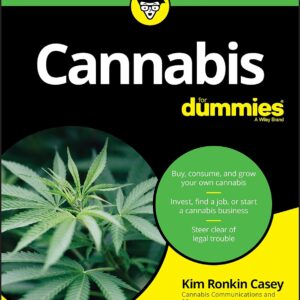
Cannabis For Dummies
$26.99 Original price was: $26.99.$24.11Current price is: $24.11.
Buy Now

Cannabis for Health: The Essential Guide to Using Cannabis for Total Wellness (Volume 2) (Cannabis Wellness)
$24.95 Original price was: $24.95.$12.21Current price is: $12.21.
Buy Now

Cannabis for Seniors
$18.95 Original price was: $18.95.$13.63Current price is: $13.63.
Buy Now

CANNABIS GROW BOOK: THE COMPLETE STEP BY STEP GUIDE TO MARIJUANA CULTIVATION
$2.99
Buy Now

Cannabis Grower’s Handbook: The Complete Guide to Marijuana and Hemp Cultivation
$44.95 Original price was: $44.95.$36.55Current price is: $36.55.
Buy Now

Cannabis growers Guide: The complete guide to marijuana Cultivation (Everything gardening)
$13.99
Buy Now
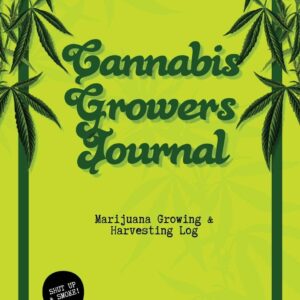
Cannabis Growers Journal: Marijuana Growing & Harvesting Log, Grow, Keeping Track Of Details, Record Strains, Medical & Recreational Weed Reference, Notebook
$19.99
Buy Now
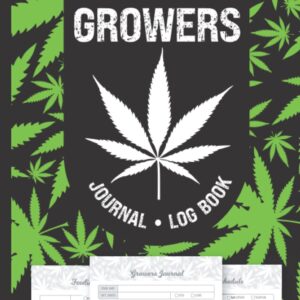
Cannabis Growers Journal: Weed Growing Journal Log Book Sized 6″x9″ (150 Pages) – Keep Track of Your Marijuana Cultivation – A Record Keeping Cannabis Log for Marijuana Farmers
$9.99
Buy Now
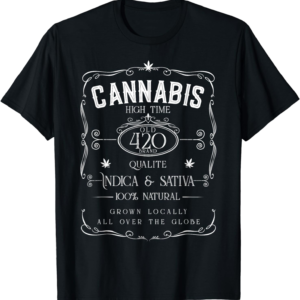
Cannabis High Time Old 420 Indica & Sativa Weed retro T-Shirt
$13.38
Buy Now
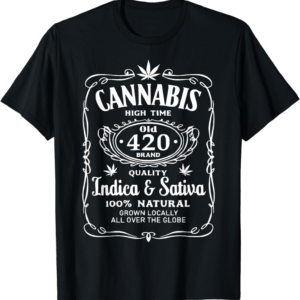
Cannabis High Time Old 420 Quality Indica & Sativa Weed T-Shirt
$17.99
Buy Now

Cannabis Is Medicine: How Medical Cannabis and CBD Are Healing Everything from Anxiety to Chronic Pain
$22.99 Original price was: $22.99.$17.18Current price is: $17.18.
Buy Now

Cannabis Jobs: How to Make a Living and Have a Career in the World of Legalized Marijuana
$16.99 Original price was: $16.99.$15.97Current price is: $15.97.
Buy Now
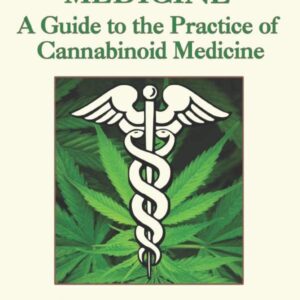
Cannabis Medicine: A Guide to the Practice of Cannabinoid Medicine
$25.00
Buy Now
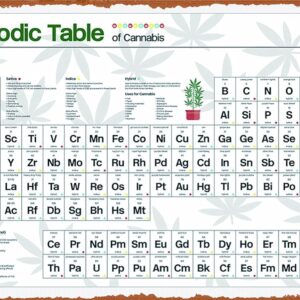
Cannabis Periodic Table Education Science Plaque Poster Metal Tin Sign 8″ x 12″ Vintage Retro Wall Decor
$9.97
Buy Now
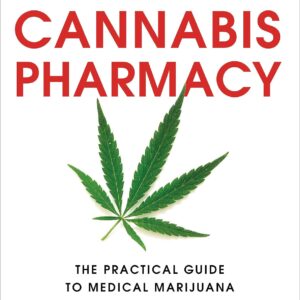
Cannabis Pharmacy: The Practical Guide to Medical Marijuana — Revised and Updated
$22.99 Original price was: $22.99.$19.35Current price is: $19.35.
Buy Now

Cannabis Rasta Jamaican Weed Figurine Double Ashtray – Jamaican Man Smoking Marijuana Joint Ashtray Holding 2 Ashtrays- Weed Hemp Pot Party Accessory
$24.99
Buy Now
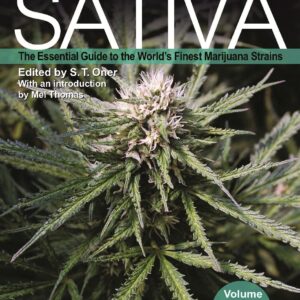
Cannabis Sativa Volume 2: The Essential Guide to the World’s Finest Marijuana Strains
$19.99
Buy Now

Cannabis Shirt Weed Pot Molecule THC Marijuana Stoner Gift T-Shirt
$16.90
Buy Now
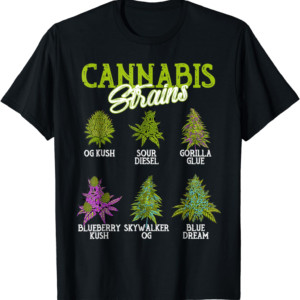
Cannabis Strain Weed T-Shirt
$14.99
Buy Now
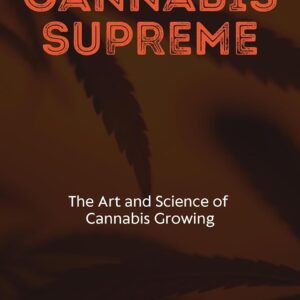
Cannabis Supreme: A Comprehensive Grow Guide for Sativa and Indica
$9.99
Buy Now
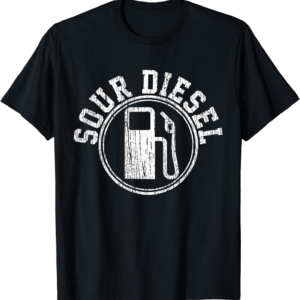
Cannabis T-Shirt – Sour Diesel Weed Funny Stoner Shirt Gift
$17.90
Buy Now
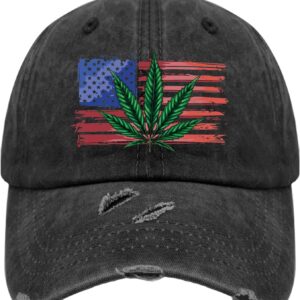
Cannabis THC Marijuana Weed 420 CBD Caps Gym Hat AllBlack Trucker Hats Women Gifts for Mom Baseball Hats
$15.99
Buy Now

Cannabis THC Marijuana Weed 420 CBD Trucker Hat Mom Hat AllBlack Womens Beach Hat Gifts for Girlfriends Cool Cap
$15.99
Buy Now
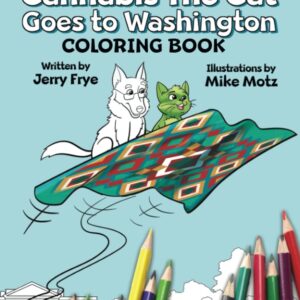
Cannabis The Cat Goes to Washington Coloring Book (The Adventures of Cannabis The Cat)
$6.99
Buy Now
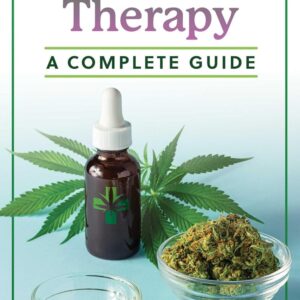
Cannabis Therapy: A Complete Guide (Sacred Planet)
$22.99 Original price was: $22.99.$18.68Current price is: $18.68.
Buy Now
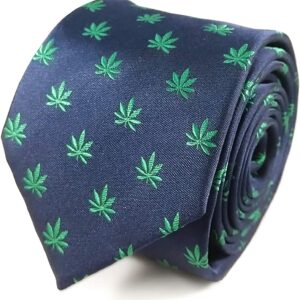
Cannabis Tie – Marijuana Necktie – Stoner Gift for men – 420 Gift for men – Pot Smoker gift for Men
$34.88 Original price was: $34.88.$29.88Current price is: $29.88.
Buy Now
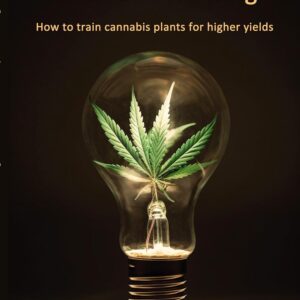
Cannabis Training: How to train cannabis plants for higher yields (Teddy’s green pages: Die Cannabis Edition)
$7.99
Buy Now

Cannabis vs. Marijuana: Language, Landscape and Context
$24.95
Buy Now
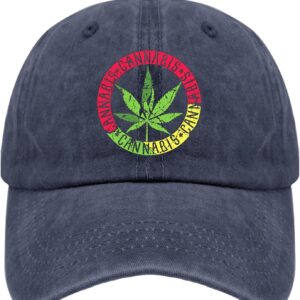
Cannabis Weed 4:20 THC Healthcare Sun Hat Womens Summer Hat Pigment Black Mens Baseball Cap Gifts for Grandpa Golf
$14.99
Buy Now

Cannabis Weed Fun – Sativa To Change The Things I Can Indica T-Shirt
$16.99
Buy Now

Cannabis Weed Marijuana notebook: Cannabis Weed Blunt Theme | Ruled White Paper | Blank Lined Workbook for Writing Notes | Large Marijuana Note Book (6 x 9 in) 120 Pages
$6.99
Buy Now

Cannabis Weed Racoon I Don’t Do Drugs I Set Plants On Fire PopSockets Standard PopGrip
$14.99
Buy Now

Cannabis: A Beginner’s Guide to Growing Marijuana
$16.95
Buy Now
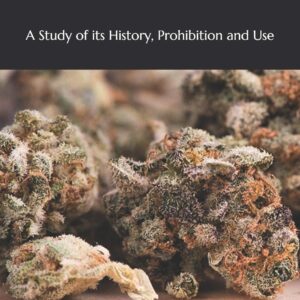
Cannabis: A Study of its History, Prohibition and Use
$14.99
Buy Now
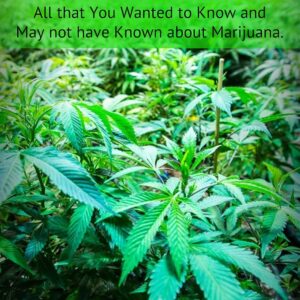
Cannabis: All that You Wanted to Know and May not have Known about Marijuana.
$14.15
Buy Now
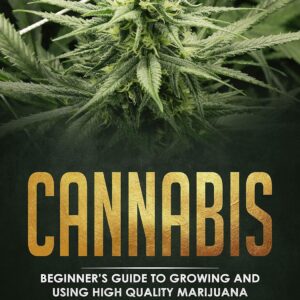
Cannabis: Beginner’s Guide to Growing and Using High Quality Marijuana
$4.99
Buy Now

Cannabis: Growing Cannabis Indoors And Outdoors 2 Books BONUS Bundle Set: The Ultimate Simple Guide To Producing Top-Grade Dank Marijuana Cannabis Indoors … Growing weed, Growing marijuana Book 1)
$2.99
Buy Now

Cannabis: Growing Cannabis Outdoors: The Ultimate Simple Guide To Producing Top-Grade Dank Marijuana Outdoors (How to grow weed, Growing marijuana outdoors, … book, Medical marijuana, Cannabis Book 1)
$3.49
Buy Now
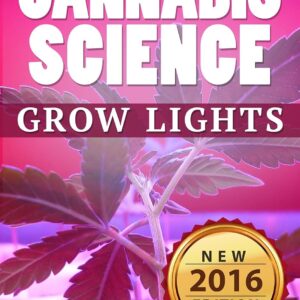
CANNABIS: Marijuana Growing Guide – Grow Lights (CANNABIS SCIENCE, Cannabis Cultivation, Grow Ops, Medical Marijuana Book 2)
$2.99
Buy Now
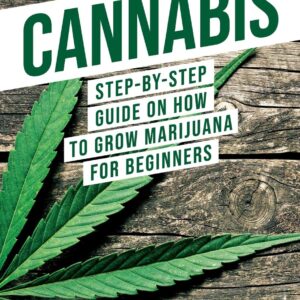
Cannabis: Step-By-Step Guide on How to Grow Marijuana for Beginners
$19.99
Buy Now
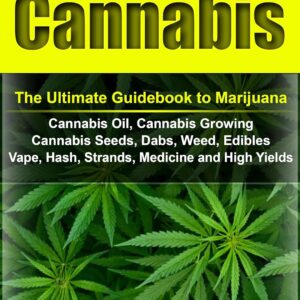
Cannabis: The Ultimate Guide to Marijuana, Cannabis Oil, Cannabis Growing, Cannabis Seeds, Dabs, Edibles, Vapes, Hash, Strands, Medicine and High Yields (Cannabis, Weed, Marijuana, Drugs)
$2.99
Buy Now
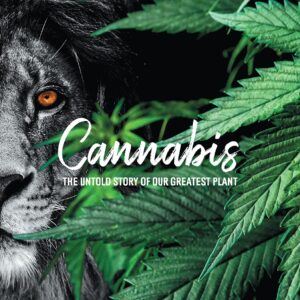
Cannabis: The Untold Story of Our Greatest Plant
$4.99
Buy Now

Cannabolish Smoke Odor Eliminating Candle, 7 oz, Natural Ingredients, Wintergreen scent
$16.99 Original price was: $16.99.$12.74Current price is: $12.74.
Buy Now

Cannabolish Wintergreen Smoke Odor Eliminator Spray and Air Freshener, 8 fl. oz, Natural Ingredients
$23.98 Original price was: $23.98.$11.99Current price is: $11.99.
Buy Now

Car Steering Wheel Cover Protector, Blue Cannabis Leaf Weed Plants Upgrade Thicken,Durable Soft Universal 15 Inch,Car Accessories for Diverse Cars for Men Women
$6.99
Buy Now
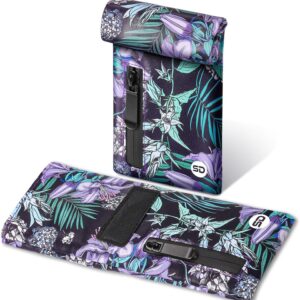
Carbon Lined Bags Airtight Waterproof Zipper Bag with Pocket Size, Durable Water Resistant Bag Portable Travel Pouch Great Gifts for Friends (Purple)
$18.99 Original price was: $18.99.$9.99Current price is: $9.99.
Buy Now
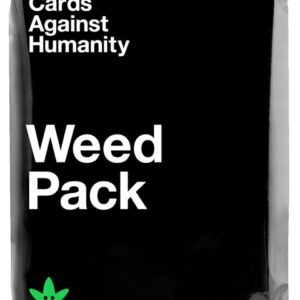
Cards Against Humanity: Weed Pack • Mini Expansion
$9.99
Buy Now

Carson MicroBrite Plus 60x-120x LED Lighted Pocket Microscope, Portable Handheld Microscope for Adults, Mini Microscope for Student Science Lab, STEM Educational Portable Microscope (MM-300)
$17.00 Original price was: $17.00.$14.99Current price is: $14.99.
Buy Now
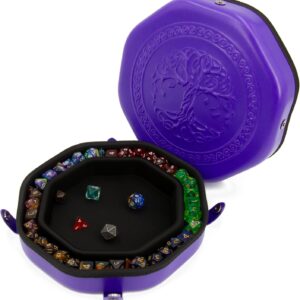
CASEMATIX Dice Tray and Dice Storage Case for Up to 115 RPG Dice – Dice Tray for Rolling with Magnetic Snaps, Embossed Tree of Life Design and Non-Scratch Interior for Random Rolls Dice Protection
$29.99
Buy Now
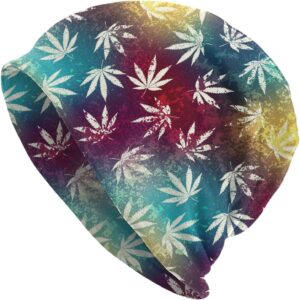
Casual Scarf Bandana Loose Hat Stretch Headwear Beanie Hat
$13.99
Buy Now
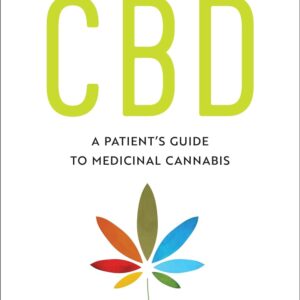
CBD: A Patient’s Guide to Medicinal Cannabis–Healing without the High
$21.95 Original price was: $21.95.$16.95Current price is: $16.95.
Buy Now
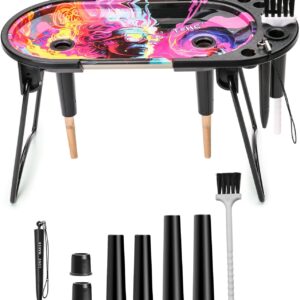
CHEEMAR Rolling Tray Cone Loader for King Size&1 1/4 Size Pre Rolled Cone,Cute Decorative Cone Filler – Perfect for Home or Travel-7.28” x 3.74”
$9.98
Buy Now

Chicken Pot Pie design Marijuana Cannabis Funny Pun design T-Shirt
$17.95
Buy Now
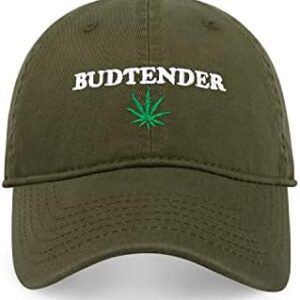
ChoKoLids Budtender Dad Hat Cotton Baseball Cap Polo Style Low Profile
$19.99
Buy Now
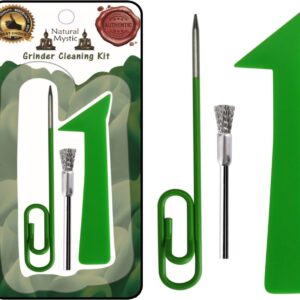
Cigarette Rolling Machine Filter Tips – Rolls King Size & 78mm Paper Fits Easily On Rolling Tray Rolled Cone Loader Funnel Tool Load Raw Tobacco Evenly in Seconds Easy Packing Perfect for Glass Tips
$4.99
Buy Now
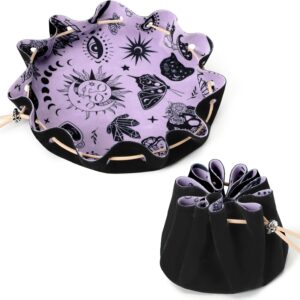
CiyvoLyeen Rolling Black Drawstring Bag with Felt DND Dice Tray – Perfect for RPG Players, Tabletop Gamers, DND Accessories Gifts – Ideal for Jewelry, Coins, Keys
$38.95 Original price was: $38.95.$13.99Current price is: $13.99.
Buy Now
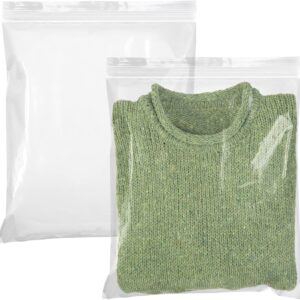
Clear Zip Bags 14 x 16 Inch. Pack of 100 Plastic Reclosable Zipper Bags 2 Mil. Resealable Plastic Bags. Waterproof Poly Bags Reclosable. Baggies for Weed, Pills, Jewelry, Samples
$34.99
Buy Now
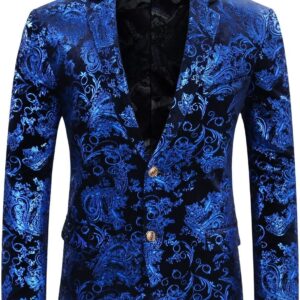
Cloudstyle Men’s Dress Floral Suit Notched Lapel Slim Fit Stylish Blazer Dress Suit
$60.99
Buy Now

CO2 Bags for Grow Tent – Set and Forget Generator Plants | Mushroom Bag Booster, Great Indoor Growing Rooms Preactivated 5LB
$34.21
Buy Now
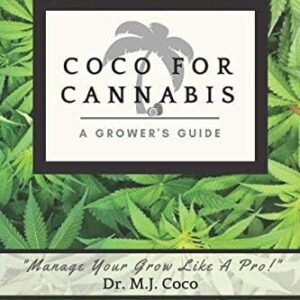
Coco For Cannabis: A Grower’s Guide
$11.99
Buy Now
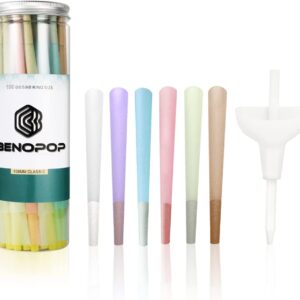
Colorful Pre Rolled Cones | Colorful Rolling Papers |100 Pack(4.2inches/108mm) Colorful King Size Pre Rolled Cones | Pre-Rolled Cones | Rolling Papers Cones | Rolling Paper with Tips |
$21.00 Original price was: $21.00.$6.99Current price is: $6.99.
Buy Now
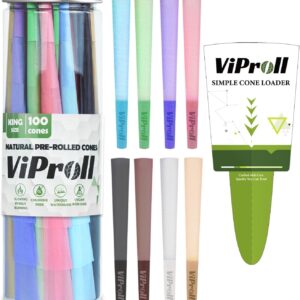
Colorful Pre Rolled Cones King Size 100 Pack, Natural Unbleached Cones Rolling Paper with W-shaped Tips, Slow & Even Burning Preroll Cones Packing Tubes Included for Party Gift (109mm)
$99.99 Original price was: $99.99.$9.99Current price is: $9.99.
Buy Now
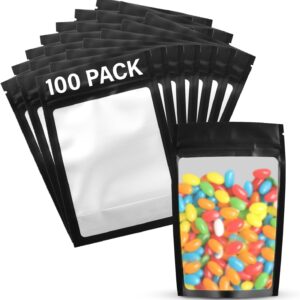
COLSEN Smell Proof Resealable Bags – Matte Black Mylar Bag 3×4 Inches (1oz) Strong Zipper Seal Clear Window Pouch for Food Storage, Candy, Snacks, Jewelry, Pills, Party Favors Packaging (100pack)
$10.99
Buy Now

Combo Storage Box – Multipurpose Decorative Box with Removable Tray, Magnetic Lock, 2 Glass Jars – Bamboo Box (Natural Box) (Foldable Tray)
$19.99
Buy Now
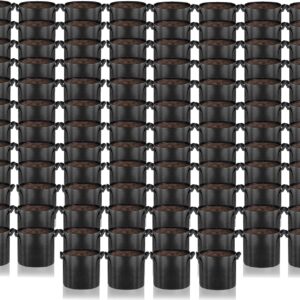
Commercial Grade Grow Bags – Pack of 100 15 Gallon Fabric Planters with Aeration and Handles, Perfect for Cannabis Cultivation
$289.99
Buy Now
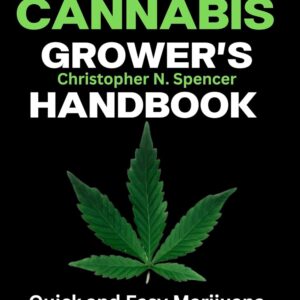
Complete Cannabis Grower’s Handbook : Quick and Easy Marijuana Cultivation for Beginners
$9.99
Buy Now

Composition Notebook: A Vibrant Journal for the Free-Spirited Cannabis Enthusiast
$5.99
Buy Now

Composition Notebook: Pink girly cannabis composition book
$6.99
Buy Now
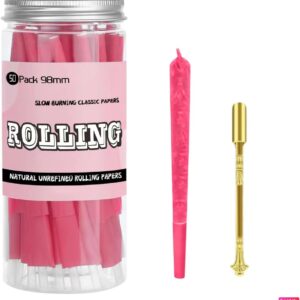
Cones Rolling Paper Pre Rolled Cones 98mm | Special Size | 50 Pack | Natural Rolling Papers with Tips & Golden Packing Spoon Kit (Special Size, 50)
$6.99
Buy Now
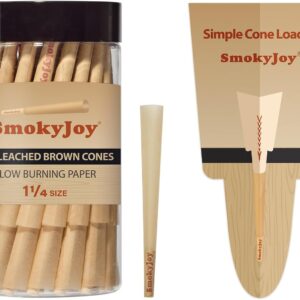
Cones Rolling Papers Pre Rolled Cones 1 1/4 Size – 50 Pack Preroll Pre Rolls Paper with Filter Tips and Packing Tubes Included
$7.99
Buy Now
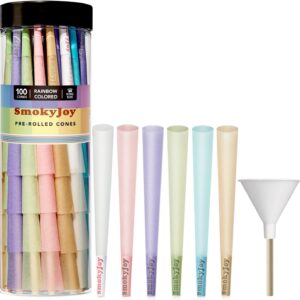
Cones Rolling Papers Pre Rolled Cones King Size – 100 Pack Colorful Preroll Pre Rolls Paper with Filter Tips and Packing Tubes Included
$9.99
Buy Now
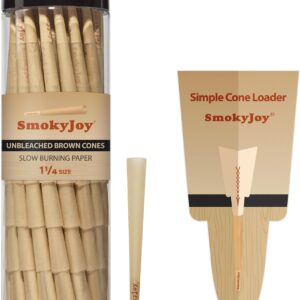
Cones Rolling Papers Pre Rolled Paper Cones 1 1/4 Size – 100 Pack Preroll Pre Rolls Paper with Filter Tips and Packing Tubes Included
$9.99
Buy Now
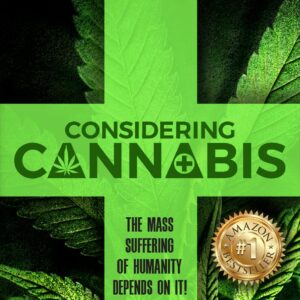
Considering Cannabis: The Mass Suffering of Humanity Depends On It!
$1.99
Buy Now
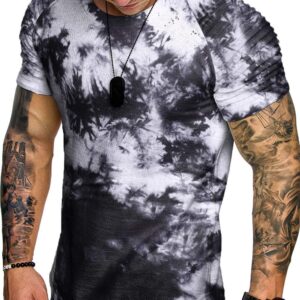
COOFANDY Men’s Muscle T-Shirt Pleated Raglan Sleeve Bodybuilding Gym Tee Short Sleeve Fashion Workout Shirts Hipster Shirt
$23.99
Buy Now
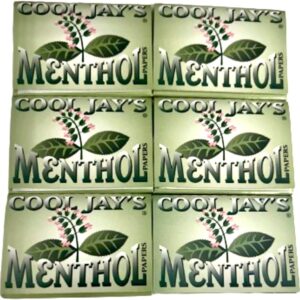
Cool Jay’s Menthol Rolling Papers 6 Pack 1.5, White
$51.99 Original price was: $51.99.$4.97Current price is: $4.97.
Buy Now
![COOL KNIGHT Herb Grinder [large capacity/fast/Electric ]-Spice Herb Coffee Grinder with Pollen Catcher/- 7.5" (Black)](https://mscannabiz.com/wp-content/uploads/2024/05/61ds5SPU0rL._AC_SL1500_-300x300.jpg)
COOL KNIGHT Herb Grinder [large capacity/fast/Electric ]-Spice Herb Coffee Grinder with Pollen Catcher/- 7.5″ (Black)
$51.97 Original price was: $51.97.$21.99Current price is: $21.99.
Buy Now

Cool Stoner Bear Polyresin Ashtray for Smoker Gifts – 4″x6″
$13.99
Buy Now
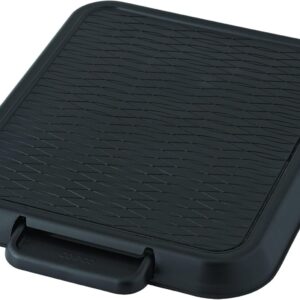
Copco Coffee Cab Rolling Countertop Small Appliance Stand – 2555-0217,Black
$17.99
Buy Now

Copper Tobacco Pipes Nozzle Tamper Flameout Prevention Tobacco Smoking Pressure Rod Tool (Skeleton)
$14.99
Buy Now
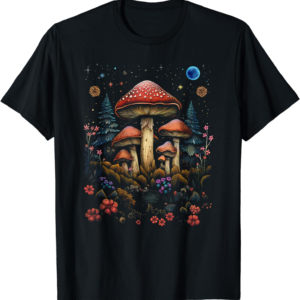
Cottagecore Mushroom Mycologist Goblincore T-Shirt
$18.95
Buy Now

Could Be Makeup Could Be Weed Funny Makeup Bag Friend Gifts Funny Weed Leaf Cosmetic Bag Travel Accessories Organizer Bag Toiletry Case For Women Best Friends Sister Weed Gifts(Balck)
$9.99 Original price was: $9.99.$5.99Current price is: $5.99.
Buy Now
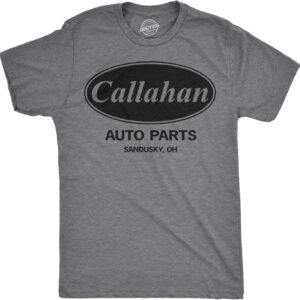
Crazy Dog Mens Callahan Auto Parts T Shirt Funny Graphic Novelty Tee
$12.99
Buy Now

Crop Steering/Stress Steering 101 and Indoor Commercial Cannabis Cultivation Practices: based on one-gallon Coco and Athena Pro Line Salts for indoor cultivation with LED’s
$14.74
Buy Now
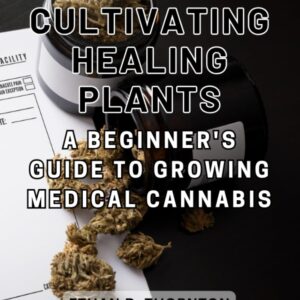
Cultivating Healing Plants: A Beginner’s Guide to Growing Medical Cannabis: Navigate the World of Medical Marijuana Cultivation with Confidence and Responsible Practices
$12.95
Buy Now

Curious About Cannabis (3rd Edition): A Scientific Introduction to a Controversial Plant (Cannabis Science Textbook)
$54.99
Buy Now

Curious About Cannabis Educator Workbook: Games, Activities, Lessons and Resources for Cannabis Educators
$17.25
Buy Now
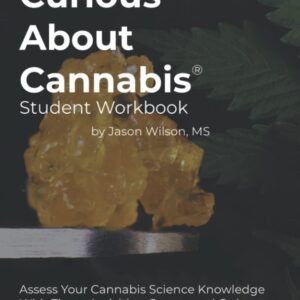
Curious About Cannabis Student Workbook: Exercise Your Cannabis Science Knowledge With Activities, Games, Experiments and Quizzes
$14.20
Buy Now

Custom Baseball Cap with Your Text,Personalized Adjustable Trucker Caps Casual Sun Peak Hat for Gifts
$6.00
Buy Now

Custom Faces T-Shirt for Men, Customized Funny Picture Shirts for Dad Husband Boyfriend, Personalized Tee Great Gift
$19.99
Buy Now

Cute Pink Cartoon Metal Rolling Tray 7”x5.5” – Perfect Smoke Accessories for Rolling Papers, Grinders, Set and PreRolled Cones – Original Custom Fan Art
$14.95
Buy Now
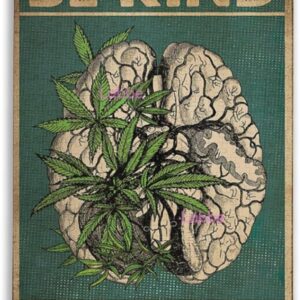
Cute Puzzles for Women Be Kind to Your Mind Vintage Cannabis Art Cannabis Marijuana Love Weed Art Jigsaw Puzzles Family Puzzle to Enjoy Decompression Education Gift Intellective Game 1000 Pieces
$21.99
Buy Now

Cute Rolling Tray Pink Metal Tray, Metal Small Tray, Premium Storage Tray, 7.1×5.51inches
$9.99 Original price was: $9.99.$7.99Current price is: $7.99.
Buy Now
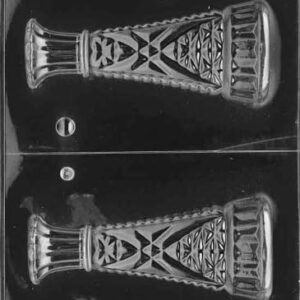
Cybrtrayd Life of the Party Bud Vase Flower Chocolate Candy Mold in Sealed Protective Poly Bag Imprinted with Copyrighted Cybrtrayd Molding Instructions
$8.95
Buy Now
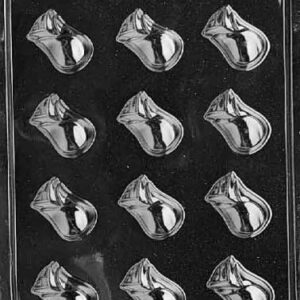
Cybrtrayd Life of the Party F075 Rose Bud Flower Chocolate Candy Mold in Sealed Protective Poly Bag Imprinted with Copyrighted Cybrtrayd Molding Instructions ,
$8.95
Buy Now
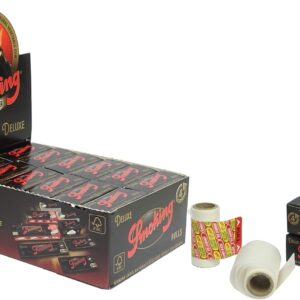
De Luxe Rolling Paper Pack of 24
$29.99
Buy Now
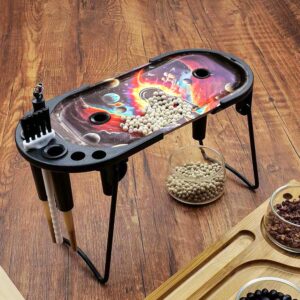
Decorative Metal Tray Set – Includes Foldable Stand & Accessories, Multi-Functional Large Tray with Stylish Pattern
$12.99
Buy Now
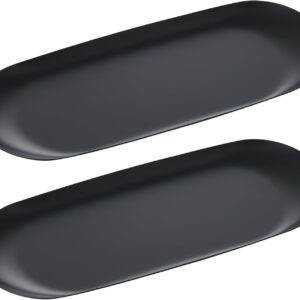
Decorative Serving Tray for Bathroom, Small Jewelry Tray, Black Jewelry Bowl Dish 8.9′
$9.48
Buy Now

Decorative Tray Metal Tray Set Includes Foldable Stand and Accessories,Multi-Functional Large Tray with Cool Pattern,11.9″x6.5″
$29.99 Original price was: $29.99.$14.99Current price is: $14.99.
Buy Now
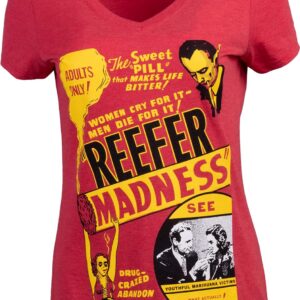
Devil’s Harvest (1942 Poster) | Funny Absurd Vintage Drug War Marijuana Weed Pot Propaganda Women’s V-Neck T-Shirt
$14.99
Buy Now
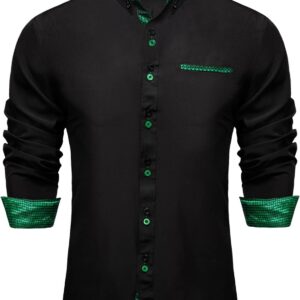
DiBanGu Mens Long Sleeve Dress Shirts,Classic Button Down Dress Shirt Regular Fit Casual Cotton Shirt Formal Business
$31.99
Buy Now
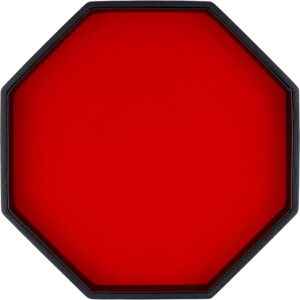
Dice Rolling Tray, Felt Lined PU Leather Octagon Dice Tray for Dungeon Crawler Games, Red
$22.95
Buy Now
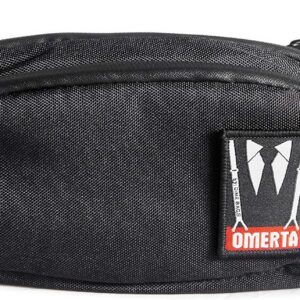
Dime Bags – Outfit – Carbon-Lined Waist Bag with Combination Lock (Black)
$59.99
Buy Now

DIME BAGS All-in-One Padded Pouch with and Carbon Filter
$52.99 Original price was: $52.99.$16.99Current price is: $16.99.
Buy Now

DIME BAGS Goodfella with Lock | Carbon Filter Locking Padded Pod | Activated Carbon Technology and TSA-Approved Combination Lock
$54.99
Buy Now
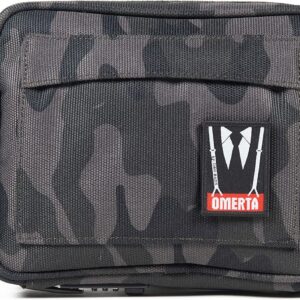
DIME BAGS Omerta Boss with Lock Padded Pouch with Activated Carbon Technology | 3-Digit Combo Lock | Low-Profile, Sleek Design
$29.99
Buy Now
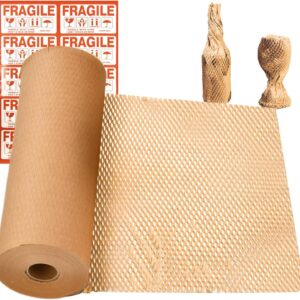
Dish Packing Kit Glassware Moving Supplies for Friagle Items 15″x500′ Honeycomb Packing Paper Roll Recyclable Moving Paper with Fragile Stickers Alternative to Bubble Cushioning Wrap for Shipping
$35.99
Buy Now
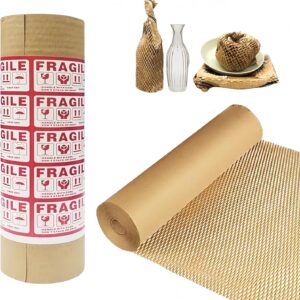
Dish Packing Kit Moving Supplies 15″ x660′ Honeycomb Wrapping Paper, Large Recyclable Expandable Bubble Cushion Wrap Roll Packing Material for Fragile Items Breakables Plate Glassware Bottle, 80GSM
$65.89 Original price was: $65.89.$49.99Current price is: $49.99.
Buy Now
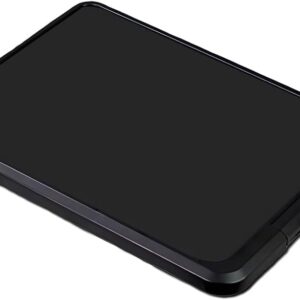
Diteje Kitchen Appliance Sliding Tray,Appliances Rolling Slider Moving Caddy Under Cabinet Countertop Compatible with Ninja Grill,KitchenAid Stand Mixer,Keurig Coffee Maker,Instant Pot,Blender
$34.99 Original price was: $34.99.$22.99Current price is: $22.99.
Buy Now
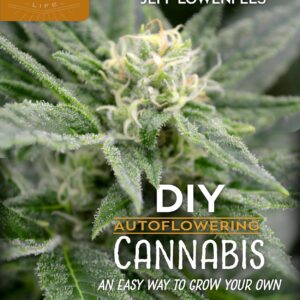
DIY Autoflowering Cannabis: An Easy Way to Grow Your Own (Homegrown City Life, 7)
$29.99 Original price was: $29.99.$27.89Current price is: $27.89.
Buy Now
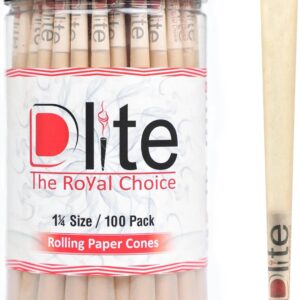
Dlite 1¼ Size Pre-Rolled Cones, 150 Pack, 84 MM, Unbleached Natural Rolling Paper, Vegan, Classic Pre rolled paper with Tip, Includes Packing stick
$12.99
Buy Now
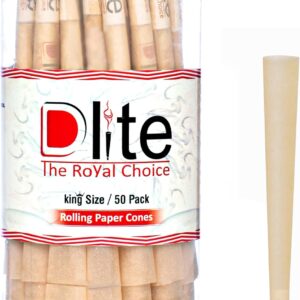
Dlite King Size Pre-Rolled Cones, 100 Pack, 109 MM, Unbleached Natural Rolling Paper, Vegan, Classic Pre rolled paper with Tip, Includes Packing stick
$9.99
Buy Now
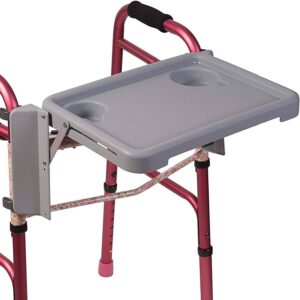
DMI Walker Tray, Rollator Tray, Mobility and Walker Accessory Tray Table Fits Most Standard Walkers, Folding with Two Cup Holders and Tool Free Assembly, 16 x 11.8 inch
$44.99 Original price was: $44.99.$29.99Current price is: $29.99.
Buy Now

DOCILA Fashion Women’s White Bucket Hat Men’s Foldable Green Leaf Print Sunshade Cap Two Sided Travel Fisherman Hat
$13.99
Buy Now

Dog Lover Gifts Cute Makeup Bag Accessories for Women Girl Funny Dog Mom Gifts Cosmetic Bag for Female Her Girl Niece Travel Toiletry Bag for Dog Owner
$11.99 Original price was: $11.99.$8.99Current price is: $8.99.
Buy Now

Dreo 4L Smart Humidifiers for Bedroom, Quiet Supersized Cool Mist Ultrasonic Humidifier with Diffuser and Nightlight, 32 Hour Long Runtime for Home, Indoor, Nursery, Plant(Black)
$63.95 Original price was: $63.95.$61.06Current price is: $61.06.
Buy Now

Drive Medical 13067 Non Tilt Top Overbed Table with Wheels and Secure Height Adjustment,Tray Table for Hospital or Home Use, Bedside Rolling Overbed Table, Silver Vein
$99.99 Original price was: $99.99.$54.98Current price is: $54.98.
Buy Now
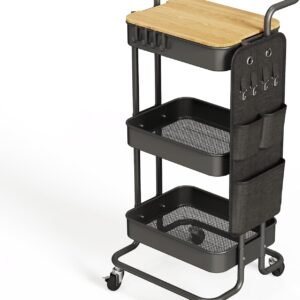
DTK 3 Tier Metal Utility Rolling Cart with Table Top and Side Bags, Tray Storage Organizer Wheels, Art Craft 4 Hooks for Kitchen Bathroom Office Living Room (Black)
$35.00
Buy Now

DUDHUH Mens Hoodie Fashion Pullover Letter Print Tracksuit Techwear Casual Coat Hip-Hop Sweatshirt
$39.99
Buy Now
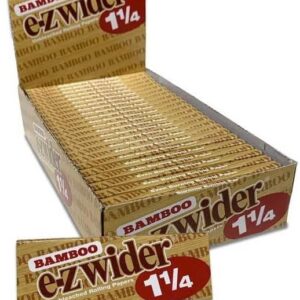
E-Z Wider Bamboo Cigarette Rolling Paper 1 1/4 (78mm) – Box of 24
$46.84
Buy Now
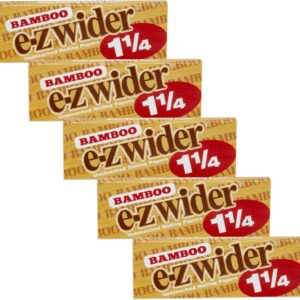
E-Z Wider Bamboo Cigarette Rolling Paper 1 1/4 (78mm) – Pack of 5
$15.99
Buy Now
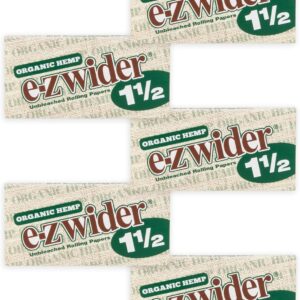
E-Z Wider Organic Hemp Cigarette Rolling Paper 1 1/2 – Pack of 5
$15.99
Buy Now
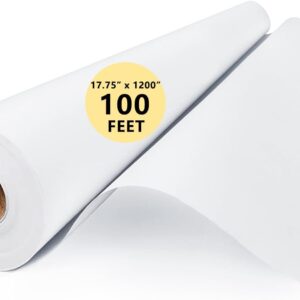
Easter Art Easel Paper Roll for Crafts, Drawing & Painting, 17.75″x1200″ (100′) White Gift Wrapping Craft Kraft Bulletin Board Poster Banner Coloring Paper, Kids Art Supplies, Wedding Floral Supplies
$14.99 Original price was: $14.99.$9.99Current price is: $9.99.
Buy Now
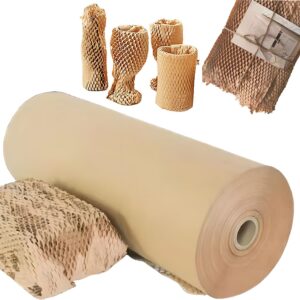
Eco Friendly Honeycomb Packing Paper, 15″ x 820′ Honeycomb Cushioning Wrap Roll for Moving Shipping Packaging Gifts, Recyclable Paper Bubble Wrap Alternative
$60.99
Buy Now
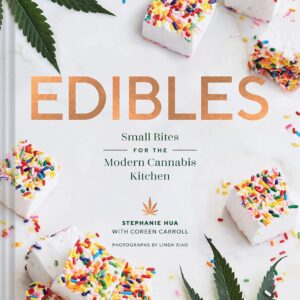
Edibles: Small Bites for the Modern Cannabis Kitchen
$19.95 Original price was: $19.95.$17.91Current price is: $17.91.
Buy Now
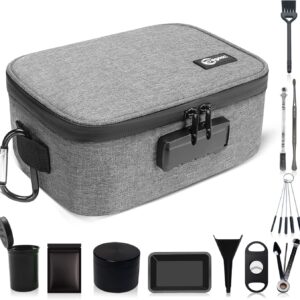
Egooz Large Smell Proof Stash Bags with 11 items – Waterproof Smell Proof Containers Case for Travel and Home, Kitchen Smell Proof Box for Storing Your Products, Grey
$29.95
Buy Now
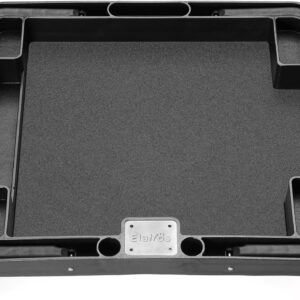
ELAFROS Tool Creeper Rolling Tool Tray With 4 Swivel Casters Caddy Tray For Automotive, Mechanics, DIY enthusiasts, and garages,55 lbs Capacity
$49.99 Original price was: $49.99.$29.99Current price is: $29.99.
Buy Now
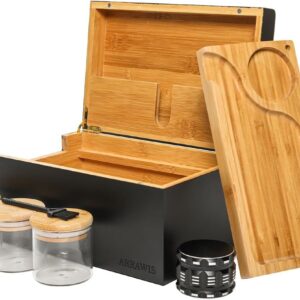
Elegant Bamboo Storage Box with Removable Tray and Glass Jars – Perfect for Tea, Coffee, and Small Items Stylish Decorative Organizer with Magnetic Lid – Ideal Gift for Home or Office Use
$39.99
Buy Now
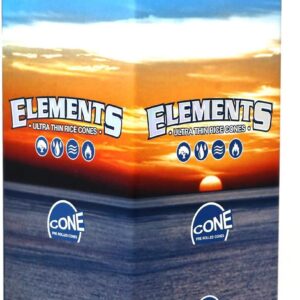
Elements 1 1/4 Rice Paper Pre-Rolled Cones (900 Pack)
$68.93
Buy Now
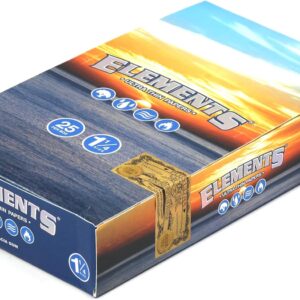
Elements 1.25 1 1/4 Size Ultra Thin Rice Rolling Paper Full Box Of 25
$18.50
Buy Now
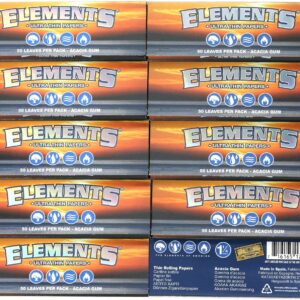
Elements 1.25 1 1/4 Size Ultra Thin Rice Rolling Paper, 50 Count (Pack of 10)
$9.99
Buy Now
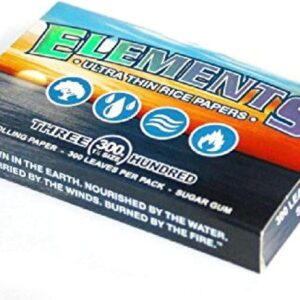
ELEMENTS 300 Ultra Thin Rice Rolling Paper 1.25 1 1/4 Size, 1 Pack = 300 Leaves
$4.69 Original price was: $4.69.$4.27Current price is: $4.27.
Buy Now
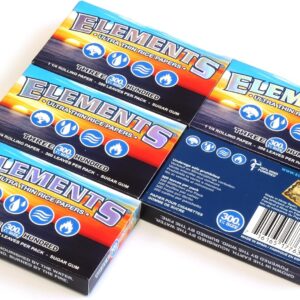
ELEMENTS 300 Ultra Thin Rice Rolling Paper 1.25 1 1/4 Size, 5 Pack = 1500 Leaves
$9.99
Buy Now
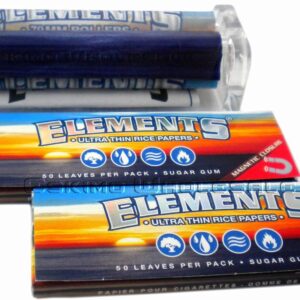
Elements 79mm Cigarette Rolling Machine + 2 Packs of Elements Ultra Thin Rice 1¼ Rolling Papers
$49.98 Original price was: $49.98.$5.86Current price is: $5.86.
Buy Now
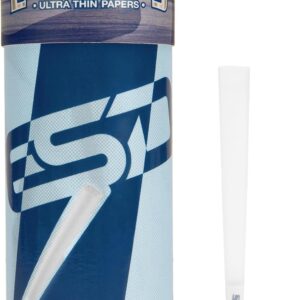
Elements Cones King Size | 50 Pack | Natural Pre Rolled Rice Rolling Paper with Tips and Packing Sticks Included
$13.99
Buy Now
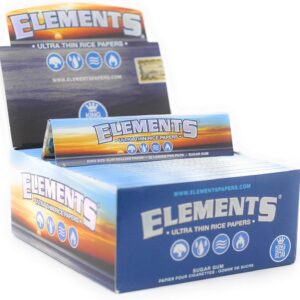
Elements King Size Slim Ultra Thin Rice Rolling Paper Full Box of 50 Packs
$27.90
Buy Now
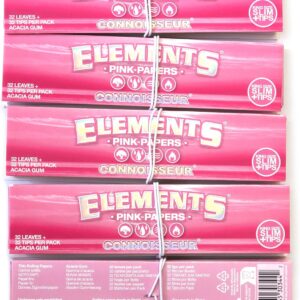
Elements PINK Connoisseur Thin King Size Slim Papers + Tips – 5 booklets
$9.99
Buy Now
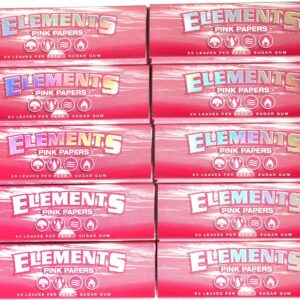
Elements PINK size 1 1/4 rolling paper – 10 booklets / 500 papers
$8.69
Buy Now

Elements Pre-Rolled Filter Tips Prism Design – Perforated – 10 Pack Bonus ESD Scoop Card – 50 Tips Per Pack = 500 Tips – Rolling in Style
$8.99
Buy Now
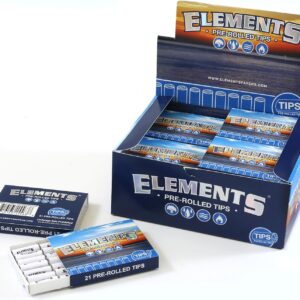
Elements Pre-Rolled Tips – 20 Pack with 21 Tips per Pack
$21.34 Original price was: $21.34.$17.85Current price is: $17.85.
Buy Now
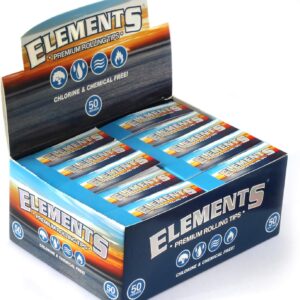
ELEMENTS Premium Rolling Tips box of 50
$18.00
Buy Now
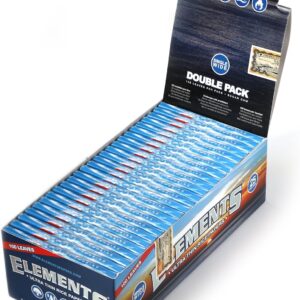
Elements Single Wide Rice Thin Cigarette Rolling Papers, Sugar Gum, 100 Count (Pack of 25)
$21.98
Buy Now
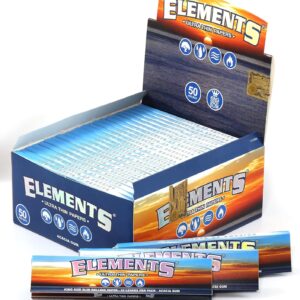
ELEMENTS Slim King Size ULTRA THIN RICE rolling paper – 5 booklets, total 160 papers
$9.99 Original price was: $9.99.$7.89Current price is: $7.89.
Buy Now
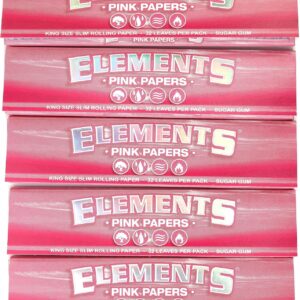
Elements Ultra thin King Size Slim PINK rolling paper – 5 booklets / 160 papers
$5.64
Buy Now
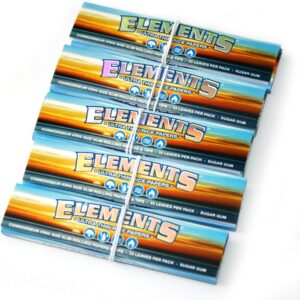
Elements Ultra Thin Rice Connoisseur King Size Slim With Tips Rolling Paper 5 Pack
$9.91
Buy Now
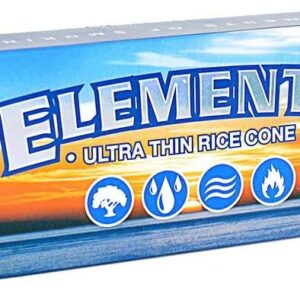
Elements Ultra Thin Rice Rolling Papers – King Size Cones 40 Per Pack (1 Pack)
$9.05
Buy Now
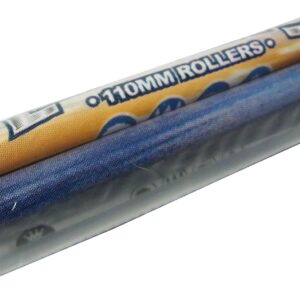
Elements Ultra Thin Rice Rolling Papers – King Size Roller 110mm Rolling Machine (1 Roller)
$6.99
Buy Now
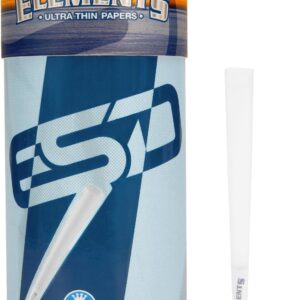
Elements Ultra Thin Rolling Paper Cones King Size | 100 Pack | Pre Rolled with Tips and Packing Tubes Included
$21.99
Buy Now
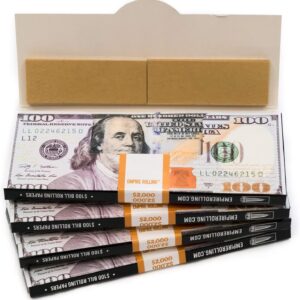
Empire Rolling® Benny Original 4-Pack – King Size Ultra-Thin Rolling Papers with Tips, $100 Bill Design, Natural Fibers, 111mm x 44.5mm (80 Papers + 80 Tips)
$9.99 Original price was: $9.99.$9.49Current price is: $9.49.
Buy Now

Encouragement Gifts for Women Inspirational Gifts Makeup Bag Funny Birthday Gift for Sister Cosmetic Bag Motivational Gift for Best Friend Travel Cosmetic Pouch Graduation Christmas Gift
$7.99
Buy Now
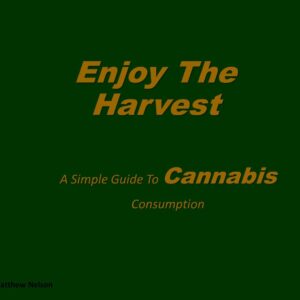
Enjoy The Harvest: A simple Guide To Cannabis Consumption
$2.99
Buy Now
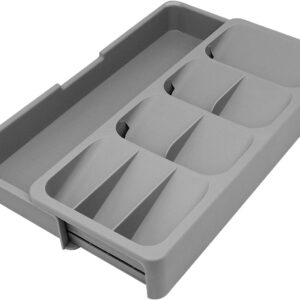
EOOXEKFX Weiliya UNRRZLCA Kitchen Drawer Organizer Tray,Drawer Organiser,Cutlery Tray,Expandable Utensil Tray for Kitchen,Compact Plastic Storage Organisation for Spoons
$26.98 Original price was: $26.98.$19.99Current price is: $19.99.
Buy Now
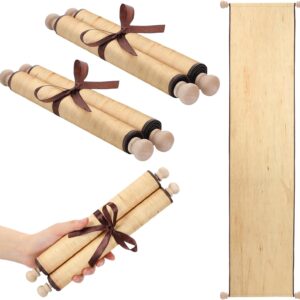
Epakh 2 Pack Blank Paper Scrolls 9 x 144 Inches Wrapped on Wood Rod for Writing, Drawing, Calligraphy, Wedding Vows, Cosplay Prop, Renaissance Festivals, Tabletop Role Playing Game(Old Color)
$16.99
Buy Now
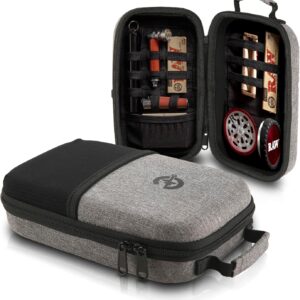
Epulse Smell Proof Box, Smell Proof Bag Case, Stash Containers, Small Lock Box, Vape Case, Pouch Travel, Smellproof Stash Bag for Accessories, Anti Smell Bags (8×6 in, Grey)
$24.99
Buy Now

Evil Smile Face Graphic Novelty Sarcastic Funny T Shirt
$14.95
Buy Now
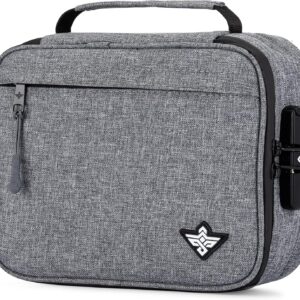
Exodus Storage Travel Bag with Combination Lock Water Resistant Organizer Case Toiletry Bag Dopp Kit Makeup or Toiletry Bag for Men & Women (Grey)
$39.99
Buy Now

EZ WIDER 1 1/2 Rolling Papers 24 BOOKLETS
$53.70 Original price was: $53.70.$47.69Current price is: $47.69.
Buy Now

Fantasy Gifts, Ornament, Alien Smoking Ashtray, Home Décor, Multicolor, 4 inches
$11.99
Buy Now
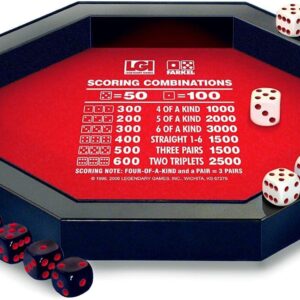
Farkel Game Set with Deluxe Dice Rolling Tray, Built-in Dice-Collection Channel, 2 Sets of Dice, 40-Sheet Scorepad, Classic Family Game
$29.99 Original price was: $29.99.$26.99Current price is: $26.99.
Buy Now
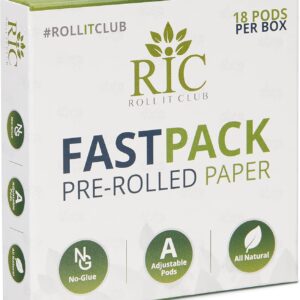
FASTPACK | Natural Pre Rolled Rolling Paper with Tips & Packing Tubes Included
$51.99 Original price was: $51.99.$11.97Current price is: $11.97.
Buy Now
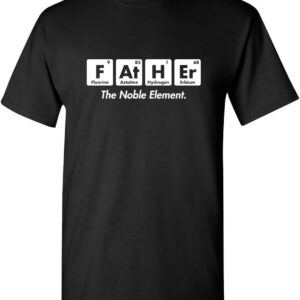
Father The Noble Element Joke Humor Step Father Funny T Shirt
$14.99
Buy Now
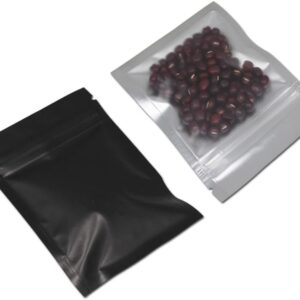
FERENLI 100 Pcs Mylar Zipper Lock Bag Food Storage Matte Foil Airtight Bags with Front Window Plastic Candy Packaging Pouch for Zip Flat Heat Seal Lock Resealable (7.5x10cm (3×3.9 inch), Black)
$9.39
Buy Now

FERENLI 100 Pieces Stand Up Clear Front Zipper Lock Resealable Aluminum Mylar Foil Plastic Packaging Bag for Zip Heat Seal Package Lock with Tear Notch Long Term Food Storage 3.5×5.5 inch
$9.89
Buy Now

Fiber optic cap LED hat with 7 colors luminous glowing EDC baseball hats USB Charging light up caps even party led Halloween cap for event holiday
$39.95
Buy Now
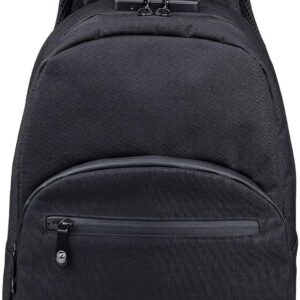
FIREDOG Mini Smell Proof Backpack with Lock for Men Women, Smell Proof Bookbag for Travel (Black)
$36.99
Buy Now
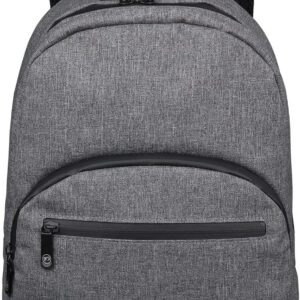
FIREDOG Mini Smell Proof Backpack with Lock, Smell Proof Bag for Men Women Travel (Grey)
$75.00 Original price was: $75.00.$36.99Current price is: $36.99.
Buy Now
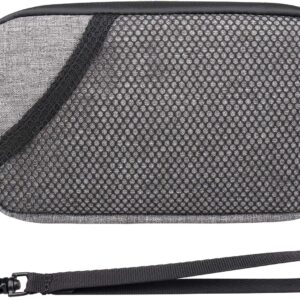
FIREDOG Odor Proof Bags, Smell Proof Pouch Carbon Lined Travel Stash Storage Smellproof Bags (Grey, 6.5″x4″)
$18.99 Original price was: $18.99.$12.99Current price is: $12.99.
Buy Now
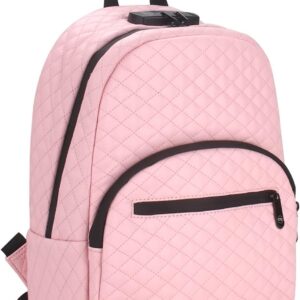
FIREDOG Smell Proof Backpack with Lock for Men Women Travel (Pink, 9.5x5x13 Inch)
$119.89 Original price was: $119.89.$41.99Current price is: $41.99.
Buy Now
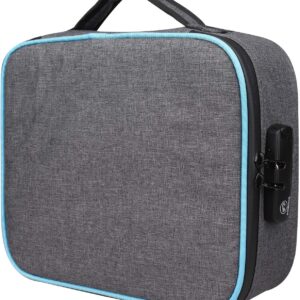
FIREDOG Smell Proof Bag with Combination Lock, Large Odor Proof Case Containers Pouch for Travel Storage(Gray)
$34.99
Buy Now
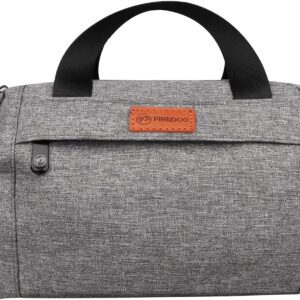
FIREDOG Smell Proof Bag, Dog Tested Stash Smell Proof Case Big Odor Proof Pouch for Travel Storage 9x4x5 Inch (Grey)
$18.99
Buy Now
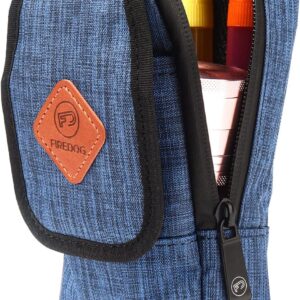
FIREDOG Smell Proof Bag, Odor Proof Pouch Dog Tested Mini Stash Crossbody Bags for Travel Storage(Bright Blue)
$79.00 Original price was: $79.00.$15.99Current price is: $15.99.
Buy Now
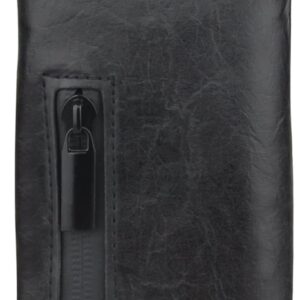
FIREDOG Smell Proof Bags, Carbon Lined Odor Proof Bag for Dog Tested 3″x6″ Stash Travel Storage Pouch Pocket (Black)
$19.99 Original price was: $19.99.$11.99Current price is: $11.99.
Buy Now

Flat Bill Hats – Original Baseball Cap Marijuana Cannabis Weed Pot 420 Hat Premium Flat Snapback
$27.00
Buy Now
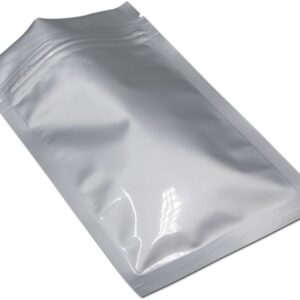
Flat Mylar Bags Zipper Lock Foil Bag 4 Mil Silver for Zip Food Storage Lock Resealable Aluminum Mylar Pouch Heat Sealable with Tear Notch (100, 3.3×5.5 inch)
$19.27
Buy Now
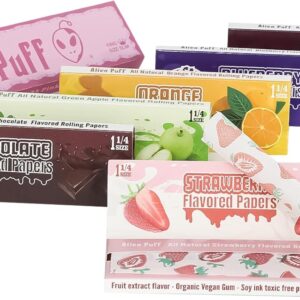
Flavor Rolling Papers, 1 1/4 Size Mixed Ultra Thin Rolling Paper, Individual Sealing Bag Strong Smell, Fruit Attraction Fragrance(7 Packs)
$8.99
Buy Now
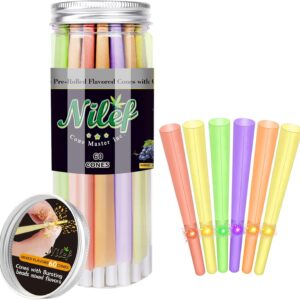
Flavored Pre Rolled Cones | 1 1/4 Size | 60 Pack Colorful Rolling Paper with “W” Filter Tip & Assorted Fruit Flavor Pop Beads | Slow Burn for Easy Filling (K8499B)
$13.98
Buy Now
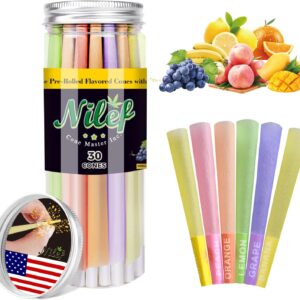
Flavored Pre Rolled Pop Cones | Pack of 30 | 6 different flavors | 84mm | Filter Tip with Bursting Flavor Bead for Enhanced Smoking Experience | Just pop it
$11.98
Buy Now
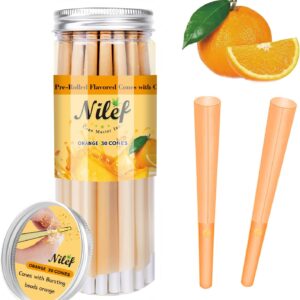
Flavored Pre-Rolled Pop Cones | 1 1/4 Size | 30 Pack | Orange Rolling Paper | “W” Filter Tip | Easy to Use and Convenient (K8333)
$11.98
Buy Now
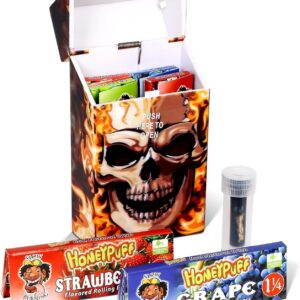
Flavored Rolling Papers Kit | Flavoured Rolling Papers With 6 Different Fruit | 100’s Plastic Cigarette Case | Glass Filter Tip
$9.99
Buy Now
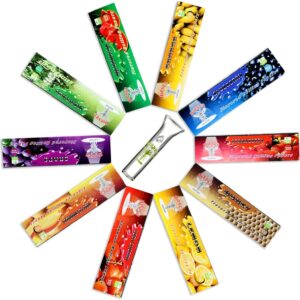
Flavored Rolling Papers With Glass Filters, Mix Fruit Flavoured King Size Cigarette Paper, 320 PCS Unbleached and Juicy Rolling Papers (10 Juicy Fruit Flavors)
$8.99
Buy Now
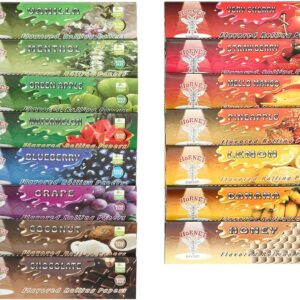
Flavored Rolling Papers with Tips, 15 Gums 750 PCS King Size Papers, Random Mix Flavors (110mm)
$15.99
Buy Now
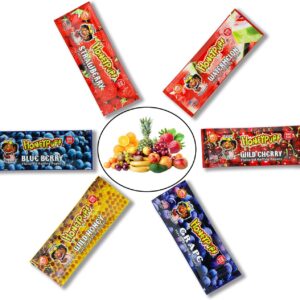
Flavored Rolling Papers, King Size Flavored Rolling Paper With 6 Kind Different Fruit, Individually Sealed Packaging (6packs-flavors)
$7.99
Buy Now
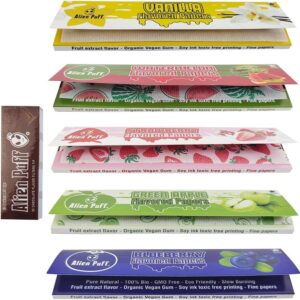
Flavored Rolling Papers, Kingsizeslim 8 Pack Mixed Ultra Thin Rolling Paper, Individual Sealing Bag Strong Smell, Fruit Attraction Fragrance, With Tips
$8.99
Buy Now
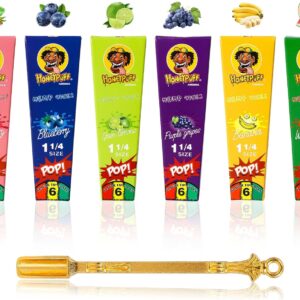
Flavoured Pre Rolled Cones With Pop Filter Tips | 6 Different Flavors | 1 1/4 Size Flavored Pre Rolling Cones, Filter Tip with Bursting Flavor Bead (1 1/4 Size, 6 Different Flavors), White
$8.99
Buy Now

FLEXISPOT H7 Adjustable Overbed Bedside Table with Wheels Pneumatic Mobile Standing Desk Laptop Desk Rolling Computer Cart Movable Overbed Table Hospital Home Use(27.6″ W x 15.7″ D, White)
$99.99 Original price was: $99.99.$79.99Current price is: $79.99.
Buy Now

FLEXISPOT H7 Adjustable Overbed Bedside Table with Wheels Pneumatic Mobile Standing Desk Laptop Desk Rolling Computer Cart Movable Overbed Tables Hospital Home Use(27.6″ W x 15.7″ D, Black Table)
$119.99 Original price was: $119.99.$82.99Current price is: $82.99.
Buy Now

Flyhill Red Kraft Paper Roll-12in x 100FT(100sqft)-Recyclable Paper Roll for Valentient’s Day,Craft Studio,Packing, Floor Covering,Dunnage,Parcel,Table Runner
$15.90 Original price was: $15.90.$9.99Current price is: $9.99.
Buy Now

FMOST Weed Stickers, 50pcs Adults Vinyl Waterproof Stickers for Laptop, Water Bottles, Bumper,Computer, Phone, Stickers and Decals
$3.99
Buy Now
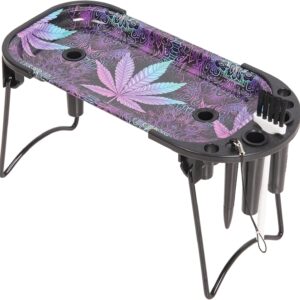
Foldable Metal Rolling Tray, Large Purple Multi-Purpose Folding Metal Tray, 9.4 x 4.13 inches Table Organizer Kit Including Tools Packer Brush Plugs Purple Leaf
$12.99 Original price was: $12.99.$9.99Current price is: $9.99.
Buy Now
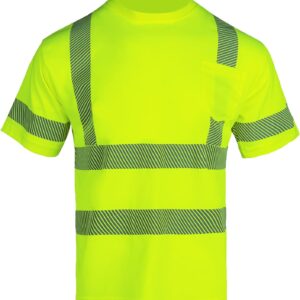
FONIRRA Hi Vis Safety T Shirts for Men Class 2 ANSI Reflective High Visibility Short Sleeves Work Shirt
$23.99
Buy Now
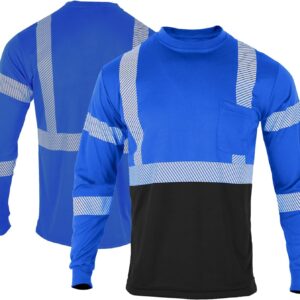
FONIRRA Safety Reflective High Visibility T Shirts for Men with Long Sleeve Construction Work Shirts ANSI Class 3(Blue,XL)
$27.99 Original price was: $27.99.$26.59Current price is: $26.59.
Buy Now
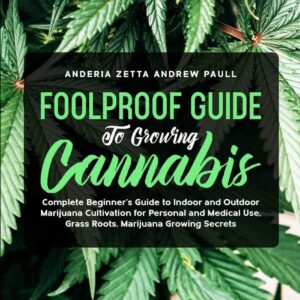
Foolproof Guide to Growing Cannabis: Complete Beginner’s Guide to Indoor and Outdoor Marijuana Cultivation for Personal and Medical Use, Grass Roots, Marijuana Growing Secrets
$19.89
Buy Now
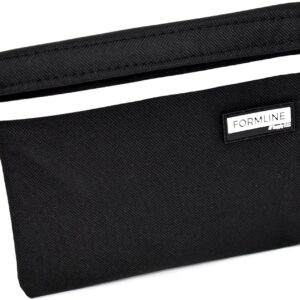
Formline Smell Proof Bag (7×6 inches) with Double the Odor Proof Technology – Scent Proof Pouch Eliminates All Scents. Perfect for Travel and Easily fits into Backpack or Purse
$18.99
Buy Now
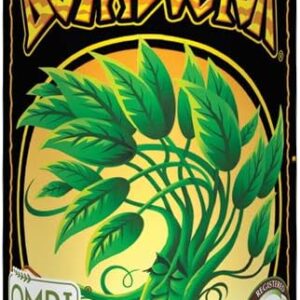
FoxFarm BushDoctor Cal-Mag Pint
$14.09
Buy Now
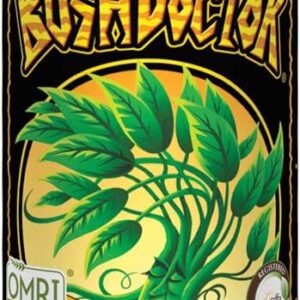
FoxFarm BushDoctor Cal-Mag Quart
$24.99 Original price was: $24.99.$19.70Current price is: $19.70.
Buy Now

Foxfarm Cultivation Nation PH Down – 1 Qt.
$17.36
Buy Now
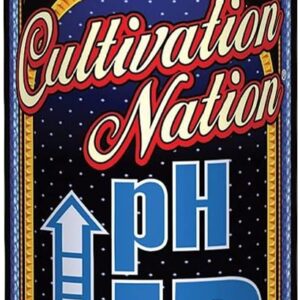
FoxFarm Cultivation Nation PH Up Quart
$27.99
Buy Now
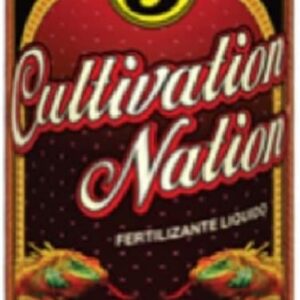
FoxFarm FX14910 Cultivation Nation, 1 pt Bloom
$9.95 Original price was: $9.95.$9.01Current price is: $9.01.
Buy Now
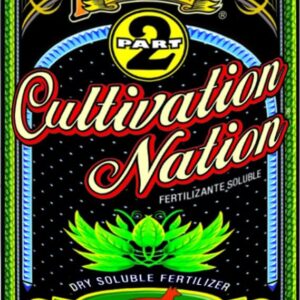
FoxFarm FX15001 Cultivation Nation, 1 lb Veggie, 1 Pound
$12.98
Buy Now
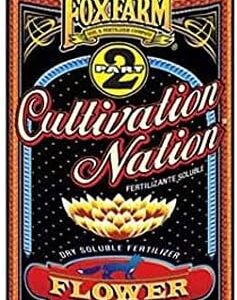
FoxFarm FX16001 Cultivation Nation, 1 lb Flower
$12.73
Buy Now
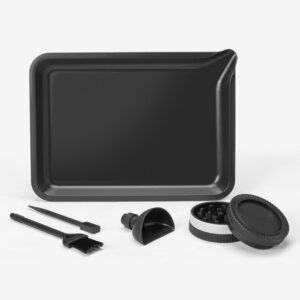
Free Boy 4 Pieces-Black Rolling Tray Set with Spout for Easy Filling and Accessories 7.7″ x 5.5″, Small, Cute
$8.99
Buy Now
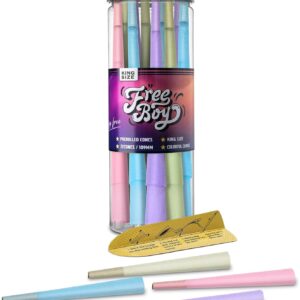
Free Boy 72 Pack Colorful Pre Rolled Cones,King Size Cones Rolling Papers with Tips,Vegan & Smooth Burning
$8.99
Buy Now
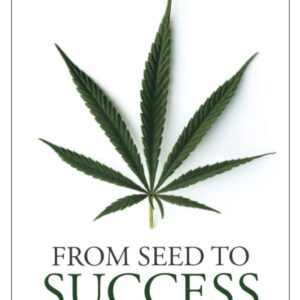
From Seed to Success: How to Launch a Great Cannabis Cultivation Business in Record Time
$34.95 Original price was: $34.95.$28.67Current price is: $28.67.
Buy Now
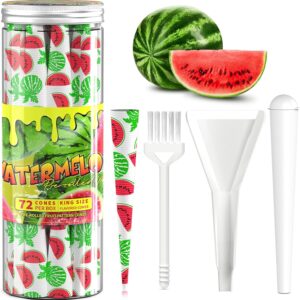
Fruit Flavored Paper Cones 72 Pack King Size Papers Cones with Tips & Packing Tubes Included, Natural Flavor and Chemical-Free Quality Accessories (Watermelon)
$12.99
Buy Now

Funfery 100 Pack Black Mylar Packaging Bags Resealable Bags Double Sided Color Odor Proof Pouch Baggies Smell Proof Foil Bag for Food Storage,Small Business(Black,3x4inch)
$7.99
Buy Now

Funfery 100 Pack Gradient Holographic Bags,Mylar Resealable Bags with Zipper,Clear Window Packaging Pouch,Smell Proof Bag for Food Storage,Sample Jewelry Baggies(2.7×3.9in,White Black)
$6.99 Original price was: $6.99.$6.29Current price is: $6.29.
Buy Now
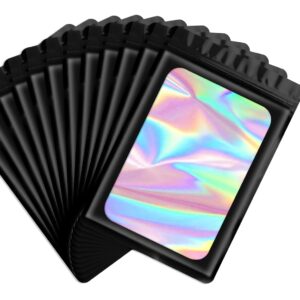
Funfery 100 Pack Resealable Holographic Bags, Smell Proof Packaging, Mylar Food Storage, Zipper Sealing Bags for Coffee Beans, Cookies, Jewelry – Black, 3×4.7in
$6.99
Buy Now
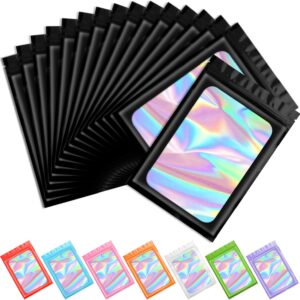
Funfery 100 pcs Black Mylar Holographic Bags Packaging Bags,Clear Resealable Bag Foil Pouch Bag for Food Storage and Lipgloss,Jewelry,Eyelash Packaging for Small Business(2.4×3.9Inch)
$6.99
Buy Now

Funfery 300 Pack 3 Size Mylar Holographic Bags with Clear Window,Resealable Bag Smell Proof Bags Zipper Foil Baggie Packaging Pouch for Food Storage,Sample,Small Business(Black,3×4.7,4×6,4.7×7.9in)
$16.99
Buy Now
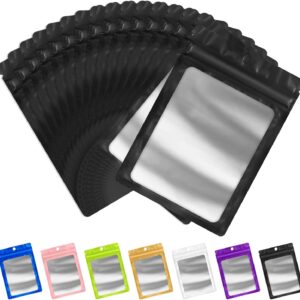
FUNFERY Mylar Resealable Bags Foil Packaging Bags with Clear Window,Zipper Pouch Smell Proof Bag for Food Storage,Cookies,Sample,Small Business(Black,2.4×3.9inch)-98 Pack
$5.79
Buy Now

Funky Junque Foam Trucker Hat
$19.99
Buy Now
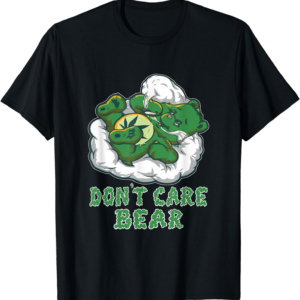
Funny Bear Smoking Weed Cannabis Marijuana 4:20 Stoner Gift T-Shirt
$16.99
Buy Now

Funny Leaf Makeup Bag Gift for Mom Women Sister Makeup Lover | Cute Mom Makeup Zipper Pouch Bag Cosmetic Travel Accessories Bag Toiletry Case Humor Gifts for Mother’s Day Birthday Christmas
$9.99
Buy Now

Funny Leaf Makeup Bag Gift for Women Best Friends Sister Teen Girls | Cute 100% akeup Zipper Pouch Bag Cosmetic Travel Accessories Bag Toiletry Case Gifts for Birthday Christmas
$9.99
Buy Now
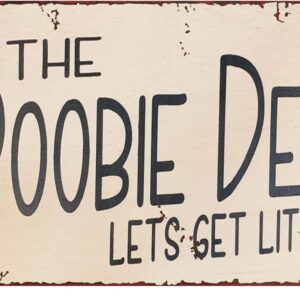
Funny Metal Bathroom Signs Funny Marijuana Signs Dispensary Decor Ca-nna-bis Gift Weed Gift Tin Sign Chic Art Wall Metal Decorations Funny Iron Plaque Signs Gift for Living Room Office 12×8 inch
$9.99
Buy Now

Funny Retirement Birthday Thanksgiving Gifts Baseball Cap, Don’t Forget My Senior Discount Hat for Dad Grandpa Elders Father’s Grandparents Beige
$19.99
Buy Now
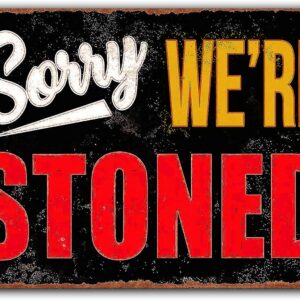
Funny Weed Decor Humor Man Cave Garage Bar Signs, Sorry We’re Stoned, Vintage Metal Tin Sign Smoking Marijuana Home Décor 8×12 Inch
$8.98
Buy Now

Funny Weed Gift Leaf Makeup Bag Cat Lover Gifts Cosmetic Bag for Women Nurse Cat Themed Gifts Zipper Pouch Bag Cat Lady Gifts Weed Stuff Weed Accessories Travel Toiletry Bag for Birthday Christmas
$7.99 Original price was: $7.99.$6.99Current price is: $6.99.
Buy Now
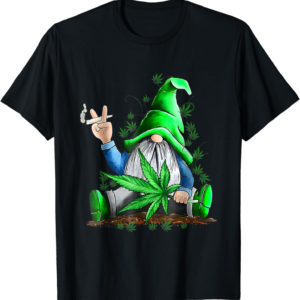
Funny Weed Gnome Cannabis Marijuana T-Shirt
$15.99
Buy Now
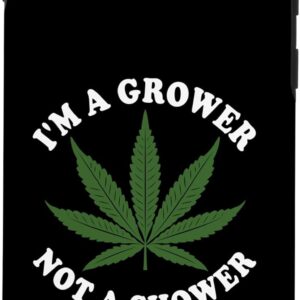
Galaxy S10 I’m A Grower Not a Shower Funny Cannabis Cultivation Case
$17.99
Buy Now
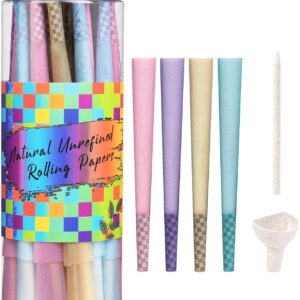
Generic Pre Rolled Cones | 60 Pack Natural Fibers Rolling Papers | Classic King Size (1.25-inch) | Tips & Packing Tubes Included (60PCS-Mixed)
$9.79 Original price was: $9.79.$6.99Current price is: $6.99.
Buy Now
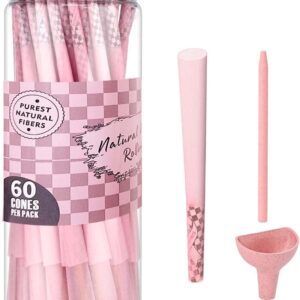
Generic Pre Rolled Cones | 60 Pack Pink Cones Rolling Papers | Classic King Size | Tips & Packing Tubes Included
$53.73 Original price was: $53.73.$8.98Current price is: $8.98.
Buy Now
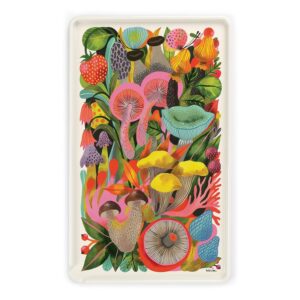
Genuine Fred Super Useful Tray, Mushrooms by Helen Dardik, Melamine Rolling Tray
$20.00
Buy Now

Gift for Planet Fans, Grinder
$16.88
Buy Now
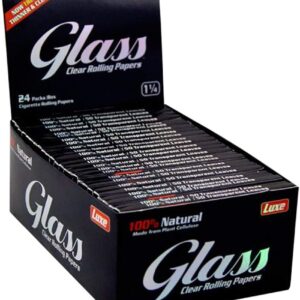
Glass Clear Rolling Papers 1 1/4 – Full Box – 24 Booklets – 50 Papers per booklet, 100% Natural
$55.00 Original price was: $55.00.$15.76Current price is: $15.76.
Buy Now
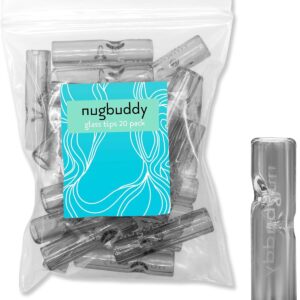
Glass Tips for Joints – 8mm Reusable Glass Rolling Tips – Mouthpiece Filter Crutch Fits in Rolling Machines – 20 Pack
$9.99
Buy Now

Goblincore Aesthetic Magic Fungi Mushroom Skull Relax T-Shirt
$18.99
Buy Now
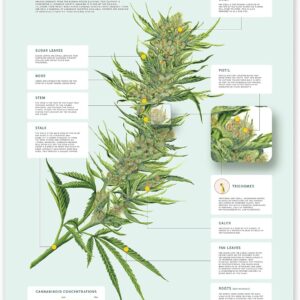
Goldleaf Anatomy of Cannabis Print, Infographic Marijuana Plant Poster, Weed Illustration Wall Art, Educational Dispensary Decor, Unframed (24×36)
$56.99
Buy Now
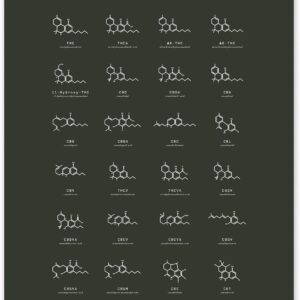
Goldleaf Cannabinoid Molecular Structures Chart Print, Minimalist Cannabinoid Chemical Structure Poster, Cannabis Science Art, Cannabinoid Education Poster (18×24)
$49.99
Buy Now

Goldleaf Grow Planner: A Cannabis Grower’s Weekly/Monthly Journal Planner, Marijuana Growing Notebook, Essential Growing Supplies, A5 Size
$35.00
Buy Now
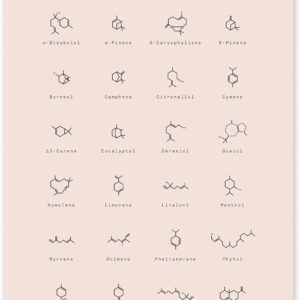
Goldleaf Terpene Molecular Structures Chart Print, Minimalist Terpene Chemical Structure Poster, Cannabis Decor, Science Wall Art, Terpene Education Infographic (24×36)
$56.99
Buy Now
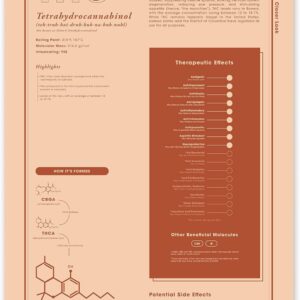
Goldleaf THC Infographic Print, Cannabinoid Education Poster, Tetrahydrocannabinol Chart, Dispensary Decor, Minimalist Cannabis Wall Art, Unframed (THC, 24×36)
$56.99
Buy Now
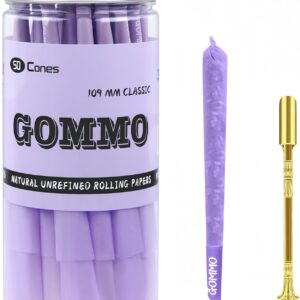
GOMMO 50 Pack Pre Rolled Cones King Size Cones Rolling Paper 109mm Natural Purple Rolling Papers with Golden Packing Spoon Included
$6.99
Buy Now
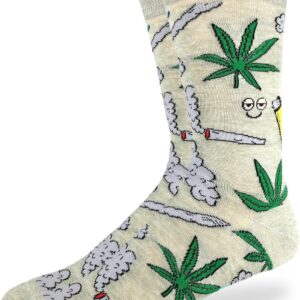
Good Luck Sock Men’s Marijuana Socks, Adult
$10.95
Buy Now
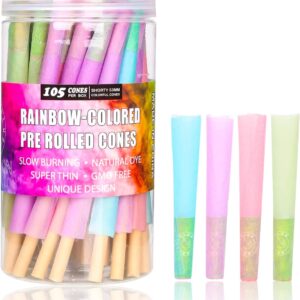
GORDON Shorty Cones Rolling Papers, Colorful Pre Rolled Cones, 53mm Mini Rolling Paper, Natural Slow Burning Preroll Cones, 105 Pack
$13.99
Buy Now
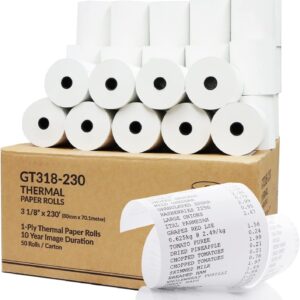
Gorilla Supply Thermal Paper Receipt Roll 3-1/8″ x 230′ BPA Free 50 Rolls
$62.99
Buy Now
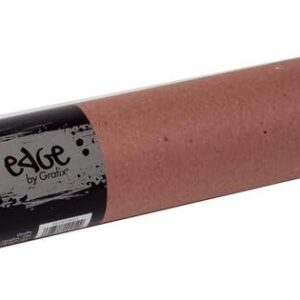
Grafix Edge Red Rosin Paper – 36” x 20’ Roll –Alternative to Drop Cloth, Provides a Protective Barrier and Absorbs Spills for Easy Cleanup, Roll
$38.50 Original price was: $38.50.$16.32Current price is: $16.32.
Buy Now
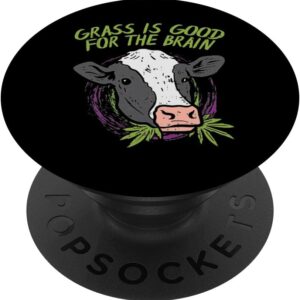
Grass Good Brain Cow Weed Cannabis Funny 420 THC Stoner Gift PopSockets Standard PopGrip
$11.99
Buy Now
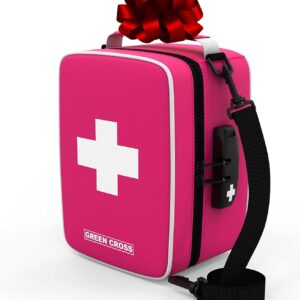
GREEN CROSS Medicine Bag with Combination Lock 8.5″ x 5.5″ x 4.5″(Pink Nylon)
$37.99 Original price was: $37.99.$9.99Current price is: $9.99.
Buy Now
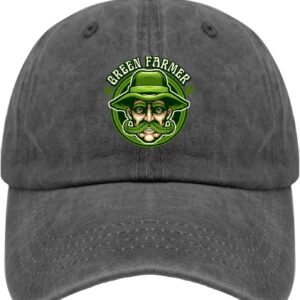
Green Farmer Cannabis Weed 420 hat Mens Vintage Cotton Washed Baseball Caps Adjustable Dad Hat Crazy
$15.99
Buy Now

Green Haritage 800 9″ Diameter x 3.42″ Width, 2-Ply Jumbo Roll Bathroom Tissue (Case of 12)
$50.70 Original price was: $50.70.$39.12Current price is: $39.12.
Buy Now

Green Weed Marijuana Kawaii Cannabis Pattern Flat Bill Hat, Unisex Snapback Baseball Cap Hip Hop Style Flat Visor Blank Adjustable
$11.99
Buy Now

Greenhouse Cannabis Cultivation: Simple Guide To Commercial Cannabis Grow Operation: How To Build A Greenhouse For Cannabis Production
$8.99
Buy Now
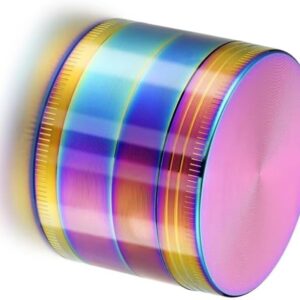
Grinder 2” Spice Grinder
$9.99
Buy Now

Grove Bags Terploc Curing Cultivation Pouch 16 Oz (1 lb) Single Bag Grove Bag The Original Terploc Curing Cultivation Pouch
$12.99
Buy Now
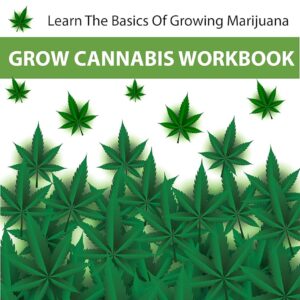
GROW CANNABIS WORKBOOK: Learn How To Grow Marijuana – Grow Cannabis School
$2.99
Buy Now
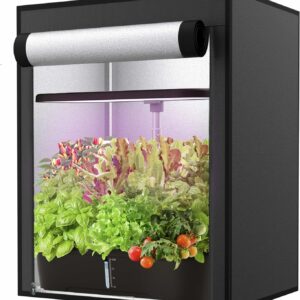
Grow Tent for Aerogarden Hydroponic Grow System,18.9”x13.7”x20.8”,High Reflective Mylar for Hydroponic Indoor Plants,Grow Machine Protective Cover,Black Indoor Hydroponic Anti-Light Complete System
$25.95
Buy Now
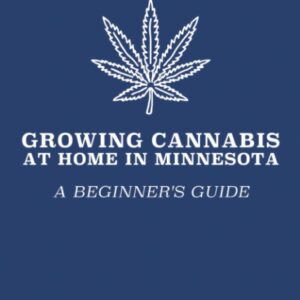
Growing Cannabis at Home in Minnesota: A Beginner’s Guide
$5.00
Buy Now
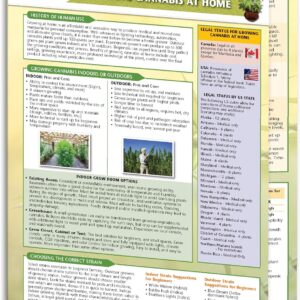
Growing Cannabis at Home Quick Reference Guide – Cannabis Educational Series by Permacharts
$7.95
Buy Now

Growing Cannabis Indoors: How To Grow Your Own Marijuana: (Cannabis Cultivation, Medical Cannabis) (How to Grow Marijuana)
$8.99
Buy Now
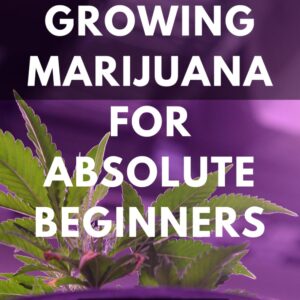
Growing Marijuana For Absolute Beginners: A Guide for Beginners-on Growing-Premium Quality, Safe Marijuana-Indoors | Unlock the Secrets of Successful Indoor Cannabis Cultivation and Care
$11.95
Buy Now

Growing Marijuana: DIY Cannabis Growing and Cultivation from Seed to Harvest – Learn both Indoor and Outdoor Growing Methods used by Professional Cannabis Producers
$2.99
Buy Now

Growing Weed in the Garden: A No-Fuss, Seed-to-Stash Guide to Outdoor Cannabis Cultivation
$29.99
Buy Now
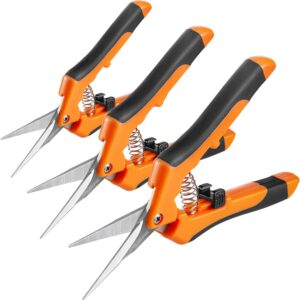
GROWNEER 3 Packs 6.5 Inch Pruning Shears Gardening Hand Pruning Snips Gardening Scissors with Straight Stainless Steel Precision Blades
$12.99 Original price was: $12.99.$11.69Current price is: $11.69.
Buy Now

Grunt Style 1776 Flag
$27.99
Buy Now
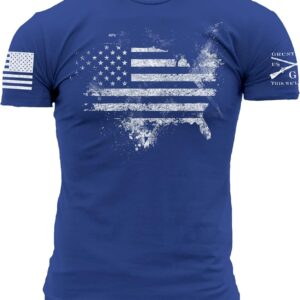
Grunt Style American Acid Men’s T-Shirt
$25.95
Buy Now

Grunt Style Grumpy Old Vet Men’s Long Sleeve T-Shirt
$29.95
Buy Now

GSlife Appliance Rolling Tray – Sturdy Metal Appliance Slider with Removable Absorption Mat for Countertop Coffee Bar Station Kitchen Office, Vertically or Horizontally Pull, 15.3″x12.2″, Black
$27.99 Original price was: $27.99.$25.99Current price is: $25.99.
Buy Now
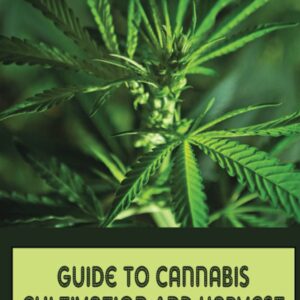
Guide To Cannabis Cultivation And Harvest: Tips And Tricks For Beginners: Save Money On Marijuana
$8.99
Buy Now

Guitar Heartbeat Hats for Guitarist Musician, Adjustable Embroidered Vintage Cotton Baseball Caps for Men Women
$18.99
Buy Now
![GUSTO [15 in x 200 ft - 250 Sq.Ft] Kraft Parchment Paper for Baking, Non-Stick Baking Paper - Parchment Paper Roll With Cutter for Air Fryer, Baking & Cooking (Formery Comfy Package)](https://mscannabiz.com/wp-content/uploads/2025/05/51H2FY60t-L._AC_SL1200_-300x300.jpg)
GUSTO [15 in x 200 ft – 250 Sq.Ft] Kraft Parchment Paper for Baking, Non-Stick Baking Paper – Parchment Paper Roll With Cutter for Air Fryer, Baking & Cooking (Formery Comfy Package)
$14.99
Buy Now
![GUSTO [15 in x 200 ft - 250 Sq.Ft] White Parchment Paper for Baking, Non-Stick Baking Paper - Parchment Paper Roll With Cutter for Air Fryer, Baking & Cooking- Formery Comfy Package](https://mscannabiz.com/wp-content/uploads/2025/05/51zSweVZ73L._AC_SL1200_-300x300.jpg)
GUSTO [15 in x 200 ft – 250 Sq.Ft] White Parchment Paper for Baking, Non-Stick Baking Paper – Parchment Paper Roll With Cutter for Air Fryer, Baking & Cooking- Formery Comfy Package
$15.48
Buy Now
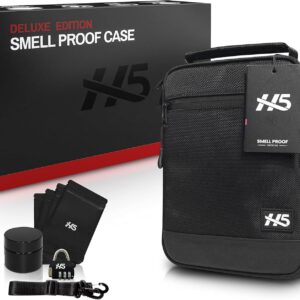
H5 Large Smell Proof Stash Box Set – Premium YKK Zippers – Odor Proof Dog Tested Bag Plus Smellproof Container, 4X Resealable Pouches, Strap, Combo Lock- Smell Proof Case/No Scent Travel Storage Bag
$27.95
Buy Now
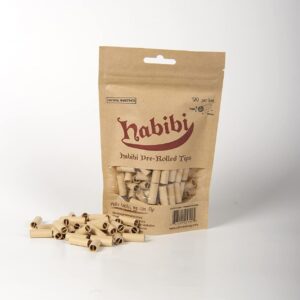
HABIBI – Prerolled Filter Tips – Rolling Paper Tips – Rolling Crutches- Slim Ø7mm Filter Tips – 120pc Pack, NATURAL
$9.99
Buy Now

HAKA Lifestyle Trucker Hat for Men & Women, Adjustable Baseball Hat, Mesh Snapback, Sturdy Outdoor Golf Hat
$29.99
Buy Now

Hanamiya Na Funny Weed Leaf Makeup Bag Zipper Pouch Travel Bag Toiletry Bag for Women Stoner Friend Bestie Birthday Gifts, Funny Unique Humor Novelty Sarcasm Magic Makeup Bag – Because M is Wrong
$9.99 Original price was: $9.99.$6.99Current price is: $6.99.
Buy Now

Handy Sliding Tray for Coffee Maker, Kitchen Appliance Moving Caddy, Countertop Slider with Smooth Rolling Wheels for Blender, Toaster, Air Fryer, Pot, Food Processors, Aid Mixer (Set of 1)
$19.99 Original price was: $19.99.$11.98Current price is: $11.98.
Buy Now
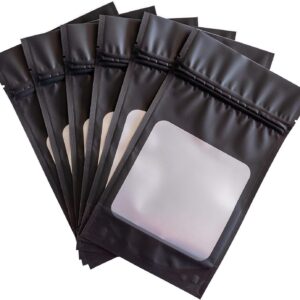
HANSER | Smell Proof Odorless Mylar Resealable Foil Pouch Bags with clear Window | Stand up bottom | Airtight | matte black | 100 Pieces | 4.8×8.2 Inches
$21.95
Buy Now
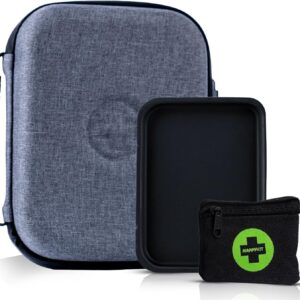
Happy Kit Secure & Discreet 8x6x4 Smell Proof Pouch Bag with Combination Lock – All-in-One Odor Proof Storage & Organizer Case with Advanced Scent Proof Technology -Men & Women
$29.99
Buy Now
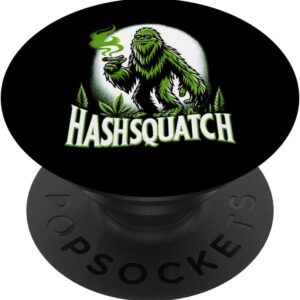
Hashsquatch Hash Squatch Bigfoot Smoking Weed cannabis PopSockets Standard PopGrip
$14.99
Buy Now
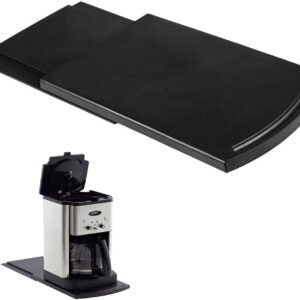
HauSun Handy Sliding tray Sliding Tray Mat for Coffee Maker,Kitchen Appliance Moving Caddy,Countertop Stoage for Air Fryer, Blender, Stand Mixer,Food Processors,1 set
$23.99 Original price was: $23.99.$12.99Current price is: $12.99.
Buy Now
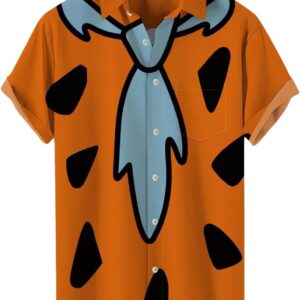
Hawaiian Bowling Shirts for Men Short Sleeve Printed Regular Fit Summer Beach Casual Button Down Aloha Shirts
$23.99
Buy Now
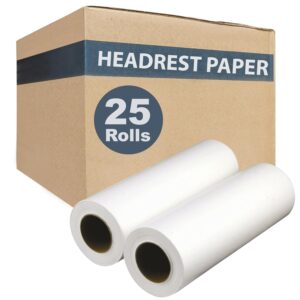
Headrest Paper Rolls, 12-Pack – 12″ x 225′ – Premium Smooth 16 Pound Paper – Disposable Face Cradle Surface Paper Spool for Medical, Exam and Chiropractic Tables
$51.97
Buy Now
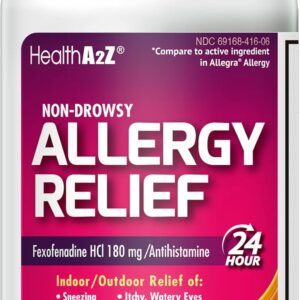
HealthA2Z Fexofenadine Hydrochloride 180mg, Antihistamine for Allergy Relief, Non-Drowsy, 24-Hour Antihistamine for Allergy Relief (120 Count (Pack of 1))
$21.25 Original price was: $21.25.$19.95Current price is: $19.95.
Buy Now
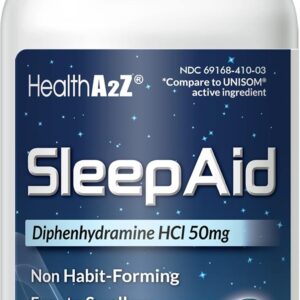
HealthA2Z Sleep Aid, Diphenhydramine Softgels, 50mg, Supports Deeper, Restful Sleeping, Non Habit-Forming (250 Counts)
$13.85 Original price was: $13.85.$9.95Current price is: $9.95.
Buy Now
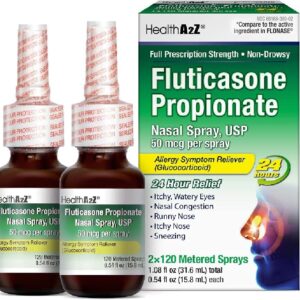
HealthA2Z® Fluticasone Propionate Nasal Sprays | Allery Relief Spray | Runny Nose | Nasal Congestion | Sneezing | Itchy Watery Eyes | 24 Hour Allergy Relief | (2 Packs)
$24.95
Buy Now
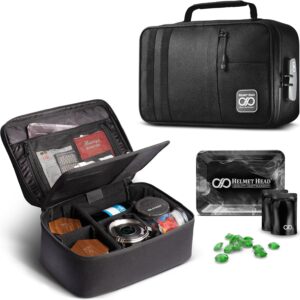
HELMET HEAD Smell Proof Bag and Stash Box XL Smell Proof Box with Combo Lock for Your Mylar Bags and Containers. Includes Grinder Card and Metal Tray (Black)
$89.99 Original price was: $89.99.$59.99Current price is: $59.99.
Buy Now
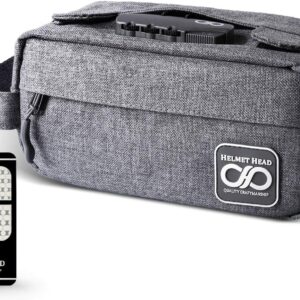
HELMET HEAD Smell Proof Bag, Travel Bag with Combination Lock and Grinder Card, Water Repellent Compact Smell Proof Stash Box For Your Herbs and Smell Proof Containers (New Gray)
$19.99
Buy Now
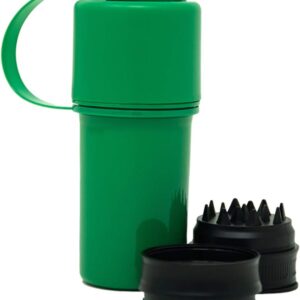
HEMPER Keeper 3-IN-1 Grinder + Storage System with Smell Proof Storage With Travel Ready Tether Strap | Lightweight
$10.00
Buy Now
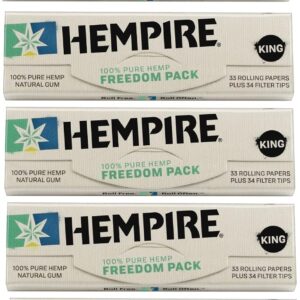
Hempire Rolling Papers King Size (110mm) Freedom Pack (Papers & Tips) – 5 Pack
$10.99
Buy Now
![Herb Guard - 1 Oz Airtight Jar & Container [3 Pack] (500 ml) Airtight Ultraviolet Protection Keeps Goods Fresh for Months](https://mscannabiz.com/wp-content/uploads/2024/05/61WkbbScYsL._AC_SL1500_-300x300.jpg)
Herb Guard – 1 Oz Airtight Jar & Container [3 Pack] (500 ml) Airtight Ultraviolet Protection Keeps Goods Fresh for Months
$70.99
Buy Now
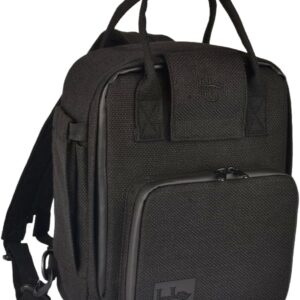
Herb Guard Black Mini Locking Backpack – With Built in Tray, YKK Zippers and More – Doubles as a Shoulder Sling Bag
$49.99
Buy Now
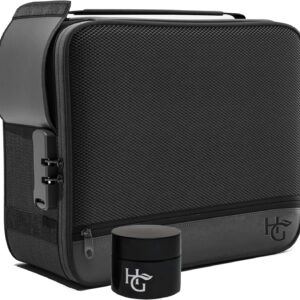
Herb Guard Large Smell Proof Bag & Case with Combination Lock (Holds Up to 3 Ounces) – includes YKK Zippers, 50ml Smell Proof Container and Jar, Built in Tray & Travel Bags (Black)
$44.99
Buy Now
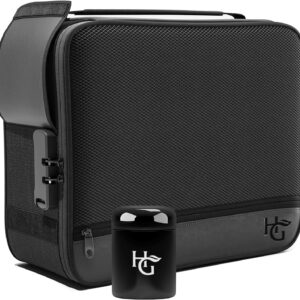
Herb Guard XL Smell Proof Bag & Airtight Case with Combination Lock (Container Holds Up to 5 Ounces) – Includes YKK Zippers, 250ml / Half oz Smell Proof Jar, Built in Tray & Travel Bags (Black)
$59.99
Buy Now
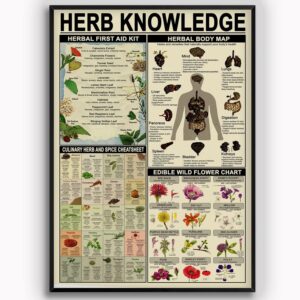
Herb Knowledge Metal Tin Signs Herbal First Aid Kit Infographic Poster Pharmacist Study Guide Tin Plaque Home Pharmacy Office Kitchen Wall Decor 8×12 Inches
$13.86
Buy Now
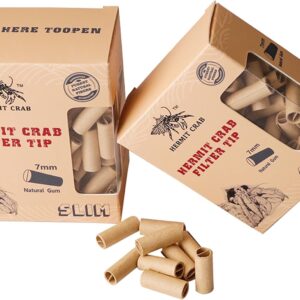
hermit crab Unbleached pre Rolled Pen tip | 100 Pen Tips | Ø. 7mm | Rolled Paper Pen tip, (Brown, 100)
$5.99
Buy Now
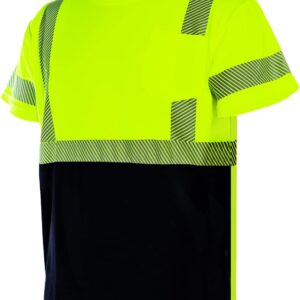
Hi Vis Reflective Safety Shirts for Men ANSI Class 2 High Visibility Construction Work T Shirt(Yellow,XL)
$24.99
Buy Now

Hieroglyphic Hat African Egyptian Culture Bucket Hat Summer Fisherman Cap Outdoor Beach Sun Hat
$18.99
Buy Now

High Life Marijuana Leaf Weed Design 420 Unstructured Dad Hat Baseball Cap
$11.99
Buy Now

High Maintenance Weed Cannabis Pocket 420 THC Stoner Gift T-Shirt
$19.99
Buy Now

Higher: The Lore, Legends, and Legacy of Cannabis
$40.00 Original price was: $40.00.$23.89Current price is: $23.89.
Buy Now

HOKirin Metal Tray with Soft Magnetic Lid, Small Blank Tray with Spill Proof Cover,Cute Purple Tray,Perfect for Home and On-The-Go,7” x 5.5” x 0.6”
$9.99
Buy Now
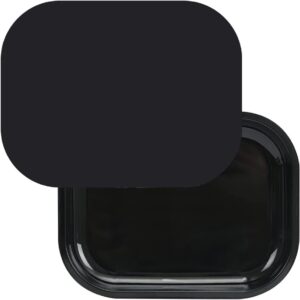
HOKirin Metal Tray with Soft Magnetic Lid,Metal Small Tray with Spill Proof Cover,Cute Black Blank Decorative Tray,Perfect for Home and On-The-Go,7” x 5.5” x 0.6“
$21.70 Original price was: $21.70.$9.99Current price is: $9.99.
Buy Now
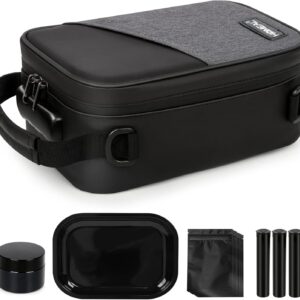
HOMEAL Smell Proof Bag with Combination Lock – Smell Proof Stash Box for Storage and Travel – Gift for Men/Women
$25.99
Buy Now
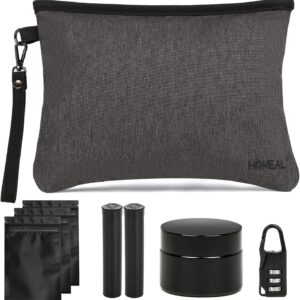
HOMEAL Smell Proof Bag, Smell Proof Container, Smell Proof Stash Bag, Odor Proof Pouch, Stash Storage Kit (Black)
$75.00 Original price was: $75.00.$15.99Current price is: $15.99.
Buy Now

Honeycomb Cushioning Wrap Paper Roll,ULIFESTAR Honeycomb Kraft Packing Paper,Alternative To Bubble Wrap Roll,1PC Recyclable Honeycomb Packing Paper for Shipping Moving Blue, 25cm*100m/9.84″*328ft
$27.00
Buy Now

Honeycomb Packing Paper 12″x400′ – Honeycomb Wrapping Paper for Moving Packaging and Shipping – Recyclable Protective Roll
$32.99
Buy Now
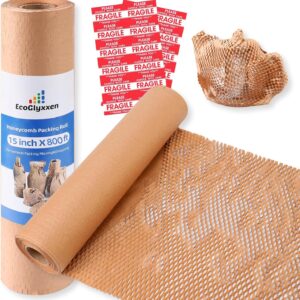
Honeycomb Packing Paper 15″Wx50’L-Bubble Wrap Substitute Alternative for Shipping, Moving Supplies, Small Business Packaging, Packing Boxes & Gifts Wrapping Paper with 20 Fragile Stickers
$16.99 Original price was: $16.99.$9.98Current price is: $9.98.
Buy Now
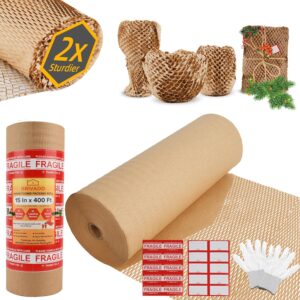
Honeycomb Packing Paper 15″x400′ Roll with Fragile & Labelling Stickers, Gloves – Eco-Friendly Packing Paper Sheets for Moving Roll | Honeycomb Paper | Packing Bubble Wrap for Moving Supplies
$38.99
Buy Now
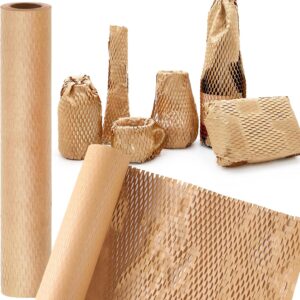
Honeycomb Packing Paper 15″x550″ Packing Paper Substitute Alternative for Moving Shipping Wrapping Eco Protective Packaging Material Bubble Paper Wrapping Protective Roll
$7.99
Buy Now
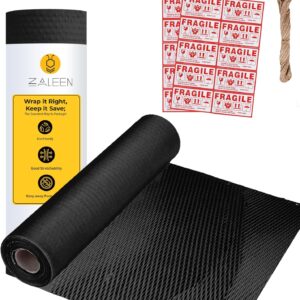
Honeycomb Packing Paper for Moving -15 In x 213 Ft, Shock Proof Black Wrapping Paper Roll for Shipping With 20 Fragile Stickers & 100Ft Jute Twine -Sustainable & Recyclable Moving Bubble Packing Roll
$20.99
Buy Now
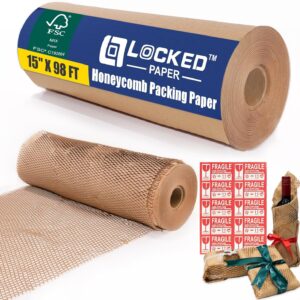
Honeycomb Packing Paper for Moving Dishes and Glassware 15″x98′ Eco Friendly Packaging Bubble Cushion Wrap Roll Bulk Shipping Supplies for Packages Box Void Filler
$20.97 Original price was: $20.97.$19.99Current price is: $19.99.
Buy Now
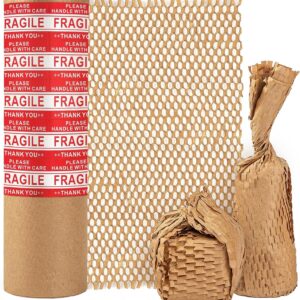
Honeycomb Packing Paper Roll 15”x230′-Goefun Recyclable Moving Supplies with 30 Fragile Sticker Labels, Shipping Supplies Substitute Alternative for Bubble Wrap for Packing Gift, Shipping, Moving
$20.99
Buy Now
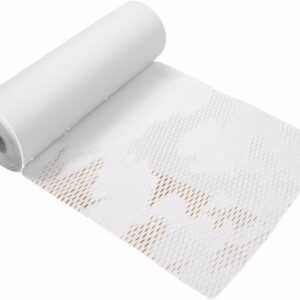
Honeycomb Packing Paper Roll,Eco-Friendly Bubble Wrap Alternative for Moving.Shipping.Gifts Wrapping Paper,Shock-Proof Recyclable Biodegradable Cushioning Material,Fragile item protection12″×394″
$11.90
Buy Now
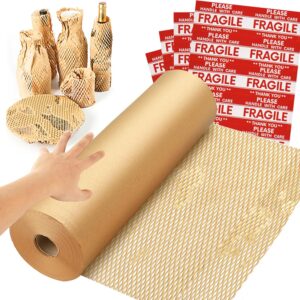
Honeycomb Packing Paper Wrap 15”x328′, Substitute Alternative for Bubble Cushioning Wrap for Moving Shipping Packaging, Recyclable Moving Supplies with 48 Fragile Sticker Labels
$24.99
Buy Now
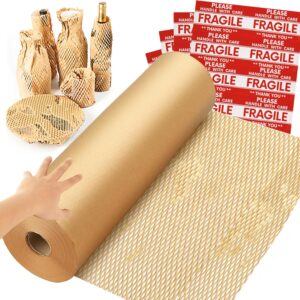
Honeycomb Packing Paper Wrap 15”x820′, Substitute Alternative for Bubble Cushioning Wrap for Moving Shipping Packaging, Recyclable Moving Supplies with 48 Fragile Sticker Labels
$59.99
Buy Now
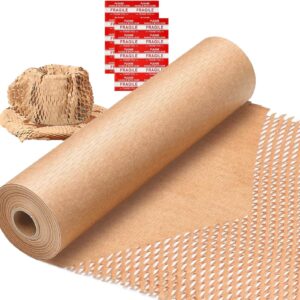
Honeycomb Packing Paper Wrap 15″ x200′ Sustainable Alternative to Bubble Cushioning Wrap for Moving/shipping/packing Roll with 20 Fragile Sticker Biodegradable & Fully Recylable
$20.99
Buy Now
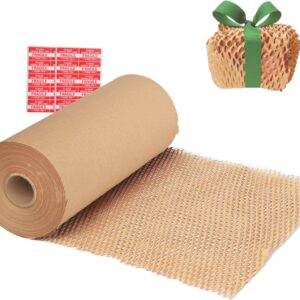
Honeycomb Packing Paper Wrap 15″x400′ Sustainable Alternative to Bubble Cushioning Wrap Biodegradable & Fully Recylable for Moving/Shipping/Packing Roll with 20 Fragile Stickers
$39.99
Buy Now
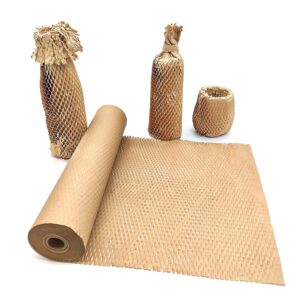
Honeycomb Packing Paper, 15″ x 131′ Packing Paper Substitute Alternative for Bubble Cushioning Wrap for Moving Shipping Packaging, Recyclable Moving Supplies Bubble Packing Wrap Protective Roll
$16.99 Original price was: $16.99.$14.44Current price is: $14.44.
Buy Now
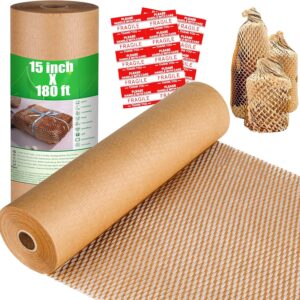
Honeycomb Packing Paper, 15″ x 180′ Recyclable Cushion Packing Paper for Moving Shipping Packaging Breakables, Eco Friendly Bubble Wrap Alternative Roll Kraft Honeycomb Paper with 20 Fragile Stickers
$18.99
Buy Now
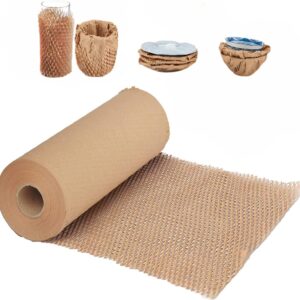
Honeycomb Packing Paper, 15″x300′ Honeycomb Cushioning Bubble Wrap Paper Roll for Moving Shipping Breakables Packaging Gifts with 20 Fragile Sticker Biodegradable & Fully Recyclable Brown Kraft
$23.99
Buy Now
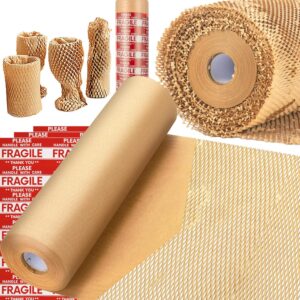
Honeycomb Packing Paper, MINHAO 15″x230′ Eco Friendly Packing Paper for Moving Recyclable Honeycomb Paper Moving Supplies Bubble Paper Wrapping Protective Roll, With 36 Fragile Sticker Labels
$20.97 Original price was: $20.97.$17.82Current price is: $17.82.
Buy Now
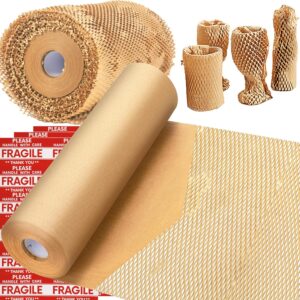
Honeycomb Packing Paper, MINHAO 15″x400′ Eco Friendly Packing Paper for Moving Recyclable Honeycomb Paper Moving Supplies Bubble Paper Wrapping Protective Roll, With 36 Fragile Sticker Labels
$36.99
Buy Now
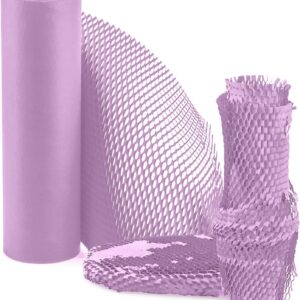
Honeycomb Packing Paper,11.5″ x 164′ Honeycomb Cushioning Wrap Roll Honeycomb Packing Paper Wrap,Eco-friendly Packaging Paper Kraft Paper Bubble Paper (Purple)
$25.98
Buy Now
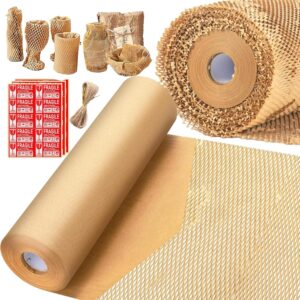
Honeycomb Packing Paper,15″ x 450″ Packing Paper for Moving Recyclable Honeycomb Paper Moving Supplies Bubble Paper Wrapping Protective Roll, With 36 Fragile Sticker Labels (15″ x 450″)
$12.99
Buy Now
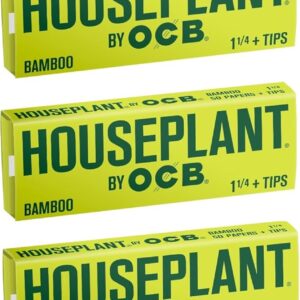
Houseplant Rolling Papers by OCB Bamboo 1 1/4 (78mm) with Tips (5 Pack)
$15.99
Buy Now

How To Cook With Cannabis: The Ultimate Guide to Preparing Delicious Cannabis-Infused Dishes: A Perfect Gift for Aspiring Culinary Enthusiasts and Wellness Seekers
$11.95
Buy Now

How to Grow Marijuana: 3 Books in 1 – The Complete Beginner’s Guide for Growing Top-Quality Weed Indoors and Outdoors
$12.97
Buy Now

How to Grow Marijuana: The Easiest Guide to Growing Weed
$15.99
Buy Now

How to Grow Organic Cannabis: A step-by-step guide for growing Marijuana outdoors
$9.99
Buy Now

How to Succeed in the Cannabis Industry: For Professionals, Contractors & Entrepreneurs
$19.99
Buy Now
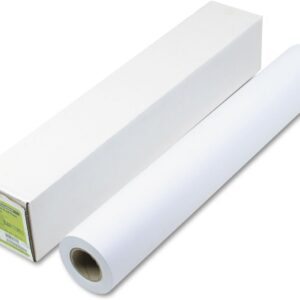
HP – Q1396A Universal Bond Paper (24 Inches x 150 Feet Roll)
$89.99 Original price was: $89.99.$29.95Current price is: $29.95.
Buy Now
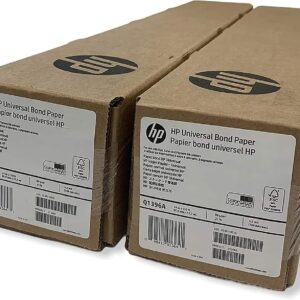
HP Wide Format Universal Bond Paper 24 in x 150 ft, 2 Roll Bundle 4.2 mil – 80 g/m² (21 lbs) 2″ Core – Q1396A-2R
$64.75
Buy Now
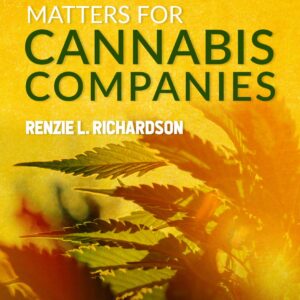
HR Matters for Cannabis Companies
$8.99
Buy Now
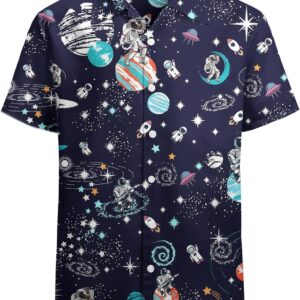
HUGLAZY 80s 90s Outfit Hawaiian Shirt for Men Big and Tall Short Sleeve Button Down Shirts Funny Party Outfit
$34.99
Buy Now
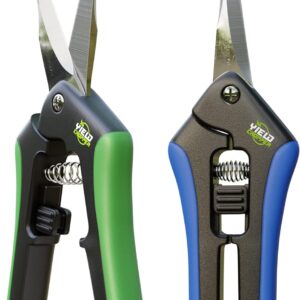
Hydroponic 2Pack Microtip Straight blade/Curved Blade Flower Leaf Trimmer Pruning Shears by Yieldcropper
$22.97 Original price was: $22.97.$19.97Current price is: $19.97.
Buy Now

Hydroponic Marijuana: A step by step guide to growing cannabis indoor
$9.90
Buy Now
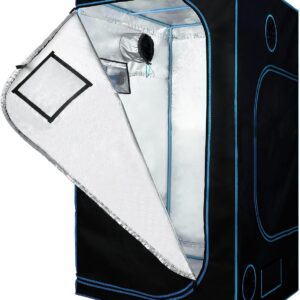
Hydroponic Mylar Water-Resister Grow Tent Reflective Garden Growing Dark Room with Observation Window, Removable Floor Tray and Tool Bag for Indoor Plant Growing (48″x48″x80″)
$89.99
Buy Now

Hydrostone Terracotta Humidifying Stone (3 Pack)
$6.99 Original price was: $6.99.$5.89Current price is: $5.89.
Buy Now
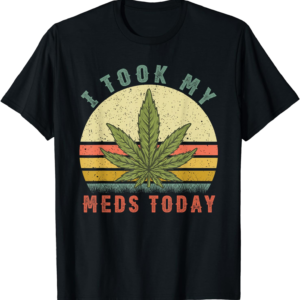
I Took My Meds Today – Vintage Marijuana Weed Cannabis 420 T-Shirt
$14.97
Buy Now
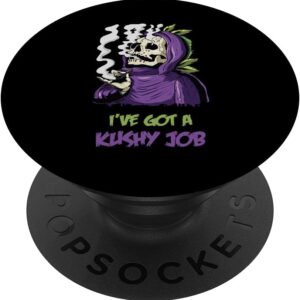
I´ve got a Kushy Job Cannabis Dispensary Budtender CBD Oil PopSockets Swappable PopGrip
$14.99
Buy Now

I’m A Grower Not a Shower Funny Cannabis Cultivation Throw Pillow
$19.99
Buy Now
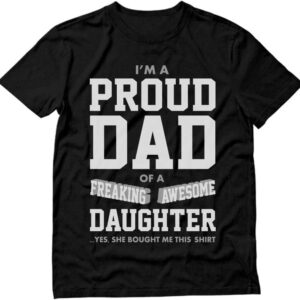
I’m a Proud Dad Shirt Funny Gifts for Dads Grandfather Fathers Day Awesome Grandpa Abuelo Papa Shirts for Men
$15.95
Buy Now

I’m Not Saying It Was Aliens But It Was Aliens Funny T-Shirt
$19.99
Buy Now

Ibyx Elegant Sliding Tray for Your Coffee Maker & Heavy Kitchen Appliances – Sturdy, Slides Easily from Under The Cabinet (Black, 16″ W x 13″ D)
$39.99
Buy Now

Ibyx Elegant Sliding Tray for Your Coffee Maker & Heavy Kitchen Appliances – Sturdy, Slides Easily from Under The Cabinet (Natural, 16″ W x 13″ D)
$37.93 Original price was: $37.93.$34.14Current price is: $34.14.
Buy Now
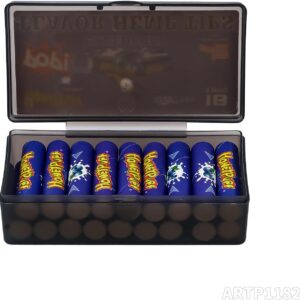
Ice Blueberry Flavored Pop Filters for Rolling Papers, 18 Pcs Flavors Ø7mm Tips
$5.99
Buy Now
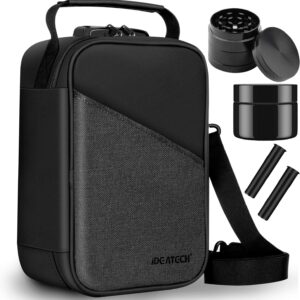
IDEATECH Smell Proof Bag Stash Box, Smell Proof Containers with Combo Lock, Odorless Travel Storage Bag, Home Organizer Case Lock Box with Accessories, Smell Proof Box Gift for Women/Men
$57.98 Original price was: $57.98.$24.99Current price is: $24.99.
Buy Now
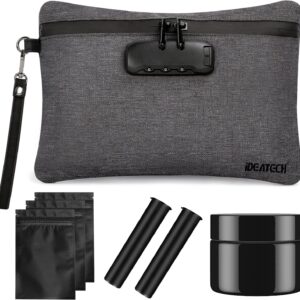
IDEATECH Smell Proof Bag, Dog-Tested Smell Proof Containers with Lock, Smell Proof Stash Bag, Money Safe Organizer, Odor Proof Case Storage Bags for Your Accessories, Smell Proof Pouch Gifts
$41.98 Original price was: $41.98.$18.99Current price is: $18.99.
Buy Now
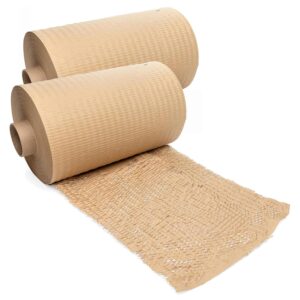
IDL Packaging 15″ x 1400′ Refill Roll (Pack of 2) for MP-1400USN HexcelWrap Honeycomb Packing Paper Station, Brown – Protective Kraft Paper with Interlocking Slit Design for Shipping
$319.95
Buy Now
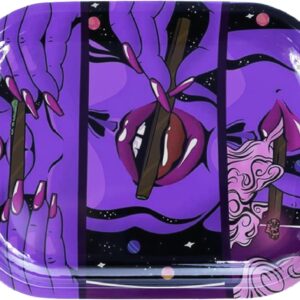
Impressed Trippy Drippy Rolling Tray for Women – Girly Purple 7″ X 5″ Small Mini Size Cute Cigarette Rolling Tray for Girls – Premium Metal Custom Design Raw Tobacco Smoking Accessories Gift
$9.97
Buy Now
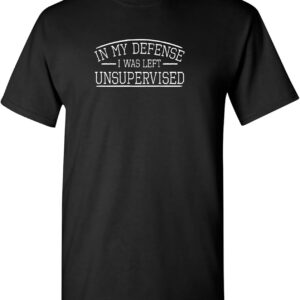
in My Defense I was Left Unsupervised Novelty Gag Gift Funny T Shirt for Anyone
Read more
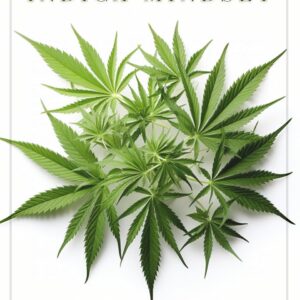
Indica Mindset: A comprenhensive guide Covering All aspects of Indica Cannabis Cultivation
$9.99
Buy Now
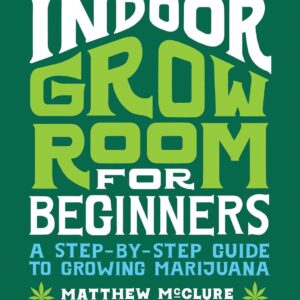
Indoor Grow Room for Beginners: A Step-By-Step Guide to Growing Marijuana
$15.99
Buy Now
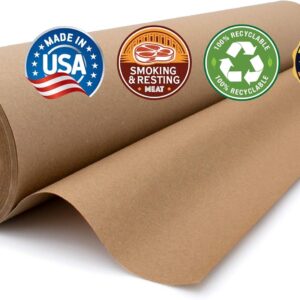
Industrial Grade Paper for Moving & Packing | Shipping, Gift Wrapping, Arts, Crafts & Table Settings | Recycled Kraft Paper Roll | 17.75 inches x 100 feet | by The Paper Factory LLC (17.75 x 100)
$13.99
Buy Now

Industrial Grade Paper for Moving & Packing | Shipping, Gift Wrapping, Arts, Crafts & Table Settings | Recycled Kraft Paper Roll | 24 inches x 200 feet | by Paper Pros
$22.31
Buy Now
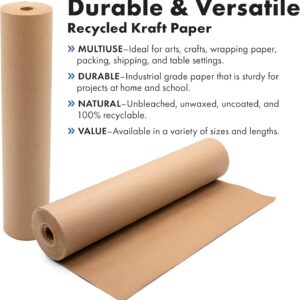
Industrial Grade Paper for Moving & Packing | Shipping, Gift Wrapping, Arts, Crafts & Table Settings | Recycled Kraft Paper Roll | 30 inches x 150 feet | by The Paper Factory LLC
$27.88
Buy Now

Inhale Exhale Wall Art – Dope Posters – Black Art – African American Women, Girls – Afro Room Decor – Cannabis Pot Pothead Stoner Gifts – Smoking Marijuana Home Decor – Funny Weed Ganja Decorations
$12.95
Buy Now
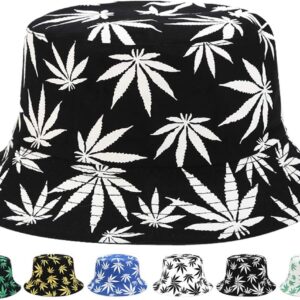
INOGIH Reversible Bucket-Hat Marijuana-Cannabis Weed Foldble Fisherman Hat Packable
$12.99 Original price was: $12.99.$9.99Current price is: $9.99.
Buy Now
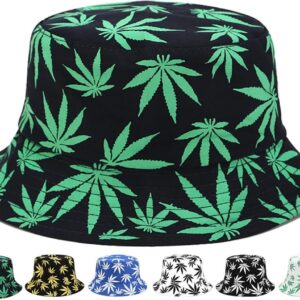
INOGIH Reversible Bucket-Hat Marijuana-Cannabis Weed Foldble Fisherman Hat Packable
$12.99 Original price was: $12.99.$9.19Current price is: $9.19.
Buy Now
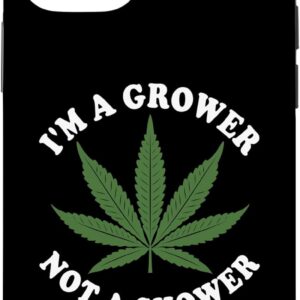
iPhone 13 Pro I’m A Grower Not a Shower Funny Cannabis Cultivation Case
$17.99
Buy Now
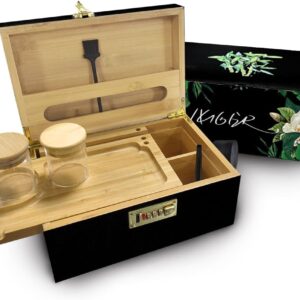
IXIGER Rolling Tray Set with Stash Box & Lockable Storage Box – Complete Rolling Tray Set for Cigarette Rolling, Storage & Organization – Durable & Stylish Rolling Tray for Smokers
$43.88 Original price was: $43.88.$34.88Current price is: $34.88.
Buy Now
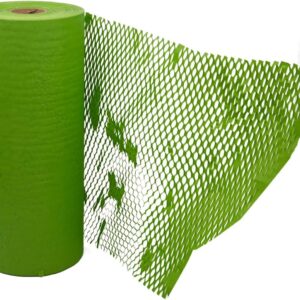
JAM PAPER Honeycomb Packing Paper Roll – 12″ x 328′ – Emerald Green – 328 Sq Ft – 80 GSM – Roll Sold Individually
$29.99
Buy Now
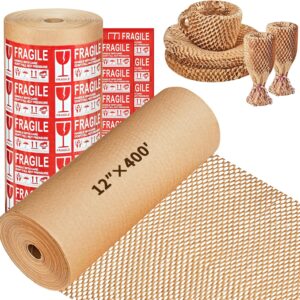
JARLINK Honeycomb Packing Paper, 12 * 400′ Packing Wrap for Packing/Shipping/Moving, Recyclable Honeycomb Cushioning Wrap Roll, Moving & Gifts Wrapping Paper With 30 Fragile Sticker Labels
$29.99
Buy Now
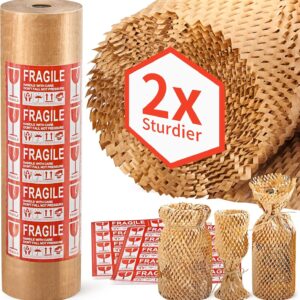
JARLINK Honeycomb Packing Paper, 15″x 213′ Bubble Packing Wrap for Packing/Shipping/Moving, Eco-Friendly Bubble Packing Paper Wrapping Roll, Recyclable Moving Supplies With 20 Fragile Sticker Labels
$22.99
Buy Now
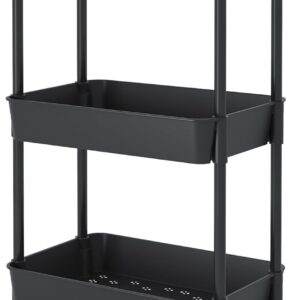
JIUYOTREE 3-Tier Plastic Rolling Storage Cart Utility Cart with Extra Hanging Cups Handles Lockable Wheels for Living Room Bathroom Kitchen Office Black
$26.99
Buy Now
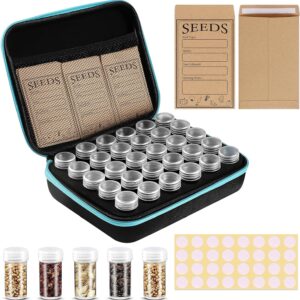
jixsloft 30 Slots Seed Storage Organizer with 20 Seed Envelopes, Sturdy Seed Organizer Storage Box with Zipper Bag Label Stickers(Seeds not Included), Seed Storage Container for Flower Plants Garden
$15.99 Original price was: $15.99.$14.99Current price is: $14.99.
Buy Now
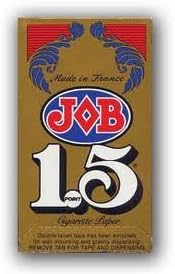
Job 1 1/2 Cigarette Rolling Paper, 24-Pack (24 leaves per pack)
$51.99 Original price was: $51.99.$48.90Current price is: $48.90.
Buy Now
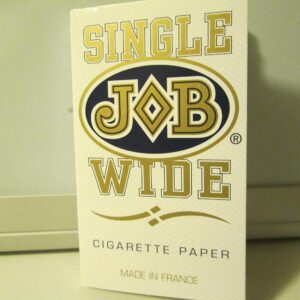
Job 1.0 Single Wide Rolling Papers-10 Packs-32 Leaves each Pack
$15.00
Buy Now
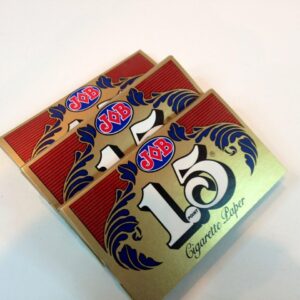
Job 1.5 Tobacco Cigarette Rolling Papers 10Pack
$22.73
Buy Now
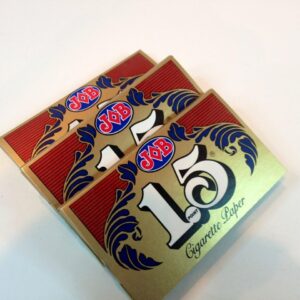
Job 1.5 Tobacco Cigarette Rolling Papers 3Pack
$12.97
Buy Now
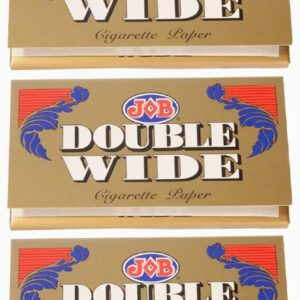
JOB Cigarette Rolling Paper Double Wide Gold – 5 Pack – 120 Leaves total
$21.98 Original price was: $21.98.$15.99Current price is: $15.99.
Buy Now

JOB Cigarette Rolling Papers 1 1/4 (3 Pack)
$6.99
Buy Now
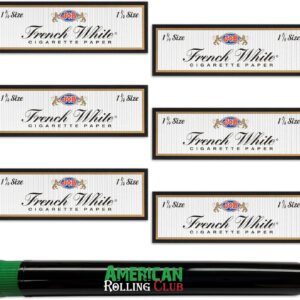
JOB French White 1-1/4 Size Cigarette Papers | Includes JOB Papers and ARC Cigarette Saver (6 Pack)
$8.90
Buy Now
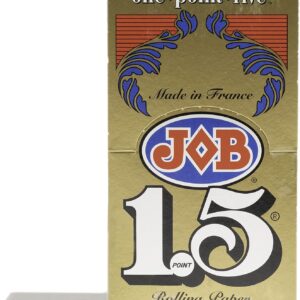
JOB Gold 1-1/2 Size Rolling Papers Set, 24 Booklets (24 Rolling Papers per Booklet) 100% Natural Wood Fibers, Natural Acacia Gum, Unbleached – Ultra-Thin and Slow-Burning
$46.99
Buy Now
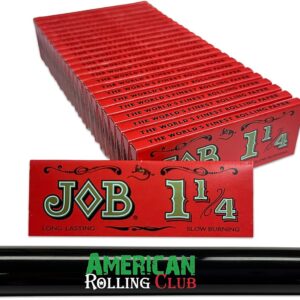
JOB Orange Slow Burning 1-1/4 Size Cigarette Papers | Includes 24 Packs of JOB Cigarette Papers and ARC Saver
$20.69
Buy Now
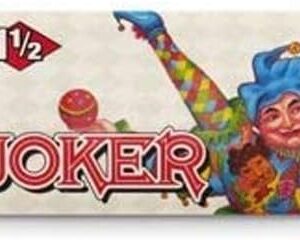
Joker Rolling Papers – 1 1/2 (10)
$15.99 Original price was: $15.99.$13.10Current price is: $13.10.
Buy Now

Joker White 1 1/4 79mm Cigarette Rolling Papers – Slow Burning (Pack of 24 Booklets)
$20.99
Buy Now
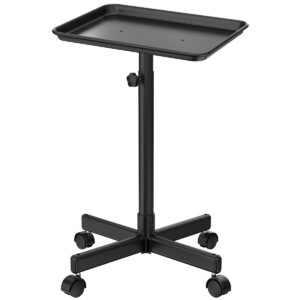
JOSTZHXIN Salon Rolling Tray, Premium Aluminum Tattoo Tray, Salon Rolling Cart Adjustable Height, SPA Service Rolling Trolley Tray for Beauty Hairstylist Dental Clinic,Black
$49.79 Original price was: $49.79.$42.99Current price is: $42.99.
Buy Now
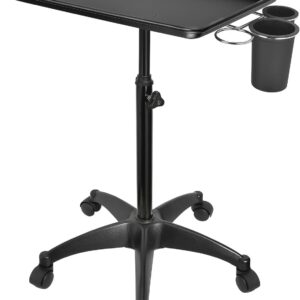
JOSTZHXIN Salon Rolling Tray, Tattoo Tray Rolling Cart, Height Adjustable Styling Tray, Service Storage Tray Trolley for Beauty Salon Clinic Spa,Black-with Cup Holder
$40.99
Buy Now
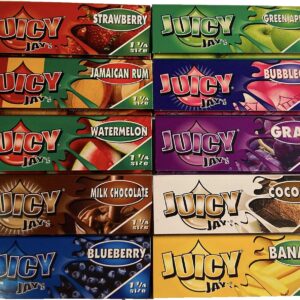
Juicy Jay 10 Pack Mixed Flavor 1 1/4 Size Flavored Rolling Paper 32 Count
$17.98
Buy Now
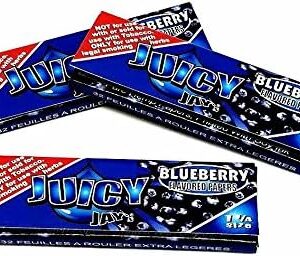
Juicy Jay’s Blueberry flavored rolling papers 1 1/4 Size 3 Packs 32 ea Bundle
$12.50
Buy Now
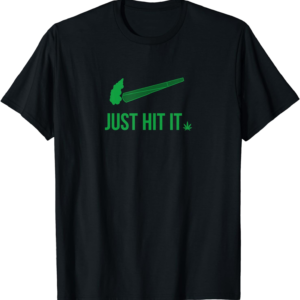
Just Hit It | Cannabis Smoker T-Shirt
$17.99
Buy Now

JUSTTOP Car Steering Wheel Desk for Laptop,Multipurpose Travel Car Accessories, Car Seat Stand Trays for Eating, Steering Wheel Under Table Console(Black)
$29.99 Original price was: $29.99.$9.99Current price is: $9.99.
Buy Now

K COOL Windproof Ashtray with Lid Metal Portable Cigarettes Ashtray for Outdoors Indoors Hand Stamped Pattern Smoking Ashtray Fancy Gift for Men Women(Navy Blue)
$15.50 Original price was: $15.50.$14.75Current price is: $14.75.
Buy Now

KactusKutter K1 Electric Spice Grinder Battery Powered Automatic Portable For Kitchen Herb Grinding – Holds up to 1 Gram
$39.95 Original price was: $39.95.$29.95Current price is: $29.95.
Buy Now
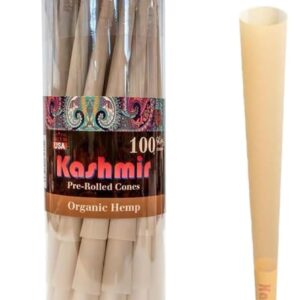
Kashmir 100 ct Organic Rolling Paper Cone King Size, Natural Pre Rolled Cones with Filter Tips, 109mm Organic Natural Fibers Easy to Use Convenient Preroll Cones, Classic Cones Rolling Paper – 100 Pcs
$9.49
Buy Now
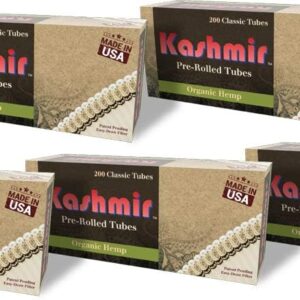
Kashmir 100% Organic Classic 200ct Pre-Rolled Tubes, Portable, and Easy-Draw Rolling Paper Filter Tubes – Carton of 5
$34.99 Original price was: $34.99.$29.91Current price is: $29.91.
Buy Now
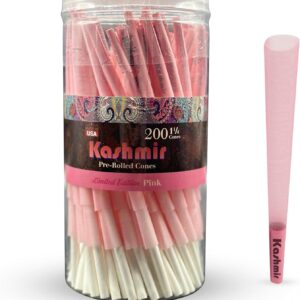
Kashmir Pink Pre Rolled Cones King Size 200 Count – Stylish Pink Rolling Cones with Tips, Unbleached Paper, Slow Burning, Easy Fill, Bulk Pack
$16.99
Buy Now
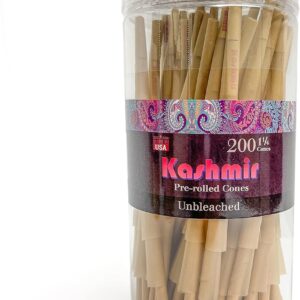
Kashmir Pre Rolled Cones Rolling Papers 1 1/4 Rolling Cones Unbleached Rolling Papers Pre Rolled Cones 78 mm Natural Fibers Easy to Use and Convenient Preroll Cones (1-1/4 200ct)
$18.99 Original price was: $18.99.$16.99Current price is: $16.99.
Buy Now
![Katbite 12in x 262ft Unbleached Parchment Paper Roll, 260 Sq.Ft, Balanced Series, Non-Stick, Extra Long Parchment Baking Paper with Portable Serrated Cutter for Baking, Cooking [Balanced Series]](https://mscannabiz.com/wp-content/uploads/2025/05/71d9qLYNYOL._AC_SL1500_-300x300.jpg)
Katbite 12in x 262ft Unbleached Parchment Paper Roll, 260 Sq.Ft, Balanced Series, Non-Stick, Extra Long Parchment Baking Paper with Portable Serrated Cutter for Baking, Cooking [Balanced Series]
$15.47 Original price was: $15.47.$14.99Current price is: $14.99.
Buy Now
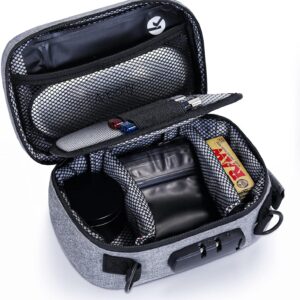
KIBAGA Discrete Smell Proof Odorless Bag With Easy Use Combination Lock – The Perfect Storage Container, Medicine Bag, And Organizer Case For Your Accessories That Blocks Out Smells And Strong Odors
$19.99
Buy Now

Kids of Cannabis: My mom & dad work in cannabis; this is our story
$13.98
Buy Now
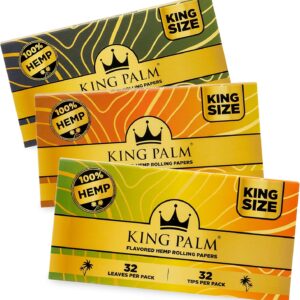
King Palm Flavored Rolling Papers and Tips – King Size – 32 Papers and Tips per Pack – (Mixed Bundle)
$14.99
Buy Now
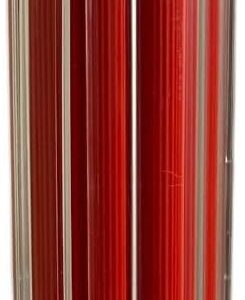
King Size Cigarette Roller – Manual Rolling Machine for Perfect Cigarettes, 4 inch Paper Size
$46.99 Original price was: $46.99.$16.99Current price is: $16.99.
Buy Now
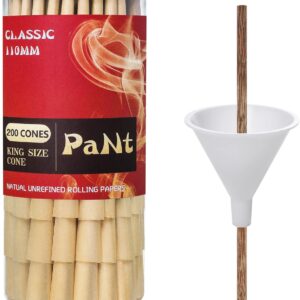
King Size Pre-Rolled Cones | 200 Pack | 110 mm Slow Type Brown Rolling Papers With Tips | Includes Cone Loader
$27.99 Original price was: $27.99.$19.99Current price is: $19.99.
Buy Now
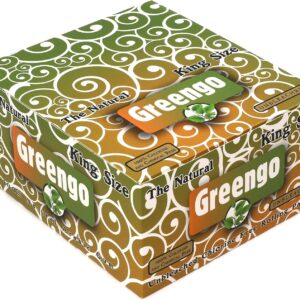
King Size Regular rolling paper x 50 booklets x 33 = 1650 papers
$33.83
Buy Now
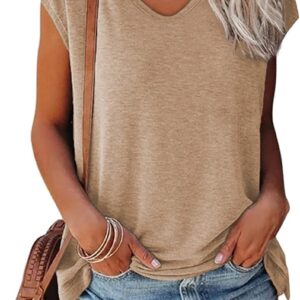
KINGFEN Womens Tops 2024 U Neck Short Sleeve Shirts Summer Tshirts Casual Top
$19.98
Buy Now
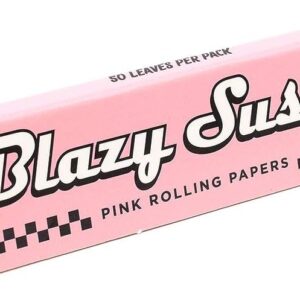
Kingsize Slim Pink Rolling Papers – 50 Leaves Per Pack
$4.86
Buy Now
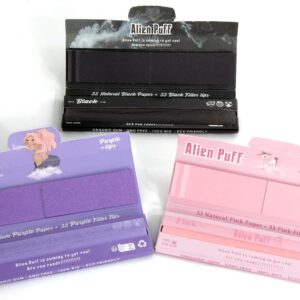
Kingsizeslim Connoisseur Rolling Paper, 3 Colors 110MM Cigarette Paper with Filter Tips, 99pcs Premium Smoking Paper and 99 Tips, Ultra Thin & Slow Burning
$6.99
Buy Now
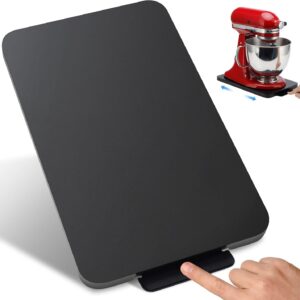
Kitchen Appliance Sliding Tray,Coffee Maker Rolling Tray Under Cabinet Appliance Organizer Toaster Blender Air Fryer Stand Mixer Countertop Storage Moving Slider (Steel, 9″W x 14.5″D)
$45.99
Buy Now

Kitchen Caddy Sliding Tray – Appliance Coffee Maker Slider, Large Rolling Tray Countertop Moving Sliders for Stand Mixer Air Fryer, Toaster, Blender, and More -11.7” W × 13.8”D
$34.99 Original price was: $34.99.$28.49Current price is: $28.49.
Buy Now

Kitchen Spice Grinder 2”
$24.99
Buy Now

KitchenAid 9x13in Nonstick Aluminized Steel Baking Sheet, Contour Silver
$10.99 Original price was: $10.99.$9.99Current price is: $9.99.
Buy Now
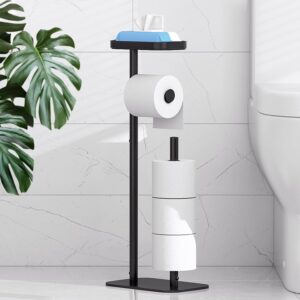
Kitsure Toilet Paper Holder Free Standing – Rustproof Metal Toilet Paper Stand for 4 Rolls with Anti-Slip Base and Shelf for Phone & Small Items, Bathroom Organizers and Storage, Black
$24.99 Original price was: $24.99.$14.98Current price is: $14.98.
Buy Now
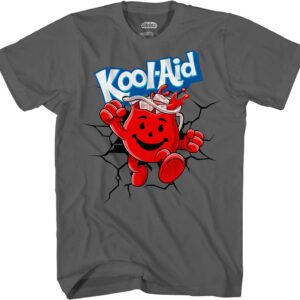
Kool-Aid Mens Oh Yeah Shirt Drink Mix Man Oh Yeah Graphic T-Shirt
$19.99
Buy Now

KOOLSOLY Fishing Hat,Sun Cap with UPF 50+ Sun Protection and Neck Flap,for Man and Women
$14.99 Original price was: $14.99.$12.74Current price is: $12.74.
Buy Now

KOZUKI Anime Rolling Tray 11×7 Anime Ash Tray Premium Metal Tray Gold Plating Anime Jewelry Tray Anime Decorative Tray Anime Table Tray Trendy Gifts Anime Serving Tray Anime Gifts (ARABASTA)
$29.98 Original price was: $29.98.$13.77Current price is: $13.77.
Buy Now

KOZUKI Pink Rolling Tray 11 x 7 Pink ASH Tray Anime Rolling Tray Anime Decorative Tray Premium Metal Tray Pink Serving Tray Artistic Multipurpose Tray for Home (BFF), KKTRAY03
$22.98 Original price was: $22.98.$15.77Current price is: $15.77.
Buy Now
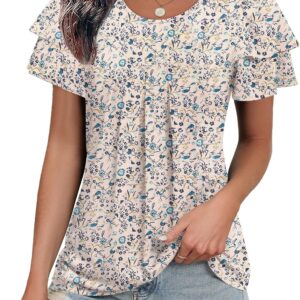
KTILG Women’s Summer Tops Ruffle Short Sleeve T Shirts Crewneck Pleated Front Blouse Casual
$19.99
Buy Now
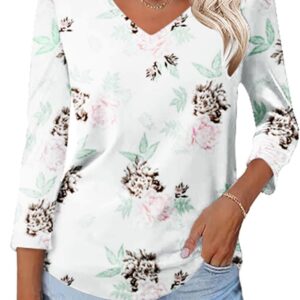
KTILG Women’s V Neck T Shirts 3/4 Sleeve Blouse Summer Tops Dressy Casual Solid Basic Tees
$23.99
Buy Now
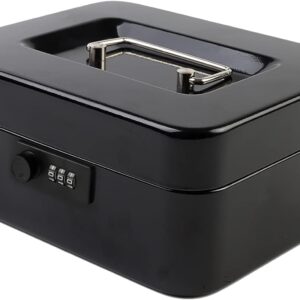
Kyodoled Medium Cash Box with Combination Lock Safe Metal Money Box with Money Tray for Security Lock Box 7.87″x 6.30″x 3.54″ Black Medium
$54.60 Original price was: $54.60.$13.99Current price is: $13.99.
Buy Now
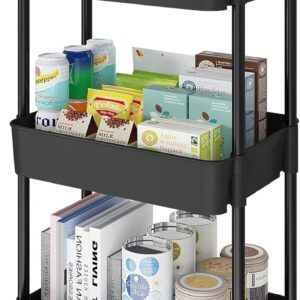
Laiensia 3-Tier Kitchen Storage Cart,Multifunction Utility Rolling Storage Organizer,Mobile Shelving Unit Cart with Lockable Wheels for Bathroom,Laundry,Living Room,With Classified Stickers,Black
$24.99
Buy Now
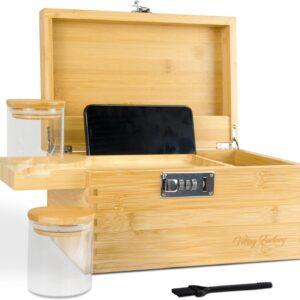
Large Bamboo Box Tray Set with Combination Lock Decorative Box with Accessories for Gift, Home and Organization-Bamboo
$42.99
Buy Now
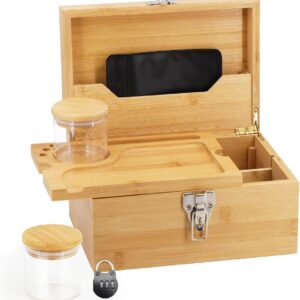
Large Bamboo Box with Combination Lock – Decorative Locking Box with Detachable Compartment, Removable Tray, Jars, Resealable Bags – Great Holidays Gifts
$32.99 Original price was: $32.99.$26.99Current price is: $26.99.
Buy Now

Large Bamboo Box with Combination Lock, Wooden Printed Decorative Storage Box with Upgraded Tray, Stash Storage Lock Box with Smell Proof Bags,Glass Jars,Tubes & Brushes as Great Gift Choice(Mushroom)
$45.85
Buy Now
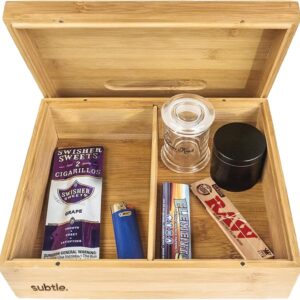
Large Bamboo Stash Box w/Ample Storage Space to Organize Herb Accessories – Comes with Convertible Rolling Tray Lid – (10″ x 8″ x 3.5″)
$43.99 Original price was: $43.99.$19.99Current price is: $19.99.
Buy Now
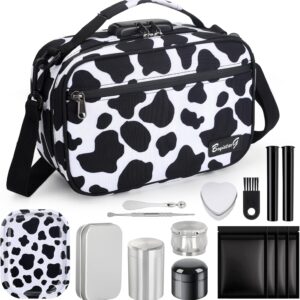
Large Cosmetic Organization Bag with 11 Small Items, Portable Cosmatic Makeup Storage Case with Combination Lock For Home and Travel,(Cute Cow Print) Black and white
$45.96 Original price was: $45.96.$42.96Current price is: $42.96.
Buy Now
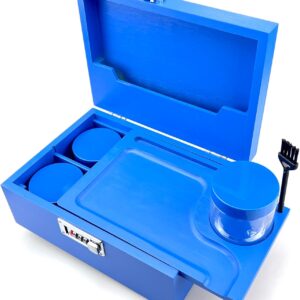
Large Stash Box with Rolling Tray with Combination Lock 3 Jars & brush,Home Gifts Locking Storage Bamboo Box Storage (Blue)
$219.99 Original price was: $219.99.$29.99Current price is: $29.99.
Buy Now
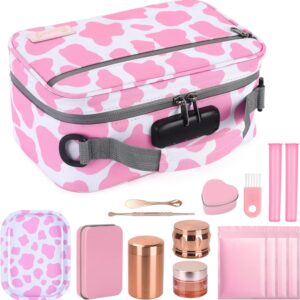
Large Storage Bag ,Medicine Lock Box with Accessories , Portable Lock Bag ,Pouch Water Resistant,Set Travel Case Great for Women, (Cute Cow Print) Pink and White
$45.99 Original price was: $45.99.$42.99Current price is: $42.99.
Buy Now
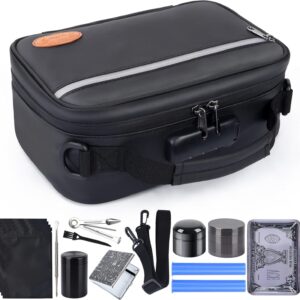
Large Storage Bag ,Medicine Lock Box with Accessories, Portable Lock Bag ,Pouch Water Resistant,Set Travel Case Great Christmas Gifts for Men, Black
$39.99
Buy Now
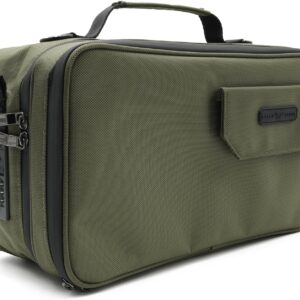
Large Storage Case with TSA Combination Lock Bag, Portable Carbon Lined, XL Medicine Lockable Box for Travel & Home Secured Box Organizer Divider Jars Accessories, Removable Tray (Green)
$60.95
Buy Now
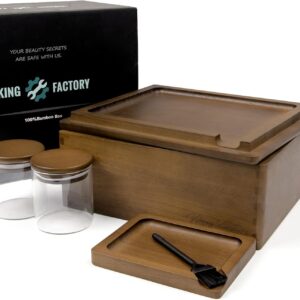
Large Wooden Box Tray Set Storage Decorative Box – Includes Reversible Tray Glass Jar and All Accessories (Walnut)
$41.99
Buy Now

LARIX Trucker Hat – Tamarack Mountain (No-Sweat Hat Liner Included)
$34.99
Buy Now
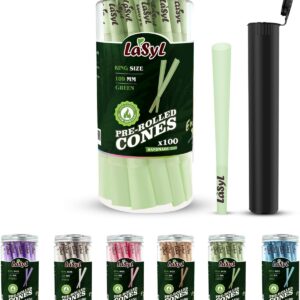
LaSyL Pre Rolled Cones | 100 Pack King Size (Green) | Rolling Paper with Tips and Packing Tubes (4.3inch/109mm) | Burn Slow and Even
$9.99
Buy Now
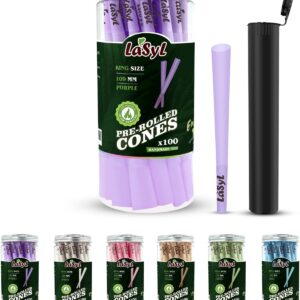
LaSyL Pre Rolled Cones | 100 Pack King Size (Purple) | Rolling Paper with Tips and Packing Tubes (4.3inch/109mm) | Burn Slow and Even
$9.99
Buy Now

LED Rolling Tray Luminous Disk LED Tray Glow Part and Mode White
$31.99 Original price was: $31.99.$21.99Current price is: $21.99.
Buy Now
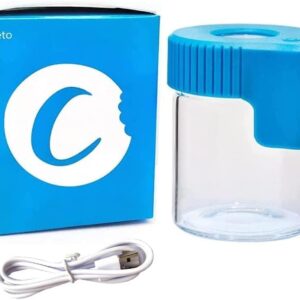
Led Transparent Glass Seal Storage Jar, Light-Up Magnifying Glass Ornamental Glass Bottle (Blue)
$13.99
Buy Now

Legal Cannabis Will Be Bigger Than Cryptos Learn Why You Should Invest Right Now A Beginner Guide To CBD Investing
$1.50
Buy Now
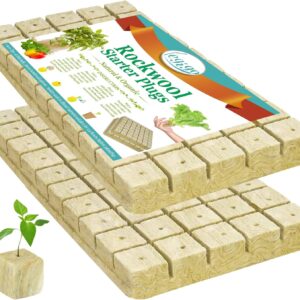
Legigo 1″ Rockwool Grow Cubes Starter Plugs- Rockwool Stonewool Planting Cubes for Seed Starter Soilless Cultivation Hydroponics, Cuttings, Soilless Culture Plant Propagation(2 Sheet, 100 Plugs Total)
$10.99 Original price was: $10.99.$9.99Current price is: $9.99.
Buy Now
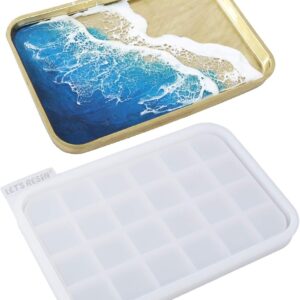
LET’S RESIN Resin Tray Mold,Rectangle Rolling Tray Molds for Resin,Sturdy Silicone Tray Molds with Edges,Large Rolling Tray Molds for Epoxy Casting,DIY Jewelry Holder,Home Decoration
$46.99 Original price was: $46.99.$12.99Current price is: $12.99.
Buy Now
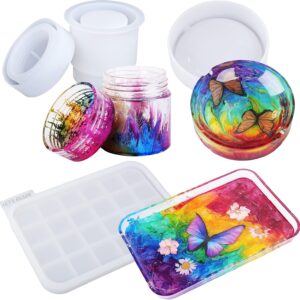
LET’S RESIN Silicone Mold Kit with Rolling Tray, Ashtray Jar with Lid for Casting Epoxy, DIY Storage
$20.99
Buy Now
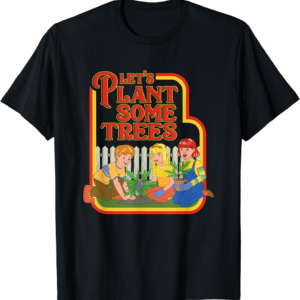
Let’s Plant Some Trees Cannabis Humor Marijuana Funny Weed Short Sleeve T-Shirt
$19.98
Buy Now

Like A BOSS Savage Marijuana Leaf Weed King City Urban Embroidered Fashion Snapback Hat Adjustable Baseball Cap Men Women
$14.99
Buy Now
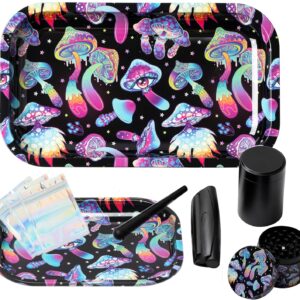
Little Hippie 13-Pack Trippy Mushroom Aluminum Metal Tray Set
$29.04 Original price was: $29.04.$26.99Current price is: $26.99.
Buy Now

Lock & Seal 20 Pack Reusable Food Storage Bags – Heat Sealable, 1 oz, 6″ x 9.8″ x 3.15″ Inch
$19.99 Original price was: $19.99.$7.99Current price is: $7.99.
Buy Now
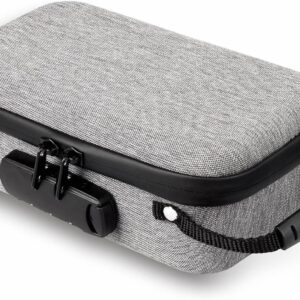
Lock Bag with Combination – Portable Travel Organizer Bags with 3-Digit Combination
$19.99
Buy Now
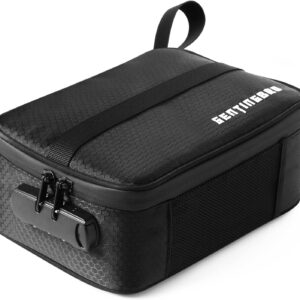
Lock Bag with Combination Medicine Bag Travel Lunch Black
$18.99 Original price was: $18.99.$17.99Current price is: $17.99.
Buy Now

LOCOMO Men Women Baseball Cap Marijuana Pot Leaf Weed Cannabis Embroidered Hat Trucker Hat Snapback Brim
$18.99
Buy Now

LOSTABA Rolling Tray for Cigarettes Rolling, Rolling Tray with Magnetic Lid, Cigarette Rolling Metal Tray 11×7 inches.…
$25.99 Original price was: $25.99.$12.99Current price is: $12.99.
Buy Now
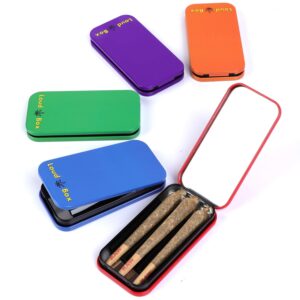
Loud Box 5 Pack Colorful Metal King Sized pre roll Cone Holder, Cigarette Tube, and Cigarette case, Holds 3 pre Rolled Cones, Convenient Smoking Accessories
$16.95
Buy Now

Loveternal Mens 3D Print Tank Top Summer Casual Novelty Polyester Gym Workout Bodybuilding Tank Tops
$10.79
Buy Now
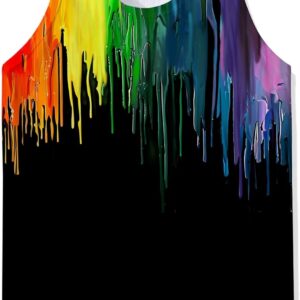
Loveternal Mens 3D Print Tank Top Summer Casual Novelty Polyester Gym Workout Bodybuilding Tank Tops
$14.99
Buy Now

LUCKY BEN 5 Pairs Unisex Marijuana Weed Leaf Boat Warm Cotton Socks US 5-9.5
$13.95 Original price was: $13.95.$12.97Current price is: $12.97.
Buy Now
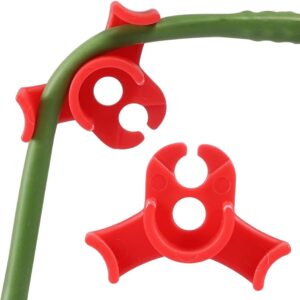
LucyPhy 30 Pack Plant Bender Angle Adjustable Plant Training Clips Low Stress Training Clips 90 Degrees Plant Stem(Circle Style,Red)
$13.99
Buy Now

Lurhonp Novelty Mushroom T-Shirt Hippy Casual Short Sleeve Tee Shirts
$19.99 Original price was: $19.99.$15.99Current price is: $15.99.
Buy Now
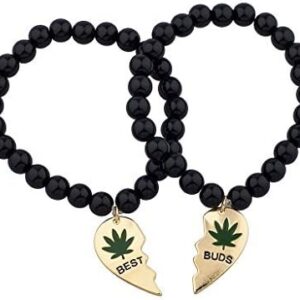
LUX ACCESSORIES Black Beaded Best Buds Weed 420 Marijuana BFF Best Friends Matching Bracelet Set
$11.99
Buy Now
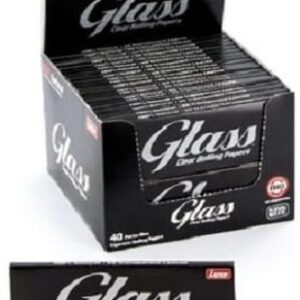
Luxe Glass Mini 1 1/4 Clear Cellulose Rolling Paper – Full Box – 24 Packs
$17.14
Buy Now
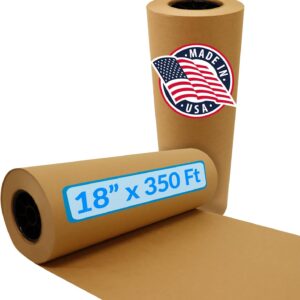
Made in USA | Bulk Value 18″ x 350 ft (4200 inches) Reli. Brown Butcher Paper Roll | Food Grade Kraft Paper for BBQ | Smoking Meat | Meat Wrapping | Unwaxed (Brown)
$31.99 Original price was: $31.99.$29.99Current price is: $29.99.
Buy Now
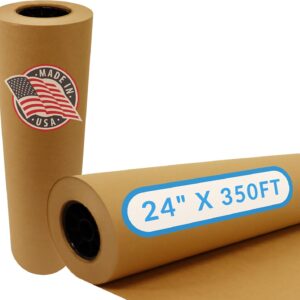
Made in USA | Bulk Value 24 in x 350 ft (4200 in) Reli. Brown Butcher Paper Roll | Food Grade Kraft Paper for BBQ | Butcher Wrap for Smoking Meat | Unwaxed, Meat Wrapping & Smoking (Brown)
$44.47 Original price was: $44.47.$40.49Current price is: $40.49.
Buy Now
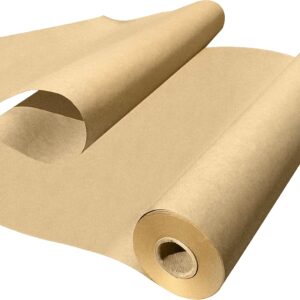
Made in USA Brown Kraft Paper Jumbo Roll 30″ x 2400″ (200ft) Ideal for Gift Wrapping, Art, Craft, Postal, Packing, Shipping, Floor Protection, Dunnage, Parcel, Table Runner, 100% Recycled Material
$33.95 Original price was: $33.95.$30.97Current price is: $30.97.
Buy Now
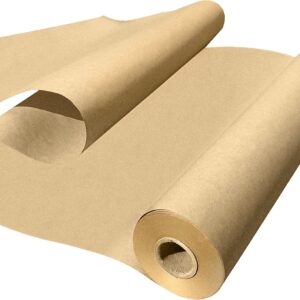
Made in USA Kraft Paper Wide Jumbo Roll 48″ x 1200″ (100ft) Ideal for Gift Wrapping, Art, Craft, Postal, Packing, Shipping, Floor Protection, Dunnage, Parcel, Table Runner, 100% Recycled Material
$41.97 Original price was: $41.97.$30.97Current price is: $30.97.
Buy Now
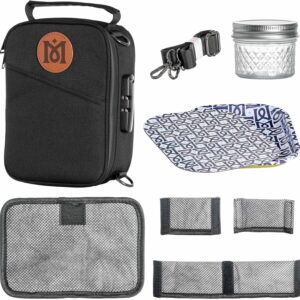
MAGICAL BUTTER Smell-Proof Bag with Combination Lock – Portable Smell-Proof Bag with Tray & Smell-Proof Jar – Secure Organizer Bag for Travel Packing, Portable Storage & Lunch – Black
$59.29
Buy Now
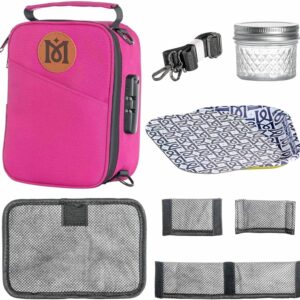
MAGICAL BUTTER Smell-Proof Bag with Combination Lock – Portable Smell-Proof Bag with Tray & Smell-Proof Jar – Secure Organizer Bag for Travel Packing, Portable Storage & Lunch – Pink
$59.22
Buy Now
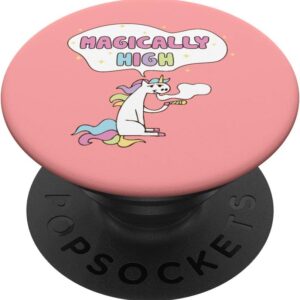
Magically High Unicorn Smoke Weed Cannabis Marijuana Stoner PopSockets Swappable PopGrip
$14.99
Buy Now
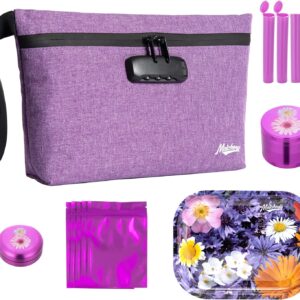
MAICHENG Smell Proof Bag with Combination Lock – Carbon Lined Odor Proof Pouch – Large Smell Proof Containers – Travel Storage Case Gifts for Women – 6 in1 Kit – Purple
$74.98 Original price was: $74.98.$38.99Current price is: $38.99.
Buy Now

Make Money Online With Cannabis Stocks: Learn This Basic Strategy and Build Wealth With Cannabis Stocks Today (Cannabis Education Series)
$15.99
Buy Now

Makeup Bag, Travel Cosmetic Bag, For Women Best Friends Sister Funny Weed Gifts, Small Makeup Zipper Pouch Travel Accessories Organizer Bag Toiletry Case Gifts for Birthday Christmas. Purple
$9.99 Original price was: $9.99.$6.99Current price is: $6.99.
Buy Now
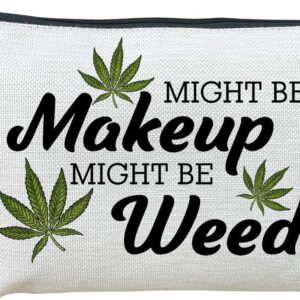
Makeup Cosmetic Marijuana Bag For Women – Might Be Makeup Might Be Weed – Zip Travel Bag Humor Weed Leaves Makeup Pack Gifts For Friends Sisters Colleagues Lovers Employees Bosses …
$9.96
Buy Now

Mamba Original 1g Gray Electric Portable Herb Grinder. USB Powered Essential Kitchen Mill for Grinding
$51.99 Original price was: $51.99.$32.28Current price is: $32.28.
Buy Now
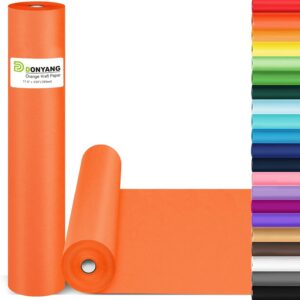
Mardi Gras Orange Wrapping Paper, 17.5″x335″ Construction Bulletin Board Art Poster Kraft Craft Decorative Paper Roll, Perfect for Halloween, Wedding, Birthday, Bouquet Flower Gift Wrap110GSM 75LB
$6.99 Original price was: $6.99.$5.99Current price is: $5.99.
Buy Now
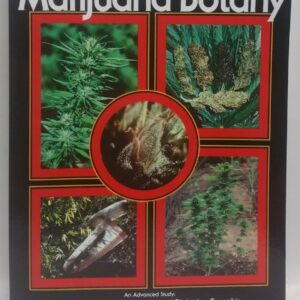
Marijuana Botany: An Advanced Study: The Propagation and Breeding of Distinctive Cannabis
$24.95 Original price was: $24.95.$20.39Current price is: $20.39.
Buy Now
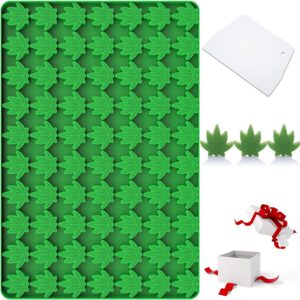
Marijuana Cannabis Hemp Leaf Silicone Molds with 70 Cavities Shaped for Pot Chocolate Candy Gummy, with Baking Scraper
$9.99
Buy Now
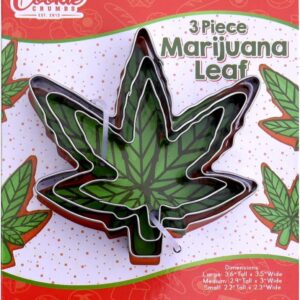
Marijuana Cannabis Shaped (Pot Leaf), Cookie Cutter Set, 3 Piece, Premium Food-Grade Stainless Steel, Dishwasher Safe (1 Pack)
$6.99
Buy Now

Marijuana Cultivation: Aeroponic Grow
$2.99
Buy Now

Marijuana Edibles: 40 Easy and Delicious Cannabis-Infused Desserts
$14.95 Original price was: $14.95.$13.97Current price is: $13.97.
Buy Now
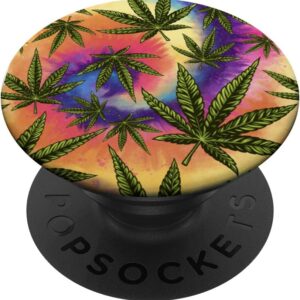
Marijuana Ganja Hemp Cannabis Weed Tie dye Pattern Smoking PopSockets Swappable PopGrip
$16.99
Buy Now
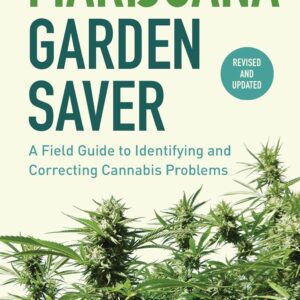
Marijuana Garden Saver: A Field Guide to Identifying and Correcting Cannabis Problems
$24.95 Original price was: $24.95.$21.22Current price is: $21.22.
Buy Now
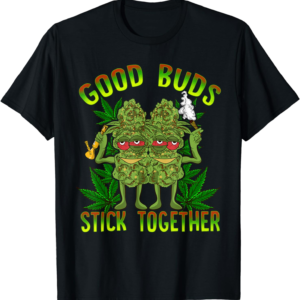
Marijuana Good Buds Stick Together Couples 420 Weed Cannabis T-Shirt
$15.99
Buy Now
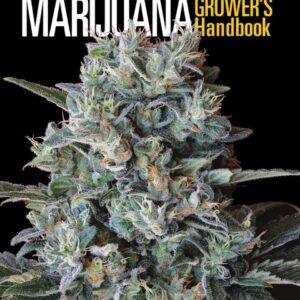
Marijuana Grower’s Handbook: Your Complete Guide for Medical and Personal Marijuana Cultivation
$35.10
Buy Now

MARIJUANA GROWING SECRETS: The Ultimate Beginner’s Guide to Personal and Medical Marijuana Cultivation Indoors and Outdoors. Discover How to Grow Top Quality Weed and Advanced Cannabis Growing Tips
$0.99
Buy Now

Marijuana Harvest: How to Maximize Quality and Yield in Your Cannabis Garden
$24.95 Original price was: $24.95.$20.91Current price is: $20.91.
Buy Now
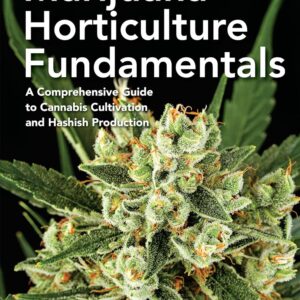
Marijuana Horticulture Fundamentals: A Comprehensive Guide to Cannabis Cultivation and Hashish Production
$30.00
Buy Now

Marijuana Horticulture: Big Buds, Growers guide to get the biggest yields from your plants (Growing Marijuana, Marijuana Cultivation, Cannabis, Medical Marijuana, Marijuana Horticulture)
$0.99
Buy Now

Marijuana Horticulture: The Indoor/Outdoor Medical Grower’s Bible
$29.95 Original price was: $29.95.$23.95Current price is: $23.95.
Buy Now

Marijuana Indoor Grow Guide: Expert Tips and Tricks for Successful Cannabis Cultivation
$3.99
Buy Now

Marijuana Leaf Adjustable Hat Cap – Black
$11.95
Buy Now

Marijuana Leaf MJ Mary Jane Smoking Happy Collection Dad Hat Baseball Cap Polo Style Adjustable Unisex
$14.99
Buy Now
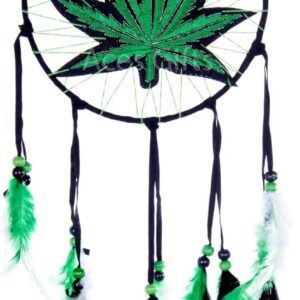
Marijuana Leaf Pot Weed Embroidered Dream Catcher (16 Inches Long)
$13.99
Buy Now

Marijuana Leafs Pom Pom Acrylic Beanie Hat
$19.99
Buy Now
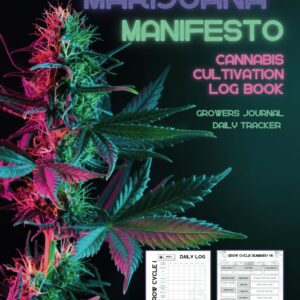
Marijuana Manifesto – Cannabis Cultivation Log Book: Growers Journal – Daily Tracker
$9.99
Buy Now
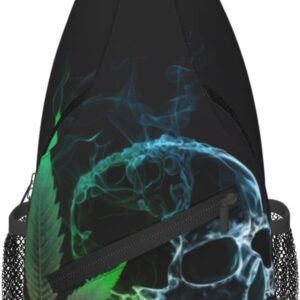
Marijuana Pot Leaf Weed Skull Crossbody Chest Bag for Women Men, Daypack Sling Backpack for Travel Sport Running Hiking
$24.99
Buy Now
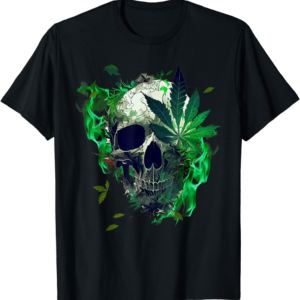
Marijuana Skull Smoke Weed Cannabis 420 Pot Leaf Sugar Skull T-Shirt
$15.99
Buy Now

Marijuana Stoner Cannabis Weed 420 Funny Unisex Adult Fashion Baseball Cap Fashion Adjustable Dad Hat Sport Cap
$20.59
Buy Now

Marijuana Weed Cannabis Leaf – Joint T-Shirt
$19.99
Buy Now

Marijuana-Cannabis Weed Bucket Hat Women Men Funny Fisherman Hat for Girls Cute Wide Brim Cap Beach Outdoor
$9.99
Buy Now
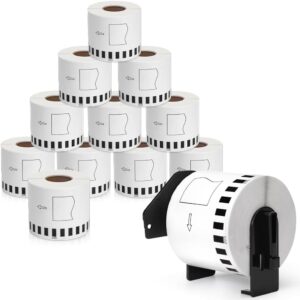
MarkDomain 12 Rolls DK2205 (2.4″ X 100 Ft.) Continuous Length Labels Paper Tape, Compatible Brother Paper Roll (62mm x 30.4m) Use with QL QL-800 QL-820NWB QL-1060N QL-1110NWBC Label Printers
$42.99
Buy Now
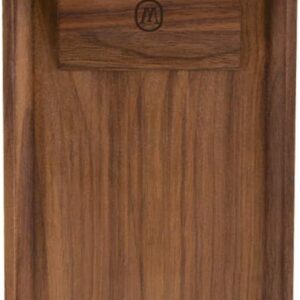
Marley Natural Walnut Tray – Enhancing Experience with Sustainable Craftsmanship and Magnetic Wooden Scraper (Large)
$39.99
Buy Now
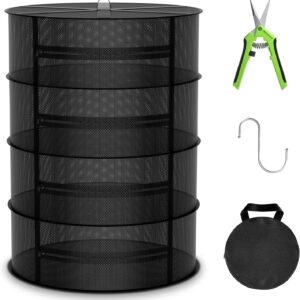
MARS HYDRO Herb Drying Rack, 2 ft 4 Layers Hanging Mesh Plant Racks with Zipper, Grow Tent Drying Rack for Herbs, Flowers, Seeds
$23.99
Buy Now
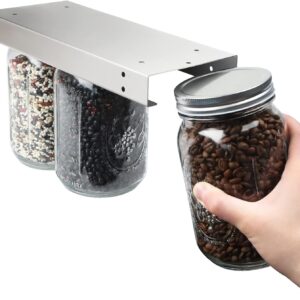
mason jar racks, mason jar holders,mason jar holders for hanging,Stainless Steel Holder with 3 Mounting Options for Kitchen, Shelves and Cabinets,Wide Mouth(2Pack
$22.99
Buy Now

Master Lock Pink Portable Small Lock Box, Set Your Own Lock Combination Portable Safe, Personal Travel Safe for Phone, Passport, Money, 5900DPNK
$25.99 Original price was: $25.99.$23.20Current price is: $23.20.
Buy Now

Mastering the Art of Cannabis in Coco: The Ultimate Guide to Growing Premium Cannabis Indoors in Coco
$2.99
Buy Now
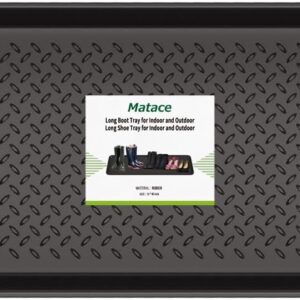
Matace 1 Pack Rubber Large Boot Tray for Entryway,Long Shoe Tray,Slim Boot Mat for Indoor and Outdoor Use, 16×40 in
$32.99
Buy Now
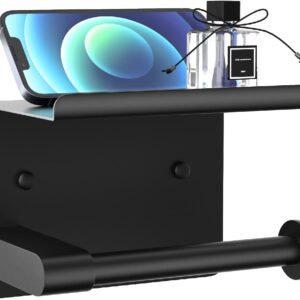
Matte Black Toilet Paper Holder with Shelf, Fits Mega Rolls, Rustproof Stainless Steel, Self Adhesive Wall Mount Toilet Paper Roll Holder, for Bathroom, Washroom, Kitchen, RV
$9.99 Original price was: $9.99.$8.99Current price is: $8.99.
Buy Now
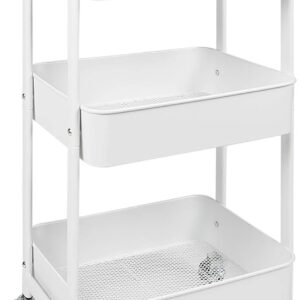
MAX Houser 3-Tier Rolling Utility Cart with Caster Wheels,Easy Assembly, for Kitchen, Bathroom (White)
$45.88 Original price was: $45.88.$29.89Current price is: $29.89.
Buy Now
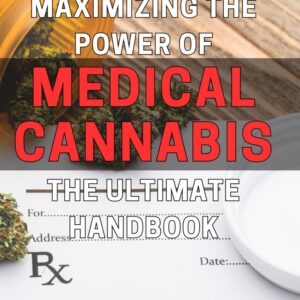
Maximizing the Power of Medical Cannabis: The Ultimate Handbook: Unlocking the Benefits of Medical Cannabis: A Comprehensive Guide for Optimal Health.
$11.99
Buy Now
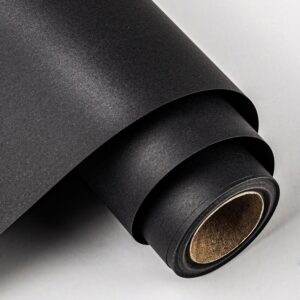
MAYPLUSS Black Kraft Paper Roll -Mini Roll- 17in x 32.8ft(46.8sqft) Recyclable Paper Perfect for Gift Wrapping, Craft,Moving Packing,Table Runner,Floor Covering,Dunnage,Parcel,Party,Birthday Wedding
$9.99 Original price was: $9.99.$8.99Current price is: $8.99.
Buy Now
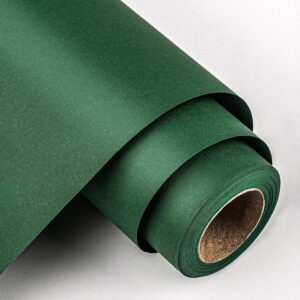
MAYPLUSS Green Kraft Paper Roll – Jumbo Roll- 30in x 32.8FT (81.8sqft),Recyclable Wrapping Paper for Gift Wrapping, Craft,Table Runner,Dunnage,Parcel,Party,Birthday Wedding Green St.Patrick’s Day
$21.99
Buy Now
![McKesson Medical Exam Table Paper [12 Rolls] – Bed Table Sheet Cover Ideal for Diaper Changing, Waxing, Nursing, Chiropractor, Patternmaking, Tracing - Smooth Paper Roll - White, 21 in x 225 ft](https://mscannabiz.com/wp-content/uploads/2025/04/51kqKva9LEL._AC_SL1500_-300x300.jpg)
McKesson Medical Exam Table Paper [12 Rolls] – Bed Table Sheet Cover Ideal for Diaper Changing, Waxing, Nursing, Chiropractor, Patternmaking, Tracing – Smooth Paper Roll – White, 21 in x 225 ft
$54.99 Original price was: $54.99.$52.24Current price is: $52.24.
Buy Now
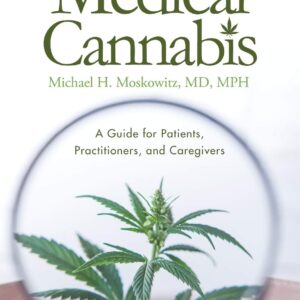
Medical Cannabis: A Guide for Patients, Practitioners, and Caregivers
$24.95 Original price was: $24.95.$22.89Current price is: $22.89.
Buy Now

Medical Cannabis: The Beginner’s Handbook
$17.99
Buy Now

Medical Cannabis: Unlocking the Potential for Top Conditions
$4.99
Buy Now
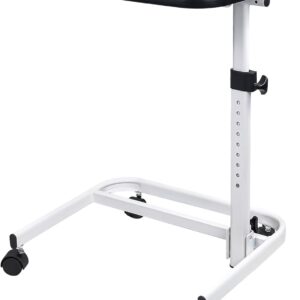
Medical Rolling Bedside Table with Wheels, Over Bed Table with Storage, Serving Tray, Laptop Computer Desk for Elderly, Hospital Patient, Home Care, White
$99.98 Original price was: $99.98.$79.99Current price is: $79.99.
Buy Now

Medusa Hippie Psychedelic Snakes Greek Mythology Women T-Shirt
$19.99
Buy Now
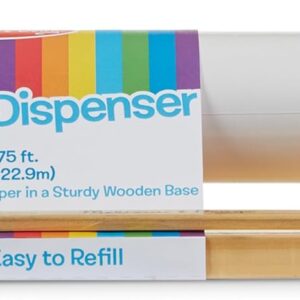
Melissa & Doug Wooden Tabletop Paper Roll Dispenser With White Bond Paper (12 inches x 75 feet) Drawing For Kids Art, Craft Roll For Kids
$24.99 Original price was: $24.99.$21.43Current price is: $21.43.
Buy Now

Men Women Baseball Cap Marijuana Pot Leaf Weed Cannabis Embroidered Hat Trucker Hat Snapback Brim
$16.99
Buy Now
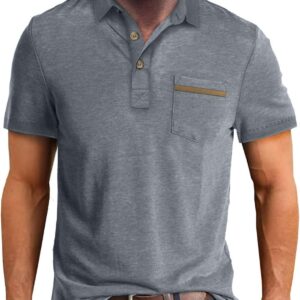
Men’s Casual Polo Shirts Classic Button Basic Short Sleeve Shirt Solid Color Tees Golf Stylish Tops
$25.99
Buy Now

Men’s Digital Print Sweatshirts Hooded Top Galaxy Pattern Hoodie
$25.99
Buy Now
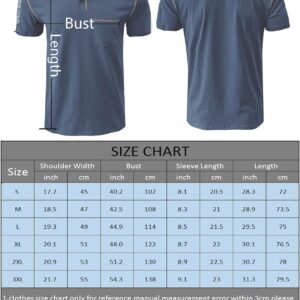
Men’s Fashion Henley Shirt Classic Short/Long Sleeve Lightweight Button Cotton T-Shirt Casual Top
$25.99
Buy Now
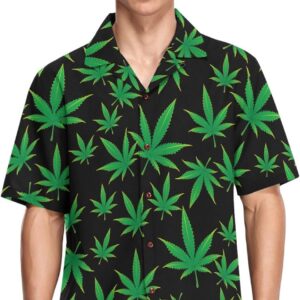
Men’s Hawaiian Shirts Casual Button Down Shirt Short Sleeve Aloha Beach Shirts
$19.99
Buy Now
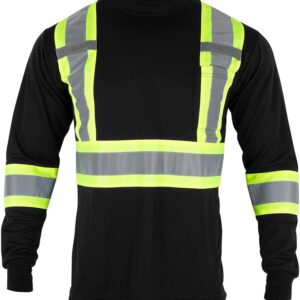
Men’s High Vis Safety Work T Shirt ANSI Class 2 Reflective Long Sleeve Shirt with Pocket(Black,S)
$25.99
Buy Now
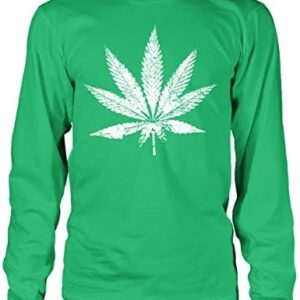
Men’s White Weed Marijuana Leaf Cannabis 420 Long Sleeve T-Shirt
$11.95
Buy Now

Mens First Aid T Shirt Funny 420 Marijuana Pot Leaf Graphic Weed Tee for Stoner
$14.99
Buy Now

Mens It’s 4:20 Somewhere Tshirt Funny Marijuana Weed Smoking Novelty Tee
$11.99
Buy Now

Mens IVXX 420 T Shirt Funny Graphic Weed Tee Cannabis CBD Pot 420 Gift for Stoners
$14.99
Buy Now

Mens Need Weed T Shirt Funny 420 Pot Smoking Lovers Joke Tee for Guys
$9.99
Buy Now

Mens Wake and Bake Tshirt Funny Morning Marijuana Legalization Tee for Guys
$14.99
Buy Now

Metal Decor For Bathroom Wall Cannabis Knowledge Metal Tin Sign Vintage Decoration Garage Home Garden Cafes Kitchen Wall Antique Tin Signs 8×12 inch
$9.99
Buy Now

Metal Herb Grinder Rolling Tray Set, Bring a Suitcase Premium Grinder 7-in-1 Moisture-Proof Smell-Proof Bag Travel Set
$34.98 Original price was: $34.98.$32.98Current price is: $32.98.
Buy Now

Metal Marijuana Pot Leaf Weed Cannabis Accessory Jewelry Lapel Pin Perfect for Backpack, Hat or Lanyard by StockPins
$12.95 Original price was: $12.95.$8.95Current price is: $8.95.
Buy Now

Metal Rolling Tray – 7 x 5.5 inch, Smooth Rounded Corners, Classic Minimalist Aesthetic, Suitable for Home, Outdoor & Kitchen Use (Black)
$9.99 Original price was: $9.99.$4.99Current price is: $4.99.
Buy Now

Metal Rolling Tray – Large 13″ x 11″ – Charizard Unique Trays
$18.95
Buy Now
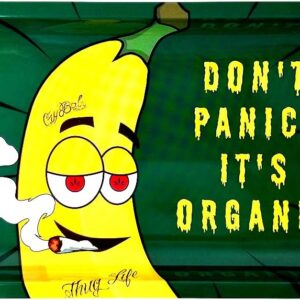
Metal Rolling Tray – Medium – 7″ x 11″ (Banana)
$12.99
Buy Now
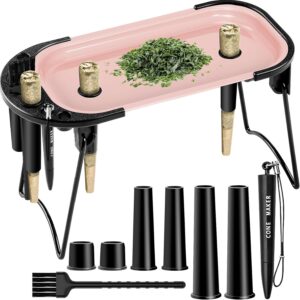
Metal Rolling Tray with Cone Loader 8.5″x3.8″ for King Size & 1 1/4 Pre Rolled Cones,Pre Rolled Paper & Foldable Stand – Smoking Trays Accessories for Travel & Home
$9.99
Buy Now
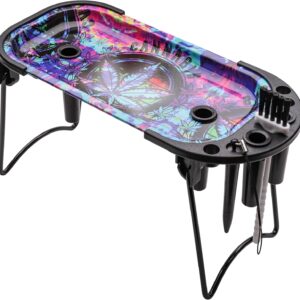
Metal Rolling Tray with Cone Loader for King Size &1 1/4 Size Pre Rolled Cones, Pre Roll Machine, Foldable Stand Cone Filler with Brush & Placement Device
$69.99 Original price was: $69.99.$9.99Current price is: $9.99.
Buy Now
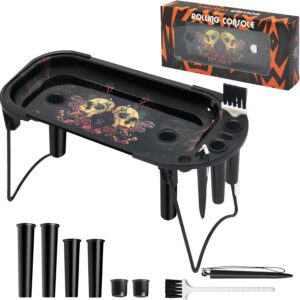
Metal Rolling Tray with Cone Loader Set 8.5 x 3.8 Inch, for King Size and 1 1/4 Size Cones Rolling Paper, Pre Roll Machine, Foldable Stand Rolling Table with Cone Filler, Brush, Tools
$7.99
Buy Now

Metal Rolling Tray, Foldable Cone Loader Tray Pre Roll Machine for King Size &1 1/4 Size Pre Rolled Cones Filler Funnel Double Rolling Tray with Full Accessoris (Yellow)
$18.99 Original price was: $18.99.$15.99Current price is: $15.99.
Buy Now
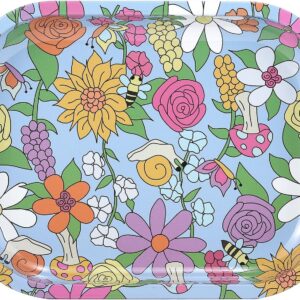
Metal Rolling Tray, Perfect Rolling Station, Easy to Carry, Floral Printing 7″ L x 5.5″ W
$8.99 Original price was: $8.99.$6.99Current price is: $6.99.
Buy Now
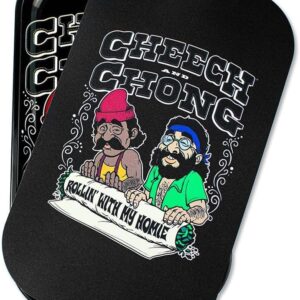
Metal Tray with PVC Soft Magnetic Lid – Black, Large, Cute Decorative Tray for Home Decor, Coffee Table, Tea, Snacks, Gifts – 11″ x 7″
$14.99
Buy Now
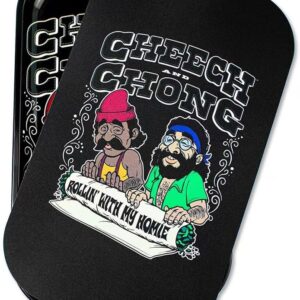
Metal Tray with PVC Soft Magnetic Lid Black Tray with Lid Cover Large Cute Decorative Tray for Home Decor, Coffee Table, Tea, Snacks, Gifts – 11″” x 7″” (Black-with lid)
$14.99
Buy Now
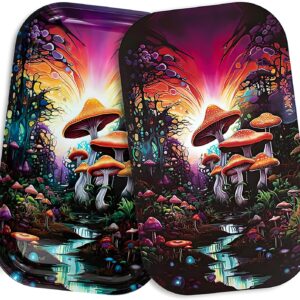
Metal Tray with PVC Soft Magnetic Lid, 11″ x 7″ – Large Storage Decorative Tray for Home Decor, Coffee Table, Tea, Snacks, Gifts
$14.99
Buy Now
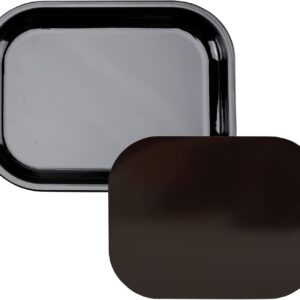
Metal Tray with Soft Magnetic Lid Black Tray with Spill Proof Cover Small Mini Rolling Trays Storage for Home or On-The-Go
$9.99 Original price was: $9.99.$8.99Current price is: $8.99.
Buy Now
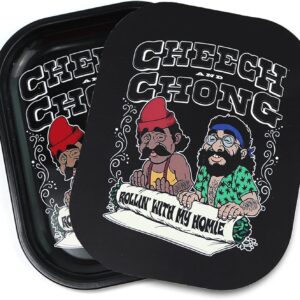
Metal Tray with Soft Magnetic Lid,Metal Small Tray with Spill Proof Cover,Cute Black Decorative Tray,Perfect for Home and On-The-Go,7” x 5.5”(Black)
$32.99 Original price was: $32.99.$9.95Current price is: $9.95.
Buy Now

Metal Tray with Soft PVC Magnetic Lid Small Cute Decorative Tray Ideal Storage for Home or on The Go, 7″” x 5.5″” (Multicolor- Skulls)
$14.98 Original price was: $14.98.$9.99Current price is: $9.99.
Buy Now
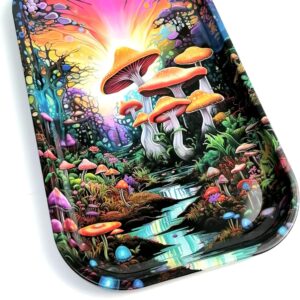
Metal Trays Large Cute Decorative Tray Ideal for Home Storage or on The Go,for Home Decor, Coffee Table, Tea, Snacks, Gifts – 11″ x 7″ (Green)
$9.99
Buy Now
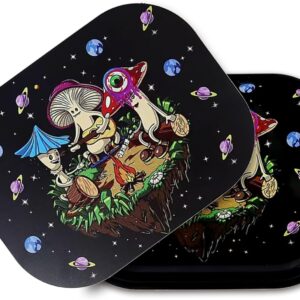
Metal Trays with PVC Soft Magnetic Lid Metal Tray with Lid Cover Small Cute Decorative Tray Ideal Storage for Home or on The Go, 7″ x 5.5″
$9.99
Buy Now
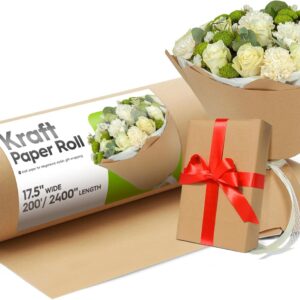
METRONIC Brown Kraft Paper Roll 17.5″x 2400″(200′), Craft Wrapping Paper Gift Wrapping Bulletin Board Arts & Crafts, Bouquet Flower Table Covering Poster Packing Shipping Moving Supplies 75GSM
$14.99
Buy Now
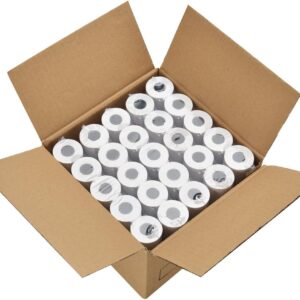
MFLABEL 50 Rolls Thermal Receipt Paper Rolls 3-1/8 x 230ft Thermal Paper Rolls
$127.64
Buy Now

MicButty 42 Pieces Red Crepe Paper Rolls with Floral Tape, Floral Iron Wire for Crafts Wedding Festival Party Supplies DIY Flower Crafts
$9.99
Buy Now
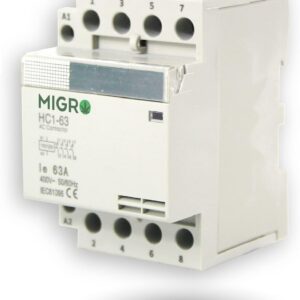
Migro Cannabis Grow Contactor 4 Pole, 60 AMP, 110/120 VAC Normally Open Coil Heavy Duty AC Contactor Replaces Virtually All Residential 4 Pole Models. Best On the Market for Cannabis Cultivation!
$67.99
Buy Now
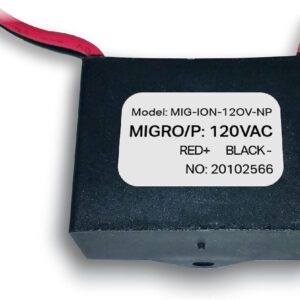
Migro Cannabis Grow Negative Ion Generator 110/120V High Density Plasma Ionizer Module. Best On The Market for Cannabis Cultivation!
$12.95
Buy Now
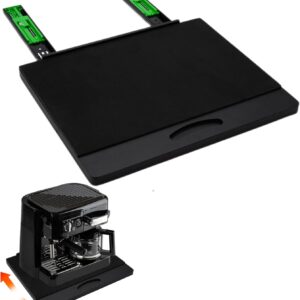
MinBoo Bamboo Appliance Slider,Sliding Tray for Coffee Maker, Kitchen Countertop Appliance Rolling Tray,Slides Easily from under the Cabinet,Wide -Black- Large (16″Wx13″D)
$57.99 Original price was: $57.99.$33.99Current price is: $33.99.
Buy Now
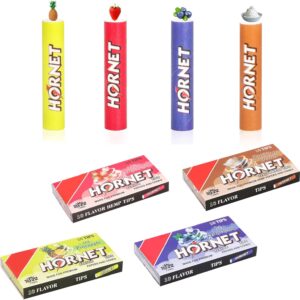
Mix Flavored Pre-Rolled Tips for Rolling Papers, Strawberry Blueberry Pineapple Cream, Ø7mm Filters (4 packs of 10)
$8.99 Original price was: $8.99.$7.99Current price is: $7.99.
Buy Now

Mixer Slider for KitchenAid Stand Mixer 4.5-5 Qt,Sliding Tray Kitchen Appliance Slide Tray Mixer Mover with Smooth Rolling Wheels for Tilt-Head Stand Mixer, KitchenAid Artisan Tilt-Head Mixer
$30.99
Buy Now

Molecule Cannabis Sprout Mesh Hat Outdoor Leisure Adjustable Curved Brim Baseball Cap Unisex
$14.99
Buy Now
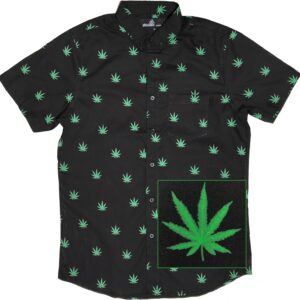
Molokai Surf Button Down Slim Fit Hawaiian Short Sleeve Shirts
$29.99
Buy Now
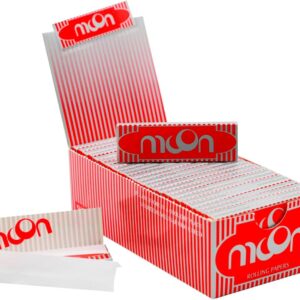
MOON Wood Classic Cigarette Rolling Papers Tobacco Smoking Papers (70mm),50 Booklets
$14.99
Buy Now

Mr Slick Smell Proof Bag 6″ with SK9 Premium odorless Technology US Patent Number D824,672
$14.95
Buy Now
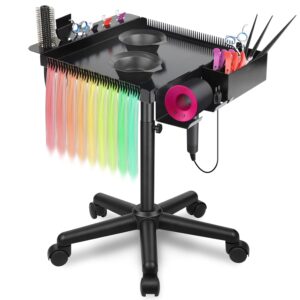
Multi-Function Salon Tray, Salon Rolling Tray cart (with Wheels), Multi-Function Tray for Hair Stylist, Adjustable Salon Color Tray., Black, DGN-01
$69.90
Buy Now
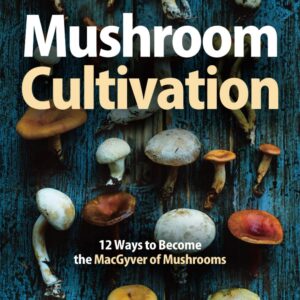
Mushroom Cultivation: 12 Ways to Become the MacGyver of Mushrooms
$16.99 Original price was: $16.99.$15.29Current price is: $15.29.
Buy Now

Mushroom Hunting Mycology Foraging Morel Mushroom Hunter T-Shirt
$19.99
Buy Now
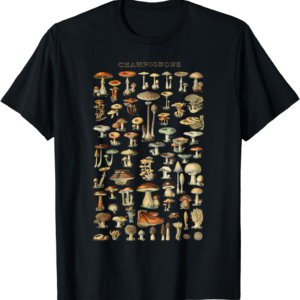
Mushroom Lover, Morel Hunter, Vegan, Gardener, Mushroom T-Shirt
$19.99
Buy Now

Mushroom Oven Mitts Pot Holders Set Silicone Vintage Magic Leaf Kitchen Gloves Potholders Heat Resistant for Chef Baking Cooking Grilling BBQ 4 Pack Mitt
$24.99
Buy Now
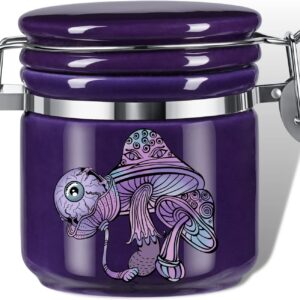
Mushroom Smell Proof Container Half Oz (250ml), Separate Space for Humidity Pack To Keep Herbs Fresh For Months – Cute Girly Stash Jar, Smell Proof Case Airtight Storage Holder Accessories – Purple
$34.98 Original price was: $34.98.$15.99Current price is: $15.99.
Buy Now

MUUZLL 3 Pack 4.1Inch Bonsai Pruning Scissors, Bud And Leaves Trimmer Yarn Thread Cutter Snips Trimming Supplies, Garden Plants, Gardening Clippers Flower, Stainless Steel Pruners Trimmers
$5.99
Buy Now

My Daughter Knows Everything | Funny Dad Father Joke T-Shirt
$14.99
Buy Now
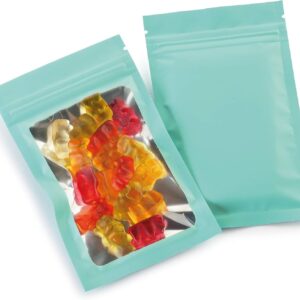
Mylar Bags with Ziplock 3.3 x 5.5″ | 100 Bags | Robins Blue Egg | Sealable Heat Seal Bags for Candy and Food Packaging, Medications and Vitamins | For Liquid and Solids (Robins Blue Egg, 3.3″ x 5.5″)
$10.99
Buy Now
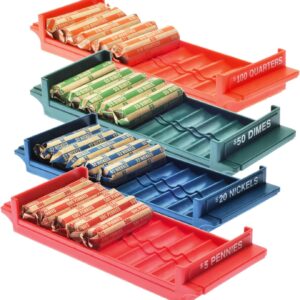
Nadex Rolled Coin Storage Organizer Tray Set with Ridges for Loose Coins | Quarters, Dimes, Nickles, and Penny Color Coded Trays
$27.49
Buy Now

Nakraly Tracing Paper Roll 24 Inch x 60 Yards White Trace Paper Translucent Pattern Paper for Drawing Sewing
$23.99
Buy Now
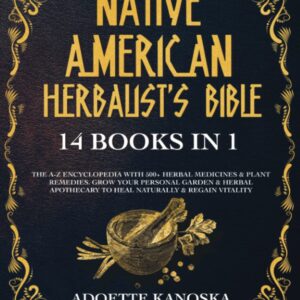
Native American Herbalist’s Bible: 14 books in 1: The A-Z Encyclopedia with 500+ Herbal Medicines & Plant Remedies. Grow Your Personal Garden & Herbal Apothecary to Heal Naturally & Regain Vitality
$24.97
Buy Now
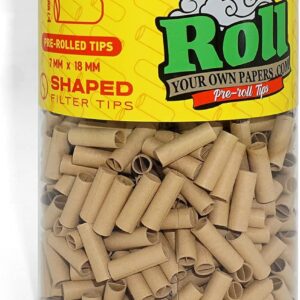
Natural Unbleached Pre-Rolled Filter Tips, Ø7mm – Bottle of 500 Tips
$39.99 Original price was: $39.99.$12.90Current price is: $12.90.
Buy Now
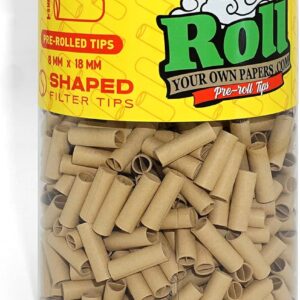
Natural Unbleached Pre-Rolled Filter Tips, Ø8mm – Bottle of 500 Tips
$22.95 Original price was: $22.95.$12.90Current price is: $12.90.
Buy Now

New Mexico Zia Sun Marijuana Cannabis Pot Leaf Accessory
$14.98
Buy Now

New Top-O-Matic Cigarette Rolling Machine
$43.99
Buy Now

Nicky Bigs Novelties Adult Cannabis Leaf Print Sun Visor Hats Marijuana Cap Sun Protection Outdoor, One Size
$9.99
Buy Now
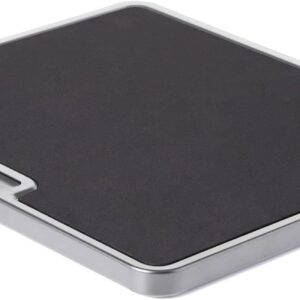
Nifty Large Appliance Rolling Tray – Silver, Home Kitchen Counter Organizer, Integrated Rolling System, Non-Slip Pad Top for Coffee Maker, Stand Mixer, Blender, Toaster
$34.99
Buy Now

NJAN Weed Cannabis 420 Hat USA Hat AllBlack Womens Hat Gifts for Daughter Beach Cap
$17.99
Buy Now
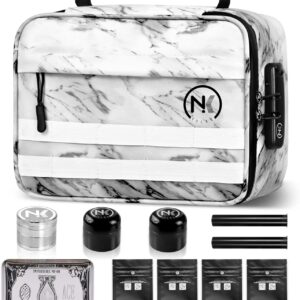
NKTOLEE Smell Proof Bag & Storage Box – Combination Lock, Resealable – Personal Organizer – Marble Case
$28.99
Buy Now
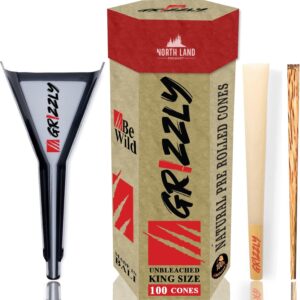
NLP Pre Rolled Cones | King Size Cones | 100 Pack | Organic Cones | Natural Rolling Paper with Tips Pre-Rolled Rolls Papers prerolled cone papers, King Size 109mm
$18.99 Original price was: $18.99.$12.90Current price is: $12.90.
Buy Now
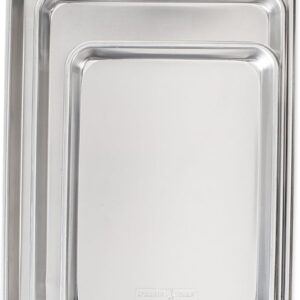
Nordic Ware Naturals 3 Piece Set – USA Made Aluminum Commercial Quality Sheet Pan for Baking or Roasting, Encapsulated Galvanized Steel Rim Prevents Warping; Half Sheet, Jelly Roll and Quarter Sheet
$34.99 Original price was: $34.99.$32.00Current price is: $32.00.
Buy Now
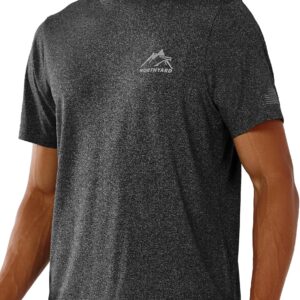
NORTHYARD Men’s UPF 50+ Sun Protection Shirts Swim SPF UV Quick Dry Short Sleeve T-Shirts for Athletic Fishing Rash Guard
$18.99
Buy Now
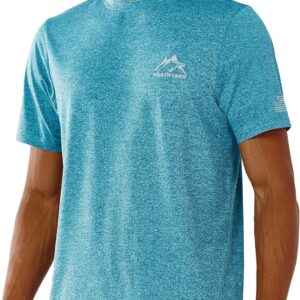
NORTHYARD Men’s UPF 50+ Sun Protection Shirts Swim SPF UV Quick Dry Short Sleeve T-Shirts for Athletic Fishing Rash Guard
$18.99
Buy Now
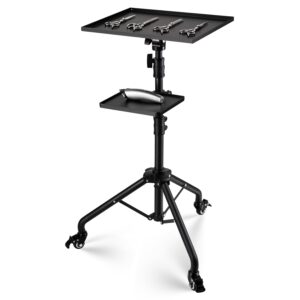
Noverlife Salon Tray Cart on Wheels with Storage Platform, Tattoo Rolling Tray Height Adjustable Salon Service Cart, Iron SPA Rolling Trays Portable Tattoo Table Stand for Dental
$44.89 Original price was: $44.89.$39.59Current price is: $39.59.
Buy Now
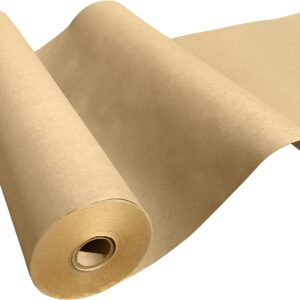
NY Paper Mill Brown Kraft Paper 17.50″ x 2400″ (200 feet) Jumbo Roll, Ideal for Gift Wrapping, Art & Craft, Postal, Packing, Shipping, Floor Covering, Parcel, Table Runner, 100% Recycled Made in USA
$17.89
Buy Now

NYEAR 6 Rolls A4 Quick-dry Thermal Paper (210mm/8.27″width/7.6m long,Φ1.18″) for portable printer,thicker brighter and the font is clearer to make the printing quality better, (1 roll-27 Sheets)
$14.99
Buy Now
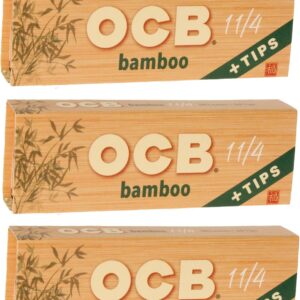
OCB Bamboo 1 1/4 Rolling Paper & Tips – 3 Packs – 50 Papers/Tips Each
$9.99
Buy Now
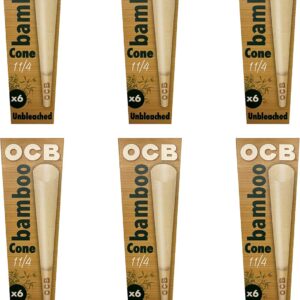
OCB Bamboo 1 1/4 Size Cones ~ 6 Packs of 6 ~ (36 Cones Total) Unbleached Pre Rolled Rolling Paper with Tips, Includes ARC Saver Tube
$17.24
Buy Now
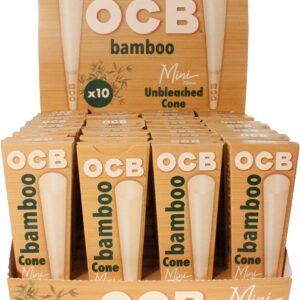
OCB Bamboo Pre-Rolled Mini Cones, 2.75 Inch / 70mm (320 Total Cones) Ultra-Thin Natural Rolling Papers with Tips – Slow Burning, 100% Bamboo Fibers, Natural Acacia Gum
$61.80
Buy Now
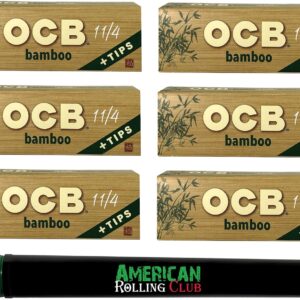
OCB Bamboo Rolling Papers ~ 1-1/4 + Tips ~ 6 Pack ~ Includes American Rolling Club Tube
$13.87
Buy Now
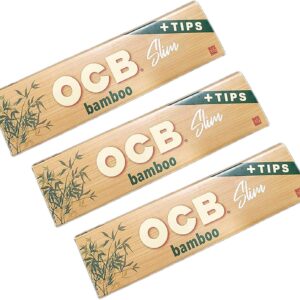
OCB Bamboo Rolling Papers King Slim w/Tips 110mm Ultra Thin (3 Pack)
$8.99
Buy Now
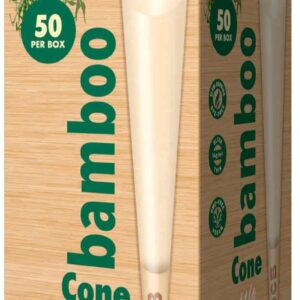
OCB Bamboo Unbleached Pre-Rolled Rolling Paper Cones 1-1/4 (84mm) Size – 50 Cones
$13.97
Buy Now
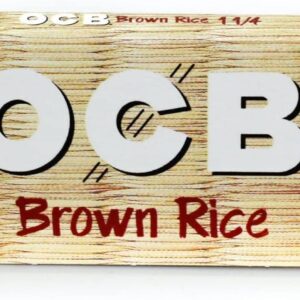
OCB Brown Rice Cigarette Rolling Paper 1 1/4 – Pack of 5
$12.22
Buy Now
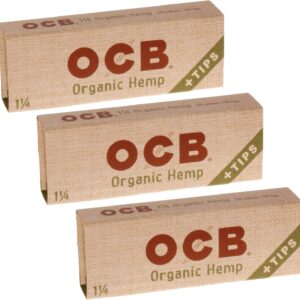
OCB Organic 1 1/4 Rolling Paper & Tips – 3 Packs – 50 Papers/Tips Each
$9.98
Buy Now
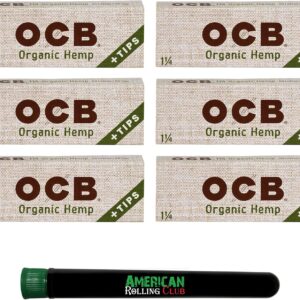
OCB Organic Cigarette Rolling Papers ~ 1-1/4 + Tips ~ 6 Pack ~ Includes American Rolling Club Tube
$14.51
Buy Now
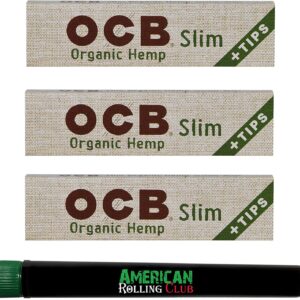
OCB Organic Cigarette Rolling Papers ~ King Size Slim + Tips ~ 3 Pack ~ Includes American Rolling Club Tube
$9.99
Buy Now
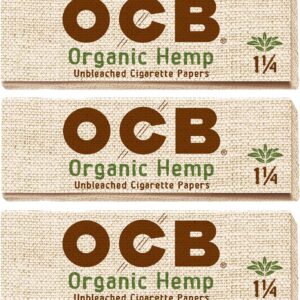
OCB Organic Hemp 1 1/4 Rolling Papers – 3 Packs – 50 Papers Each
$7.91
Buy Now
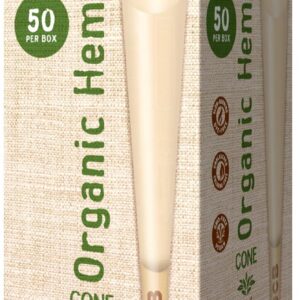
OCB Organic Hemp Unbleached Pre-Rolled Rolling Paper Cones 1-1/4 (84mm) Size – 50 Cones
$12.46
Buy Now
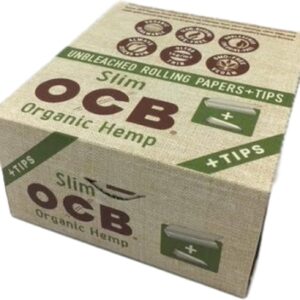
OCB Organic King Slim Size Ultra thin Rolling Papers with Tips Full Box (24 Pack)
$53.99
Buy Now
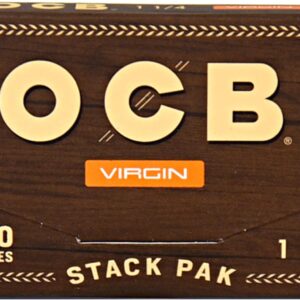
OCB Organic Virgin Hemp Rolling Papers 1 1/4 Stack Pack – 300 Leaves Total!
$5.99
Buy Now
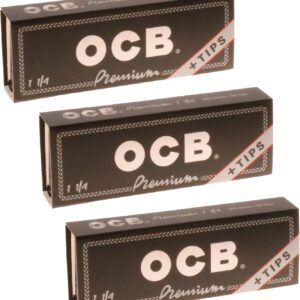
OCB Premium 1 1/4 Rolling Paper & Tips – 3 Packs – 50 Papers/Tips Each
$8.16
Buy Now
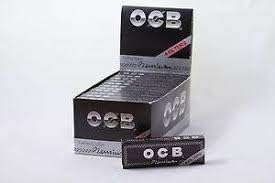
OCB Premium 1 1/4 with Tips – 24pc Display
$43.29
Buy Now
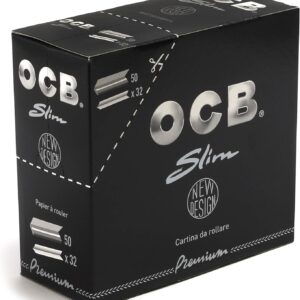
Ocb Premium King Size Slim Rolling Paper Full Box of 50 Packs
$29.54 Original price was: $29.54.$28.08Current price is: $28.08.
Buy Now
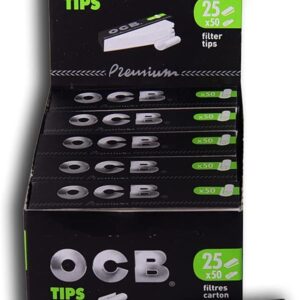
OCB Premium Tips for Cigarette Papers | Full Box = 25 Packs | 1250 Tips Total | Chlorine & Chemical Free | Includes ARC Saver
$25.46
Buy Now
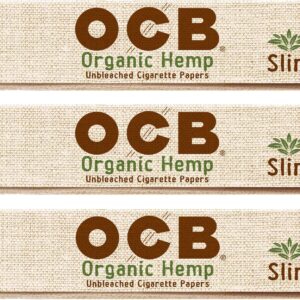
OCB Slim King Organic Rolling Papers – 3 Packs
$7.97
Buy Now
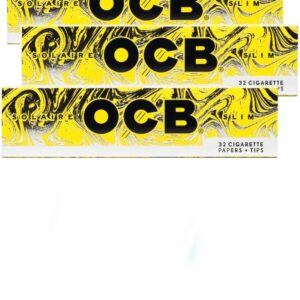
OCB Solaire Slim Size (110mm) Rolling Papers with Tips (3 Pack)
$29.95 Original price was: $29.95.$9.85Current price is: $9.85.
Buy Now
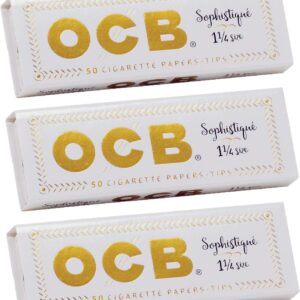
OCB Sophistique 1 1/4 Rolling Paper & Tips – 3 Packs – 50 Papers/Tips Each
$9.88
Buy Now
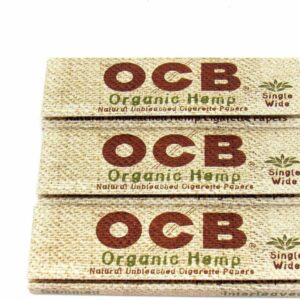
OCB Unbleached Organic Single Wide 70mm rolling paper paper – 3 booklets / 150 paper
$6.36
Buy Now
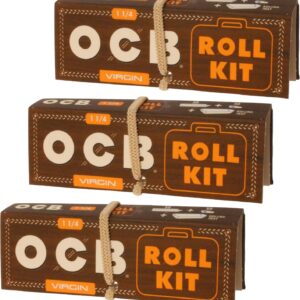
OCB Virgin 1 1/4 Roll Kit incl. Paper/Tips/Rolling Tray (3 Pack)
$3.99
Buy Now
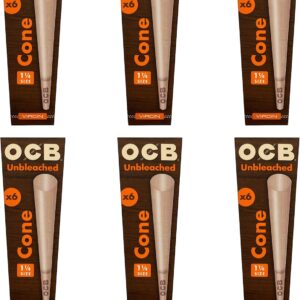
OCB Virgin 1 1/4 Size Cones ~ 6 Packs of 6 ~ (36 Cones Total) Unbleached Pre Rolled Rolling Papers with Tips ~ Includes American Rolling Club Tube
$17.05
Buy Now
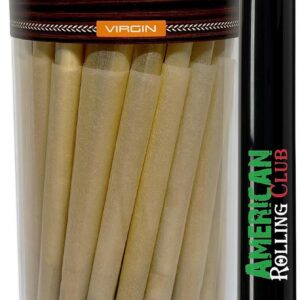
OCB Virgin King Size Cones | 50ct Pack | Unbleached Pre Rolled Cigarette Paper with Tips and Packing Sticks ~ Includes ARC Saver (50 Count)
$15.99
Buy Now
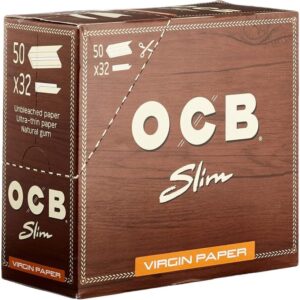
OCB Virgin King Size Slim Unbleached Rolling Paper – 1 Box (Total 1600 Papers)
$33.91 Original price was: $33.91.$29.31Current price is: $29.31.
Buy Now
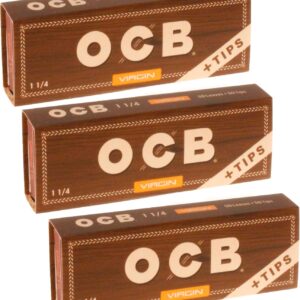
OCB Virgin Organic 1 1/4 Rolling Paper & Tips – 3 Packs – 50 Papers/Tips Each
$29.95 Original price was: $29.95.$9.69Current price is: $9.69.
Buy Now
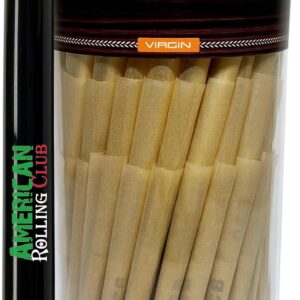
OCB Virgin Prerolled Cones | 1-1/4 Size | 150ct Pack | Unbleached Pre-Rolled Cigarette Paper with Tips and Packing Sticks ~ Includes ARC Saver (150 Count)
$27.91
Buy Now

OCB Virgin Prerolled Cones | 1-1/4 Size | 75ct Pack | Unbleached Pre-Rolled Cigarette Paper with Tips and Packing Sticks ~ Includes ARC Saver (75 Count)
$19.12
Buy Now
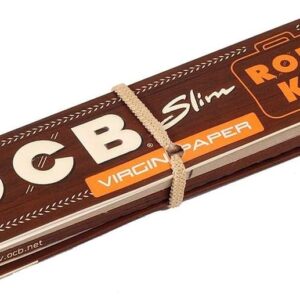
OCB Virgin”Slim” Roll Kit incl. Paper/Tips/Rolling Tray (3 Pack)
$3.99
Buy Now
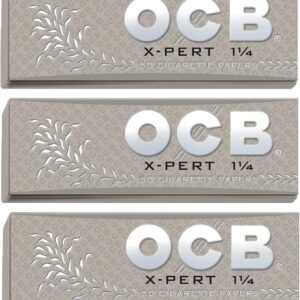
OCB X-Pert 1 1/4 Rolling Papers – 3 packs – 50 papers each
$9.99
Buy Now

Odor Proof Food Storage Bear Bags Reusable Zipper Barrier Bags Airtight Bags Keep Fresh and Waterproof for Backpacking, Camping, Outdoor Bear Proof Refrigerator Freezing (2 Pack)
$12.99 Original price was: $12.99.$11.63Current price is: $11.63.
Buy Now
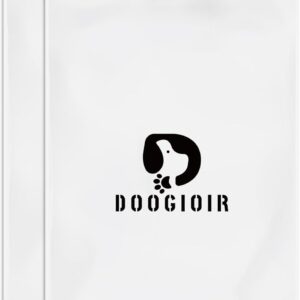
Odor Proof Storage Bags – 12x20 Inch Double Seal Odor Barrier Storage Bags for Backpacking, Camping and Household, Lock in Odors Keep Contents Fresh and Waterproof, Reusable Odor Proof Bags (2 Pack)
$14.59 Original price was: $14.59.$13.88Current price is: $13.88.
Buy Now
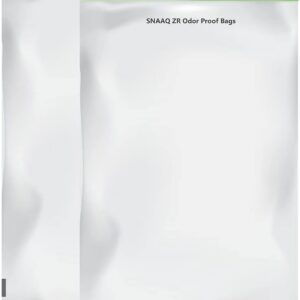
Odor Proof Storage Bags-12x20 Inch, Reusable Double-Tracked Zip Closure Barrier Storage Bags Lock in Odors Keep Contents Fresh and Waterproof, Large No-Odor Bear Bag fit Camping, Hiking, Water Sports and Home Organization(2 Pack)
$15.99
Buy Now
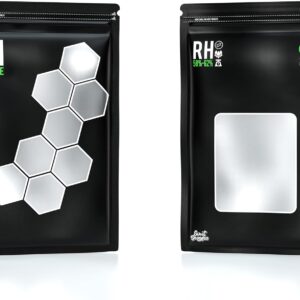
Offical 1 Ounce Bags – 50 Pack Terpene Curing 58%-62% RH Humidity 2-Way Control Lock & Seal Storage & Curing Bags Heat Sealable 6″ x 9.8″ x 3.15″ Inch (1oz, 28g)
$37.99 Original price was: $37.99.$19.99Current price is: $19.99.
Buy Now
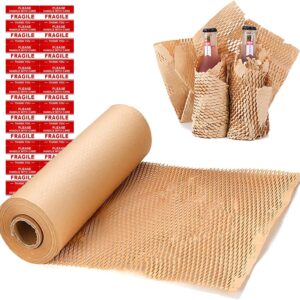
onesimcr Honeycomb Packing Paper Wrap 15″x131′ Sustainable Alternative to Bubble Wrap for Moving/shipping/packing Roll with 20 Fragile Sticker Biodegradable & Fully Recylable…
$16.99
Buy Now
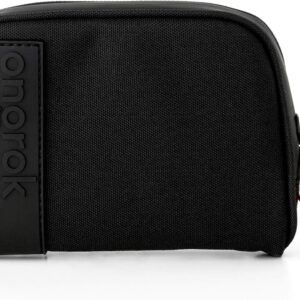
ONGROK Carbon Technology Lockable Pouch, Bamboo Derived, Durable Sealed Waterproof Zipper, Combo Locking Wallet to Stash Away Goods with Care | 2.0 Model – Small
$24.99
Buy Now
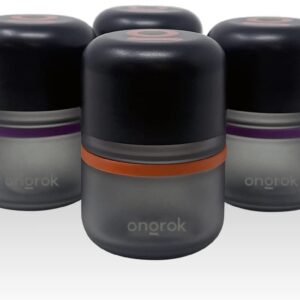
ONGROK Glass Storage Jar, 80ml, 6 Pack, Color-Coded Airtight Containers, UV Herb/Spice Jar to with Child Resistant Lid, Perfect Size to Store in a Drawer or Cupboard
$29.99
Buy Now

only warm Smoke Arsenal Premium Medium Rolling Tray 11×7 Multicolor
$14.98
Buy Now

Organic Cannabis Cultivation: A Complete Beginner-To-Intermediate Guide For Growing Cannabis Organically
$24.99
Buy Now
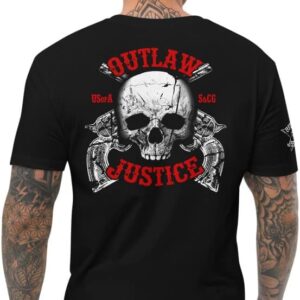
Outlaw Justice Biker T Shirt for Men with Skull and Pistols Graphic – American Patriotic Motorcycle Shirts – 2A Amendment
Read more

Outlaw Justice Biker T Shirt for Men with Skull and Pistols Graphic – American Patriotic Motorcycle Shirts – 2A Amendment
$23.95
Buy Now

OZCHIN Aluminum Metal Tube Conetainer 4.5-inch Fits King Size, Airtight, Lightweight, Fit in Pocket Great for Traveling
$22.98 Original price was: $22.98.$9.99Current price is: $9.99.
Buy Now
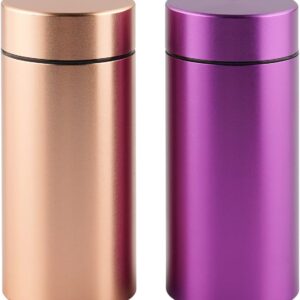
OZCHIN Aluminum Storage Jar Portable Airtight Smell Proof Container Bottle Multipurpose Storage Container for Spices, Coffee & Teas 80ml (Rose Gold&Purple)
$10.99 Original price was: $10.99.$9.99Current price is: $9.99.
Buy Now
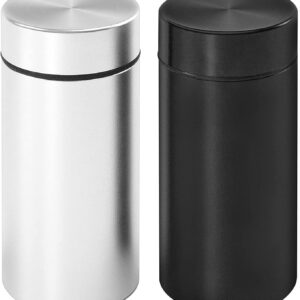
OZCHIN Aluminum Storage Jar Portable Airtight Smell Proof Container Bottle Multipurpose Storage Container for Spices, Coffee & Teas 80ml (Silver&Black)
$9.99 Original price was: $9.99.$8.99Current price is: $8.99.
Buy Now
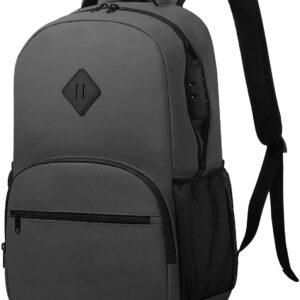
OZCHIN Backpack With Combination Lock, Double Sealed Zipper Classics Carbon Lined Travel Backpack Great Gifts for Men Women (Black)
$45.99 Original price was: $45.99.$35.99Current price is: $35.99.
Buy Now
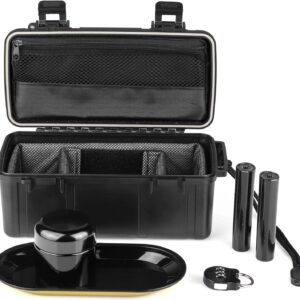
OZCHIN Black Storage Box Resistant Storage Container with Combination Lock ABS Plastic Storage Box (Box Set)
$29.99
Buy Now

OZCHIN Large Bamboo Box with Combination Lock Decorative box for Home Locking Storage Bamboo Box (Nature)
$32.99 Original price was: $32.99.$29.99Current price is: $29.99.
Buy Now

OZCHIN Large Smell Proof Bag with Combination Lock Odor Proof Lock Box Bag Travel Storage Case Activated Charcoal Bag Great Christmas Gift (Flower)
$32.99 Original price was: $32.99.$29.99Current price is: $29.99.
Buy Now
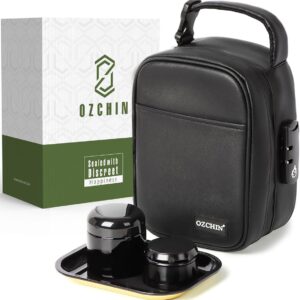
OZCHIN Large Smell Proof Bag with Combination Lock Odor Proof Lock Box Travel Storage Case Activated Charcoal Bag Great Christmas Gift (Jet Black)
$75.00 Original price was: $75.00.$29.99Current price is: $29.99.
Buy Now
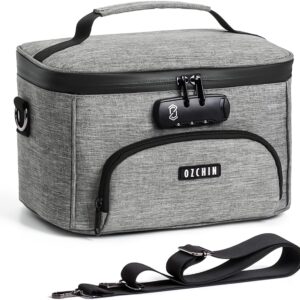
OZCHIN Large Storage Box with Combination Lock Carbon Lining Locking Bag Stylish and Portable Travel Bag Organizer Lockable Box, Great Gift for Mother’s Day(Grey)
$28.99
Buy Now
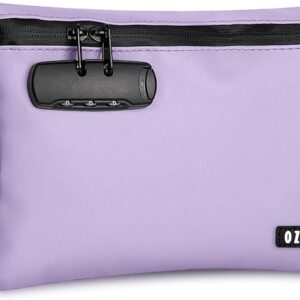
OZCHIN Smell Proof Bag with Combination Lock 10 X 7 inchs Locking Bag PU Leather Waterproof Lockable Case Great Gift Ideal
$12.99 Original price was: $12.99.$11.69Current price is: $11.69.
Buy Now
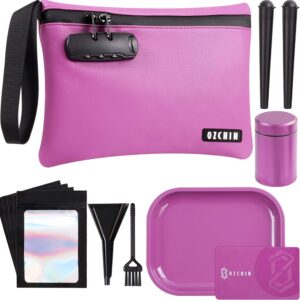
OZCHIN Smell Proof Bag with Combination Lock 10” X 7” Smell Proof Bag Set PU Leather Lockable Case Great Gifts Ideal (Purple)
$19.99
Buy Now
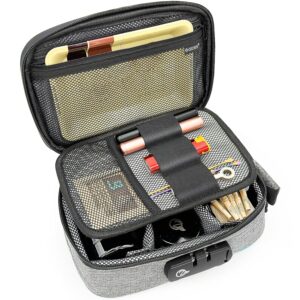
OZCHIN Smell Proof Bag with Combination Lock 9.5″ x 6″ x 3.5″ File Organizer Case Container Medicine Lock Bag Travel Storage Case Safe Bag for Documents and Valuables Storage
$19.99
Buy Now
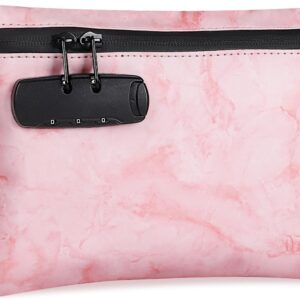
OZCHIN Smell Proof Bag with Combination Lock Certificates Organizer PU Leather Lock Bag Travel Storage Case 10 x 7 inches Great Christmas Gifts for Women(Pink)
$18.99 Original price was: $18.99.$12.99Current price is: $12.99.
Buy Now

OZCHIN Smell Proof Bag with Combination Lock Shockproof Hard Shell Carrying Case Smoking Tobacco Bag Odorless Pouch Medicine Organizer Case Container Travel Bag (Grey) 8.07″ x 6.69″ x 3.50″
$19.99
Buy Now

OZCHIN Smell Proof Bag with Combination Lock Tobacco Pipe Pouch Bag File Organizer Case Container Medicine Lock Box Odorless Storage Bag Great Gift for Friend
$39.98 Original price was: $39.98.$29.99Current price is: $29.99.
Buy Now

OZCHIN Smell Proof Bag with Combination Lock Tobacco Pipe Pouch Bag File Organizer Case Container Medicine Lock Box Odorless Storage Bag Great Gift for Friend
$39.98 Original price was: $39.98.$29.99Current price is: $29.99.
Buy Now
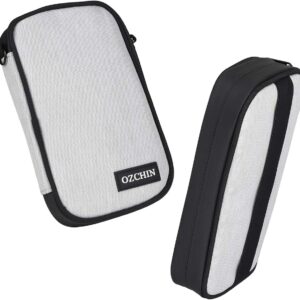
OZCHIN Smell Proof Bag with Water Repellent Zipper, Portable & Compact Handheld Pouch, Multi-Use Medicine & Travel Organizer, 8” x 7”, Perfect for Everyday Carry
$9.99
Buy Now
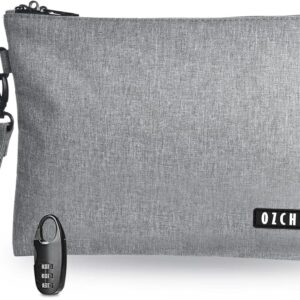
OZCHIN Smell Proof Bags Money Bag Certificates Organizer Lock Bag Travel Storage Case 11 x 8 inch with Combination Lock
$12.99
Buy Now

PABCK 100 Pack 5.5×7.9 inch (Inside Size 5.1×6.3 inch) Clear Front Resealable Heat Seal Bags for Zip Bulk Food Storage Lock Bag Reclosable Airtight Foil Pouch Zipper Lock Packaging with Tear Notches
$18.99 Original price was: $18.99.$16.99Current price is: $16.99.
Buy Now
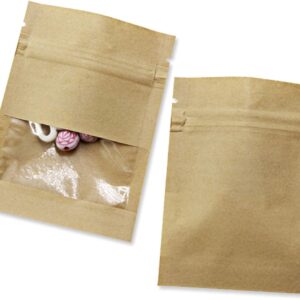
PABCK 100 Pack Clear WindowBrown Kraft Paper for Zip Seed Packets Lock Food Storage Bags Zipper Lock Seeds Envelopes Resealable Heat Seal Pouch Coffee Packet (3.5×5.1 inch (Inner Size 3.1×3.9 inch))
$17.85
Buy Now
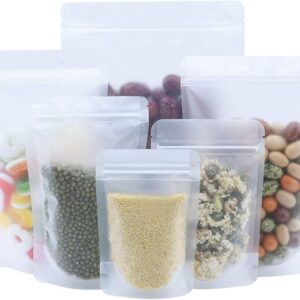
PABCK 100 Pack Resealable Stand Up Bags Matte Clear Zipper Lock Heat Seal Pouches with Tear Notch for Zip Food Storage Lock Packing 14x20cm (5.5×7.9 inch)
$26.84
Buy Now

PABCK 100 Pack Small Black Kraft Paper Resealable Bags 2.7×3.5 inch (Inner Size 2.36×2.36 inch) with Clear Window Heat Seal Airtight Pouch for Zip Food Storage Lock Coffee Snack Packaging
$14.58
Buy Now

PABCK 100 Pcs Clear Mylar Bags Matte Black 2.9×3.9inch (2.5×2.7inch inside size) Heat Seal Resealable Airtight Zipper Lock Pouch for Zip Reclosable Lock Food Storage Grocery Pack
$9.66
Buy Now
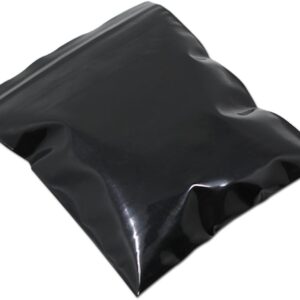
PABCK 100 Pieces Black Reclosable Zip Bags 5.1mil Thickness Poly Plastic Packaging Resealable Zipper Lock Closure Bag for Storage (3.1×4.7 inch)
$7.98
Buy Now

PABCK 100 Pieces Black Reclosable Zip Bags 5.1mil Thickness Poly Plastic Packaging Resealable Zipper Lock Closure Bag for Storage (3.9×5.9 inch)
$15.08
Buy Now
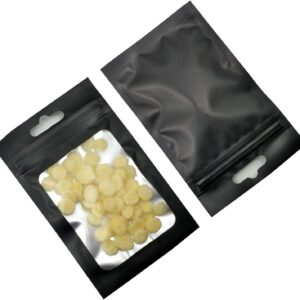
PABCK 100 Pieces Resealable Airtight Matte Window Zipper Lock Bags with Euro Hang Hole 2.3×3.9 inch(Inside Size 1.9×2.5inch) for Zip Food Storage Lock Pouch
$13.99 Original price was: $13.99.$6.89Current price is: $6.89.
Buy Now
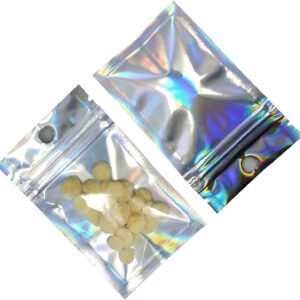
PABCK 200 Pcs Clear Mylar Bag 2.3×3.9 inch (Inside Size 1.9×2.5 inch) Resealable Foil Pouch Heat Seal Bags with Hang Hole for Zip Food Storage Lock Bag Reclosable Airtight Zipper Lock Packaging
$0.08
Buy Now

PABCK Stand-Up Resealable Heat Seal Bags 3.55mil Thick Mylar Frosted Black Foil Sealed Bags 50 Pieces 3.35×5.1 inch for Zip Packaging Lock Food Storage Pouch
$7.66
Buy Now
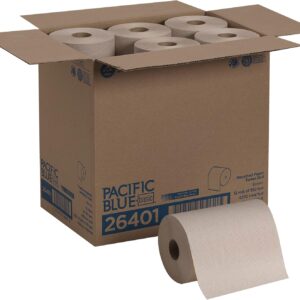
Pacific Blue Basic Recycled Paper Towel Roll by GP PRO (Georgia-Pacific), Brown, 26401, 350 Feet Per Roll, 12 Rolls Per Case
$43.89
Buy Now
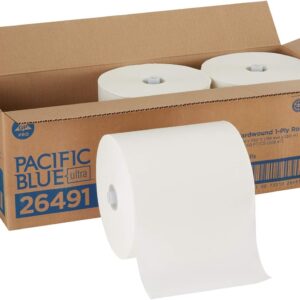
Pacific Blue Ultra 8″ High-Capacity Recycled Paper Towel Rolls by GP PRO (Georgia-Pacific), White, 26491, 1,150 Linear Feet Per Roll, 3 Rolls Per Case
$36.71
Buy Now

Palmyth Men’s Fishing Shirt Short Sleeve Sun Protection UV UPF 50+ SPF T-Shirt
$24.98
Buy Now
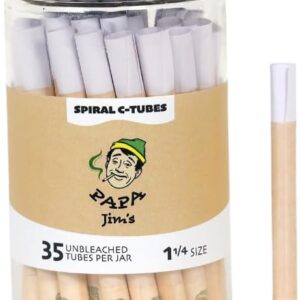
Papa Jims Pre-Rolled Cones C-Tube | 35 tubes | 84mm – 1 1/4″ size | with exclusive premium spiral tips | No debris or residue | Unbleached Classic | Finest Paper from France
$12.99 Original price was: $12.99.$9.99Current price is: $9.99.
Buy Now

Parchment Paper – Brown Natural Baking Paper Roll – Unbleached FSC Certified – Non-Toxic, Chlorine Free Non-Stick Silicone Coated Oven-Safe Paper, 70 Sq Ft
$10.81
Buy Now
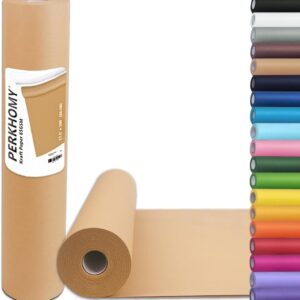
PerkHomy 17.5″ x 1,200″ (100′) Brown Kraft Paper Roll for Gift Wrapping Bulletin Board Kids Craft Art Bouquet Flower Packing Moving Shipping Floor Covering Table 70GSM 50LB (Brown, 17.5″ x 100′)
$7.99 Original price was: $7.99.$6.99Current price is: $6.99.
Buy Now
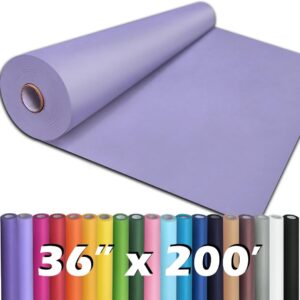
PerkHomy 36″ x 2,400″ (200′) Light Purple Kraft Paper Roll for Craft Bulletin Board Paper Kids Art Table Covering Crafting Gift Wrapping Bouquet Packing Parcel 80GSM 55LB (Light Purple, 36″ x 200′)
$44.99
Buy Now

Permacharts CDB Treatments for Pets Quick Reference Guide – Cannabis Educational Series
$7.95
Buy Now
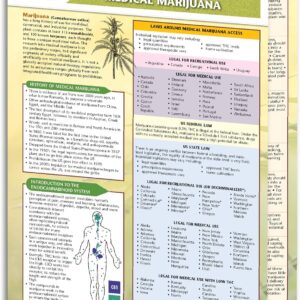
Permacharts Medical Cannabinoids – CBD 101 Quick Reference Guide – Educational Series
$7.95
Buy Now
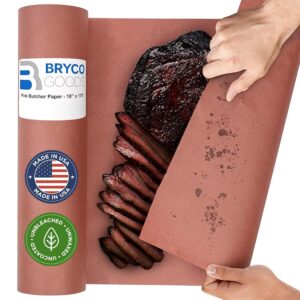
Pink Butcher Paper Roll 18″x175′ (2100 Inch) – Food-Grade Peach Butcher Paper for Smoker, BBQ, Grilling, Smoking Meat – USA Made – Unbleached, Uncoated and Unwaxed
$23.99 Original price was: $23.99.$16.97Current price is: $16.97.
Buy Now
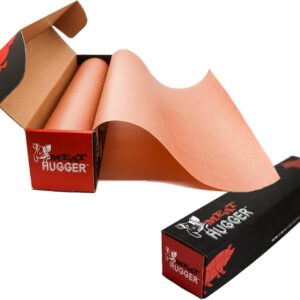
Pink Butcher Paper Roll With Dispenser Box – 17.25 Inch by 175 Foot Roll of Food Grade Peach BBQ Butcher Paper for Smoking Meat – Unbleached, Unwaxed and Uncoated – Made in the USA
$27.99 Original price was: $27.99.$17.49Current price is: $17.49.
Buy Now
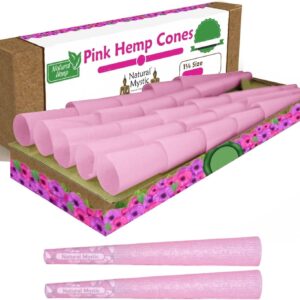
Pink Cones Pre Rolled 1 1/4 Size 50 Pack Classic Rolling Paper Tubes Natural Mystic Cones Prerolls Rolling Papers with Tips Use Cone Loader Packing Sticks
$7.99
Buy Now
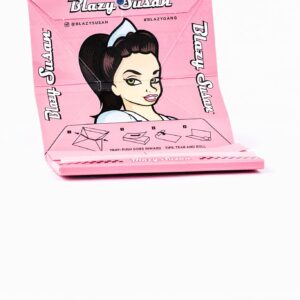
Pink Papers – King Size Slim Deluxe Kit, Single Unit
$8.99 Original price was: $8.99.$6.99Current price is: $6.99.
Buy Now
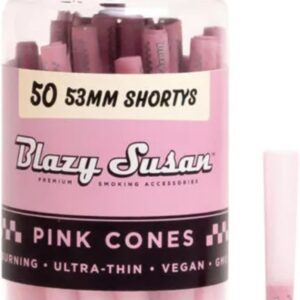
Pink Pre-Rolled Cones, 50 Count (53mm Mini) – Slow-Burning Rolling Paper & Ultra-Thin Preroll Cones with Filter Tips – Vegan, GMO-Free, Convenient & Easy-To-Use Prerolled Shortys
$16.50 Original price was: $16.50.$13.15Current price is: $13.15.
Buy Now
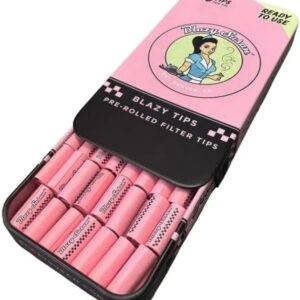
Pink Pre-Rolled Filter Tips 100ct Ready To Use
$9.99 Original price was: $9.99.$9.90Current price is: $9.90.
Buy Now
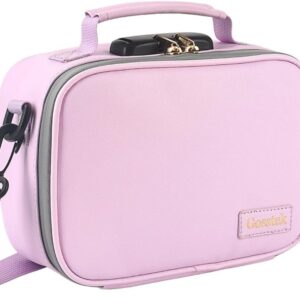
Pink PU Leather Cosmetic Bag with Combination Lock, Heavy Duty Makeup Box case with Shoulder Strap for Home and Travel, Great Gift for Women.
$24.99
Buy Now

Pink Ribbon Sugar Skull Smoking Weed Cannabis Mexican Gift PopSockets Grip and Stand for Phones and Tablets
$11.72
Buy Now
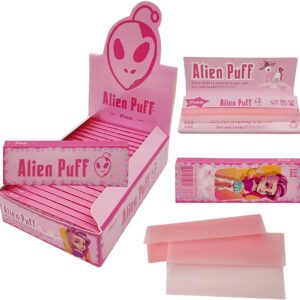
Pink Rolling Papers, 78mm
$20.00
Buy Now

Pink Rolling Tray Anime Ash Tray for Girls Cute Ashtray Premium Metal Kawaii Home Decor Gold Plating Cute Jewelry Holder Japanese Decorative Plate Serving Plate(CAT F)
$11.99 Original price was: $11.99.$9.77Current price is: $9.77.
Buy Now

Pink Rolling Tray Girly – Cute Rolling Trays Premium Metal Large Tray with Design – Unique Gifts for Women Girls Mom, Travel Accessories, 11.3” X 7.4” (Large, TPG)
$9.99
Buy Now

Pink Safe Locking Box With 6 PCS Accessories, Premium Medicine Storage Case,Childproof Pill Box Organizer, Lock box for Valuables, (Pink Set)
$26.99
Buy Now

Pipe Cleaners Bulk (200 Hard Bristle) Easily Cleans and Craft! Arts and Crafts, Glass and Pipe Smoking, Glass Pipe Cleaner, Pipe Cleaner for Cleaning, Glass Pipes Smoking, Pipecleaners
$6.99
Buy Now
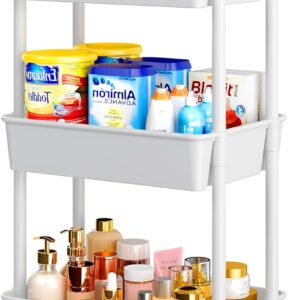
Pipishell 3 Tier Rolling Cart Organizer, Plastic Rolling Cart with Lockable Wheels & Reinforced Handle, Lightweight Utility Cart Storage Cart for Nursery, Kitchen, Bathroom, Craft Room, White, PIUC14W
$23.99 Original price was: $23.99.$19.99Current price is: $19.99.
Buy Now

Pipishell 3 Tier Rolling Cart with Table Top, Utility Cart with Wheels & 4 Hooks, Rolling Storage Cart for Home Storage and Organization, White, PIUC09W
$36.96 Original price was: $36.96.$27.99Current price is: $27.99.
Buy Now

PJ BOLD Marijuana Leaf Silicone Soap Mold Tray, 2 Pack, 12 Cavities
$15.99
Buy Now

PJ BOLD Marijuana Weed Leaf Gummy Molds Silicone Candy Mold Kit – 3 Pack
$14.99
Buy Now

PJ BOLD Silicone Butter Mold Tray with Lid, Purple
$13.99
Buy Now
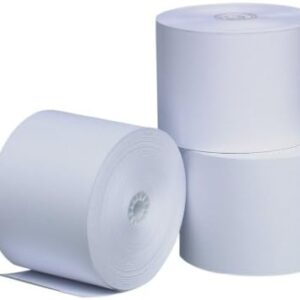
PM Company Perfection One Ply Blended Bond Paper Rolls, 3 X 165 Feet, White, 50 Rolls Per Carton (07927)
$49.00
Buy Now

PM Company PMC05214 POS/Cash Register 3 1/8 Inch x 230 Feet 50 Rolls Per Unit
$62.99 Original price was: $62.99.$41.99Current price is: $41.99.
Buy Now
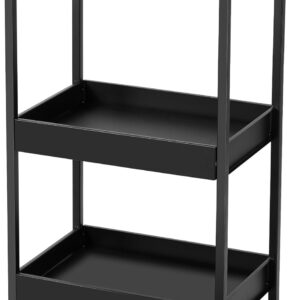
POARMEEY 3-Tier Tattoo Trolley Holder Stand with Tray and Tool Storage Platform Rolling Cart on Wheels for Tattoo Salon Spa Clinics Office Home Use
$124.99
Buy Now

POARMEEY Salon Tray Cart with Extension Tool Tray Tattoo Rolling Cart on Wheels TattooTable Station Adjustable Height for Tattoo Salon Studio
$119.99 Original price was: $119.99.$89.99Current price is: $89.99.
Buy Now
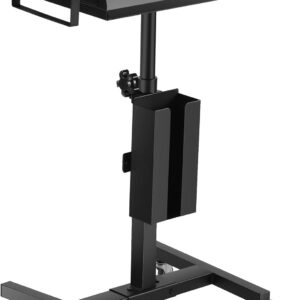
POARMEEY Tattoo Tray Cart Salon Tray with Wheels Rolling Tray Table Station Adjustable Height with Multiple Storage for Tattoo Studio Salon Medical
$109.99 Original price was: $109.99.$99.99Current price is: $99.99.
Buy Now

PODAHO Extra Large Cosmetic Bag with 5 PCS Accessories, Waterproof XL Makeup Box Case with Lock, Premium Kitchen Organizer Storage Containers Box for Storing Your Products, 10 X 8 X 4 Inches, Black
$39.99 Original price was: $39.99.$27.32Current price is: $27.32.
Buy Now
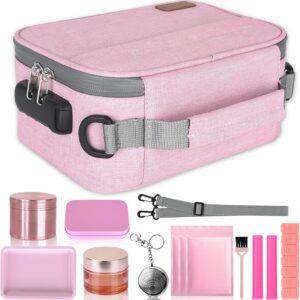
PODAHO Large Smell Proof Bag Set with 10 Tobacco Items, Carbon Lined Smell Proof Box Case with Combination Lock, Odor Proof Containers Pouch for Smoking Products, Great Gift for Women, (Pink Set)
$75.00 Original price was: $75.00.$34.80Current price is: $34.80.
Buy Now
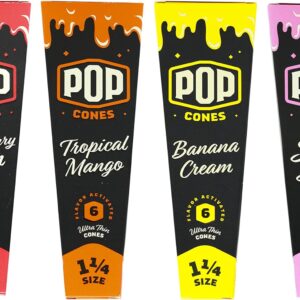
Pop Cones- Cones with a Flavor Burst Pop ( Wraps, Papers, Cones) (All 4 Flavors, 1 1/4), Red, Yellow, Blue, Orange
$12.99
Buy Now
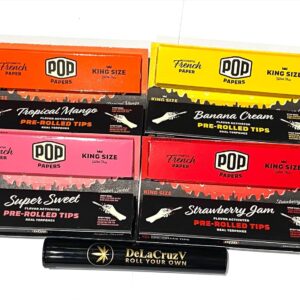
POP King Size Cigarette Rolling paper with Pre-rolle-tips, Mix Flavor (super sweet, banana cream, tropical mango, strawberry), with DeLaCruzV tube.
$14.99
Buy Now
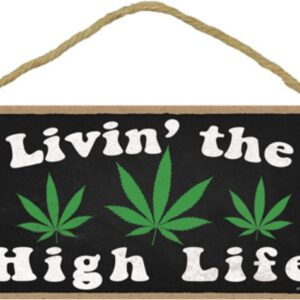
Popfizzy Livin’ the High Life Sign, Funny Weed Sign, Stoner Room Decor, Weed Decor, Gift for Stoners, Pot Leaf Sign, Marijuana Wall Decor, Cannabis Sign, 420 Decor, Weed Themed Gift, 5×10”
$12.50
Buy Now

Popfizzy Smoke Weed Every Day, Weed Wall Decor, Funny Marijuana Signs, Funny Stoner Signs, Weed Gifts, Stoner Gifts, Funny Weed Room Decor, Pot Leaf Sign, Funny Wall Decor, Cannabis Sign, 5×10
$12.50
Buy Now
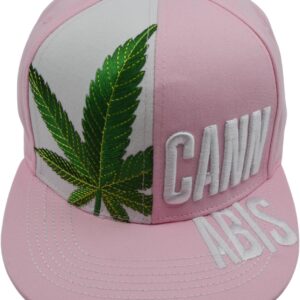
Popfizzy Weed Hat for Women, Flatbill Marijuana Snapback Cap, Pink Weed Accessories, Pot Leaf Hat, Weed Gifts, Stoner Gifts
$17.50
Buy Now

Popfizzy Weed Hat, Mens Pot Leaf Hats, Marijuana Snapback Cap, Cannabis Baseball Caps, Hip-Hop Hats, Weed Gifts for Stoners
$17.97
Buy Now
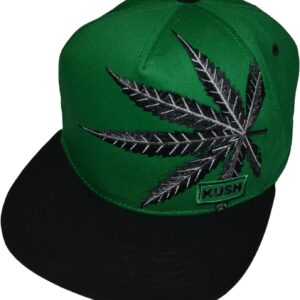
Popfizzy Weed Hat, Pot Leaf Hats, Cannabis Snapback Cap, Marijuana Baseball Caps, Marijuana Leaf Hat, Weed Gifts for Stoners
$17.75
Buy Now
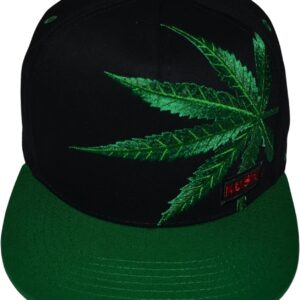
Popfizzy Weed Hat, Unisex Cannabis Baseball Caps, Pot Leaf Hats, Marijuana Snapback Cap, Weed Gifts for Stoners, Rapper Hats
$18.79
Buy Now

Popfizzy Weed Hat, Unisex Pot Leaf Hats, Cannabis Baseball Caps, Hip-Hop Hats, Marijuana Snapback Cap, Weed Gifts for Stoners
$19.56
Buy Now

Popfizzy Womens Rhinestone Hat, Bling Denim and Diamonds Hat, Bling Gifts, Bedazzled Mom Hat, Fun Womens Baseball Caps Trendy
$17.50
Buy Now

Popfunk Classic Batman in Japanese T Shirt & Stickers
$23.99
Buy Now
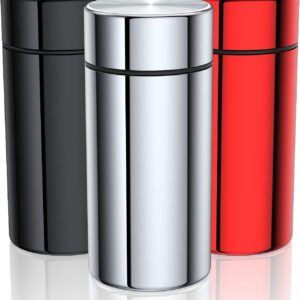
Portable Aluminum Storage Jar 3-Pack, Airtight Smell Proof Metal Bottle, Multipurpose Container for Coffee & Teas, Herb & Spice Screw-Top Lid Lock Odor
$26.99 Original price was: $26.99.$7.99Current price is: $7.99.
Buy Now

Portable Mini Hookah Set with Shisha Accessories Handheld Hookahs Set HT9527 Gifts for Boyfriend Father Husband or friends Golden
$15.99
Buy Now
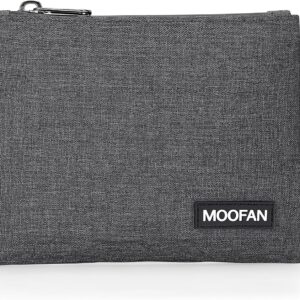
Portable Small Smell Proof Bag – Portable Small Smell Proof Pouch Help Absorb and Lock in Odors Making Them The Perfect Choice for Storing Tobacco Related Accessories and Medical Essentials(Black)
$18.99 Original price was: $18.99.$11.97Current price is: $11.97.
Buy Now
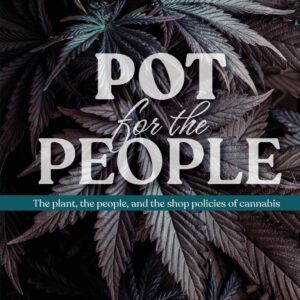
Pot for the People: The plant, the people, and the shop policies of cannabis
$19.54
Buy Now
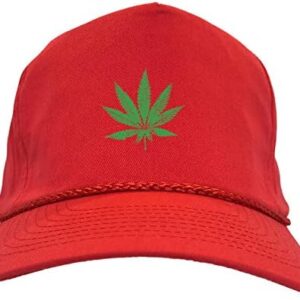
Pot Leaf – Marijuana Weed Cannabis Golf Hat
$13.00
Buy Now
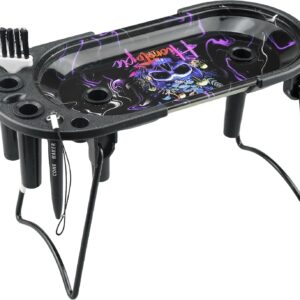
Pre Roll Machine, Mivikee Cigarette Rolling Machine, Rolling Tray Set for Cone, Cone Loader for King Size&1 1/4 Size, Includes Foldable Stand Cone Filler, Cone Funnel & Brush
$7.99
Buy Now

Pre rolled cone |Rolling Papers Cones| (4.33inch/110mm) | 100 Pack | 110mm Slow burning brown rolling papers
$150.00 Original price was: $150.00.$5.99Current price is: $5.99.
Buy Now
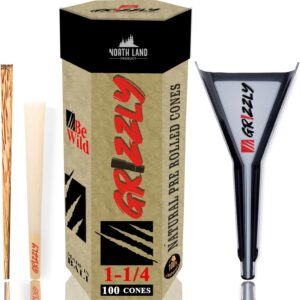
Pre Rolled Cones | 1-1/4 Cones | 100 Pack | Unbleached | Organic Cones | Made in Bali | Natural Rolling Paper with Tips | Pre-Rolled Cones | Pre Rolls | Rolling Papers cones | prerolled cones
$49.97 Original price was: $49.97.$9.90Current price is: $9.90.
Buy Now
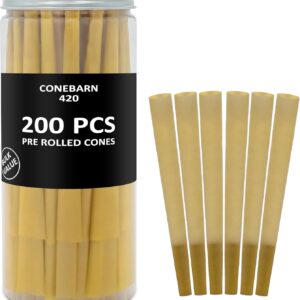
Pre Rolled Cones | 200 Pack Natural Unbleached cones rolling papers | Classic King Size | Tips and Packing Tubes Included | bong | cones
$13.99
Buy Now
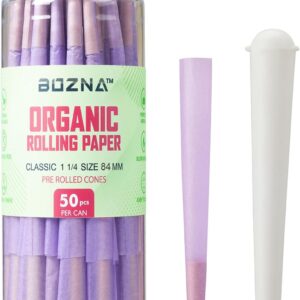
Pre Rolled Cones | Organic Rolling Papers | 50ct 1 1/4 Size with Tips – Slow Burn, Sturdy Natural Gum Seal, Ultra Thin with Plastic Cone in Popular Colors (Purple, 1 1/4 Size)
$6.99
Buy Now
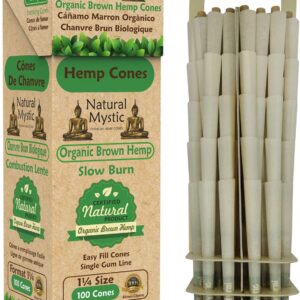
Pre Rolled Cones 1 1/4 Size – 100 Brown Classic Paper Tubes Natural Mystic Organic Rolling Papers With Tips Use Cone Loader Packing Sticks
$21.99
Buy Now
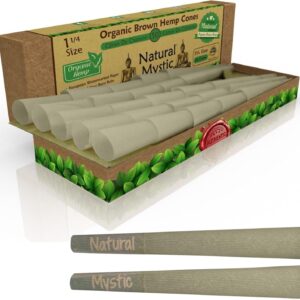
Pre Rolled Cones 1 1/4 Size – 50 Brown Classic Paper Tubes Natural Mystic Organic Rolling Papers With Tips Use Cone Loader Packing Sticks
$8.99
Buy Now
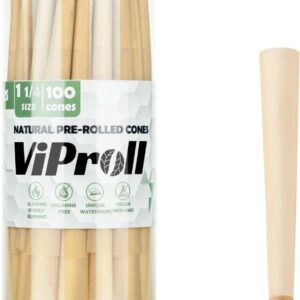
Pre Rolled Cones 1 1/4 Size 100 Pack, Natural Unbleached Rolling Papers with W-shaped Tips, Slow & Even Burning Preroll Cones Packing Tubes Included for Party Gift (84mm)
$8.99
Buy Now
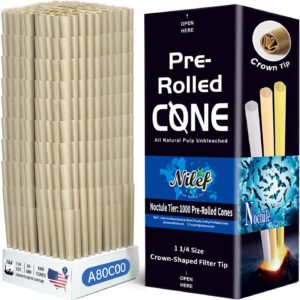
Pre Rolled Cones 1 1/4 Size 1000 Pack | Natural Brown | Bulk Pre-Rolled Cones with “Crown” Filter Tip | Natural Unbleached Rolling Paper (A80C00)
$46.88
Buy Now
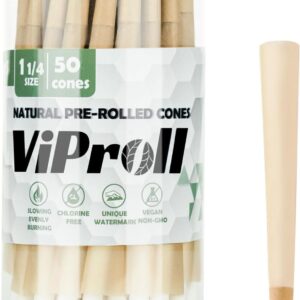
Pre Rolled Cones 1 1/4 Size 50 Pack, Natural Unbleached Rolling Papers with W-shaped Tips, Slow & Even Burning Preroll Cones, Packing Tubes Included for Party Gift (84mm)
$5.99
Buy Now
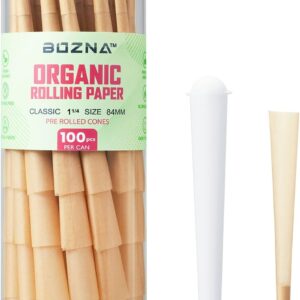
Pre Rolled Cones 1 1/4 Size Organic Rolling Papers with Tips 100 ct – Slow Burn, Sturdy Natural Gum Seal, Ultra Thin with Plastic Cone. Unbleached Rolling Cones in Natural Color (1 1/4 Size)
$8.99
Buy Now

Pre Rolled Cones Cone Loader – 1 1/4 Hemp Cones Funnel Tool For King Size Cones Rolling Papers Prerolled With Tips Packing Stick Cigarette Prerolls Packer | Grinder Brush Cleaner For Herb Grinders
$5.99
Buy Now
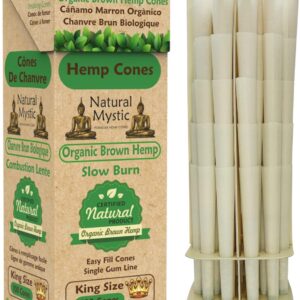
Pre Rolled Cones King Size – 100 Brown Classic Paper Tubes Natural Mystic Organic Rolling Papers With Tips Use Cone Loader Packing Sticks
$21.99
Buy Now
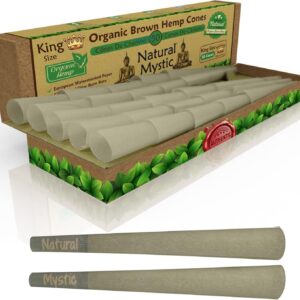
Pre Rolled Cones King Size – 50 Pack Hemp Rolling Paper Unbleached Brown Organic Fibers Classic Preroll Natural Mystic Pre Roll Papers With Filter Tips Use Cone Loader Filling Packing Sticks
$8.99
Buy Now
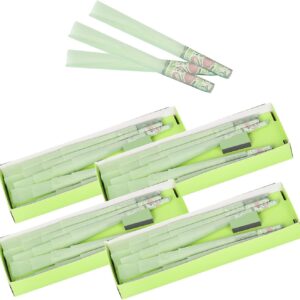
Pre-Rolled Green Cone, 4 Packs of 32 PCS Cones of 1 1/4 Size Rolling Papers with Tips (78mm)
$19.99 Original price was: $19.99.$15.99Current price is: $15.99.
Buy Now
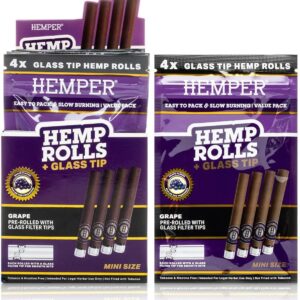
Pre-Rolled Mini Size Hemp Rolls with Reusable Glass Tips – 4PK | 12ct Display | Hand-Rolled, Natural Hemp Paper Rolls in Protective Case for Smooth, Clean Burn and Freshness – (Grape)
$32.85
Buy Now
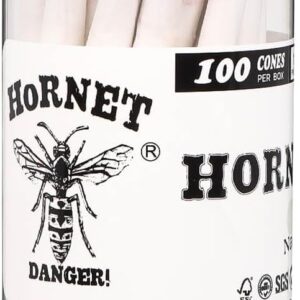
Pre-Rolled White Cone, 100 PCs Cones of 1 1/4 Size, Rolling Papers with Tips (78mm)
$11.99
Buy Now
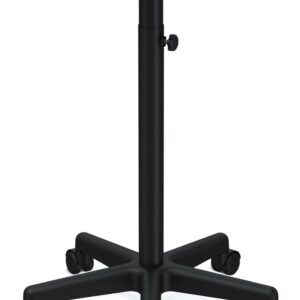
Premium Aluminum Instrument Salon Tray Tattoo Rolling Tray Station-Silver
$79.47 Original price was: $79.47.$46.74Current price is: $46.74.
Buy Now
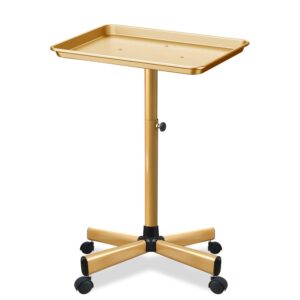
Premium Aluminum Salon Tray, Sturdy Corrosion-Resistant Adjustable Tray is Used for Salon Tray on Wheels, Salon Tool/Color Tray, Beauty Spa Tray, Dentist Tray, Etc.…(Gold)
$49.79 Original price was: $49.79.$46.72Current price is: $46.72.
Buy Now
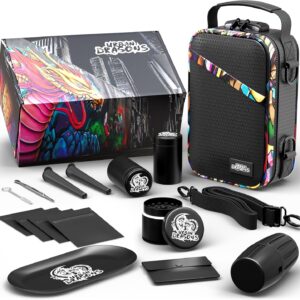
Premium Carbon Lined Smell Proof Bag with Combination Lock | Multi-Use Organization Bag with Accessories | Storage and Containers kit | Stash box | Birthday Gifts for Men/Women.
$49.98 Original price was: $49.98.$39.98Current price is: $39.98.
Buy Now
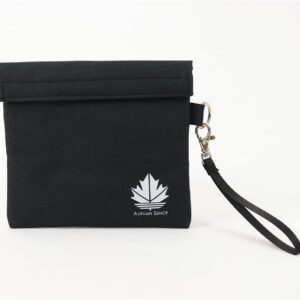
Premium No Smell Container with Mesh Divider,Smell Proof Bag 7″ x 6″ Smellproof Odorless Stash Storage Pouch & Case – Eliminate Odor, Stink, and Smelly Scent in a Carbon Lined Airtight Storage Sack
$9.99 Original price was: $9.99.$7.88Current price is: $7.88.
Buy Now

Premium Portable Air Tight Metal Tube Container, Fits in Pocket or Purse, Lightweight and Travel-Friendly (3 Pack)
$12.99
Buy Now
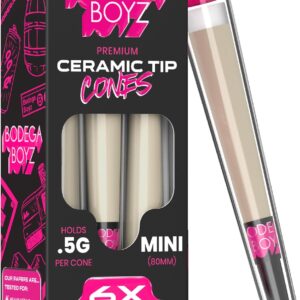
Premium Pre Rolled Cones 0.5g (1 1/4, 84mm) – with Reusable Ceramic Tip, Easy Fill & Slow Burn, Comes in a To-Go Tube & Filling Stick – Unrefined Brown Rolling Paper – 6 Count Single Box
$9.98
Buy Now

Premium Reversible Marijuana Leaf Bucket Hat | Stylish Unisex Fisherman Cap for Sun Protection
$10.95
Buy Now
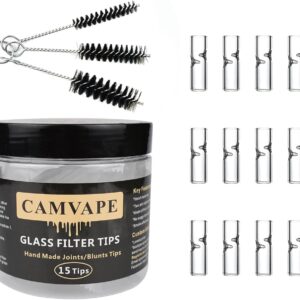
Premium Small Size Glass Filter Tips, Reusable Rolling Filter Tips Mouthpiece for Small Rolls, Great for Hand Roll, Pack of 15(8 * 25mm, Round Mouth)
$14.99
Buy Now

Premium Vials 30 Ml (1 fl oz) Pocket Size Black Ultraviolet Glass Screw top Jar – pack of 1
$12.99
Buy Now

Pride T-Shirt
$15.99
Buy Now

ProCase 41 Slots Seed Storage Organizer Sorter Box, Sturdy Seed Bank Saving Kit Container for Garden Vegetable Plant Flower, Seed Keeper Set with Label Stickers Funnel 3 Size of Bottles 1 oz 3 oz 5 oz
$22.99
Buy Now
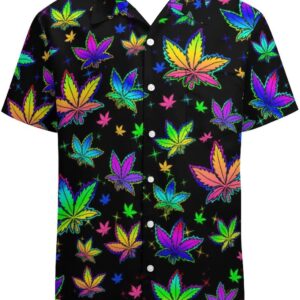
Prowinly Mens Hawaiian Shirt Casual Button Down Shirts Party Shirt Short Sleeve Button Up Shirt
$27.99
Buy Now
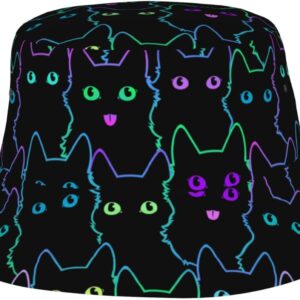
Psychedelic Bucket Hat Fisherman Cap for Women Men, Trippy Art Casual Travel Beach Sun Hats for Summer
$17.50
Buy Now

Psychedelic Spiral Flat Bill Brim Cap, Cool Hip Hop Trucker Hat Men Women Adjustable Baseball Caps
$20.00
Buy Now

Psychedelic Trippy Art Bucket Hats for Women Men Fashion Packable Sun Cap Travel Fisherman Hat Beach Hat for Adults Teens
$15.99
Buy Now
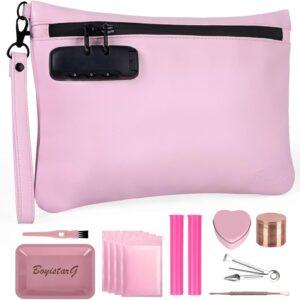
PU Large Storage Organization Bag with 8 Small Items, Portable Storage Case with Combination Lock For Bag Set Travel Case Gifts for Women Pink
$45.99 Original price was: $45.99.$29.99Current price is: $29.99.
Buy Now
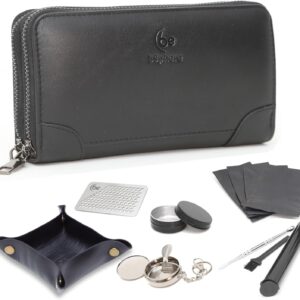
PU Leather Pouch, Small Organization Bag with 8 Accessories, Party Kit Portable, Tray Set, Travel Case, 9 Piece Aromatherapy Tools, Gift for Women or Men, Unisex
$47.99 Original price was: $47.99.$37.99Current price is: $37.99.
Buy Now
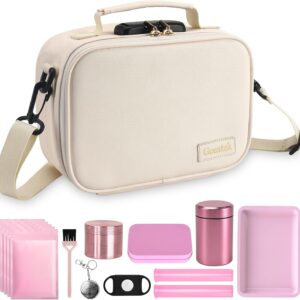
PU Leather Storage Bag with 10 PCS Accessories, Portable Organizer Box Case with Lock and Great Gift for Women, Childproof Storage Container Box 9 X 6 X 4 Inches (Beige)
$39.99
Buy Now
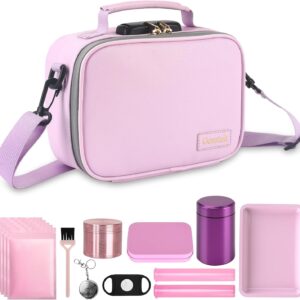
PU Leather Storage Bag with 10PCS Accessories, Portble Organizers Locking Box Case and Great Gift for Women, Childproof Storage Container Box 9 X 6 X 4 Inches (Pink)
$39.99
Buy Now
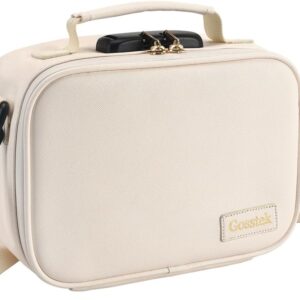
PU Leather Storage Bag with Combination Lock, Premium Cosmetic Storage Box case, Durable Makeup Container Box for Home and Travel (Beige)…
$24.99
Buy Now
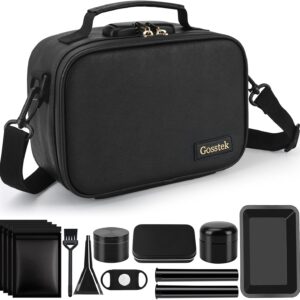
PU Leather Storage Bags with 10 PCS Accessories, Portable Cosmetic Organization Case with Lock and Great Gift for Women, Multi-Use Storage Box Containers 9 X 6 X 4 Inches (Black)
$39.99
Buy Now
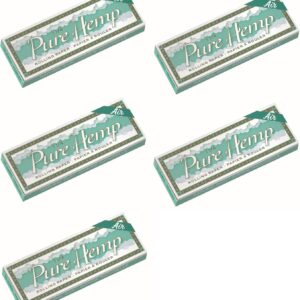
Pure Hemp Air “Worlds’ Thinnest” Cigarette Rolling Paper Medium 1.25 1 1/4 (77mm) 50 Leaves per Booklet – Pack of 5
$9.99
Buy Now
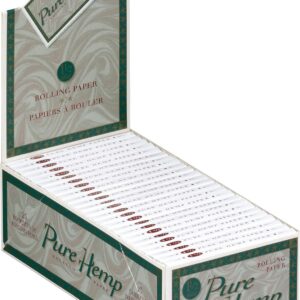
Pure Hemp Rolling Paper – 1 1/2 Size Cigarette Paper – Full Display Box of 25 Booklets (33 Leaves Per Book!)
$32.99 Original price was: $32.99.$31.97Current price is: $31.97.
Buy Now
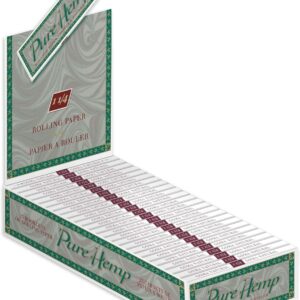
Pure Hemp Rolling Paper – Medium / 1/4″ / 78mm Size Cigarette Paper – Full Display Box of 25 Booklets (50 Leaves Per Book!)
$29.99
Buy Now
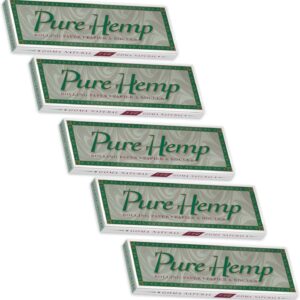
Pure Hemp Rolling Paper – Medium / 1/4″ / 78mm Size Cigarette Paper – Pack of 5 Booklets (50 Leaves Per Book!)
$6.94
Buy Now
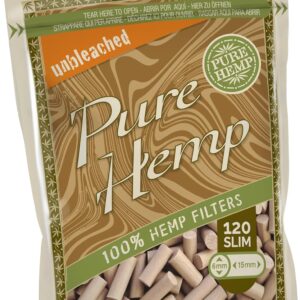
Pure Hemp Unbleached Hemp Rolling Filter Tips 6mm Slim 120ct
$6.99
Buy Now
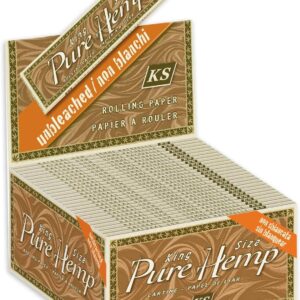
Pure Hemp Unbleached Rolling Paper – King Size (110mm) Cigarette Paper – Full Display Box of 50 Booklets (33 Leaves Per Book!)
$34.95
Buy Now

Pure Hemp Unbleached Rolling Paper – Medium / 1/4″ / 78mm Size Cigarette Paper – Full Display Box of 25 Booklets (50 Leaves Per Book!)
$29.99
Buy Now
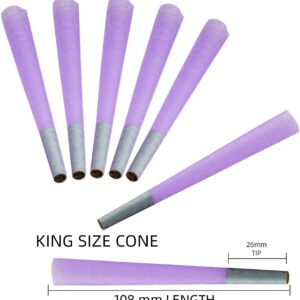
Purple Pre Rolled Cones | Classic King Size Cones |100 Pack(4.2inches/108mm)| Pre-Rolled Cones | Pre Rolls | Rolling Papers Cones | Rolling Paper with Tips | Purple rolling paper|
$7.99
Buy Now
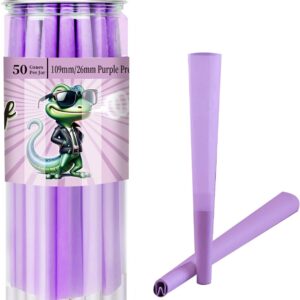
Purple Pre Rolled Cones | King Size | 50 Pack | Purple Paper | “W” Filter Tip | Natural Purple Rolling Paper (J1440)
$9.99
Buy Now
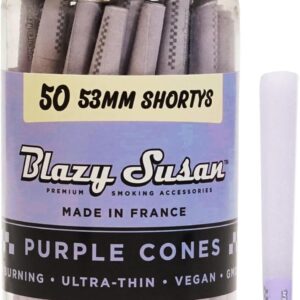
Purple Pre-Rolled Cones, 50 Count (53mm Shorty) – Slow-Burning Rolling Paper & Ultra-Thin Preroll Cones with Filter Tips – Vegan, GMO-Free, Convenient & Easy-To-Use Prerolled Shortys
$49.97 Original price was: $49.97.$12.99Current price is: $12.99.
Buy Now
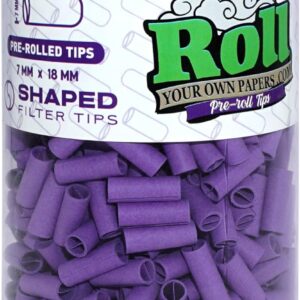
Purple Pre-Rolled Filter Tips, Ø7mm – Bottle of 500 Tips
$12.90
Buy Now
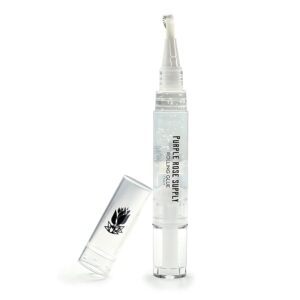
Purple Rose Supply Rolling Glue – 4ml Glue Pen with Brush Applicator – Natural Plant Cellulose – Spit-Free Rolling Alternative – Glue Stick
$7.00
Buy Now
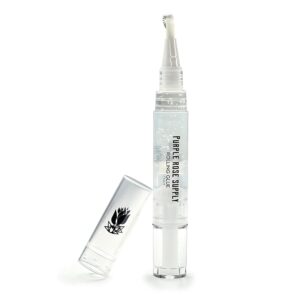
Purple Rose Supply Rolling Glue – 4ml Glue Pen with Brush Applicator – Natural Plant Cellulose – Spit-Free Rolling Alternative – Glue Stick
$7.00
Buy Now

Puzzles for Classroom Decor Medical Cannabis Plant Marijuana Weed Jigsaw Puzzles Family Puzzle to Enjoy Adult Decompression Education Gift for DIY Intellective Educational Game Gift 500 Pieces
$16.99
Buy Now

QQ Studio 100 Clear/Colored Poly Zip Lock Bags w/Tear Notch 6.5x9cm (2.5×3.5″) (Clear/Silver/Black)
$13.95
Buy Now
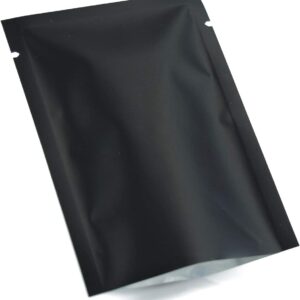
QQ Studio 100 PCS Metallic Mylar Foil Open Top Sealable Bags (12x18cm(4.7×7″), 100x Matte Black)
$21.29
Buy Now

Rainbow Oval Stainless Steel Tray – Mini Coffee Table Tray for Jewelry, Cosmetics & Candles | Vacuum Coating – No Fading, No Discoloration
$29.99 Original price was: $29.99.$6.99Current price is: $6.99.
Buy Now
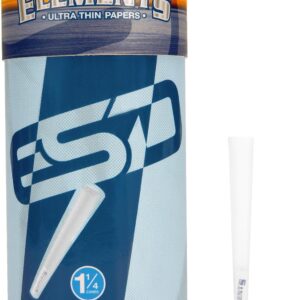
RAW – Elements Ultra Thin Rolling Paper Cones 1 1/4 | 100 Pack | Pre Rolled with Tips and Packing Tubes Included
$21.99
Buy Now

RAW ‘Fried’ Metal Rolling Tray | Size Small | French Fry Themed Sleek and Elegant Metal Smooth Rolling Station Tray with Rounded Edges
$7.99
Buy Now
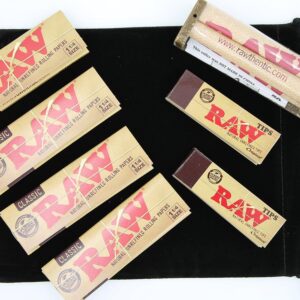
Raw 1 1/4 Deal – 1 1/4 Classic Rolling Papers, 79mm Rolling Machine and Filter Tips – INCLUDES – Black Velvet Pouch
$9.98
Buy Now
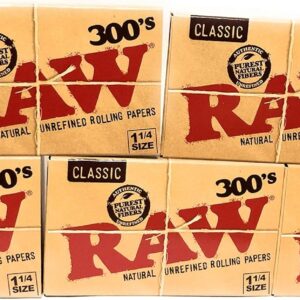
Raw 300 Classic 1.25 1 1/4 Size Rolling Papers 5 Pack = 1500 Leaves
$12.84
Buy Now
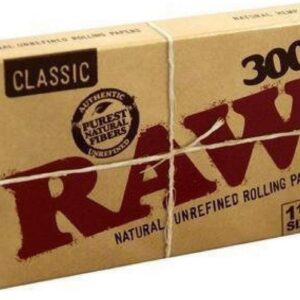
RAW 300 Classic 1.25 1 1/4 Size Rolling Papers, 300 Count (Pack of 1)
$4.23
Buy Now
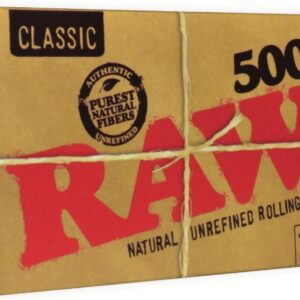
RAW 500’s Classic Natural Unrefined Rolling Paper 1 1/4 79mm Size (1 Pack)
$5.02
Buy Now

RAW 79 mm 1 1/4 Hemp Plastic Cigarette Rolling Machine
$4.67
Buy Now
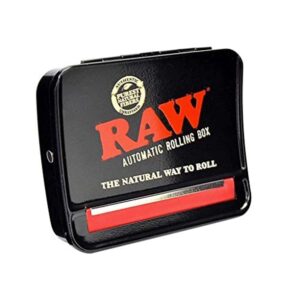
RAW 79mm Adjustable Automatic Cigarette Rolling Box (RED)
$9.99
Buy Now
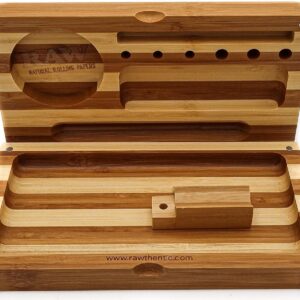
RAW Backflip Bamboo Magnet Rolling Tray (Limited Edition Striped) with Clear ES Scoop Card
$59.99 Original price was: $59.99.$34.75Current price is: $34.75.
Buy Now
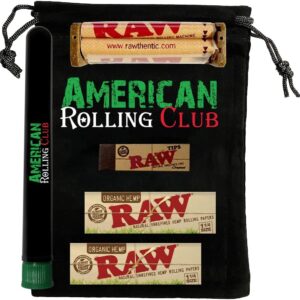
RAW Black Bag Combo | Organic 1-1/4 | Includes RAW Organic Cigarette Papers, Classic Tips, RAW Cigarette Machine, Black Carry Bag and Cigarette Saver
$8.23
Buy Now
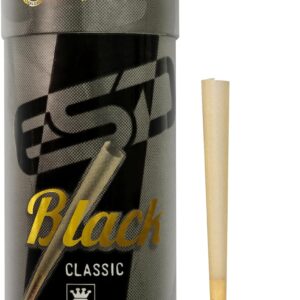
RAW Black Cones King Size – 100 Pack – Slow Burning Pre Rolled Cones Pressed Extra Fine for Thin, Naturally Translucent Paper with Tips & Packing Tubes Included
$24.99 Original price was: $24.99.$18.99Current price is: $18.99.
Buy Now
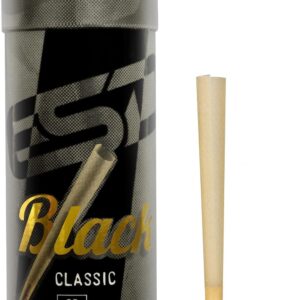
RAW Black Cones King Size – 50 Pack – Slow Burning Pre Rolled Cones – Rolling Paper Pressed Extra Fine for Thin, Naturally Translucent Paper with Tips & Packing Tubes Included
$15.29
Buy Now
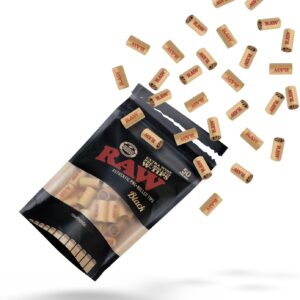
RAW Black Extra Wide Pre-Rolled Filter Tips – 1 Bag of 50 Tips – RAW Brand Tips for Perfect Filtered Rolls – Enhanced Smoking Experience – 10 mm Wide
$9.99
Buy Now
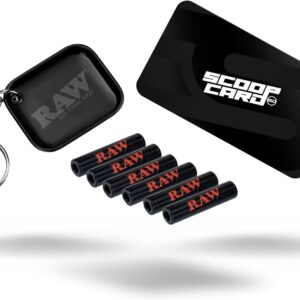
RAW Black Glass Rolling Tips – 6 Pack + Limited Edition RAW Tiny Matte Black Murder’d Tray Key Chain and Scoop Card – Reusable, Heat-Resistant, Premium Design
$29.99 Original price was: $29.99.$9.99Current price is: $9.99.
Buy Now
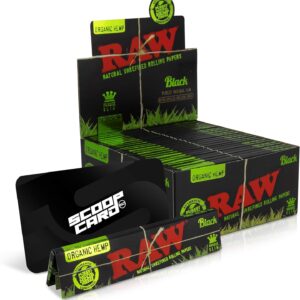
RAW Black King Size Rolling Paper | 50 Packs | 32 Sheets Per Pack of Organic King Sized Black Series Rolling Paper Double Pressed
$28.99
Buy Now
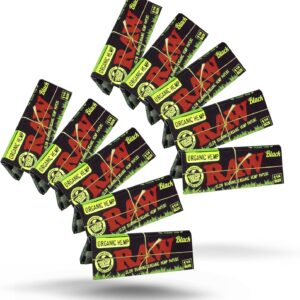
RAW Black Organic 1 1/4 Rolling Papers – 10 Pack – 50 Leaves per Pack = 500 Leaves
$9.49 Original price was: $9.49.$9.06Current price is: $9.06.
Buy Now
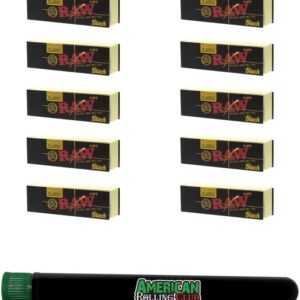
Raw Black Rolling Papers Tips (10 Pack) with American Rolling Club Tube
$7.99
Buy Now

RAW Black Rolling Tips 10 Pack 50 Tips Per Pack = 500 Tips – Taste the Terps with Classic Thin Black Tips
$8.49
Buy Now
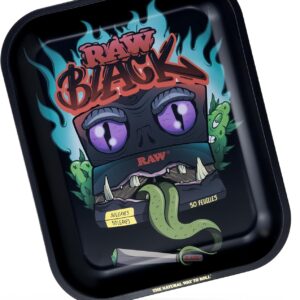
RAW Black Rolling Tray – Limited Edition Monster Design for Pre-Rolled Cones, Wrap Papers, and Accessories – Large – 14 x 11 inches
$9.99
Buy Now
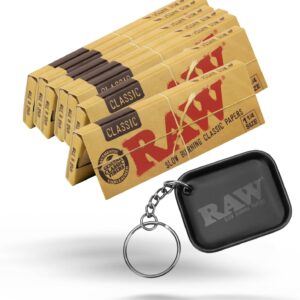
RAW Classic 1 1-4 Rolling Papers – 7 Pack – 50 Leaves per Pack – Includes Collectible Matte Black Murder’d Mini Tray Keychain
$8.39
Buy Now
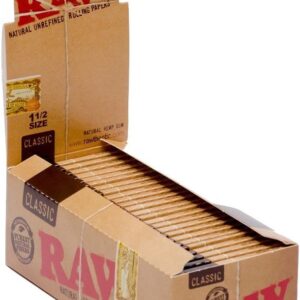
Raw Classic 1 1/2 Size Rolling Paper, 33 Count (Pack of 25)
$21.60
Buy Now
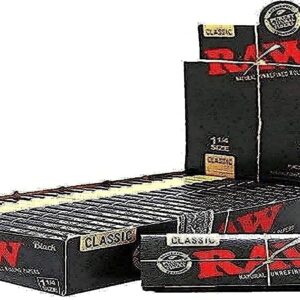
RAW Classic 1 1/4 Size Natural Unrefined Ultra Thin 79mm Rolling Papers, Black, 24 Count
$29.99 Original price was: $29.99.$19.70Current price is: $19.70.
Buy Now
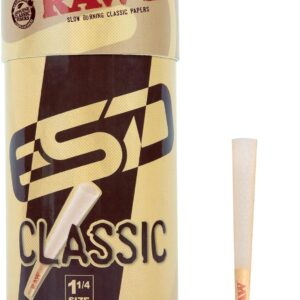
RAW Classic 1-1/4 Slow Burning Pre-Rolled Cones – 100 Pack with Tips & Packing Tubes Included
$24.99 Original price was: $24.99.$18.99Current price is: $18.99.
Buy Now
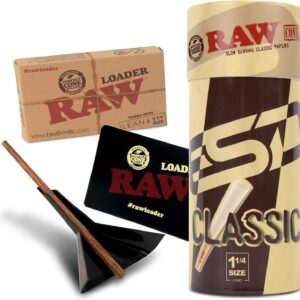
RAW Classic 1-1/4 Slow Burning Pre-Rolled Cones – 50 Pack and Cone Loader – Bundle
$19.99
Buy Now
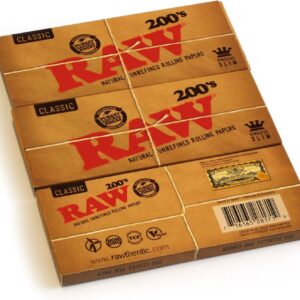
RAW Classic 200 King Size Slim uncreased Rolling Paper, Brown, 200 Count (Pack of 3)
$9.99 Original price was: $9.99.$9.01Current price is: $9.01.
Buy Now
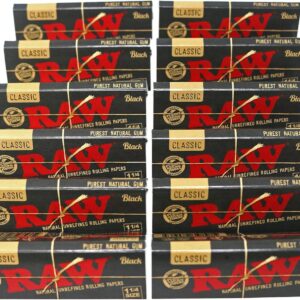
RAW Classic Black 1 1/4 Size Natural Unrefined Ultra Thin 79mm Rolling Papers (12 Packs)
$9.89
Buy Now
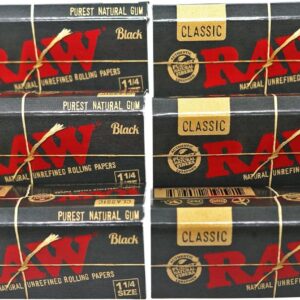
RAW Classic Black 1 1/4 Size Natural Unrefined Ultra Thin 79mm Rolling Papers (6 Packs)
$6.47 Original price was: $6.47.$6.13Current price is: $6.13.
Buy Now
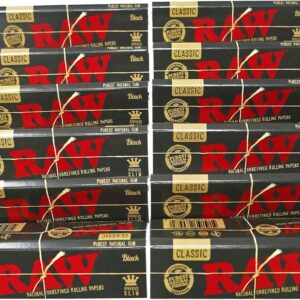
RAW Classic Black King Size Slim Natural Unrefined Ultra Thin 110mm Rolling Papers (12 Packs)
$9.99 Original price was: $9.99.$8.89Current price is: $8.89.
Buy Now
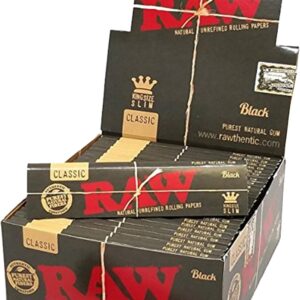
RAW Classic Black King Size Slim Natural Unrefined Ultra Thin 110mm Rolling Papers (50 Packs)
$29.97
Buy Now
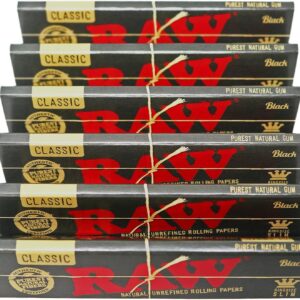
RAW Classic Black King Size Slim Natural Unrefined Ultra Thin 110mm Rolling Papers (6 Packs)
$5.99 Original price was: $5.99.$5.58Current price is: $5.58.
Buy Now
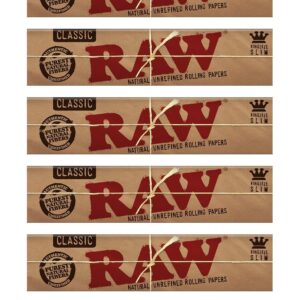
RAW Classic Cigarette Papers King Size Slim 5 Pack with ARC Saver
$8.29
Buy Now
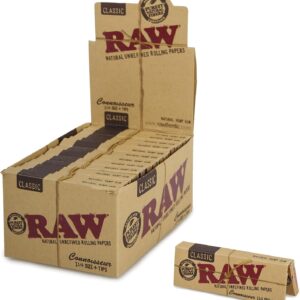
Raw Classic Connoisseur 1.25 1 1/4 Rolling Paper With Tips (24)
$38.76 Original price was: $38.76.$33.99Current price is: $33.99.
Buy Now
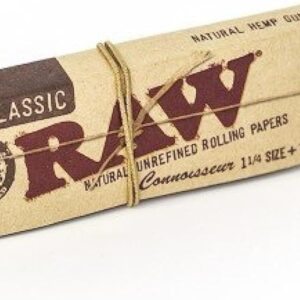
Raw Classic Connoisseur 1.25 1 1/4 Rolling Paper with Tips 1 Pack
$9.99 Original price was: $9.99.$5.99Current price is: $5.99.
Buy Now
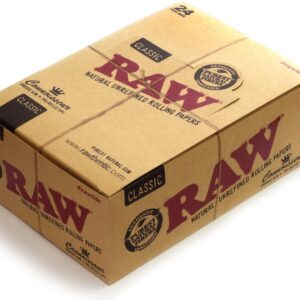
RAW Classic Connoisseur King Size Slim Paper + Prerolled Tips -1 Box
$33.77
Buy Now
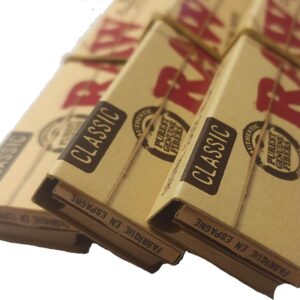
RAW Classic Connoisseur Kingsize Slim Skin Rolling Papers with Tips (3 Packs)
$9.69 Original price was: $9.69.$8.79Current price is: $8.79.
Buy Now
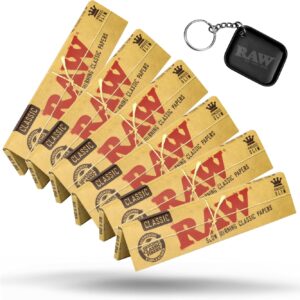
RAW Classic King Size Slim Rolling Paper – 6 Pack – 32 Leaves per Pack = 192 Leaves
$8.99
Buy Now
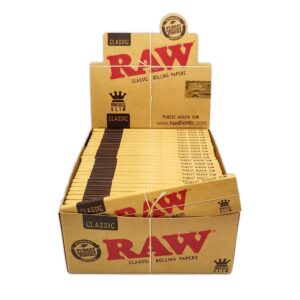
Raw Classic King Size Slim Rolling Paper Full Box of 50 Packs
$29.99 Original price was: $29.99.$23.15Current price is: $23.15.
Buy Now
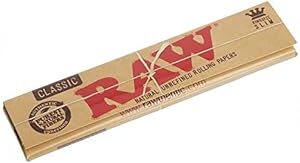
RAW Classic King Size Slim Rolling Paper, Brown, 5 Count
$5.72
Buy Now
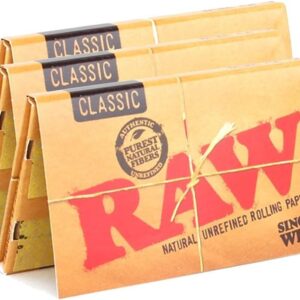
RAW Classic Natural Unrefined Rolling Paper 70mm Single Wide Size – 100 Leaves Per Pack – (3 Packs)
$7.99
Buy Now
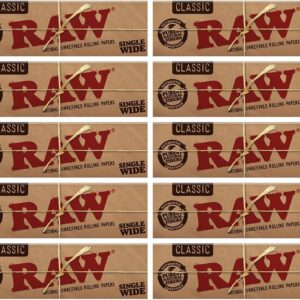
Raw Classic Natural Unrefined Rolling Paper 70mm Single Wide Size 10 Packs
$10.99
Buy Now
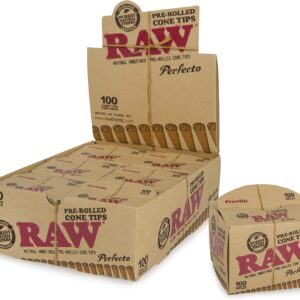
RAW Classic Natural Unrefined Rolling Papers – Perfecto Pre Rolled Cone Tips – 6 Packs Per Box – 100 Tips Per Pack
$46.99
Buy Now
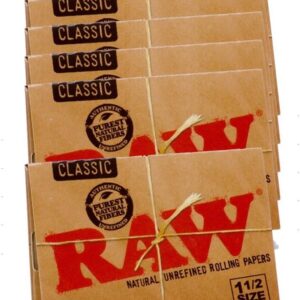
RAW Classic Natural Unrefined Rolling Papers 79mm 1 1/2 Size Pack (6 Packs)
$7.03
Buy Now
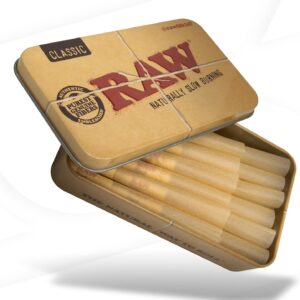
RAW Classic Pre-Rolled Papers 84mm Packed Inside a RAW Metal Tin Container with Packing Tubes | 20 Pack |
$7.99
Buy Now
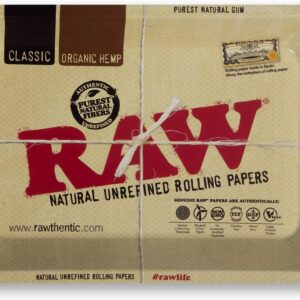
RAW Classic Rolling Tray | Size – Mini | Quality Metal and Curved Corners – No Creases
$5.99
Buy Now
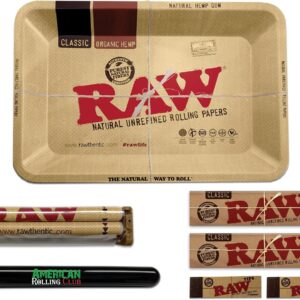
RAW Classic Tray Combo | Includes RAW King Size Slim Classic Cigarette Papers, Original Tips, Classic Task Tray, 110mm Cigarette Machine and ARC Saver (Mini)
$9.99
Buy Now
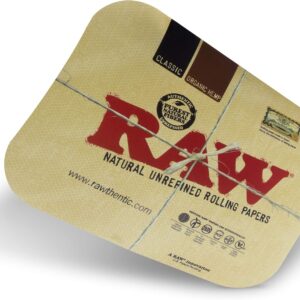
RAW Classic Tray Cover | Size – Large | Magnetic Cover to Help Store Tray Contents Quickly | No More Lost Lighters
$9.99
Buy Now
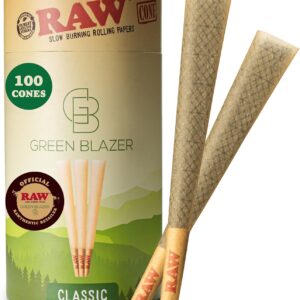
RAW Cones 1 1/4 Size: 100 Pack Patented Slow Burning Pre Rolled Rolling Papers & Tips, Classic Raw Paper, 84mm
$18.99
Buy Now
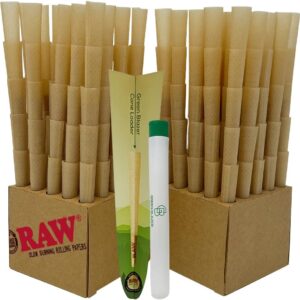
RAW Cones 1 1/4 Size: 250 Pack Rawthentic Slow Burning Pre Rolled Rolling Papers & Tips, Classic Raw Paper, 84mm, Green Blazer Loader
$39.99
Buy Now
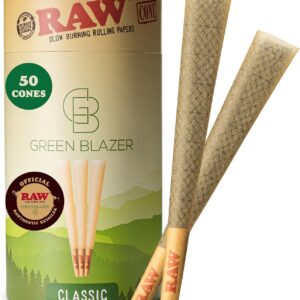
RAW Cones 1 1/4 Size: 50 Pack Patented Slow Burning Pre Rolled Rolling Papers & Tips, Classic Raw Paper, 84mm
$9.99
Buy Now
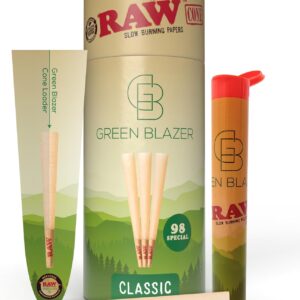
RAW Cones 98 Special 100 Pack Patented Slow Burning Pre Rolled Cones Rolling Papers & Tips – All Natural Classic Rawthentic Paper, 98mm
$22.49 Original price was: $22.49.$18.99Current price is: $18.99.
Buy Now
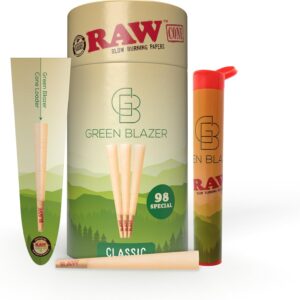
RAW Cones 98 Special 150 Pack Rawthentic Slow Burning Pre Rolled Cones Rolling Papers & Tips – All Natural Classic Rawthentic Paper, 98mm
$29.99 Original price was: $29.99.$24.99Current price is: $24.99.
Buy Now
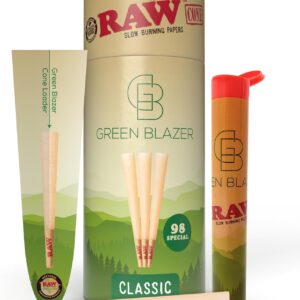
RAW Cones 98 Special: 50 Pack Patented Slow Burning Pre Rolled Cones Rolling Papers & Tips – All Natural Classic Rawthentic Paper, 98mm
$12.49
Buy Now
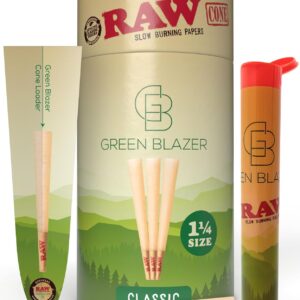
RAW Cones Classic 1 1/4 Size: 150 Pack Patented Slow Burning Pre Rolled Rolling Papers & Tips, All Natural Raw Paper, 84mm
$24.99
Buy Now

RAW Cones Classic 1 1/4 Size: Box of 225 – Pre Rolled Rawthentic Cones Rolling Papers & Tips, 84mm, All Natural, Green Blazer Sticker
$39.99
Buy Now
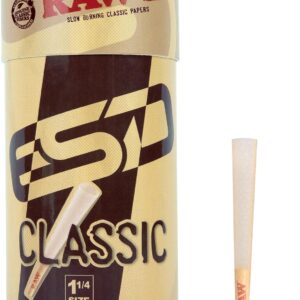
RAW Cones Classic 1-1/4 Size – 150 Pack – Slow Burning Pre Rolled Cones with Tips & Packing Tubes Included
$29.99
Buy Now
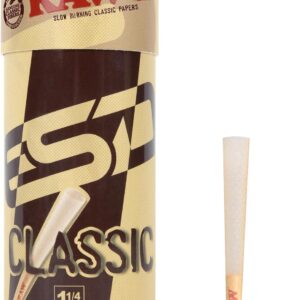
RAW Cones Classic 1-1/4 Size – 50 Pack – Slow Burning Pre Rolled Cones made of Paper with Tips & Packing Tubes Included
$14.99 Original price was: $14.99.$9.99Current price is: $9.99.
Buy Now

RAW Cones Classic 70/24 Sized Pre Rolled Cones Bundle | 50 Pack | Shorter than 1 1/4 Slow-Burning Rolling Paper with Tips Included
$19.99
Buy Now
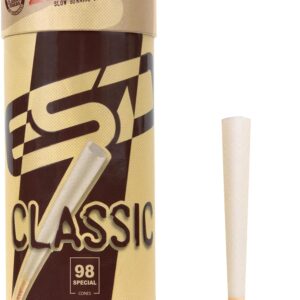
RAW Cones Classic 98 Special – 50 Pack – Slow Burning Pre Rolled Cones with Tips & Packing Tubes Included – Rolling Papers
$12.99
Buy Now
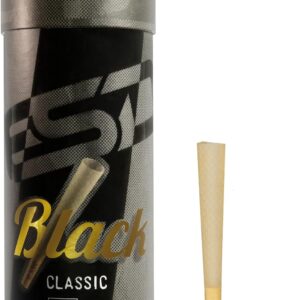
RAW Cones Classic Black 1-1/4 Size – 50 Pack – Slow Burning Pre Rolled Cones – Rolling Paper Pressed Extra Fine for Thin, Naturally Translucent Paper with Tips & Packing Tubes Included
$15.99
Buy Now
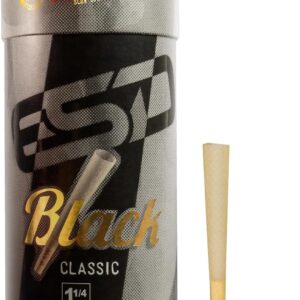
RAW Cones Classic Black 1-1/4 Size | 100 Pack | Slow Burning Pre Rolled Cones – Rolling Paper Pressed Extra Fine for Thin, Naturally Translucent Paper with Tips & Packing Tubes Included
$25.99 Original price was: $25.99.$22.99Current price is: $22.99.
Buy Now

RAW Cones Classic King Size – 100 Pack – Slow Burning Pre Rolled Paper with Tips and Packing Tubes Included
$21.99 Original price was: $21.99.$18.99Current price is: $18.99.
Buy Now
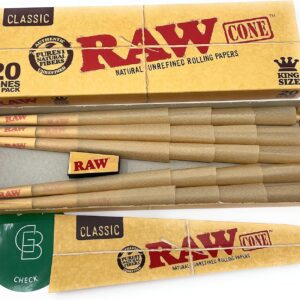
RAW Cones Classic King Size – 20 Pack – Pre Rolled RAWthentic Cones Rolling Papers with Tips, All Natural, Green Blazer Sticker
$9.99 Original price was: $9.99.$8.49Current price is: $8.49.
Buy Now
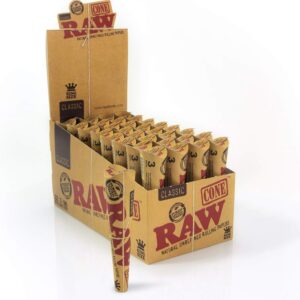
RAW Cones Classic King Size | 32 Packs | Natural Pre Rolled Rolling Paper with Tips | 3 Cones per Pack
$37.99
Buy Now

RAW Cones Classic King Size | 50 Pack | Natural Pre Rolled Rolling Paper with Tips & Packing Tubes Included
$15.99 Original price was: $15.99.$14.99Current price is: $14.99.
Buy Now
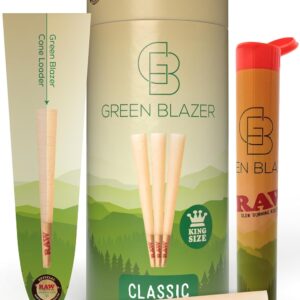
RAW Cones Classic King: 50 Pack Patented Slow Burning Cones Rolling Papers with Tips, All Natural RAW Paper, 109mm, Green Blazer Preroll Loader
$14.99
Buy Now
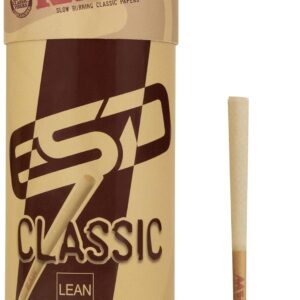
RAW Cones Classic Lean Size – 100 Pack – Slow Burning Pre Rolled Cones with Tips & Packing Tubes Included
$24.99
Buy Now
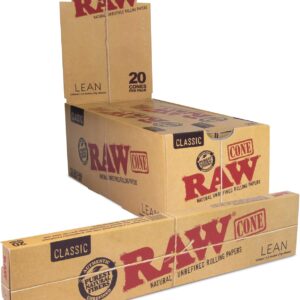
RAW Cones Classic Lean Size | 12 Packs | Natural Pre Rolled Rolling Paper with Tips | 20 Cones per Pack
$48.00 Original price was: $48.00.$44.00Current price is: $44.00.
Buy Now
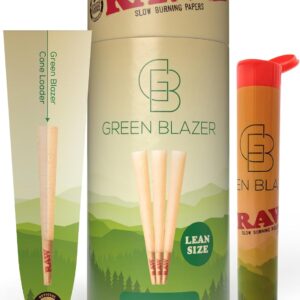
Raw Cones Classic Lean: 50 Pack Slim Pre Rolled Cones Rolling Papers and Tips, Rawthentic Slow Burning, 109mm Unbleached, Green Blazer Loader & Packing Sticks
$14.49
Buy Now
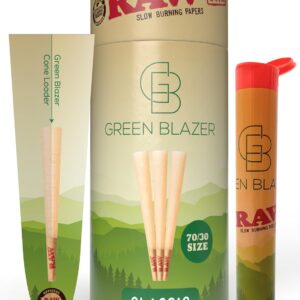
RAW Cones Dogwalker 70/30 Size 100 Pack: Mini Pre Rolled Cones with Tips, Classic, Rawthentic Rolling Paper, 70mm
$22.98
Buy Now
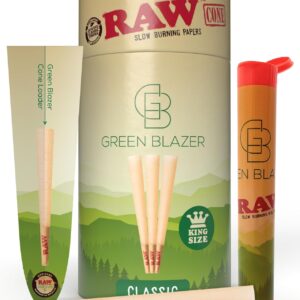
Raw Cones King Size Classic: 100 Pack – Patented Slow Burning Cones Rolling Papers & Tips – All Natural Raw Paper
$21.69 Original price was: $21.69.$18.99Current price is: $18.99.
Buy Now
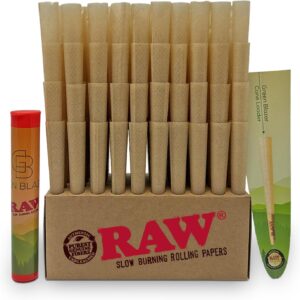
Raw Cones King Size Classic: 200 Pack – Patented Slow Burning Pre Rolled Papers & Tips – All Natural Raw Paper
$34.99
Buy Now
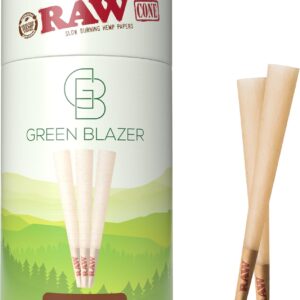
RAW Cones King Size: 100 Pack – Organic Cones with Tips, Patented Slow Burning Pre Rolled Rolling Papers, 109mm
$22.99 Original price was: $22.99.$20.99Current price is: $20.99.
Buy Now
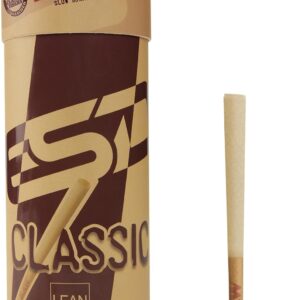
RAW Cones Lean Size Classic – 50 Pack -Slow Burning Rolling Cones with Tips
$14.99
Buy Now
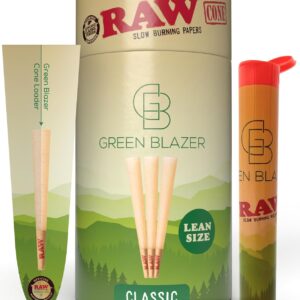
RAW Cones Lean Size: 100 Pack Slim Pre Rolled Rolling Papers & Tips, Classic Flavor, Slow Burning Rawthentic Paper, 109mm
$24.49
Buy Now
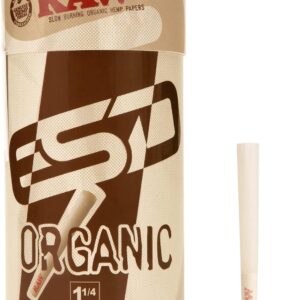
RAW Cones Organic 1-1/4 Size | 100 Pack | Pre Rolled Rolling Paper with Tips & Packing Tubes Included
$21.99
Buy Now
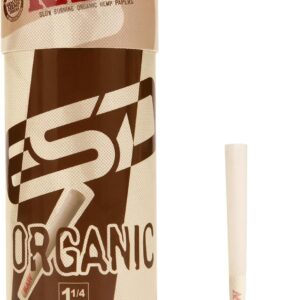
RAW Cones Organic 1-1/4 Size | 50 Pack | Pre Rolled Rolling Paper with Tips & Packing Tubes Included
$12.99
Buy Now
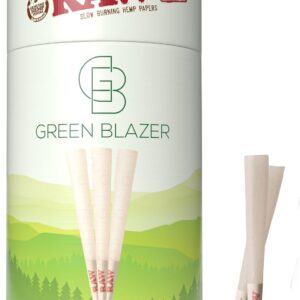
RAW Cones Organic 1-1/4 Size: 150 Pack – Patented Slow Burning Pre Rolled Rolling Papers with Tips, Organic Raw Paper, 84mm
$26.99 Original price was: $26.99.$24.99Current price is: $24.99.
Buy Now

RAW Cones Organic King Size – 100 Pack – Slow Burning Pre Rolled Cones with Tips Included
$20.99
Buy Now
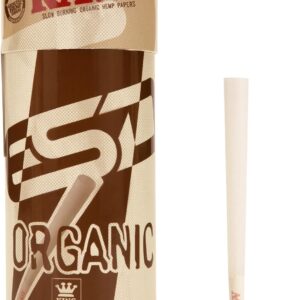
RAW Cones Organic King Size | 50 Pack | Pre Rolled Rolling Paper with Tips & Packing Tubes Included
$13.99 Original price was: $13.99.$12.98Current price is: $12.98.
Buy Now
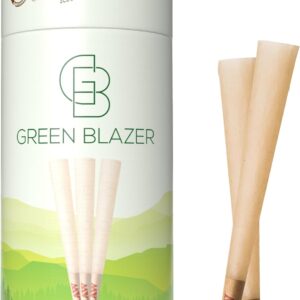
RAW Cones Organic King Size: 50 Pack – Pre Rolled Papers & Tips, Patented Slow Burning Rolling Papers, 109mm
$12.98
Buy Now
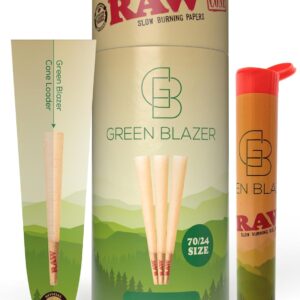
RAW Cones Single Size 70/24: 100 Pack – Mini Pre Rolled Cones Rolling Papers & Tips, Classic RAW Paper, 70mm
$23.48
Buy Now

RAW Cones Single Size Dogwalker: 50 Pack – Mini Pre Rolled Cones Shorter Than 1 1/4 Size (70/30) Classic Rolling Papers & Tips, 70mm
$15.09
Buy Now

RAW Cones Small Single Size Dogwalker Mini Cones Rolling Papers 70/30 Size 50 Pack – Smaller than 1 1/4 – Slow Burning Rolling Paper – Great for Quick Sessions
$15.10
Buy Now
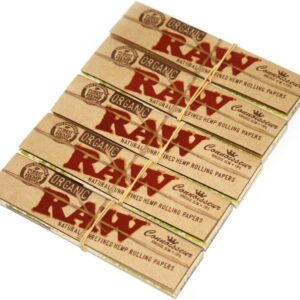
RAW CONNOISSEUR 5 booklets King Size Natural UNREFINED Rolling papers ORGANIC with TIPS. The word hemp needs to be removed.
$16.99 Original price was: $16.99.$8.59Current price is: $8.59.
Buy Now
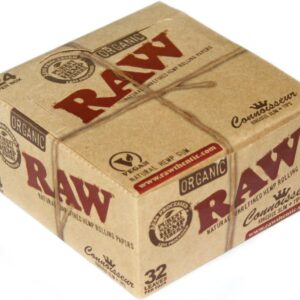
RAW CONNOISSEUR size King SIze Unrefined ORGANIC Hemp Rolling papers + TIPS – 1 Box
$26.44
Buy Now
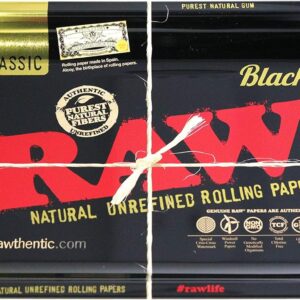
RAW Gold and Black Metal Rolling Tray – Limited Edition – 11” x 7” Size
$9.99 Original price was: $9.99.$6.29Current price is: $6.29.
Buy Now
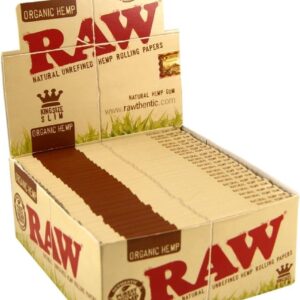
Raw King Size Slim Organic Hemp Rolling Papers Full Box of 50 Packs, 32 Count (Pack of 50)
$35.94 Original price was: $35.94.$26.78Current price is: $26.78.
Buy Now
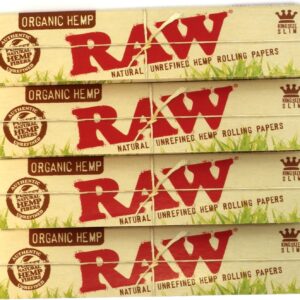
Raw King Size Slim Organic Hemp Rolling Papers, 32 Count (Pack of 4)
$6.73
Buy Now
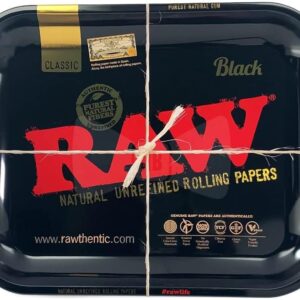
RAW Large Black Limited Edition RAWthentic Rolling Tray – 13.5″ x 11″
$69.99 Original price was: $69.99.$9.54Current price is: $9.54.
Buy Now

RAW Matte Black Murder’d Cigarette Rolling Tray | Size – Small | Elegant and Sleek Black on Black Finish with Smooth Rounded Edges
$17.98 Original price was: $17.98.$9.99Current price is: $9.99.
Buy Now
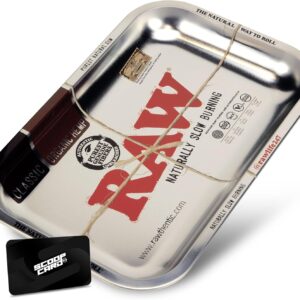
RAW Metal AF Rolling Tray | Size – Small | Polished Chrome Top | Rust and Wear Resistant Clear Coating
$11.99 Original price was: $11.99.$9.99Current price is: $9.99.
Buy Now
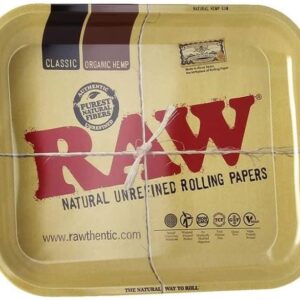
Raw Metal Rolling Tray Large 14 x 11 Inch
$9.99 Original price was: $9.99.$9.71Current price is: $9.71.
Buy Now
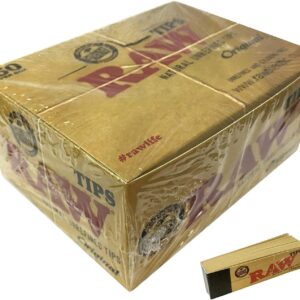
Raw Natural Paper Tips, Brown, Pack of 50
$19.99 Original price was: $19.99.$12.47Current price is: $12.47.
Buy Now
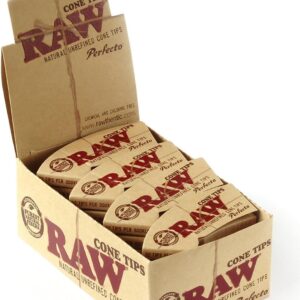
RAW Natural Rolling Cone Tips -1 box – 24 booklets
$18.62
Buy Now
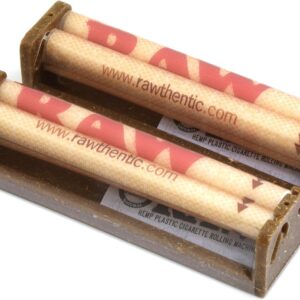
Raw Natural Rolling Papers Hemp Plastic Cigarette Rolling Machine, 110mm King Slim Size, 2 Count (Pack of 1)
$7.99 Original price was: $7.99.$6.95Current price is: $6.95.
Buy Now
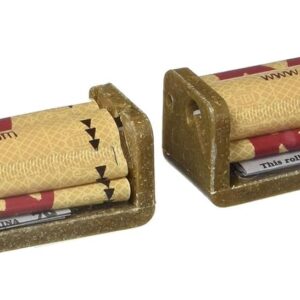
Raw Natural Rolling Papers Hemp Plastic Cigarette Rolling Machine, 79mm 1 1/4 Inch Size (2 Pack)
$9.99 Original price was: $9.99.$5.78Current price is: $5.78.
Buy Now
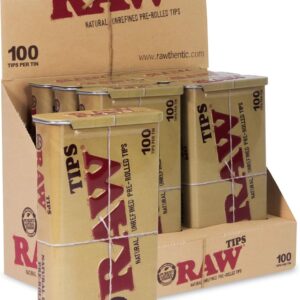
RAW Natural Unrefined 100 Tip Pre-Rolled Tin – (6)
$25.66
Buy Now
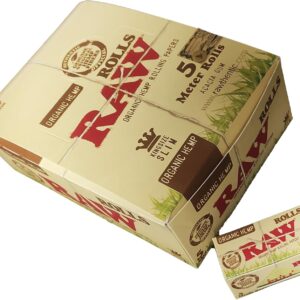
RAW Natural UNREFINED ORGANIC Rolling paper ROLLS 1 box – 24 x 5m papers
$23.42 Original price was: $23.42.$18.95Current price is: $18.95.
Buy Now

RAW Natural Unrefined Pre-Rolled Filter Tips – 1 Bag of 200 Tips
$33.29 Original price was: $33.29.$8.60Current price is: $8.60.
Buy Now
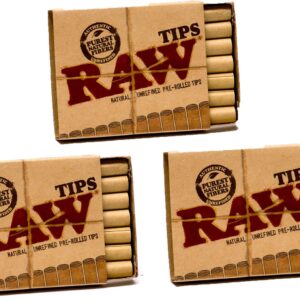
Raw Natural Unrefined Pre-Rolled Filter Tips 21 Count (Pack of 3)
$5.27 Original price was: $5.27.$3.79Current price is: $3.79.
Buy Now
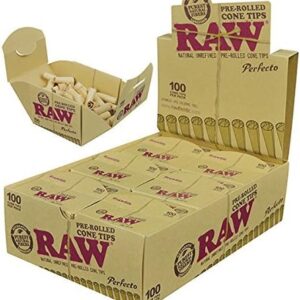
RAW Natural Unrefined Pre-Rolled Perfecto Cone Tips 100 Tips per Pack (1 Pack)
$9.99
Buy Now
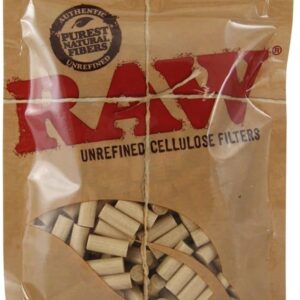
RAW Natural Unrefined Rolling Papers – Slim Cellulose Filters – (1) 200 pc Bag
$7.14
Buy Now
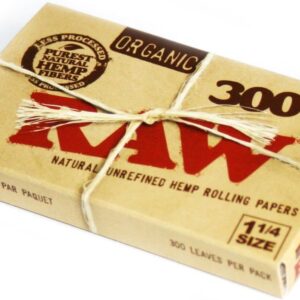
RAW Organic 300 1.25 1 1/4 Size Rolling Papers 1 Pack = 300 Leaves, 300 Count (Pack of 1)
$5.99 Original price was: $5.99.$5.32Current price is: $5.32.
Buy Now
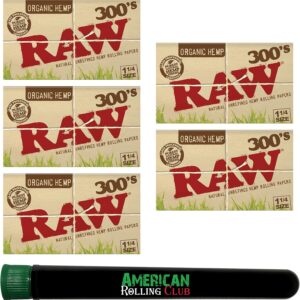
RAW Organic 300’s 1 1/4 Size Cigarette Papers | Includes ARC Saver Tube (5 Pack)
$16.07
Buy Now
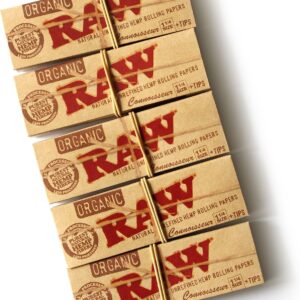
RAW Organic Connoisseur 1.25 1 1/4 Rolling Paper with Tips (5 Packs)
$29.95 Original price was: $29.95.$8.54Current price is: $8.54.
Buy Now
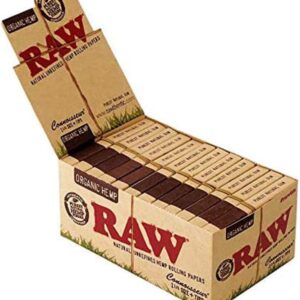
RAW Organic Connoisseur, Rolling Paper with Tips Full, Brown, 1 Count (Pack of 1)
$28.95
Buy Now
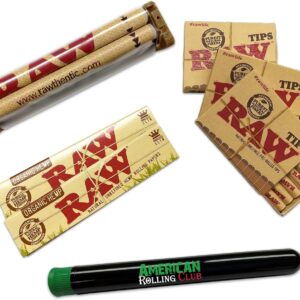
RAW Organic King Size Cigarette Papers Combo Includes: 2 Packs Of RAW Organic King Size Slim Papers, 3 Boxes RAW Pre Rolled Tips, RAW 110MM Cigarette Machine and ARC Cigarette Saver
$9.99
Buy Now
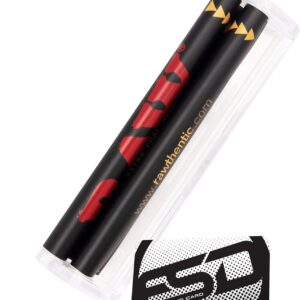
RAW Phatty 125 mm Crystal Clear Tripple Strength Cigarette Rolling Paper Machine – Roll Up Your Favorite Smoking Contents Quick and Easy with This See Through Roller
$9.99
Buy Now
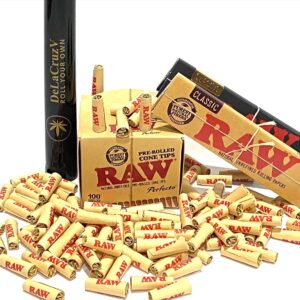
Raw Pre-Rolled Perfecto Cone Tips 1 pack of 100 tips and Two packs of raw King Size Paper and DeLaCruzV Tube.
$11.99
Buy Now
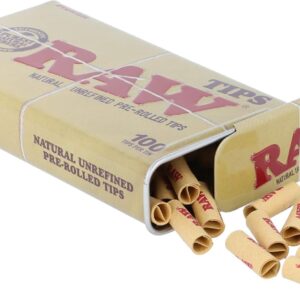
RAW Pre-Rolled Tips + Tin Storage – Single Unit – 100 Tips per Tin
$6.67
Buy Now
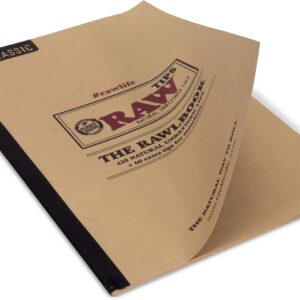
RAW Rawlbook | 10 Pages of Classic Original RAW Paper Tips – All Laid out in Tearable Sheets | Made for Insanely True Smokers
$9.99 Original price was: $9.99.$6.30Current price is: $6.30.
Buy Now
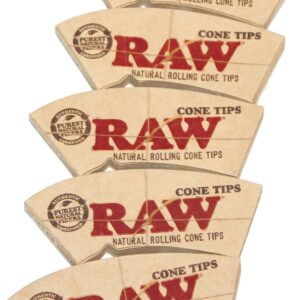
Raw Rolling Paper Perfecto Cone Tips 5 packs = 160 Tips
$5.18
Buy Now
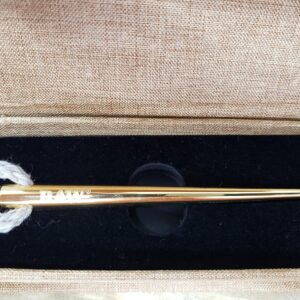
RAW Rolling Papers Gold Poker with Woven Natural Hemp Necklace
$19.99
Buy Now

RAW Rolling Papers Original Roll-Up Tips 6 Pack – 50 Tips per Pack = 300 Tips
$5.99 Original price was: $5.99.$5.03Current price is: $5.03.
Buy Now
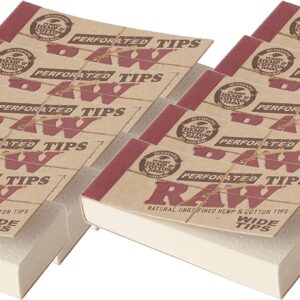
Raw Rolling Papers Perforated Wide Cotton Filter Tips 10 Pack = 500 Tips, 50 Count (Pack of 10)
$6.38
Buy Now
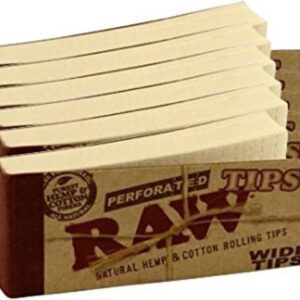
Raw Rolling Papers Perforated Wide Cotton Filter Tips 6 Pack = 300 Tips
$5.89 Original price was: $5.89.$5.19Current price is: $5.19.
Buy Now
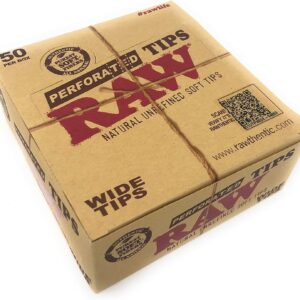
Raw Rolling Papers Perforated Wide Cotton Filter Tips Full Box Of 50 Packs
$26.99 Original price was: $26.99.$23.43Current price is: $23.43.
Buy Now
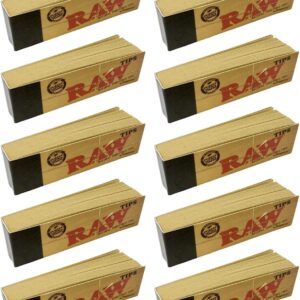
Raw Rolling Papers Unbleached Filter Tips 10 Pack = 500 Tips
$7.99 Original price was: $7.99.$6.01Current price is: $6.01.
Buy Now
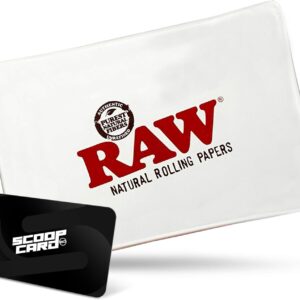
RAW Rolling Tray Glass Star Tray | Size Mini | Shatter Resistant and Extremely Durable That is Elegant Sleek and Transparent Heat Resistant Glass
$21.99
Buy Now
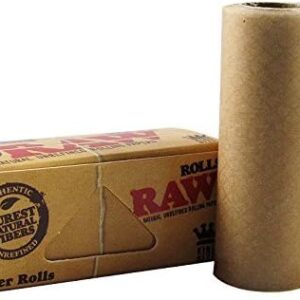
Raw Rolls Classic Natural Unrefined Rolling Paper King Size 3 Meter ( 9 Feet ) 1 Pack
$6.29
Buy Now
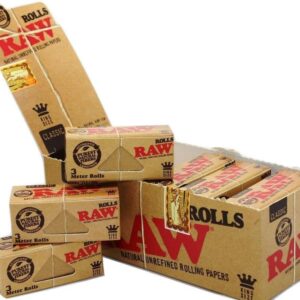
Raw Rolls Classic Rolling Paper King Size 55mm 3 Meter (9′) Full Box of 12 Pack
$19.45 Original price was: $19.45.$18.51Current price is: $18.51.
Buy Now
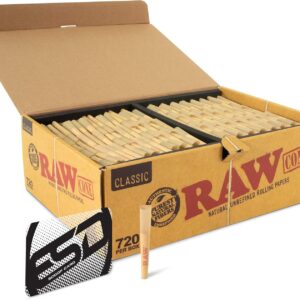
RAW Single Wide Cones 70/45 Sized | 720 Count | Natural Prerolled Rolling Paper with Tips with Tips and ESD Scoop Card
$76.49
Buy Now
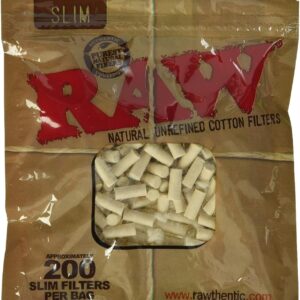
RAW Slim Natural Unrefined Cotton Filter Tips 200pc – 6mm 1 Pack
$8.99
Buy Now
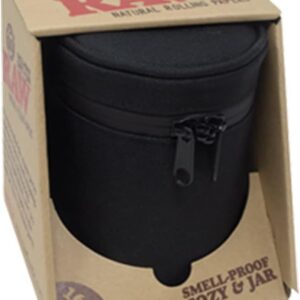
RAW Smell-Proof Jar & Cozy w/Lock (16oz), Black, 16 Ounce
$33.99
Buy Now
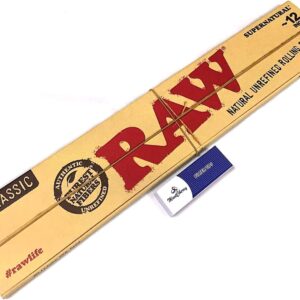
Raw Supernatural 12″ Inch Foot Long Rolling Paper Classic 1 Pack
$51.99 Original price was: $51.99.$6.48Current price is: $6.48.
Buy Now
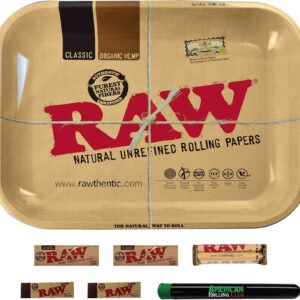
RAW Tray Combo Includes RAW Tray, RAW 1 1/4 Cigarette Papers, RAW Tips, RAW 79mm Roller and ARC Cigarette Saver (Large)
$15.99
Buy Now
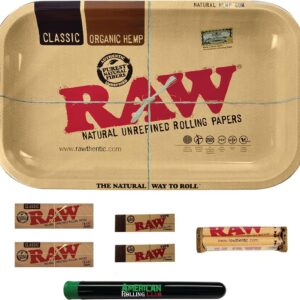
RAW Tray Combo Includes Tray, 1 1/4 Cigarete Papers, Original Tips, and RAW 79mm Machine and ARC Cigarette Saver (Small)
$13.99 Original price was: $13.99.$12.99Current price is: $12.99.
Buy Now
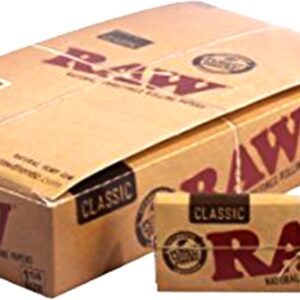
Raw Unrefined Classic 1.25 1 1/4 Size Cigarette Rolling Papers Full Box of 24 Pack
$24.99 Original price was: $24.99.$16.00Current price is: $16.00.
Buy Now
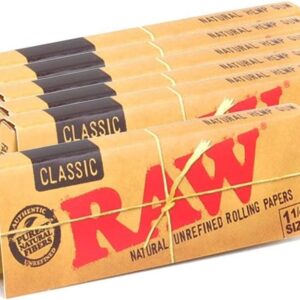
Raw Unrefined Classic 1.25 1 1/4 Size Cigarette Rolling Papers, 50 Count (Pack of 6)
$6.99 Original price was: $6.99.$6.45Current price is: $6.45.
Buy Now
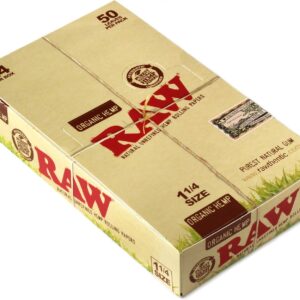
RAW Unrefined Organic 1.25 1 1/4 Size Cigarette Rolling Papers Full Box of 24 Packs, Yellow, 50 Count (Pack of 24)
$34.99 Original price was: $34.99.$18.28Current price is: $18.28.
Buy Now
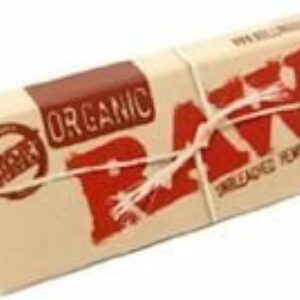
Raw Unrefined Organic 1.25 1 1/4 Size Cigarette Rolling Papers, 50 Count (Pack of 6)
$6.47
Buy Now
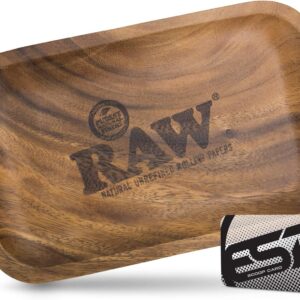
RAW Wood Rolling Tray | Size – Small | Sturdy RAW Designed Wood with Curved Corners – No Creases!
$29.99
Buy Now

RAW Zombie Metal Rolling Tray – Size – Large – Polished Smooth Edges Simple Maintenance – Rust and Wear Resistant Clear Coating
$11.99
Buy Now
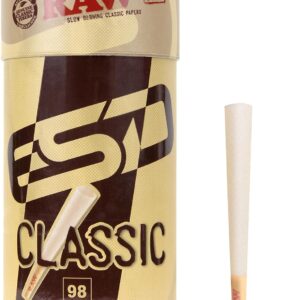
RAW, ES Distributions – RAW Cones Classic 98 Special – Slow Burning Pre Rolled Cones – Rolling Papers with Tips & Packing Tubes Included – Pack of 100
$23.99 Original price was: $23.99.$18.99Current price is: $18.99.
Buy Now
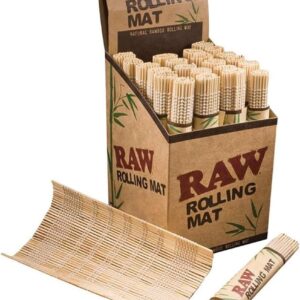
RAW® Rolling Mat ‘Natural Bamboo ‘2 Mats’ (for use w/ Rolling Papers)
$4.22 Original price was: $4.22.$3.63Current price is: $3.63.
Buy Now
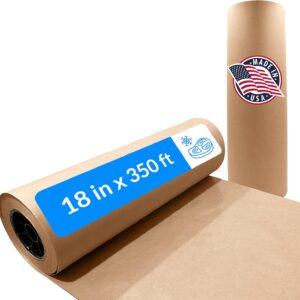
Reli. Brown Freezer Paper Roll | 18 Inch x 350 Feet – Bulk | Made in USA | Natural Freezer Paper Roll for Meat | Food Grade, Poly-Coated for Wrapping/Freezing Meat (Brown)
$31.49 Original price was: $31.49.$26.99Current price is: $26.99.
Buy Now
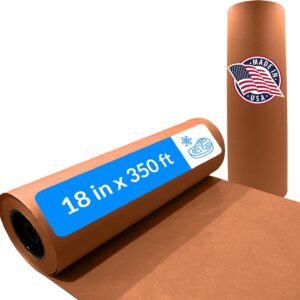
Reli. Pink Freezer Paper Roll | 18 Inch x 350 Ft – Bulk | Made in USA | Peach Freezer Paper Roll for Meat | Food Grade, Poly-Coated for Wrapping/Freezing Meat (Pink)
$94.95 Original price was: $94.95.$29.99Current price is: $29.99.
Buy Now
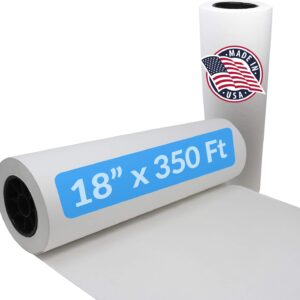
Reli. White Butcher Paper Roll | Made in USA | Bulk Value 18 in x 350 ft (4200 in) | Food Grade Kraft Paper for BBQ | Butcher Wrap for Smoking Meat, Sublimation | Unwaxed, Meat Wrapping
$31.49
Buy Now

Retro Design of Marijuana Leaf. Cannabis Weed. T-Shirt
$13.99
Buy Now
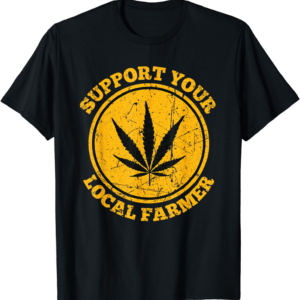
Retro Marijuana Support Your Local Farmer Cannabis Weed 2023 T-Shirt
$14.99
Buy Now
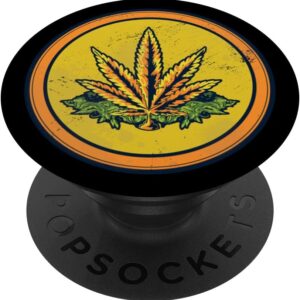
Retro Weed Smoking Cannabis Vintage 420 Pot Smoking Shirt PopSockets Swappable PopGrip
$13.99
Buy Now
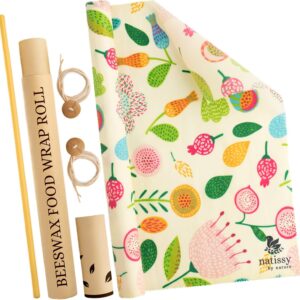
Reusable Beeswax Food Wrap; Roll 39″ Organic Beeswax Paper for Bread; Bowls & Food Storage Sustainable Alternative; Wax Paper for Covering Food Bowls
$39.99 Original price was: $39.99.$24.99Current price is: $24.99.
Buy Now
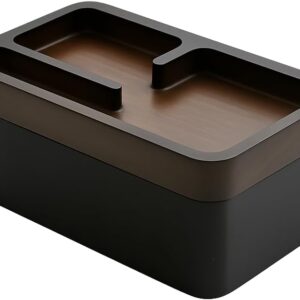
Revov Tray Box, EDC Valet Tray Box with Authentic Wood Magnetic Rotating Lid, Office Table, EDC Gear Organizer, Home Office, Desk Accessories (Black)
$69.00 Original price was: $69.00.$65.55Current price is: $65.55.
Buy Now

Reynolds Kitchens Stay Flat Dispensing Parchment Paper for Baking and Roasting, Parchment Paper Roll, Great for Baking and Rolling Dough, Non-stick, Reusable Up to 3x, 45 Sq. Ft.
$4.49 Original price was: $4.49.$3.99Current price is: $3.99.
Buy Now
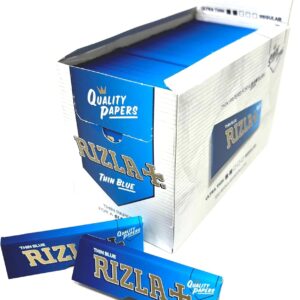
Rizla Blue Regular Cigarette Rolling Papers – 10 Packets
$9.67 Original price was: $9.67.$6.58Current price is: $6.58.
Buy Now
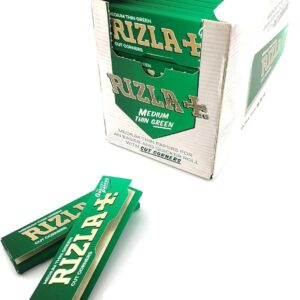
Rizla Green Cigarette Rolling Papers- 10 Packets
$9.67
Buy Now
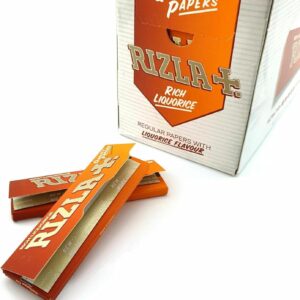
Rizla Liquorice Cigarette Rolling Papers- 10 Packets
$21.98 Original price was: $21.98.$8.95Current price is: $8.95.
Buy Now
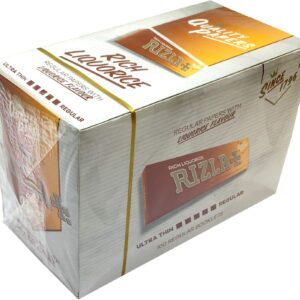
Rizla Orange LIQUORICE Regular Cigarette Rolling Papers Original (50)
$43.99
Buy Now
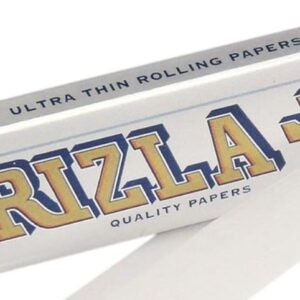
Rizla Silver Cigarette Rolling Papers – 10 Packets
$6.69
Buy Now
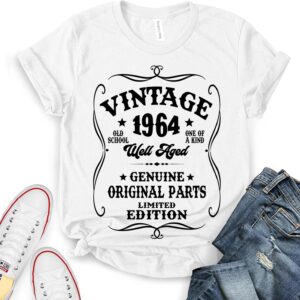
ROKO CLOTHING Vintage Well Aged 1964 Shirts Short Sleeve Letter Printed Graphic 60th Birthday Gift for Men, Women
$19.70
Buy Now
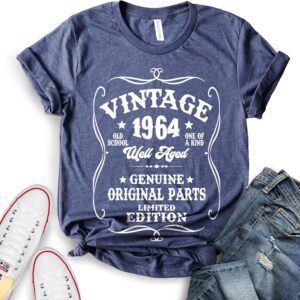
ROKO CLOTHING Vintage Well Aged 1964 Shirts Short Sleeve Letter Printed Graphic 60th Birthday Gift for Men, Women
$19.70
Buy Now

ROKO CLOTHING Vintage Well Aged 1964 Shirts Short Sleeve Letter Printed Graphic 60th Birthday Gift for Men, Women
$19.70
Buy Now
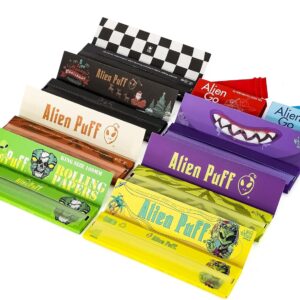
Rolling Paper, Kingsizeslim 110MM Rolling Paper with Tip, 9 Pack with 5 Colors Rolling Paper + 2 Tip, Slow Burn & Ultra Thin Smoking Accessories
$9.99
Buy Now
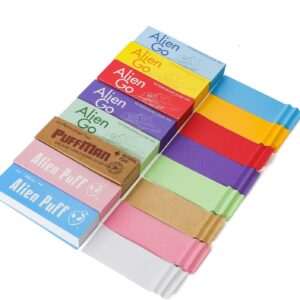
Rolling Papers Perforated Tips, 8 Pack Colors 60x20mm Filter Tips, 8×50=400 Premium Tips with Perforated Lines, Tobacco Tool
$9.90
Buy Now
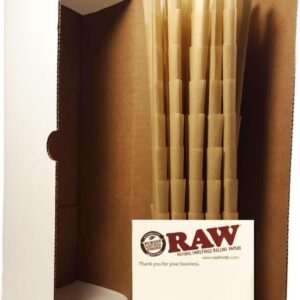
Rolling Papers with Tips – Repackaged in Brown Box – 200 King Size Count
$29.99
Buy Now
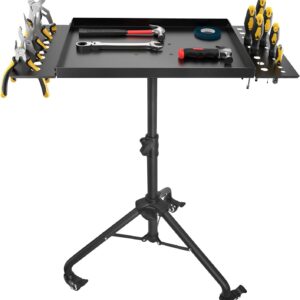
Rolling Tool Tray Cart, Mobile Work Table Tool Tray with 2 Tool Holder Metal Tattoo Tray Height Adjustable, Tool Table Rolling Utility Cart, Tray Cart Tool Storage for Salon Garage Bike Work Shop
$49.99 Original price was: $49.99.$39.99Current price is: $39.99.
Buy Now

Rolling Tray – 7.8 x 5.8 inch,Corner Spout Design for Easy Filling (Bright Black)
$9.99 Original price was: $9.99.$4.99Current price is: $4.99.
Buy Now

Rolling Tray – Durable 7″” x 5.5″” Cat and Mouse Funny Metal Cigarette Rolling Tray/Ashtray for Papers and Wraps – Roll with Style and No More Spills, Red, STGRT001
$10.99 Original price was: $10.99.$8.99Current price is: $8.99.
Buy Now

Rolling Tray “Abstract Texture” 5.5” x 7” Tobacco Smoke Accessories – Tray God
$5.99
Buy Now

Rolling Tray “Floral Hands” 5.5” x 7″ Tobacco Smoke Accessories – Tray God
$9.99
Buy Now
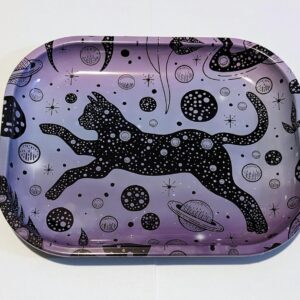
Rolling Tray “Galactic Cat” 5.5” x 7” Metal Tobacco Accessories
$4.99
Buy Now

Rolling Tray “Great Wave” 5.5” x 7” Metal Tobacco Accessories Art
$49.59 Original price was: $49.59.$7.99Current price is: $7.99.
Buy Now
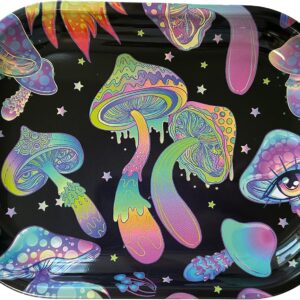
Rolling Tray “Neon Mushrooms” 5.5” x 7″ Tobacco Smoke Accessories – Tray God
$5.99
Buy Now

Rolling Tray “Pink” 5.5” x 7” Metal Tobacco Accessories
$6.99 Original price was: $6.99.$5.99Current price is: $5.99.
Buy Now

Rolling Tray “Purple Mushroom” 5” x 7” Tobacco Smoke Accessories – Tray God
$14.99 Original price was: $14.99.$5.99Current price is: $5.99.
Buy Now

Rolling Tray “Purple Pink Swirl” 5.5” x 7” Metal Tobacco Accessories
$9.99 Original price was: $9.99.$7.99Current price is: $7.99.
Buy Now
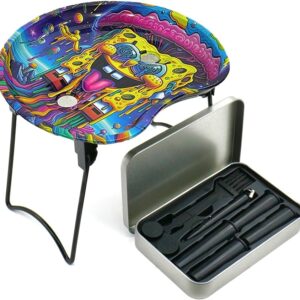
Rolling Tray Portable Cute Metal Serving Tray Combo, Metal Foldable Plate, 7.1″x6.5″ with Cones Loader for Foldable Stand Cone Filler to Tin Roll Plate, Premium Storage Plate
$9.99
Buy Now
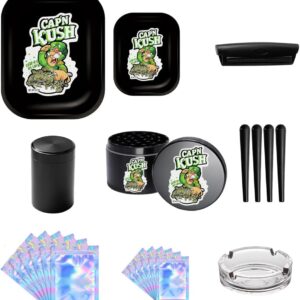
Rolling Tray Set – Smoking Bundle Accessories for Weed Kit
$25.99
Buy Now
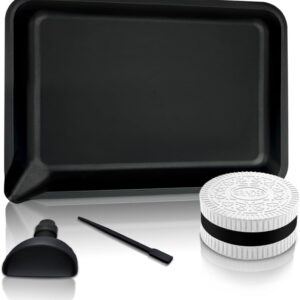
Rolling Tray Set-Portable 4 Piece Kit Rolling Tray Set with Accessories-Suitable for Home, Outdoor&Kitchen Use
$59.99 Original price was: $59.99.$7.99Current price is: $7.99.
Buy Now
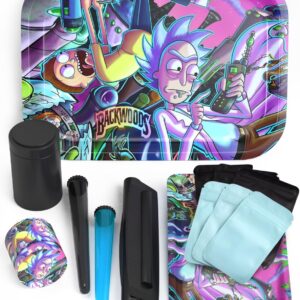
Rolling Tray Set, Smoking Accessories, RM Tray Bundle by Gray Oval
$37.99 Original price was: $37.99.$31.99Current price is: $31.99.
Buy Now

Rolling Tray with Cone Loader Accessories for King Size & 1 1/4 Size Pre Rolled Cones, Cone Filler & Foldable Stand – All-in-one Rolling Tray Set with Storage Bag by Gray Oval
$59.99 Original price was: $59.99.$9.99Current price is: $9.99.
Buy Now
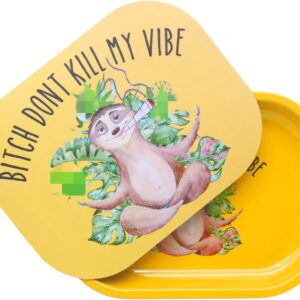
Rolling Tray with Magnetic Lid – Btch Don’t Kill My Vibe Cover, Small Metal Trays Funny Cute Sloth Gifts 7” x 5.5”
$12.99
Buy Now
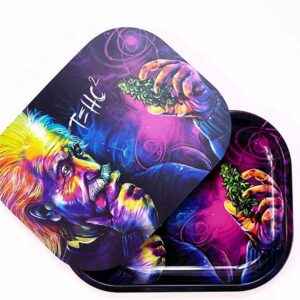
Rolling Tray with Magnetic Lid – Mini Metal Rolling Tray with Spill Proof Cover – Cute Decorative Tray – Perfect Storage for Home or On-The-Go-Small Size – 7” x 5.5”
$9.99 Original price was: $9.99.$9.49Current price is: $9.49.
Buy Now
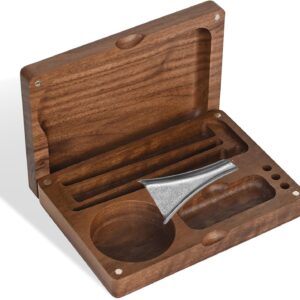
Rolling Tray with Magnetic Lid, Durable Walnut Tray with Storage Space to Organize, Easy to Clean and Carry, Perfect for Home Storage or Travel
$17.99 Original price was: $17.99.$15.99Current price is: $15.99.
Buy Now
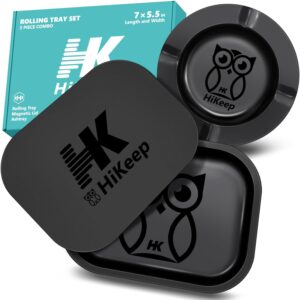
Rolling Tray with PVC Soft Magnetic Lid – 7 x 5.5”, Ashtray – 5.8 x 5.8” – Set of 3 (Owl Design)
$9.99
Buy Now
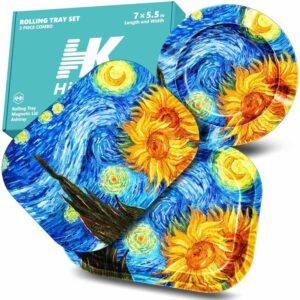
Rolling Tray with PVC Soft Magnetic Lid – 7 x 5.5”, Ashtray – 5.8 x 5.8” – Set of 3 (Sunflower)
$9.99 Original price was: $9.99.$6.99Current price is: $6.99.
Buy Now
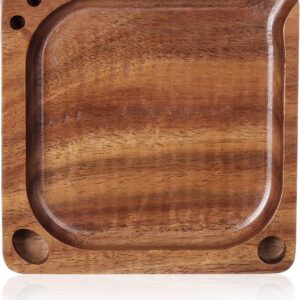
Rolling Tray Wooden 4.72″x 4.72″ Portable Small Rlling Tray with Storage Hole and Dumping Path
$13.99
Buy Now

Rolling Tray, Dusty Pink Rolling Trays- Unique Gifts, Perfect Size for Home Or Travel Accessories (Heart, Medium – 7 x 5.5”)
$9.99 Original price was: $9.99.$5.98Current price is: $5.98.
Buy Now

Rolling Tray. Decorative Tray for Multipurpose Use Tin is 7 x 5.5 inches. This Mario and Luigi Rolling Tray is Made of tin. Cool Cartoon Design.
$9.99 Original price was: $9.99.$8.99Current price is: $8.99.
Buy Now
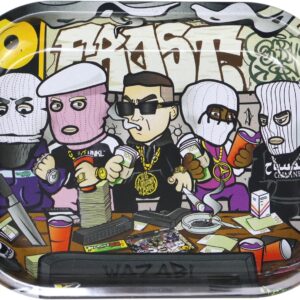
Rolling Trays Premium Metal Tray with Design – Perfect Size for Home Or Travel Accessories 7”X 5.5”,Five Cartoons
$5.99
Buy Now
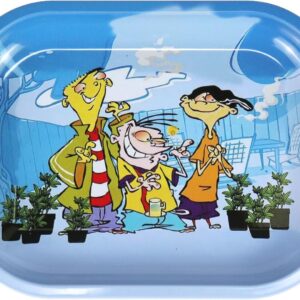
Rolling Trays Premium Metal Tray with Design – Perfect Size for Home Or Travel Accessories 7”X 5.5”,Three Cartoons
$9.99 Original price was: $9.99.$5.99Current price is: $5.99.
Buy Now

Rolling Trays Premium Metal Tray with Design – Perfect Size for Home Or Travel Accessories, Game
$59.99 Original price was: $59.99.$6.99Current price is: $6.99.
Buy Now

Rolling Trays Premium Metal Tray with Design – Perfect Size for Home Or Travel Accessories, Pink
$69.99 Original price was: $69.99.$6.99Current price is: $6.99.
Buy Now
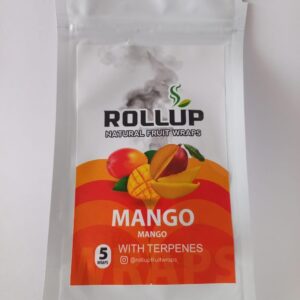
RollUp Natural Fruit Paper Wraps – Made With Fruit cellulose- No Artificial Flavours or Chemicals- Mango
$4.20
Buy Now
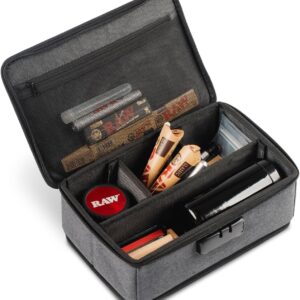
Roonin Smell Proof Box, Smell Proof Bag Case with Lock, Stash Containers, Small Lock Box Container, Smellproof Stash Bag for Accessories
$89.99 Original price was: $89.99.$19.99Current price is: $19.99.
Buy Now
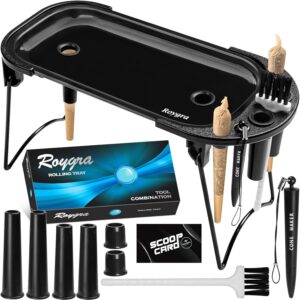
roygra Foldable Rolling Tray with Cone Loader for King or 1-1/4 Size Pre Rolled Cones – 9 x 4 inch (Black)
$37.99 Original price was: $37.99.$9.99Current price is: $9.99.
Buy Now
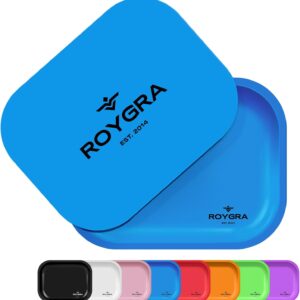
roygra Rolling Tray, Metal Matte Decorative Tray with PVC Soft Magnetic Lid, 7 x 5.5 inch – Blue
$9.99 Original price was: $9.99.$6.99Current price is: $6.99.
Buy Now
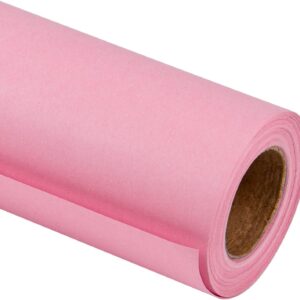
RUSPEPA Pink Kraft Paper Roll – 18 inches x 100 feet – Recyclable Paper Perfect for for Easter Crafts, Art, Wrapping, Packing, Postal, Shipping, Dunnage & Parcel
$21.99
Buy Now

Russell Athletic Men’s Dri-Power Cotton Blend Sleeveless Muscle Shirts, Moisture Wicking Odor Protection UPF 30+, Sizes S-4X
$11.40
Buy Now
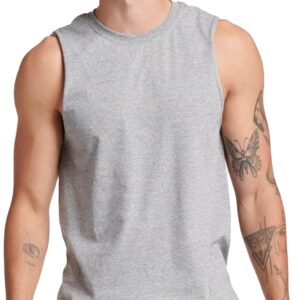
Russell Athletic Men’s Dri-Power Cotton Blend Sleeveless Muscle Shirts, Moisture Wicking Odor Protection UPF 30+, Sizes S-4X
$10.56
Buy Now

Russell Athletic Men’s Dri-Power Cotton Blend Sleeveless Muscle Shirts, Moisture Wicking Odor Protection UPF 30+, Sizes S-4X
$10.56
Buy Now

Rustic Country Puzzles Mushrooms Hunting Girl Poster Stay Trippy Little Hippie Poster Home Smoke Cannabis Weed Living Decor Jigsaw Puzzles Family Puzzle Education Gift Intellective Game 500 Pieces
$16.99
Buy Now

Sacred Eagle Herbal Smoking Blend (1 oz Bag)
$12.99
Buy Now
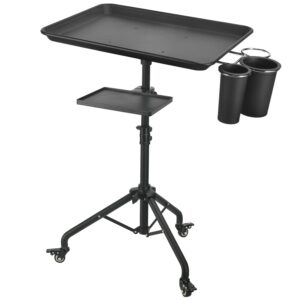
Salon Tray Cart on Wheels, Aluminum Tattoo Tray with Storage Platform, Adjustable Height Service Rolling Tray, Storage Tray Accessory for Salon Spa Dental Use, Rolling Tray Cart
$44.98 Original price was: $44.98.$39.99Current price is: $39.99.
Buy Now
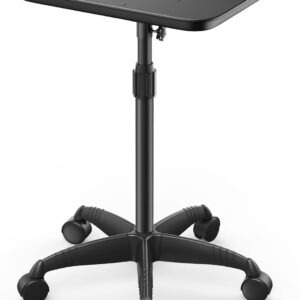
Salon Tray Cart Premium Aluminum Tattoo Tray on Wheels Salon Trolley Adjustable Height Storage Cart for Clinic Spa (36inch)
$41.99
Buy Now
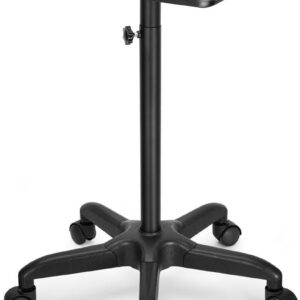
Salon Tray Cart Premium Aluminum Tattoo Tray Rolling Trolley Adjustable Height Storage Utility Cart for Clinic Spa Rolling Tray (Black)
$44.98 Original price was: $44.98.$43.99Current price is: $43.99.
Buy Now
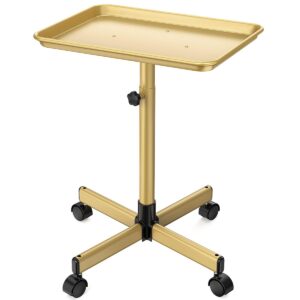
Salon Tray Cart Premium Aluminum Tattoo Tray, Champagne Gold Salon Rolling Tray, Height Adjustable Utility Trolley, Salon Tray on Wheels for Spa Hairstylist Clinic Dental
$47.99
Buy Now
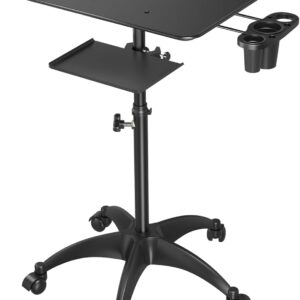
Salon Tray Cart with Storage Platform, Aluminum Tattoo Tray with Wheels Trolley Adjustable Height, Salon Tray Equipment Service Instrument Storage Tray Accessory for Salon & Spa Use, Black
$44.98 Original price was: $44.98.$39.98Current price is: $39.98.
Buy Now
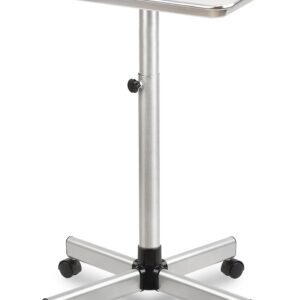
Salon Tray Cart, Salon Color Tray with Adjustable Height, Salon Tray on Wheels, Salon Rolling Tray, Ideal Use As Tattoo Tray&Dental Tray
$46.79 Original price was: $46.79.$44.45Current price is: $44.45.
Buy Now

Salon Tray Cart,Aluminum Instrument Tattoo Trolley Tray with Wheels Adjustable Height,Height Adjustble Hair Color Storage Tray Cart
$52.99 Original price was: $52.99.$47.99Current price is: $47.99.
Buy Now
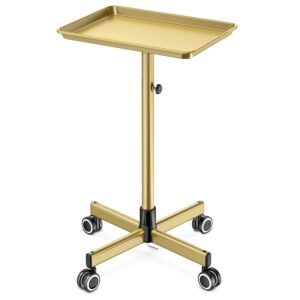
Salon Tray for Hair Stylist – Tattoo Tray Cart With Wheels, Rolling Trolley
$47.99 Original price was: $47.99.$46.99Current price is: $46.99.
Buy Now
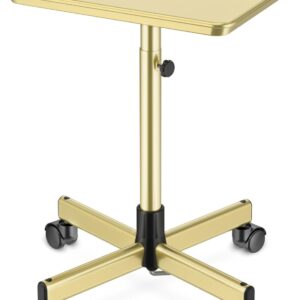
Salon Tray on Wheels – Premium Aluminum Tattoo Tray Rolling Trolley – Adjustable Salon Service Rolling Tray Hairdresser Cart with Clinic Spa Rolling Tray Wheels (Bronze)
$52.79 Original price was: $52.79.$47.99Current price is: $47.99.
Buy Now
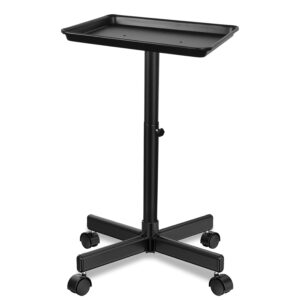
Salon Tray on Wheels-Height Adjustable Salon Rolling Tray-Color Tray for Hair Salon
$49.79 Original price was: $49.79.$43.99Current price is: $43.99.
Buy Now
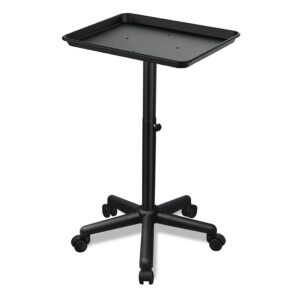
Salon Tray on Wheels, Adjustable Hairstylist Rolling Tray with Wheels,Premium Aluminum Tattoo Tray,Suitable for spa Hairstylist Salon Trolley cart with Wheels-(Black)
$52.99 Original price was: $52.99.$45.89Current price is: $45.89.
Buy Now

Salon Tray on Wheels, Adjustable Tattoo Tray Salon Trolley Cart for Hair Stylist Salon Rolling Tray for Clinic, Spa and Barber(36inch-White)
$44.98 Original price was: $44.98.$39.99Current price is: $39.99.
Buy Now
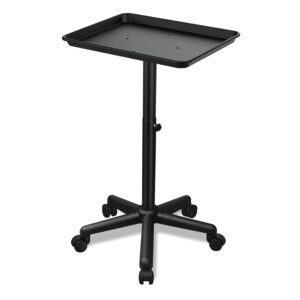
Salon Tray on Wheels, Black Salon Tray Cart with Adjustable Height, Tattoo Rolling Tray, Metal Service Instrument Storage Tray for Salon&Home Use
$47.79 Original price was: $47.79.$44.92Current price is: $44.92.
Buy Now
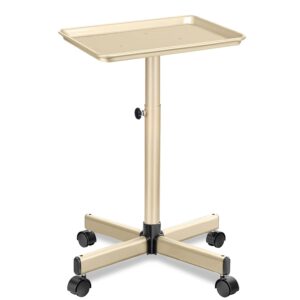
Salon Tray on Wheels, Champagne Gold Metal Rolling Tray with Adjustable Height, Metal Service Instrument Storage Salon Cart for Salon&Home Use
$45.79 Original price was: $45.79.$43.50Current price is: $43.50.
Buy Now
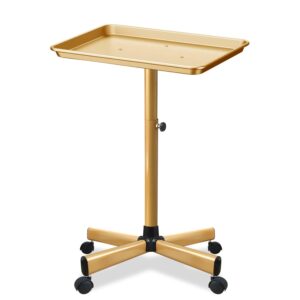
Salon Tray on Wheels, Gold Salon Tray Cart with Adjustable Height, Metal Service Instrument Storage Tray for Salon&Home Use
$49.79 Original price was: $49.79.$46.80Current price is: $46.80.
Buy Now
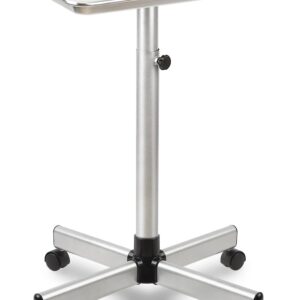
Salon Tray on Wheels, Rolling Tattoo Tray, Adjustable Hair Stylist Tray, Metal Mayo Stand Tray, Salon Color Tray Use As Medical Tray, No-Rusting
$47.79
Buy Now
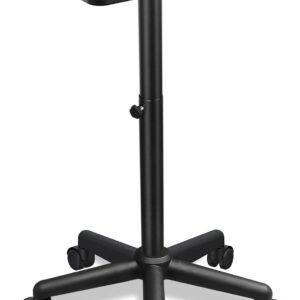
Salon Tray on Wheels, Salon Rolling Tray with Adjustable Height, Hair Stylist Tray, Suitable for Tattoo Tray and Dental Tray
$49.47 Original price was: $49.47.$43.99Current price is: $43.99.
Buy Now
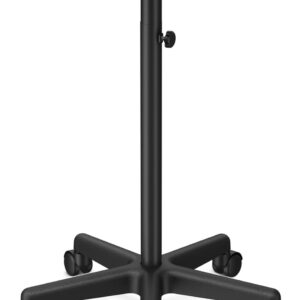
Salon Tray Premium Aluminum Salon Trolley Tattoo Tray Mayo Tray Instrument Rolling Tray Silver Salon Station Tray with Wheels for Barber Salon SPA Tattoo Clinic
$46.44
Buy Now
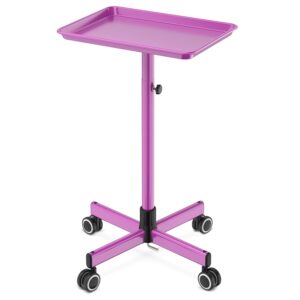
Salon Tray Tattoo Tray Salon Cart for Hair Stylist Salon Trolley Cart with Wheels Salon Rolling Tray-Purple
$47.79 Original price was: $47.79.$46.99Current price is: $46.99.
Buy Now
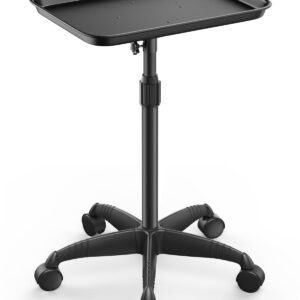
Salon Tray, Adjustable Height Salon Rolling Tray Cart with Wheels, Aluminum Hairstylist Color Tattoo Tray with Wheels for Salon&Spa Use(36inch)
$43.99 Original price was: $43.99.$39.99Current price is: $39.99.
Buy Now
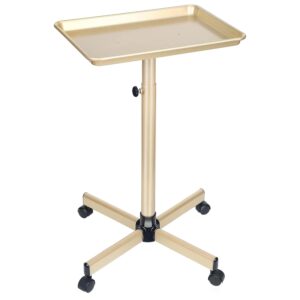
Salon Tray, Champagne Gold Salon Rolling Tray with Adjustable Height, Hair Stylist Tray, Suitable for Tattoo Tray and Dental Tray
$47.98
Buy Now
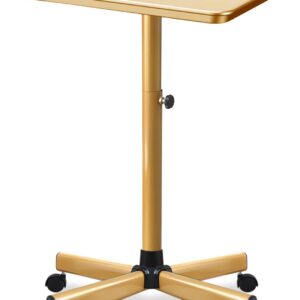
Salon Tray, Golden Salon Tray, Tattoo Tray on Wheels, Metal Dental Rolling Tray, Services Tray Height-Adjustable, Tattoo Tray, Medical Tray, Dental Tray(Golden)
$52.79 Original price was: $52.79.$46.79Current price is: $46.79.
Buy Now
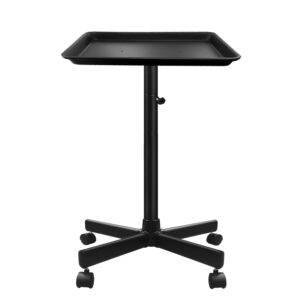
Salon Tray, Metal Feet Salon Rolling Tray Cart, Salon Color Tray, Tattoo Tray with Wheels, Instrument Tray for Salon&Spa Use Black…
$49.79 Original price was: $49.79.$45.81Current price is: $45.81.
Buy Now
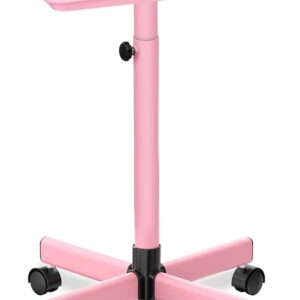
Salon Tray, Salon Rolling Tray on Wheels, Salon Color Tray, Hair Stylist Tray, Allumium Salon Tray Height Adjustable Used As Tattoo Tray and Dental Tray
$47.79 Original price was: $47.79.$43.97Current price is: $43.97.
Buy Now
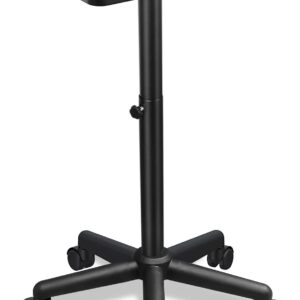
Salon Tray, Salon Rolling Tray with Adjustable Height, Salon Color Tray, Salon Tray on Wheels, Hair Color Tray and Hair Stylist Tray Non-Rusting
$69.79 Original price was: $69.79.$49.79Current price is: $49.79.
Buy Now
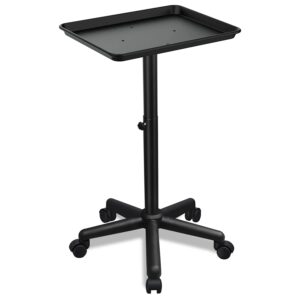
Salon Tray, Salon Rolling Tray with Adjustable Height, Salon Color Tray, Salon Tray on Wheels, Suitable for Tattoo Tray&Dentist Tray Use Black
$47.79 Original price was: $47.79.$44.98Current price is: $44.98.
Buy Now

Salon Tray, Salon Rolling Tray with Adjustable Height, Salon Tray on Wheels, Salon Color Tray Ideal Use As Tattoo Tray, Medical Tray and Dental Tray
$45.79
Buy Now

Salon Tray, Silver Salon Tray, Tattoo Tray on Wheels, Metal Salon Rolling Tray, Salon Services Tray Height-Adjustable, Tattoo Tray, Medical Tray, Dental Tray(Silver)
$49.79 Original price was: $49.79.$46.79Current price is: $46.79.
Buy Now
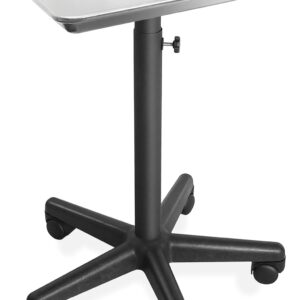
Saloniture Aluminum Salon Instrument Tray, Heavy-Duty Metal Rolling Base
$95.00 Original price was: $95.00.$54.99Current price is: $54.99.
Buy Now
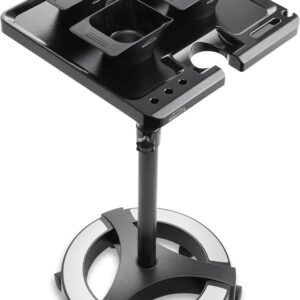
Saloniture Rolling Salon Coloring Tray – Portable Hair Stylist Trolley with Magnetic Bowls, Black
$64.99
Buy Now
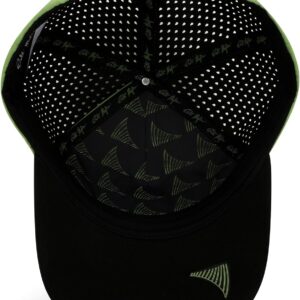
Salt Mafia Curved Brim Water-Resistant Performance Snap Back Hat
$39.99
Buy Now
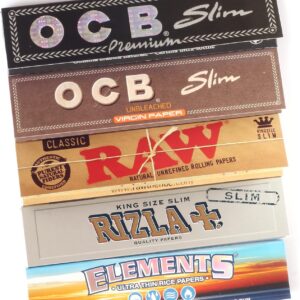
Sample set – 5 booklets King Size Slim papers – 161 papers – OCB RAW Rizla Elements
$7.99 Original price was: $7.99.$6.99Current price is: $6.99.
Buy Now

Sandbaggy Biodegradable Landscape Fabric – Garden Paper for Weeds – Paper Mulch Rolls – Made in America (3 ft x 475 ft, 1)
$190.10
Buy Now

Santa Cruz Shredder x Cookies Tray – Smooth Rounded Edges, Spout for Easy Filling – Durable Design for Effortless Experience – Small
$16.84 Original price was: $16.84.$12.95Current price is: $12.95.
Buy Now

Sativa to Change The Things I Can-Indica to Accept The Things I Can’t Vintage Tin Sign Home Wall Decor Art Room for Home Office Bedroom Living Metal Funny Decoration Housewarming Gift 6″x 8″
$8.99 Original price was: $8.99.$8.19Current price is: $8.19.
Buy Now

School Smart – 85485 Butcher Kraft Paper Roll, 40 lb, 36 Inches x 1000 Feet, White
$74.99
Buy Now

Scott Paper Towels, Choose-A-Sheet, 30 Double Rolls = 60 Regular Rolls (108 Sheets Per Roll)
$33.99 Original price was: $33.99.$31.10Current price is: $31.10.
Buy Now
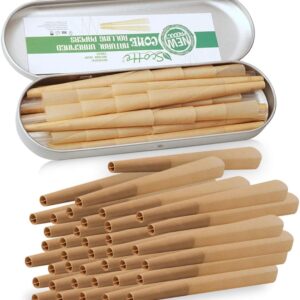
Scotte 40 Pre Rolled Cones 1 1/4 Size Organic Cigarette Rolling Papers with Tips (78mm/3inch) (Yellow)
$22.78 Original price was: $22.78.$8.19Current price is: $8.19.
Buy Now

Secrets of the Sticky Icky – Cannabis Cultivation Log – Weed Growing Journal: Marijuana Grow Book – Daily Tracker
$9.99
Buy Now

Set Of 3 Cannabis Education ‘endocannabinoid System’ Poster, Home Decor Medical Office Decor, Medical Wall Art Poster And Canvas
$49.99
Buy Now
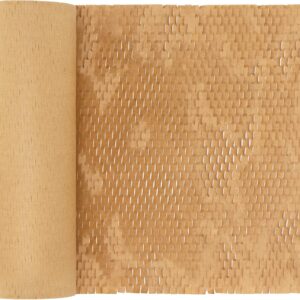
SEUNMUK 15 Inch x 328 Ft Honeycomb Packing Paper Pack Wrap Roll, Eco-Friendly Recyclable Honeycomb Cushioning Packaging Wrap, Brown Kraft Packaging Cushioning Paper for Packing and Moving
$26.59
Buy Now

Sexy Weed Lips Smoking Marijuana Joint Cannabis Lips PopSockets Swappable PopGrip
$14.99
Buy Now
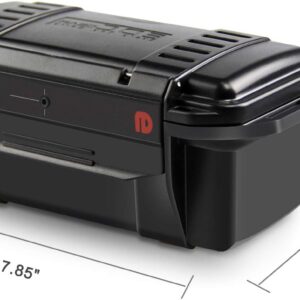
SHBC Smoker Smell Proof Container 8 Inch-The Stash Box Waterproof/Odor Resistant/Lockable Security Lid/Fits Pax 2/ Grinder/Containers -More Smoking Accessories Travel, Hidden and Storage
$19.99
Buy Now
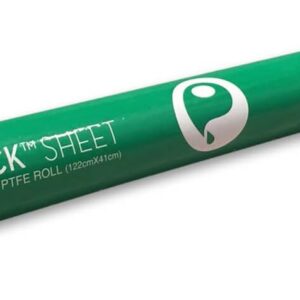
Sheet Labratory Grade PTFE Roll Solvent Resistant Alternative to Parchment Paper, 48×16
$27.00
Buy Now
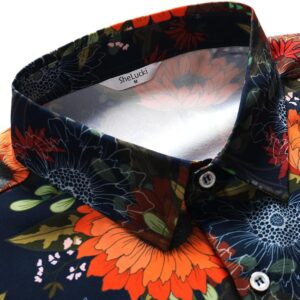
SheLucki Hawaiian Shirt for Men, Unisex Summer Beach Casual Short Sleeve Button Down Shirts, Printed Palmshadow Clothing
$19.99
Buy Now
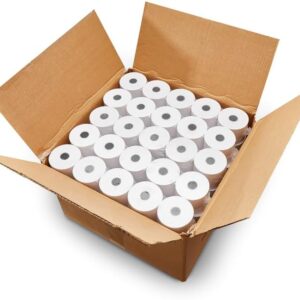
ShopSmartOnline (48 Rolls – 60GSM) 2 1/4 x 150 ft White Adding Machine Tape Paper Rolls Premium One Ply Register/Adding Machine/Calculator Paper Rolls Printing Calculator 10 Key
$41.99
Buy Now

Show Me Your Doobies Weed Gift | Funny Marijuana Bud Stoner T-Shirt
$19.99
Buy Now

SHW Mobile Height Adjustable Laptop Rolling Cart with Height Adjustment from 28″ to 33″, Black
$49.87
Buy Now
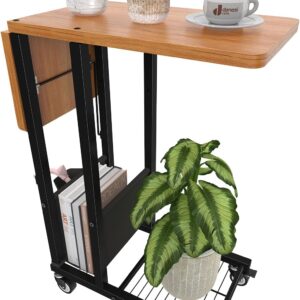
Simple Trending C Shaped End Table, Folding TV Tray Couch Side Table for Sofa on Wheels, Black
$45.99 Original price was: $45.99.$39.97Current price is: $39.97.
Buy Now
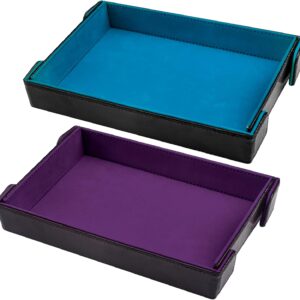
SIQUK 2 Pieces Magnetic Dice Tray Rectangle Folding Dice Rolling Tray PU Leather Dice Trays Dice Holder Storage Box for D&D RPG Dice Games (Violet, Sky Blue)
$12.99
Buy Now
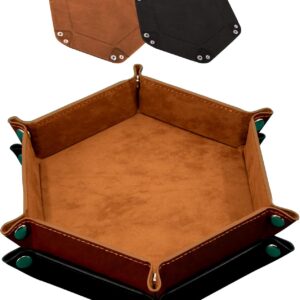
SIQUK 2-Piece Dice Tray – PU Leather Folding Hexagon Dice Holder for RPG, DND and Other Table Games (Camel and Black)
$7.99
Buy Now
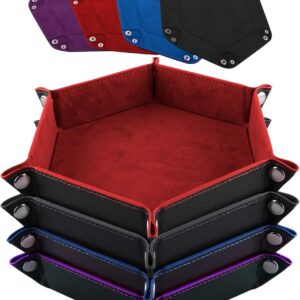
SIQUK 4 Pieces Dice Tray Set Foldable Dice Trays Hexagon Dice Rolling Tray PU Leather Dice Holder for Dice Games Like RPG, DND and Other Table Games (Red, Black, Blue and Violet)
$14.99
Buy Now
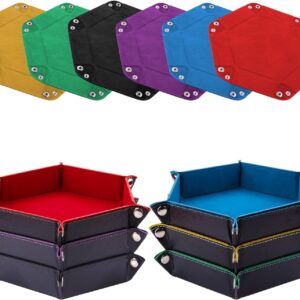
SIQUK 6 Pieces Dice Tray Hexagon Dice Rolling Holder Folding PU Leather Dice Trays for Dice Games Like RPG, DND and Other Table Games(Red, Blue, Violet, Black, Green, Yellow)
$19.99
Buy Now
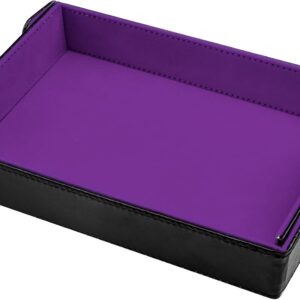
SIQUK Magnetic Folding Dice Tray Rectangle Dice Rolling Tray PU Leather Dice Trays Foldable Dice Holder Dice Rolling Mat Storage Box for D&D RPG Dice Games, Violet
$12.99 Original price was: $12.99.$8.99Current price is: $8.99.
Buy Now

SJT ENTERPRISES, INC. Just Want to Smoke Weed & Pet My Cat 2.5 x 3.5 inch Wood Magnet – Funny Quotable Magnet, Gift for Stoners (SJT00245)
$5.99
Buy Now
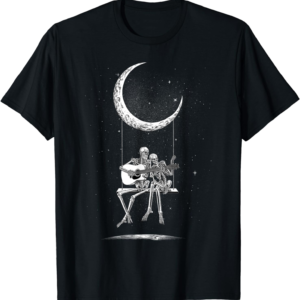
Skeleton Playing Guitar Graphic Band Tees Rock And Roll Moon T-Shirt
$19.99
Buy Now
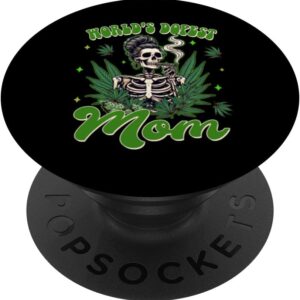
Skeleton Smoking Weed Cannabis Lover 420 World’s Dopest Mom PopSockets Standard PopGrip
$14.99
Buy Now
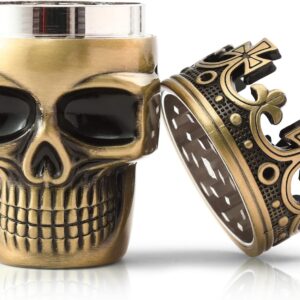
Skull Grinder, Spice Grinder Gift, 1.7 Inch
$13.99
Buy Now
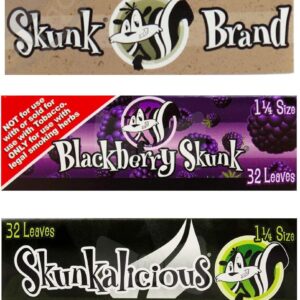
Skunk Brand 1 1/4 Rolling Paper Bundle – 1 Pack of each flavour – Blackberry, Natural, Strawberry, Skunkalicious, Hawaiian
$18.57 Original price was: $18.57.$9.95Current price is: $9.95.
Buy Now
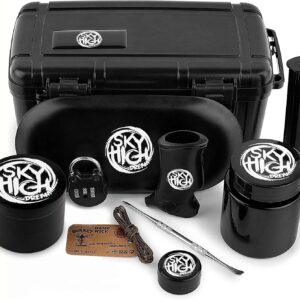
Sky High 11 Piece Stash Box with Lock, Grinder, Airtight Jar, Double-Ended Pick, Storage Tube, Tray, Lighter Holder, Hemp Wick, Tobacco Storage, Black
$25.99
Buy Now

Sleeveless Plaid Front Shirt for Men,Cowboy Button Down Shirts
$23.99
Buy Now

Sliding Tray for Coffee Maker – Solid Wooden Appliance Slider with 360° Smooth Rolling Wheels for Heavy Kitchen Appliances, Easy Under – Cabinet Access (Approach 13″x14″)
$32.99 Original price was: $32.99.$31.34Current price is: $31.34.
Buy Now
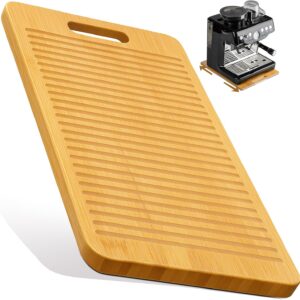
Sliding Tray for Coffee Maker, Appliance Slider Bamboo with Rolling Rubber Wheels for Heavy Kitchen Appliances, Coffee Pot Slider Tray for Countertop(16″D x 13″W)
$57.99 Original price was: $57.99.$26.99Current price is: $26.99.
Buy Now

Sliding Tray for Coffee Maker,Kitchen Countertop Appliance Slider,Coffee Pot Slider Tray for Countertop with Rolling Wheels and non-slip pads,Safe ABS Material Dishwasher Safe Non Slip Mat
$22.99 Original price was: $22.99.$17.99Current price is: $17.99.
Buy Now
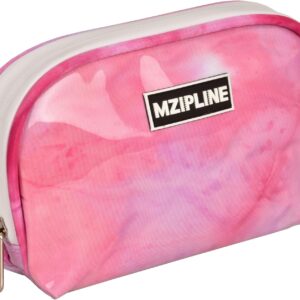
Small Bag – Smell Proof – Water Resistant Mini Vanity Case Pouch with Carbon Filter System for Girl Women Travel Storage
$18.99 Original price was: $18.99.$16.99Current price is: $16.99.
Buy Now
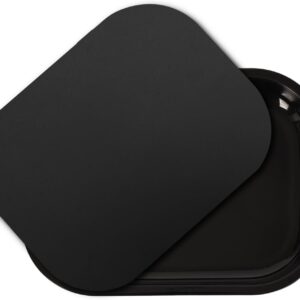
Small Metal Tray with Magnetic Lid, Cute Decorative Tray, Ideal Storage for Home or Travel, 7 x 5.5 Inches (Black)
$9.99 Original price was: $9.99.$8.99Current price is: $8.99.
Buy Now
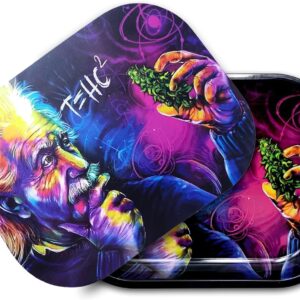
Small Metal Tray with Magnetic Lid, Decorative Tray, Ideal Storage for Home or Travel, 7 x 5.5 Inches (Blue)
$9.99 Original price was: $9.99.$9.49Current price is: $9.49.
Buy Now

Small Metal Tray with Magnetic Lid, Decorative Tray, Ideal Storage for Home or Travel,Black,7 x 5.5 Inches
$26.99 Original price was: $26.99.$9.99Current price is: $9.99.
Buy Now
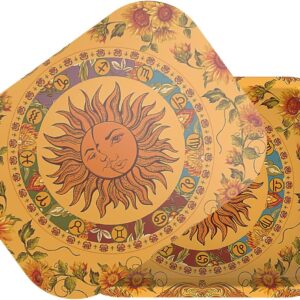
Small Metal Tray with Magnetic Lid, Decorative Tray, Ideal Storage for Home or Travel,Orange,7 x 5.5 Inches
$9.99
Buy Now
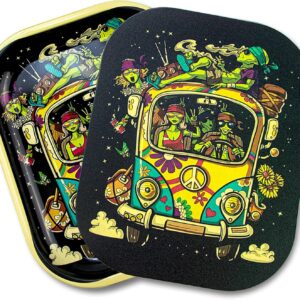
Small Metal Trays with PVC Soft Magnetic Lid Metal Tray with Lid Cover Small Cute Decorative Tray Ideal Storage for Home or on The Go, 7″ x 5.5″
$26.99 Original price was: $26.99.$9.99Current price is: $9.99.
Buy Now
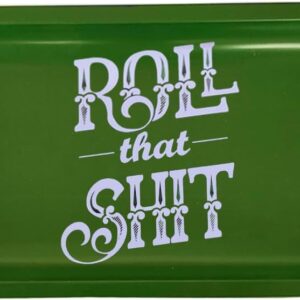
Small Mini Rolling Tray Metal Decorative Tray Green with Round Edges 7″x4.9″
$9.99 Original price was: $9.99.$7.99Current price is: $7.99.
Buy Now
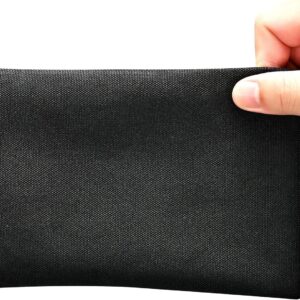
Small Smell Proof Bag, Smell Proof Pouch Container,Tash Travel Storage Pouch Pocket (BLACK)
$7.95
Buy Now
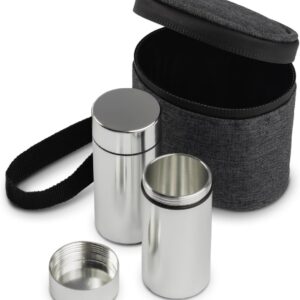
Small Smell Proof Container – Stash Jar Smell Proof – Stash Container – Scent Proof Bag – Odor Proof Container – Air Tight Containers (Gray-Gray)
$14.99
Buy Now
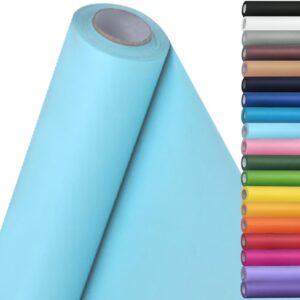
SMART&CASUAL 15″ x 450″ (37.5′) Kraft Paper Roll for Art Craft Supplies Gift Wrapping Moving Packing Kids Painting Drawing Paint Easel Poster Chart Paper (Light Blue, 15″ W x 450″ L (37.5′))
$8.99
Buy Now

SMART&CASUAL 17.8″ x 760″ (63′) Lake Blue Kraft Craft Paper Roll for Gift Wrapping Bulletin Board Bouquet Flower Kids Art Packing Parcel Table Covering 80GSM 55LB (Lake Blue, 17.8″ x 63′)
$8.99
Buy Now

SMART&CASUAL 17.8″ x 760″ (63′) Medium Green Kraft Craft Paper Roll for Gift Wrapping Bulletin Board Bouquet Flower Kids Art Packing Parcel Table Covering 80GSM 55LB (Medium Green, 17.8″ x 63′)
$8.99
Buy Now
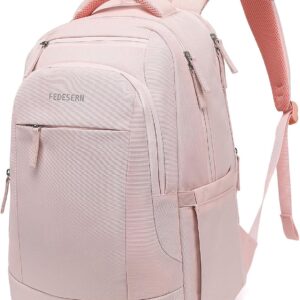
Smell Proof Backpack with Lock,Water Resistant Smell Proof Bags Travel Laptop Backpack,Large Capacity Carbon Enduring Smell Proof Stash Bag with Lock for Men Women (Pink)
$30.99
Buy Now
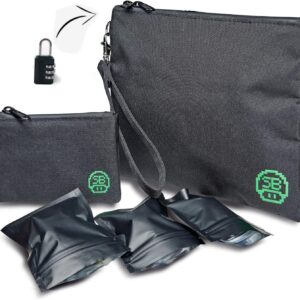
Smell Proof Bag – Large & Small Smell Proof bags + Lock & Odor Proof Bags – Smell Proof Pouch Container
$15.99
Buy Now
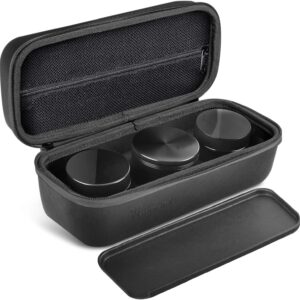
Smell Proof Bag – Smell Proof Stash Box with Glass Jars,Grind,Multi-Functional Work Tray, Waterproof & Odor Proof Bag,Large Stash Box For Your Accessories,Travel Essentials for Men,Black
$21.99
Buy Now
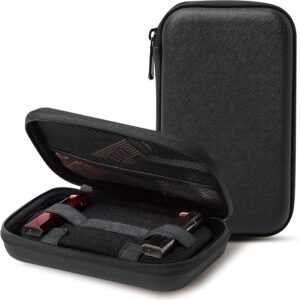
Smell Proof Bag – Smell Proof Stash Box with KS Tubes, Waterproof & Odor Proof Bag, Stash Box For Your Accessories,Travel Essentials for Men (Black)
$9.99
Buy Now
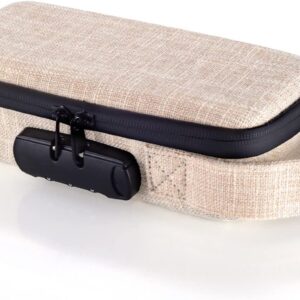
Smell Proof Bag | Smell Proof Stash Box with Combination Lock | Portable Travel Storage Case for Your Accessories | Gift for Men/Women (Small)
$15.99
Buy Now
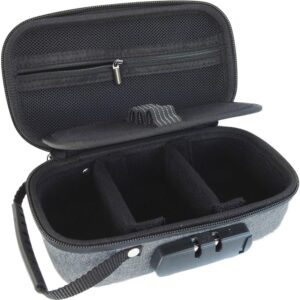
Smell Proof Bag Container with Lock, Small Stash Box, Portable Hard Case for Travel Storage(8 * 4Inch)
$16.99 Original price was: $16.99.$15.29Current price is: $15.29.
Buy Now
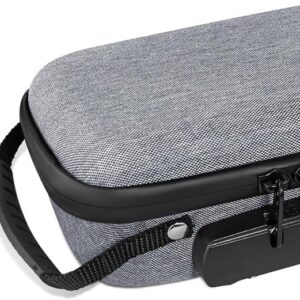
Smell Proof Bag Containers with Lock, Small Stash Box, Portable Hard Body Case (7Inch Grey)
$18.99
Buy Now
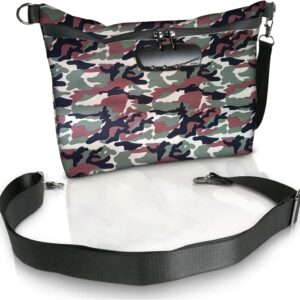
Smell Proof Bag Odor Proof Stash Bag with Combination Lock, Cool Travel Storage Case (CAMO)
$20.99
Buy Now

Smell Proof Bag with Combination Lock Odor Proof Bag Lockable Set, Smoking Tobacco Pipe Accessories Carbon Lining Durable Organizer Medicine Bag Odorless Pouch Great Gifts for Women(Green)
$38.98 Original price was: $38.98.$29.69Current price is: $29.69.
Buy Now
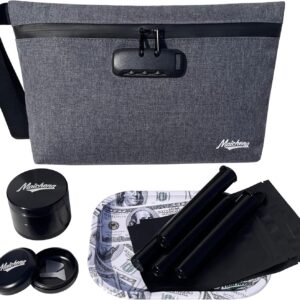
Smell Proof Bag with Combination Lock Smell Proof Container Travel Medicine Lock Bag Carbon Lined Pouch Accessories Organizer Great Christmas Gift Set
$22.19
Buy Now
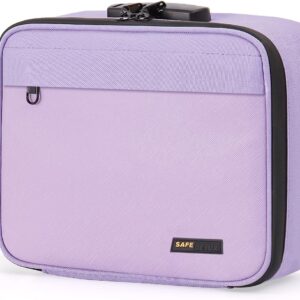
Smell Proof Bag with Combination Lock, Airtight Zippers Carbon Lining & Removable Dividers, Odor Proof Container for Smoking Accessories, Odorless Travel Box Blocks Out Strong Odors
$19.99
Buy Now
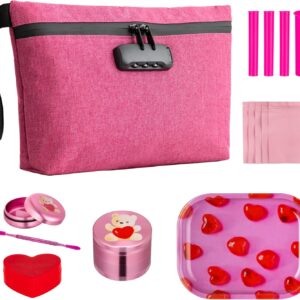
Smell Proof Bag with Combination Lock, Large Odor Proof Containers, Carbon Lined Pouch, Water Resistant, Airtight Zipper, Travel Storage Kit, Pink
$35.99
Buy Now
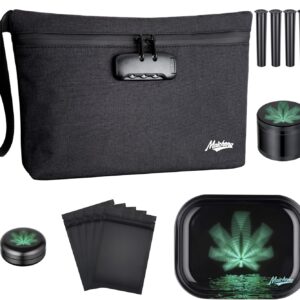
Smell Proof Bag with Combination Lock, Large Smell Proof Containers, Carbon Lined Odor Proof Pouch Featuring Premium Accessories, Water Resistant Fabric and Airtight Zipper
$24.74
Buy Now
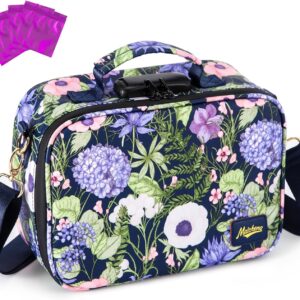
Smell Proof Bag With Combination Lock, Large Stash Box, Odor Proof Container, Portable Travel Storage Case, Activated Charcoal, Purple
$23.99
Buy Now
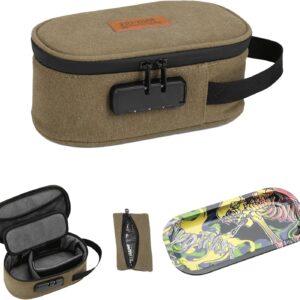
Smell Proof Bag with Combination Lock, Odor Proof Bag with Metal Tray and Mini Pouch Pocket, Stash Box for Storage and Travel, Portable and Easy to Use, Khaki
$17.99
Buy Now
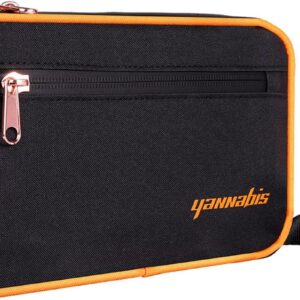
Smell Proof Bag with Combination Lock, Odor Proof Pouch, Travel Storage Case 8.6 x 5 Inch
$18.99 Original price was: $18.99.$9.99Current price is: $9.99.
Buy Now
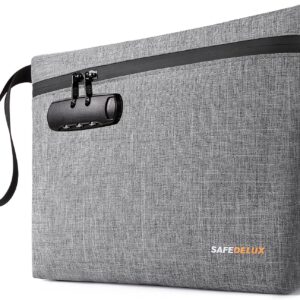
Smell Proof Bag with Combination Lock,11.5” x 8.6” Odor Proof Container Carbon Lining Smoking Tobacco Pipe Pouch, Odorless Durable Travel Organizer Cases (Gray)
$18.99 Original price was: $18.99.$9.99Current price is: $9.99.
Buy Now
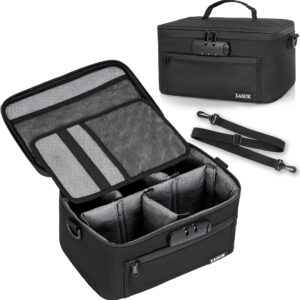
Smell Proof Bag with Lock – Smell Odor Proof Pouch Case with Easy Grip Handle and Clapboard- for Travel Stash Storage – Large – Black
$35.99 Original price was: $35.99.$15.99Current price is: $15.99.
Buy Now
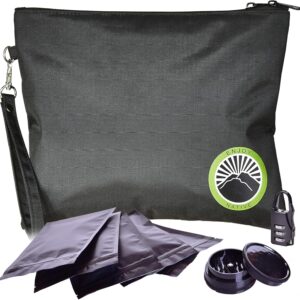
Smell Proof Bag with Lock 11″ x 9″, Smell Proof Container, Dog Tested Odor resistant Bags, Best Zipper odor sealing pouch for Herbs, Coffee & Travel Medicine, Scent resistent Containers
$75.00 Original price was: $75.00.$19.99Current price is: $19.99.
Buy Now
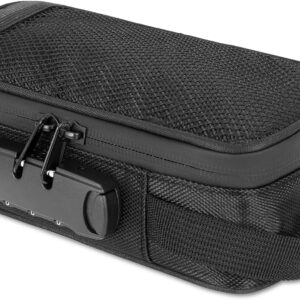
Smell Proof Bag, Carbon Lined Smell Proof Stash Box, Smell Proof Container with Combination Lock, Odor Proof Bags for Portable Travel Storage (Black)
$19.99
Buy Now
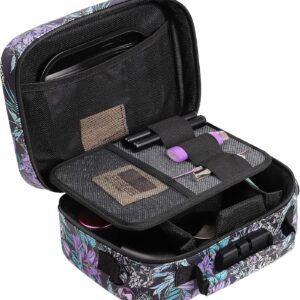
Smell Proof Bag, Christmas Gift Set for Friends, Smell Proof Bags with Combination Lock Scent Proof Smoking Tobacco Set, Odorless Rolling Tray Carbon Lining Organizer Travel Medicine Bags
$26.99
Buy Now
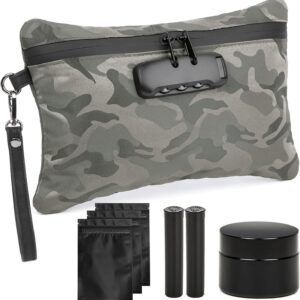
Smell Proof Bags,Smell Proof Pouch,Smell Proof Stash Bag,Smell Proof Container,Odor Proof Pouch,Smell Proof Box,Upgrade Smellproof Bag,Smell Proof Case,Stash Storage Odor Proof Bags Kit(Green)
$18.99
Buy Now
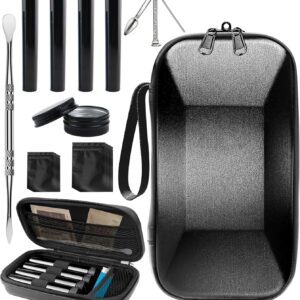
Smell Proof Box All in One, Stylish Smell Proof Case Travel-Friendly, Discreet Air Tight Containers, Waterproof Scentproof Case Gifts Black
$17.99
Buy Now

Smell Proof Case with 4 Aluminum Tubes, Smell Proof Locking Container, Bag Storage with Lock, Metal Tubes Odor Proof Accessories (King Size)
$18.99
Buy Now
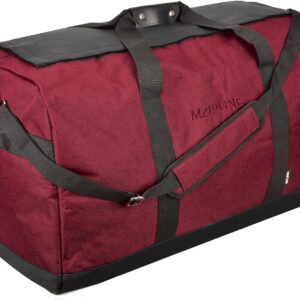
Smell Proof Duffle Bag,130L Foldable Travel Duffel Bag Large Scent Odor Proof Sport Gym Overnight Weekender Bag,Big Capacity Smell Proof Stash Travel Duffel Bag With Carbon Lining
$89.99
Buy Now
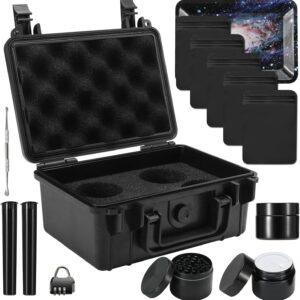
Smell Proof Stash Box Bag With Rich accessories Combination Lock Box File Organizer Case Container Lock Box Travel Storage Case Blocks Out Smells And Strong Odors Great Gift for Friends
$35.99 Original price was: $35.99.$25.99Current price is: $25.99.
Buy Now
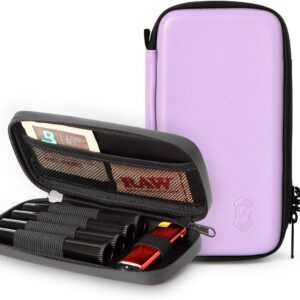
Smell Proof Storage Case with 4 Tubes, King Size Medicine Locking Bag Storage Container Fit in Pocket Great for Traveling Purple
$45.98 Original price was: $45.98.$16.99Current price is: $16.99.
Buy Now

Smell Proof Storage Pouch – Polyester Odor Resistant Container with Easy Grip Handle – Portable Storage Bag with Padded Lock – 3 Digit Combination Lock – Grey
$29.99 Original price was: $29.99.$27.99Current price is: $27.99.
Buy Now
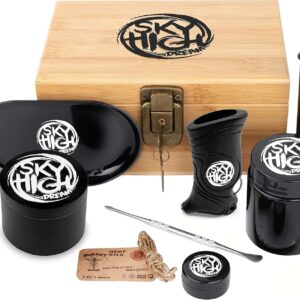
Smell Proof Wooden Storage Box with Lock and Key – Odorless Portable Storage Case for Accessories – Includes Lock and Key, Storage Jar and Tube, Tray, Resealable Bag, and More
$24.99
Buy Now
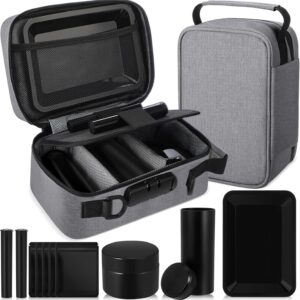
Smell resistant Bags with Combination Lock Storage Organization Container Tray, Jar, Tubes Seal Bags for Travel Gift for Men Women Home Storage Accessories(Gray)
$79.99 Original price was: $79.99.$23.99Current price is: $23.99.
Buy Now
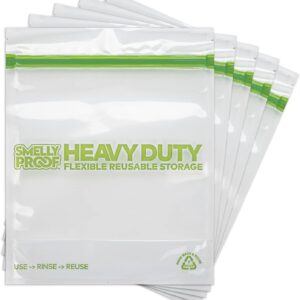
Smelly Proof HEAVY DUTY Reusable STAND-UP Ziplock Bags for Food Storage, USA Made, NO PEVA & BPA FREE, Reusable Freezer Bags, Dishwasher-Safe, Triple Zip, CLEAR 5-mils LRG Quart 8.5″ x 10″ – 5pk
$19.99 Original price was: $19.99.$13.49Current price is: $13.49.
Buy Now
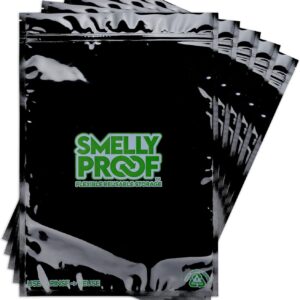
Smelly Proof Reusable Food Storage Container Bags, Reusable Freezer Bags US-Made BPA FREE, NO PEVA, 2 Gallon Bag, Easy Clean Dishwasher-Safe, NO SMELL Triple Zip BLACK 4 mils FLAT 12″ x 16″ – 5pk
$15.99
Buy Now
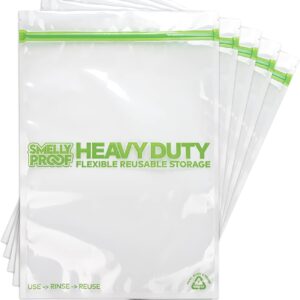
Smelly Proof REUSABLE STORAGE BAGS, Extra Large HEAVY DUTY 5-mils US-Made, BPA FREE, NO PEVA, Dishwasher-Safe Ziplock Reusable Freezer Bags Triple Zip CLEAR FLAT XXL 2-Gallon 12″ x 16″ – 5pk
$16.95
Buy Now
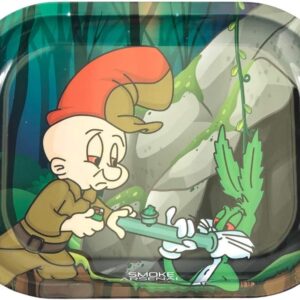
Smoke Arsenal Premium Rolling Tray”BudzBunny 2″ – 5.5″ x 7″
$12.74 Original price was: $12.74.$9.98Current price is: $9.98.
Buy Now

Smoke Arsenal Premium Rolling Tray”Dragonblunt” 5.5″ x 7″
$14.99
Buy Now

Smoke Arsenal Rolling Tray”Lola Bunny” 11 x 7
$14.98
Buy Now
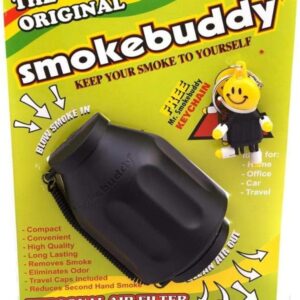
smokebuddy Smoke Buddy
$16.49
Buy Now
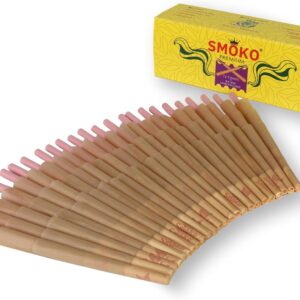
Smoko Premium Standard (84mm) Size Natural Pre-Rolled Rolling Paper – 72 Pack – Slow Burning Pre-Rolled Papers made of Natural Material with Tips & Packing Tubes Included.
$5.88
Buy Now
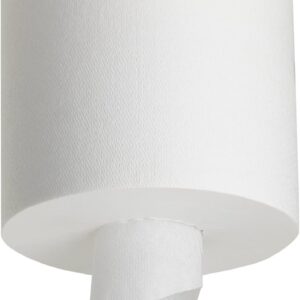
SofPull Centerpull Regular Capacity Premium Paper Towel, White, 28124, 324 Sheets Per Roll, 6 Rolls Per Case
$58.55 Original price was: $58.55.$54.99Current price is: $54.99.
Buy Now

Soil pH Meter, MS02 3-in-1 Soil Moisture/Light/pH Tester Gardening Tool Kits for Plant Care, Great for Garden, Lawn, Farm, Indoor & Outdoor Use (Green)
$9.99
Buy Now
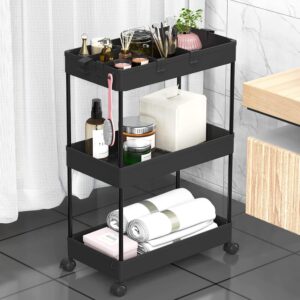
SPACELEAD 3 Tier Rolling Cart with Wheels, Storage Craft Art Trolley Organizer Serving, 3 Hanging Baskets Easy Assembly, for Office, Living Room, Kitchen, Black
$26.99 Original price was: $26.99.$19.99Current price is: $19.99.
Buy Now
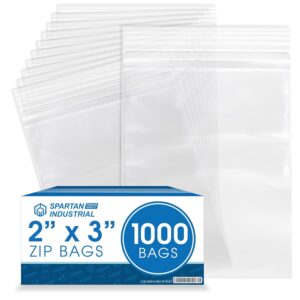
Spartan Industrial – 2” X 3” (1000 Count) 2 Mil Clear Reclosable Zip Plastic Poly Bags with Resealable Lock Seal Zipper
$16.00 Original price was: $16.00.$12.98Current price is: $12.98.
Buy Now

Spice Grinder
$9.99
Buy Now

Spice Grinder 3-in-1 Hand Crank Loader Roller Crusher Filler Flower Buds Milling Grinding Storage with Magnetic Lid
$22.88
Buy Now
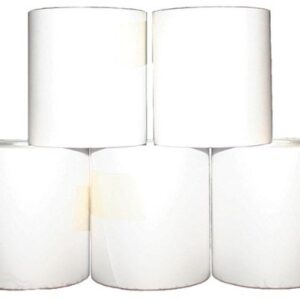
ST5730 Generic Paper Rolls – Steris Amsco Recording Paper P-129359-008/14230-650 (5 Pack)
$39.99 Original price was: $39.99.$27.31Current price is: $27.31.
Buy Now
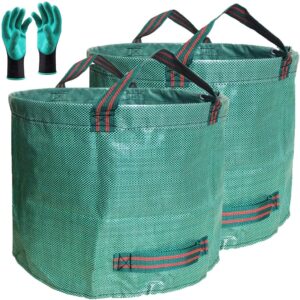
Standard 2-Pack 32 Gallon Yard Garden Bags (D18, H30 inch) with Gardening Gloves for Yard Waste,Debris Bags,Recycling Bin,Camping Trash Container,Laundry Bag,Lawn Grass Clippings,Leaf Bag w/ 4 Handles
$20.99 Original price was: $20.99.$19.99Current price is: $19.99.
Buy Now

Start Your Own Cannabis Business: Your Step-By-Step Guide to the Marijuana Industry (Startup)
$22.99 Original price was: $22.99.$20.69Current price is: $20.69.
Buy Now
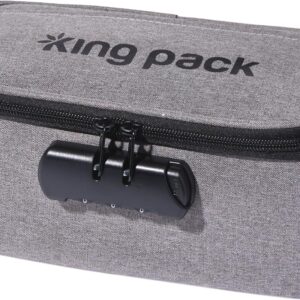
Stash Bag – Smell Proof Carrying Bag with Lock – Odor Free Container – Durable Construction With Lock – Secure and Stylish Storage for Home or Travel – Heather Gray – 9 ½” x 4 ½” x 4″
$12.99
Buy Now

Stash Box with Built in Combination Lock – Includes all Accessories – 2 Glass Jars, Rolling Tray – Wooden Stash Box with Lock – Matte Black
$52.99
Buy Now
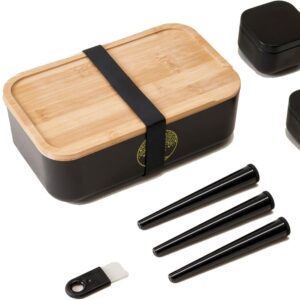
Stash Box with rolling tray – Air-Tight Storage Stash Box with Bamboo Tray – Portable Decorative Box for Herbs (8inch)
$124.99 Original price was: $124.99.$14.99Current price is: $14.99.
Buy Now
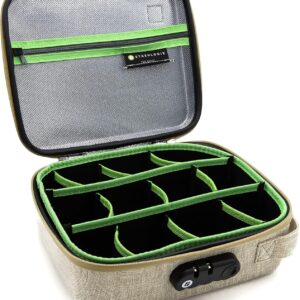
STASHLOGIX SMELL CONTROL BAG with Combination Lock Smell Free Storage Bag: The Silverton
$75.00 Original price was: $75.00.$48.99Current price is: $48.99.
Buy Now

Stoner Avenue Street Sign Vintage Rustic Retro 4×16 inch Tin Sign
$7.99 Original price was: $7.99.$6.99Current price is: $6.99.
Buy Now
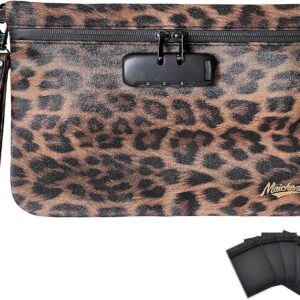
Storage Bag with Combination Lock 11″ x 7.5″ Money Cosmetic Organizer Medicine Lock Bag Travel Storage Case Pouch Great Christmas Gift for Women Leopard
$16.99
Buy Now
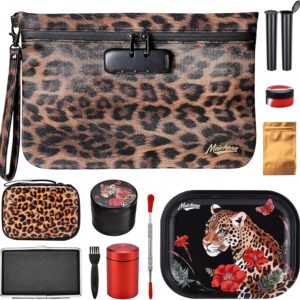
Storage Bag with Combination Lock and Accessories Travel Medicine Bag Container Money Cosmetic Organizer Great Christmas Gifts for Women Leopard
$37.99
Buy Now
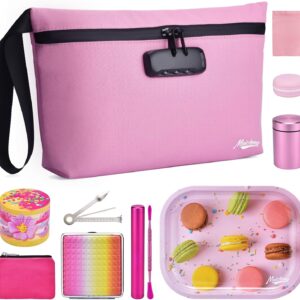
Storage Bag with Combination Lock Cosmetic Money Organizer Pouch Travel Medicine Lock Bag Case
$43.99 Original price was: $43.99.$37.69Current price is: $37.69.
Buy Now
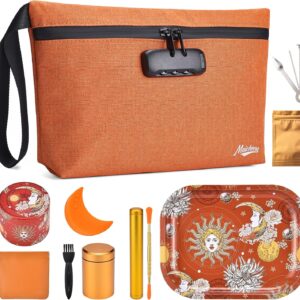
Storage Bag with Combination Lock Large Cosmetic Organizer Container Medicine Lock Case with Accessories
$37.89
Buy Now
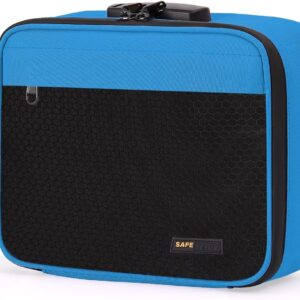
Storage Bag With Combination Lock, Carbon Lining Locking Storage Bag Lockable Organizer Cases Removable Dividers Water Resistant Zipper Great Choice for Travel (Blue)
$33.99 Original price was: $33.99.$23.69Current price is: $23.69.
Buy Now
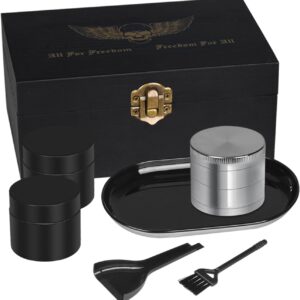
Storage Box with Buckle, Premium Wooden Stash Box Combo Kit with 2 Storage Jars, Tray Set, 5 Small Bags and Others Accessory -Gift Kit for Kitchen
$25.99 Original price was: $25.99.$21.99Current price is: $21.99.
Buy Now
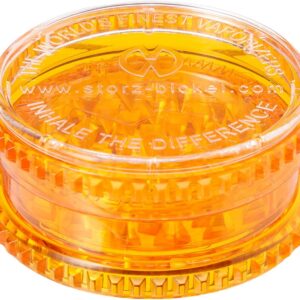
Stortz & Bickle Volcano Plastic Herb Grinder, 2.3, Orange
$9.88
Buy Now
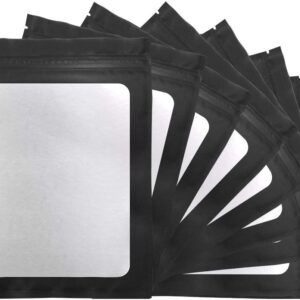
STUs 100 Pack Mylar Bags 5.5 x 7.9 Inch Resealable Smell Proof Bags with Clear Window Foil Pouch Bag Flat Bag Matte Black
$19.89
Buy Now
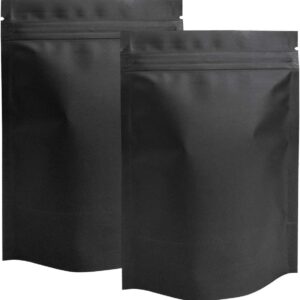
STUs 100 Pack Mylar Stand-Up Bags 5.5 x 7.9 Inch Smell Proof Bags Foil Pouch Double-Sided Mylar Bag Matte Black
$23.89
Buy Now
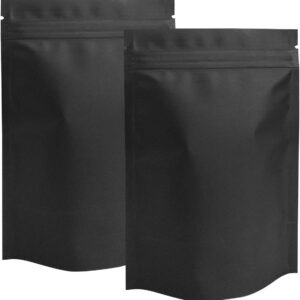
STUs 100 Pack Smell Proof Stand-Up Bags 4 x 6 Inch Resealable Mylar Bags Foil Pouch Double-Sided Bag Matte Black
$17.89
Buy Now

Sun Lunar Rolling Tray with Magnetic Lid, 7×5.5 – Small Whimsigoth Decorative Tray Cute – Ideal for Home& Travel, Celestial Aesthetic Metal Tray – Mystical Gifts for Spiritual Hippie, Astrology, Tarot
$11.99
Buy Now

Sun Moon Rolling Tray with Magnetic Lid, 11”x7” – Large Storage Decorative Tray – Ideal for Home & Travel, Celestial Aesthetic Metal Tray Set – Mystical Gifts for Spiritual Hippie, Astrology
$16.99
Buy Now
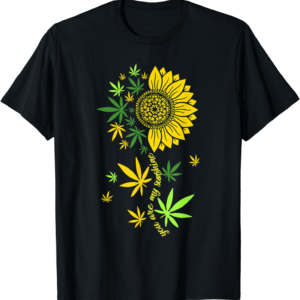
Sunflower Weed Leaf Marijuana Cannabis T-Shirt
$13.38
Buy Now

Sunset Vintage Marijuana Weed Cannabis Leaf St Patricks Day T-Shirt
$13.93
Buy Now
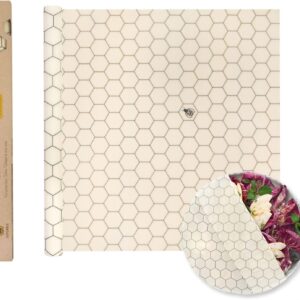
SUPERBEE Beeswax Wrap Roll XL, Reusable Beeswax Wrap for Food, Wrap Roll, Reusable Bees Wrap Paper for Wrapping Vegetables, Cheese Paper, Bowl Covers and Sandwich Wrapping Paper, Hexagonia – 35×13″
$16.99
Buy Now

Sweetcrispy Small Mobile Standing Desk, Rolling Laptop Computer Carts, Portable Laptop Desk with Wheels, Adjustable Height Table for Home Office, White
$69.98 Original price was: $69.98.$53.96Current price is: $53.96.
Buy Now

SYAIMN Unisex 3D Printed Shirts Funny Design Tees Colorful T-Shirts Summer Tops for Men Women
$14.99
Buy Now
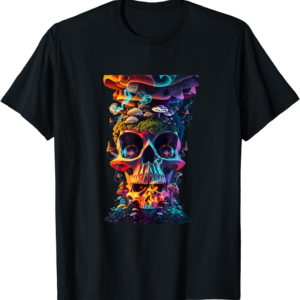
T-Shirt
$18.99
Buy Now
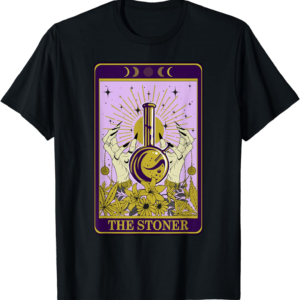
Tarot Card The Stoner Funny Cannabis Wiccan Marijuana T-Shirt
$15.99
Buy Now

Tarot Card The Stoner Weed Lover Skeleton Cannabis 420 T-Shirt
$16.99
Buy Now
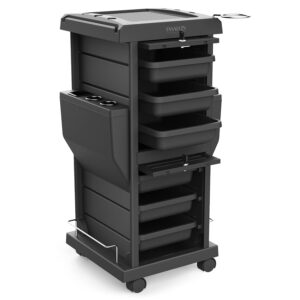
TASALON Ultimate Salon Station Cart 6 Lockable Trays & 2 Tray Holders
$129.99
Buy Now
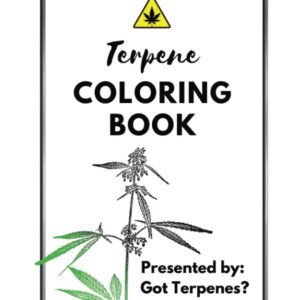
Terpene Coloring Book
$14.95
Buy Now

Terpenes for Well-Being: A Comprehensive Guide to Botanical Aromas for Emotional and Physical Self-Care (Natural Herbal Remedies Aromatherapy Guide)
$18.95 Original price was: $18.95.$16.69Current price is: $16.69.
Buy Now
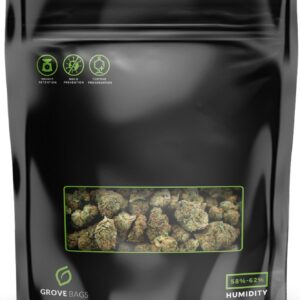
Terploc Curing Cultivation Pouch 8 Ounce (1/2 Lb) Single
$7.40
Buy Now
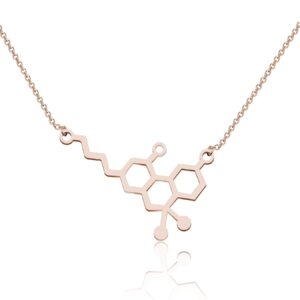
TGBJE THC Molecule Necklace CBD Molecule Necklace Pot Lovers Gift Cannabis Molecule Gift 420 Science Gift Chemistry Gift
$12.89
Buy Now
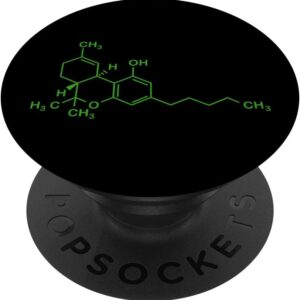
THC Molecule Marijuana Funny Cannabis Weed Stoner PopSockets Swappable PopGrip
$12.95
Buy Now
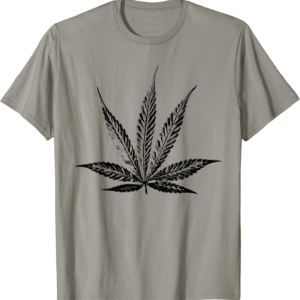
THC POT LEAF INK STAMP Cannabis Medical Marijuana T-Shirt
$16.99
Buy Now
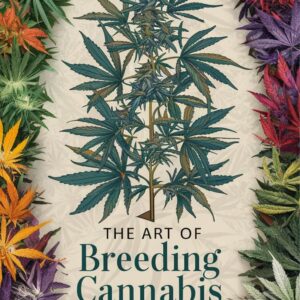
The Art Of Breeding Cannabis: Creating Unique Strains For Personal Use
$3.99
Buy Now
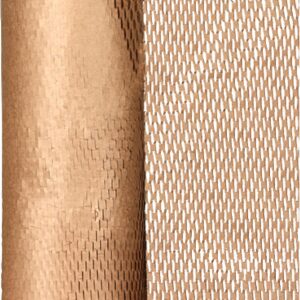
The Boxery Honeycomb Packing Paper 15”x16800” (1400’)-1 Roll Cushioning Wrap, Box Filler, Void Filling, Shipping & Moving Supplies, Alternative to Plastic Bubble|Eco Friendly-Small Business.
$69.50
Buy Now

The Boxery Kraft/Brown Kraft Paper Roll, 24” x 5520” (460’)-70lb. Thickness Extra-Heavy Duty Brown Wrapping Paper,Natural Kraft Packing Paper,Void Fill,Arts and Crafts,Bulletin Boards, Gift Wrapping
$37.95 Original price was: $37.95.$36.50Current price is: $36.50.
Buy Now

The Budtender’s Guide: A Reference Manual for Cannabis Consumers and Dispensary Professionals
$29.99
Buy Now
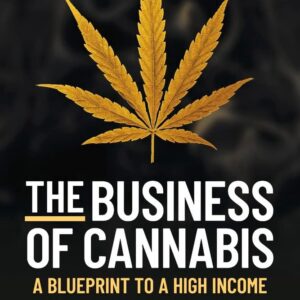
The Business of Cannabis: Blueprint To a High Income
$18.95
Buy Now
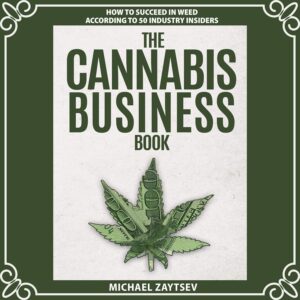
The Cannabis Business Book: How to Succeed in Weed According to 50 Industry Insiders
$0.00
Buy Now
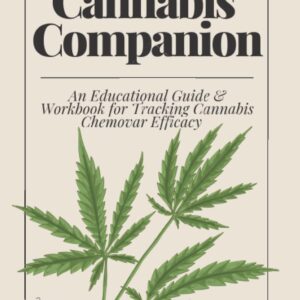
The Cannabis Companion: An Educational Guide & Workbook for Tracking Cannabis Chemovar Efficacy
$16.99
Buy Now
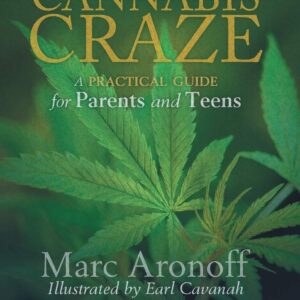
The Cannabis Craze: A Practical Guide for Parents and Teens
$16.99 Original price was: $16.99.$11.70Current price is: $11.70.
Buy Now
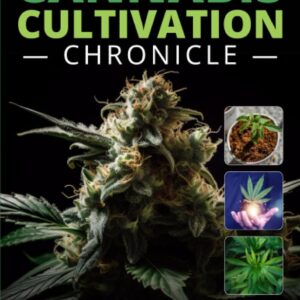
The Cannabis Cultivation Chronicle: Marijuana Growth Guide for Medicinal and Recreational Use
$15.99
Buy Now

The Cannabis Encyclopedia: Cannabis Sativa 101 Strains: The Marijuana Almanac: The Definitive Guide to Cannabis Sativa Strains for Cultivation and Consumption of Marijuana
$12.99
Buy Now

The Cannabis Encyclopedia: The Definitive Guide to Cultivation & Consumption of Medical Marijuana
$70.00 Original price was: $70.00.$50.38Current price is: $50.38.
Buy Now

The Cannabis Encyclopedia: The Definitive Guide to Cultivation & Consumption of Medical Marijuana
$50.00 Original price was: $50.00.$37.71Current price is: $37.71.
Buy Now
![The Cannabis Gardener: A Beginner's Guide to Growing Vibrant, Healthy Plants in Every Region [A Marijuana Gardening Book]](https://mscannabiz.com/wp-content/uploads/2024/05/91UELs73A6L._SL1500_-300x300.jpg)
The Cannabis Gardener: A Beginner’s Guide to Growing Vibrant, Healthy Plants in Every Region [A Marijuana Gardening Book]
$22.99 Original price was: $22.99.$15.45Current price is: $15.45.
Buy Now
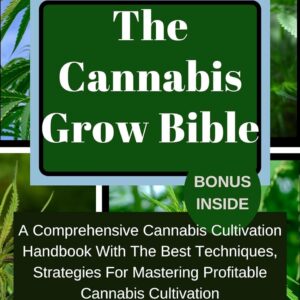
The Cannabis Grow Bible: A Comprehensive Cannabis Cultivation Handbook with the best Techniques, Strategies for Mastering Profitable Indoor and Outdoor Cannabis Cultivaton.
$9.99
Buy Now

The Cannabis Grow Bible: Growing Marijuana For Beginners How to Grow Marijuana Indoor & Outdoor, The Definitive Guide – Step by Step, Cannabis Strains
$19.89
Buy Now
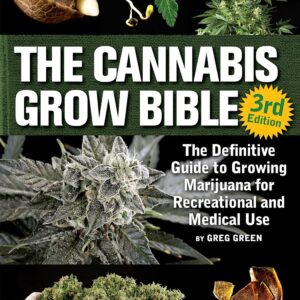
The Cannabis Grow Bible: The Definitive Guide to Growing Marijuana for Recreational and Medicinal Use
$40.00 Original price was: $40.00.$36.00Current price is: $36.00.
Buy Now

The Cannabis Grow Bible: The Indoor Horticultural Business of Cultivation for Chronic Pain, Anxiety and Medical / Recreational Use: 21st Century Cannabis
$0.00
Buy Now

The Cannabis Health Index: Combining the Science of Medical Marijuana with Mindfulness Techniques To Heal 100 Chronic Symptoms and Diseases
$24.50
Buy Now

The Cannabiz Owner’s Bible: Cultivating Leadership in Cannabis Retail
$5.99
Buy Now
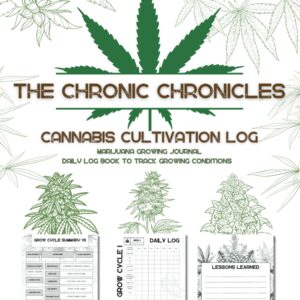
The Chronic Chronicles – Cannabis Cultivation Log: Marijuana Growing Journal -8.5 x 11 Daily Log Book to Track Grow Conditions
$8.99
Buy Now
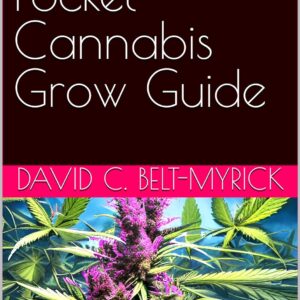
The Definitive Pocket Cannabis Grow Guide
$2.99
Buy Now
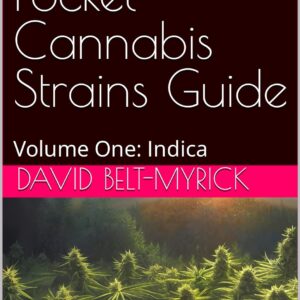
The Definitive Pocket Cannabis Strains Guide: Volume One: Indica
$2.99
Buy Now
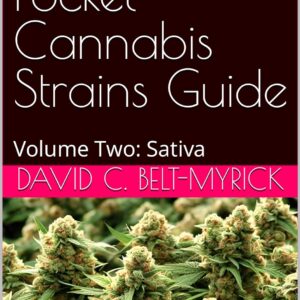
The Definitive Pocket Cannabis Strains Guide: Volume Two: Sativa
$2.99
Buy Now
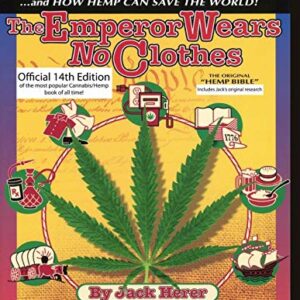
The Emperor Wears No Clothes: A History of Cannabis/Hemp/Marijuana
$34.95 Original price was: $34.95.$33.09Current price is: $33.09.
Buy Now
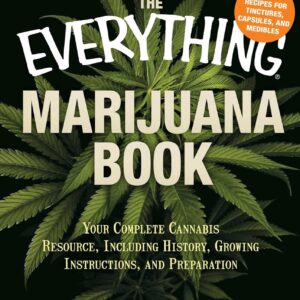
The Everything Marijuana Book: Your complete cannabis resource, including history, growing instructions, and preparation (Everything® Series)
$5.99
Buy Now

The God Of Cannabis: The Ultimate Cannabis Grow Guide: All Strains of Cannabis Cultivation Indoor/Outdoor Techniques
$4.99
Buy Now

The Gorilla Grower’s Guide: An Informative Handbook for Stealth Cannabis Cultivation: Cultivating Cannabis in the Shadows
$2.99
Buy Now

The Grow Journal
$9.99
Buy Now

The Handbook of Cannabis Therapeutics (Haworth Series in Integrative Healing)
$79.95
Buy Now
![The Herbal Remedies & Natural Medicine Bible: [5 in 1] The Ultimate Collection of Healing Herbs and Plants to Grow and Use for Tinctures, Essential Oils, Infusions, and Antibiotics](https://mscannabiz.com/wp-content/uploads/2024/05/71Fkk7grfXL._SL1293_-300x300.jpg)
The Herbal Remedies & Natural Medicine Bible: [5 in 1] The Ultimate Collection of Healing Herbs and Plants to Grow and Use for Tinctures, Essential Oils, Infusions, and Antibiotics
$24.97 Original price was: $24.97.$22.47Current price is: $22.47.
Buy Now

The Hydroponic Grower’s Handbook: – Cannabis Edition -: Everything You Need to Know (The Hydroponic Grower – Cannabis Edition Book 1)
$2.99
Buy Now
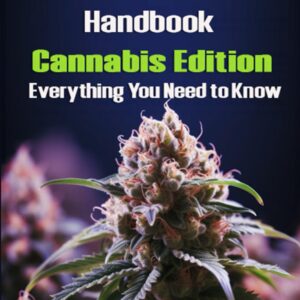
The Hydroponic Grower’s Handbook: – Cannabis Edition -: Everything You Need to Know (The Hydroponic Grower – Cannabis Edition)
$22.99
Buy Now
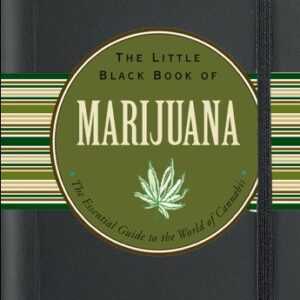
The Little Black Book of Marijuana: The Essential Guide to the World of Cannabis
$3.99
Buy Now
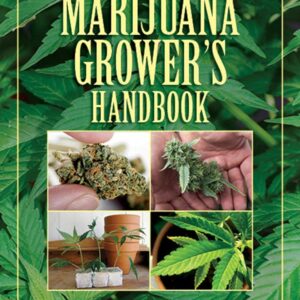
The Marijuana Grower’s Handbook: Practical Advice from an Expert
$16.99
Buy Now
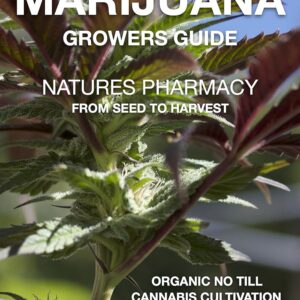
The Medical Marijuana Growers Guide. NATURES PHARMACY.: Organic no-till Cannabis Cultivation. From Seed To Harvest.
$9.85
Buy Now
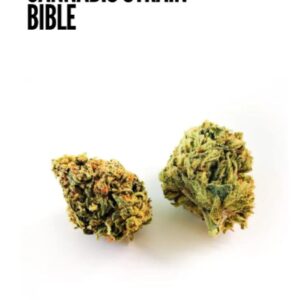
The New Sensational 2024 Cannabis Strain Bible: The Detailed Guide Book About Cannabis Strain
$11.99
Buy Now
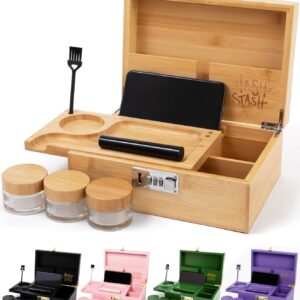
The OG Storage Box (Brown)
$79.00
Buy Now
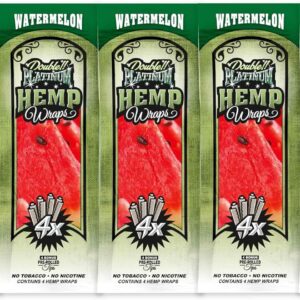
The Original Double Platinum Papers – Non GMO – 4 Sheets & Filters per Pack – 5 Pack – 20 Sheets total (Watermelon)
$8.99
Buy Now

The Reefertilizer Beginner’s Guide to Cannabis Cultivation: Learn the basics to home cultivation and grow healthier happy plants
$16.95
Buy Now

The Stoner Retro Style 420 Cannabis Weed Skeleton Tarot Card T-Shirt
$17.99
Buy Now
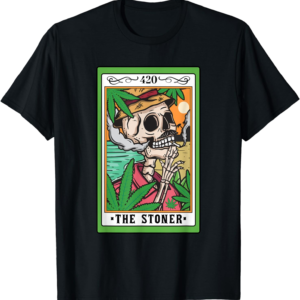
The Stoner Tarot Card Skeleton Cannabis Weed Lover Marijuana T-Shirt
$16.96
Buy Now
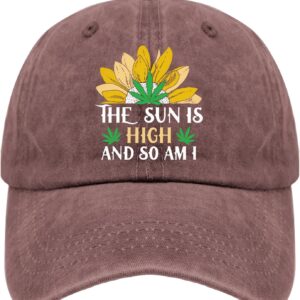
The Sun is High and So Am I Sunflower Cannabis Design Hats Mens Black Hat Pigment Black Baseball Hat Gifts for
$14.99
Buy Now

The Ultimate Cannabis Grow Journal
$9.99
Buy Now
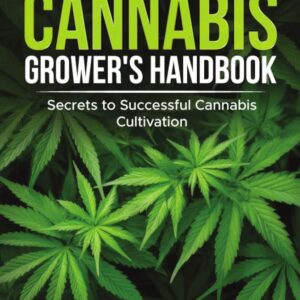
The Ultimate Cannabis Grower’s Handbook: Secrets to Successful Cannabis Cultivation
$9.99
Buy Now
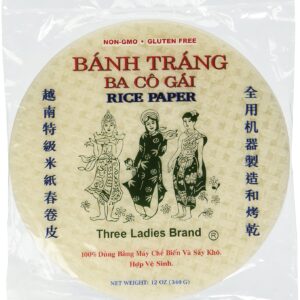
Three Ladies Brand Spring Roll Rice Paper Wrapper (2 Packs) Round, 22cm
$12.51
Buy Now
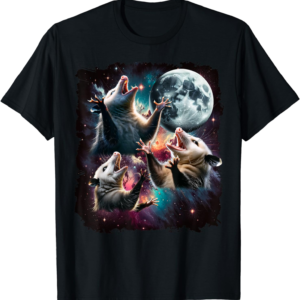
Three Opossum Moon | 3 Possum Moon Funny Weird Cursed Meme T-Shirt
$19.99
Buy Now

Throw Pillow Cover Green Bong Marijuana Kawaii Cartoon Pack Weed Smoke Leaf Pot Cannabis Decorative Throw Pillow Cushion Case for Home Couch Living Room Bed Sofa Car 18 x 18 Inch Pillowcase
$9.99
Buy Now

TIDI 618 Avalon Papers Chiro Headrest Roll, Fluid and Barrier Protection, Absorbent Crepe Paper, White, 8.5″ Width, 125′ Length, Pack of 25
$40.60
Buy Now

Tina TN Green Cannabis Leaf with 420 Numbers Unisex Adult Slouchy Beanie Skull Cap Cute Chemo Hat
$8.50
Buy Now
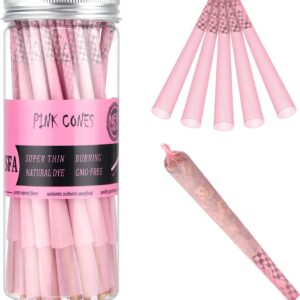
TISFA Pink Pre rolled Cones 60 Pack Rolling Papers King Size Rolling Cones with Packing Sticks
$8.59 Original price was: $8.59.$8.09Current price is: $8.09.
Buy Now
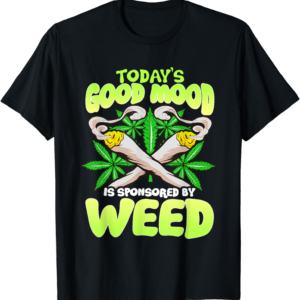
Today Good Mood Is Sponsored By Weed Cannabis Funny T-Shirt
$13.38
Buy Now

Toker Poker Lighter Case – Turquiose
$11.99 Original price was: $11.99.$9.99Current price is: $9.99.
Buy Now

TOMLOV DM602 Flex 2024 Digital Microscope, 10.1″ HDMI Soldering Microscope for Electronic Repair, 2K Coin Microscope with Ring Light,Adults LCD Video Microscope, Flexible Arm for PCB Watch+AM04
$389.98 Original price was: $389.98.$359.99Current price is: $359.99.
Buy Now

TOMLOV DM602 Flex 2024 Digital Microscope, 10.1″ HDMI Soldering Microscope for Electronic Repair, 2K Coin Microscope with Ring Light,Adults LCD Video Microscope, Flexible Arm for PCB Watch+BL01
$349.98 Original price was: $349.98.$319.99Current price is: $319.99.
Buy Now

TOMLOV DM602 Flex 2024 Digital Microscope, 10.1″ HDMI Soldering Microscope for Electronic Repair, 2K Coin Microscope with Ring Light,Adults LCD Video Microscope, Flexible Arm for PCB Watch+SP01
$329.98 Original price was: $329.98.$309.99Current price is: $309.99.
Buy Now
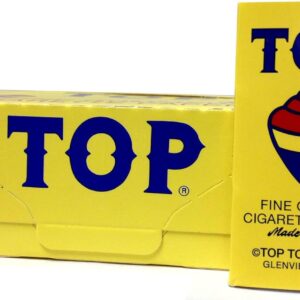
Top Cigarette Paper
$33.92
Buy Now
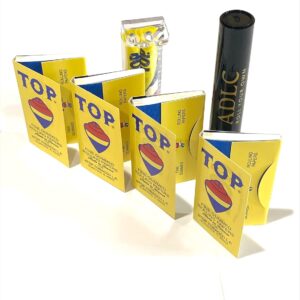
Top Cigarette Rolling Papers by DeLaCruzV (4 Packs) + Top Rolling Machine 70MM, Raw Black Clipper and Small DoobTube.
$13.99
Buy Now
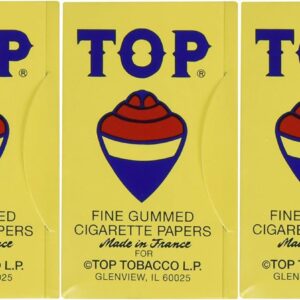
Top Cigarette Rolling Papers, 3 packs
$7.95 Original price was: $7.95.$6.79Current price is: $6.79.
Buy Now
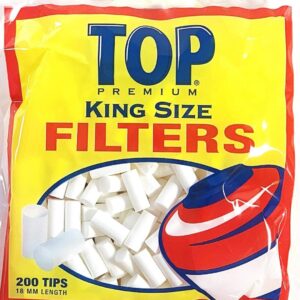
Top Premium Cigarette Filter Tips King Size 18mm 200 Pack
$6.09
Buy Now
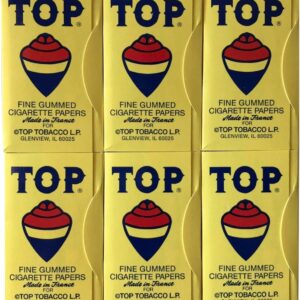
TOP Rolling Papers, 6 Pack Bundle, 600 Cigarette Paper Leaves Total
$11.79 Original price was: $11.79.$9.99Current price is: $9.99.
Buy Now
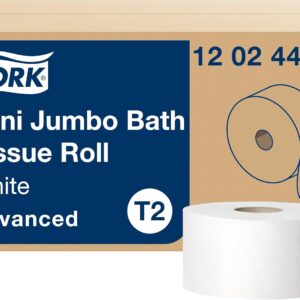
Tork Mini Jumbo Toilet Paper Roll White T2, Advanced, 2-Ply, 12 x 751′, 12024402
$68.00 Original price was: $68.00.$48.00Current price is: $48.00.
Buy Now

Tow Hitch Cover for 2″ Receiver Tow Truck Trailer SUV Heavy Duty Metal (Black/Silver) (Weed Leaf)
$29.99
Buy Now

Trendy Apparel Shop Rasta Marijuana Leaf Weed 3D Embroidered Flat Bill Snapback Cap
$24.99
Buy Now

Trendy Apparel Shop Skull Bandana Embroidered Snapback with Paisley Print Flatbill Cap
$24.99
Buy Now

Trendy Apparel Shop Tie Dye Printed Mesh Back Flat Bill Snapback Cap
$17.99
Buy Now

Trenz Shirt Company Weed Happy Face Marijuana Cannabis Men’s Mesh Back Trucker Hat Baseball Cap
$27.99
Buy Now

Trim-Daddy Trim Tray Bin | Trimming Pollen Sieve Sifter Trimmer Trays with 150 Micron Screen | Protective Cover | 2 Scissors | Magnifying Glass | Pollen Brush
$34.99
Buy Now

Trimming Tray for Buds, Ergonomic Design Trim Tray with 150 Micron Mesh Pollen Screen and Pollen Box, Herb Dry Sifter Trim Tray with Screen
$64.90 Original price was: $64.90.$39.99Current price is: $39.99.
Buy Now
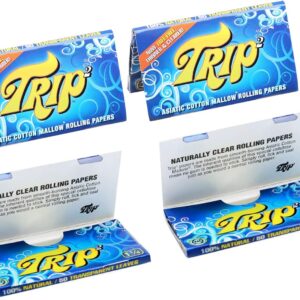
Trip Clear 1.25 Cigarette Rolling Papers, 4 Packs
$6.45
Buy Now

Trip2 {5 Packs} Trip 2 Clear 1 & 1/4 Rolling Papers
$29.99 Original price was: $29.99.$7.18Current price is: $7.18.
Buy Now
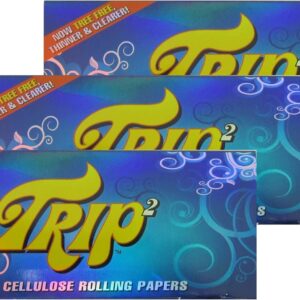
TRIP2 Clear Cellulose King Size Rolling Papers – 3 Packs!
$7.99 Original price was: $7.99.$7.03Current price is: $7.03.
Buy Now
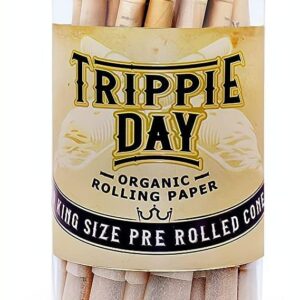
Trippie Day King size Pre Roll Cones, Smooth af | 50 Pack | Classic Pre Rolled papers with tips | Includes Packing Sticks
$5.99
Buy Now
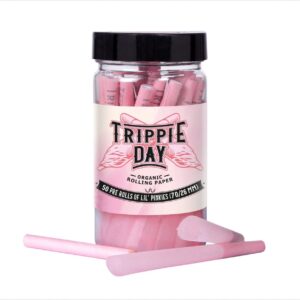
Trippie Day Lil’ Pinkies | 50 Pack | Single size Pre rolled cones (70/26mm) | Vegan & Non GMO | No chemical colors used | Puff Puff Puff
$8.99
Buy Now
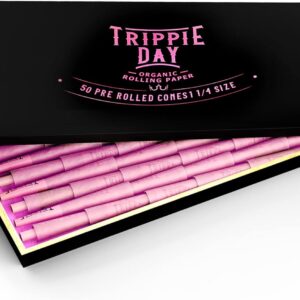
Trippie Day Pink 1/4 Size Pre Rolled Cones in an Eco friendly Box | Vegan & Non GMO | Includes 10 Packing Sticks | Pink 84mm
$9.99 Original price was: $9.99.$6.99Current price is: $6.99.
Buy Now
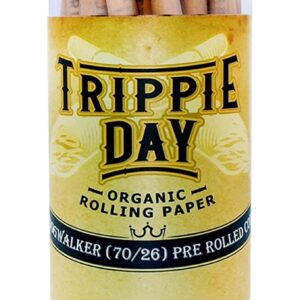
Trippie Day Single Size Dogwalker Pre Rolled Cones | 75 Pack | Classic Pre Rolled papers with tips | Includes Packing Sticks | (70/26 mm)
$9.99
Buy Now

Trippy Bucket Hat Colorful Hat Summer Travel Sun Hat Unisex Beach Hat Fisherman Hats
$17.99
Buy Now

True Classic Active Polo Shirts for Men, Premium Fitted Golf Shirts for Men. Mens Polo Shirts Short Sleeve.
$27.99
Buy Now

True Classic Active Polo Shirts for Men, Premium Fitted Golf Shirts for Men. Mens Polo Shirts Short Sleeve.
$34.99
Buy Now
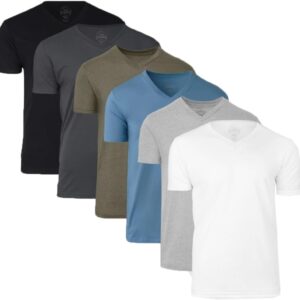
True Classic V Neck Mens T Shirt, Premium Fitted Soft Men’s T-Shirts
$99.99
Buy Now

True Classic V Neck Mens T Shirt, Premium Fitted Soft Men’s T-Shirts
$99.99
Buy Now
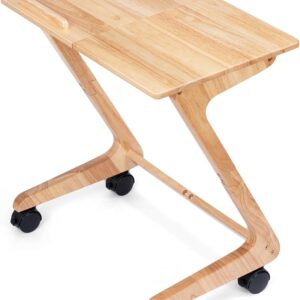
TV Tray Table, TV Dining Table with Casters for Small Spaces, Solid Wood End Table, Sofa Couch Side Table Removable Snack Tray for Coffee Bed Sofa Eating Writing Reading Living Room Bedroom
$64.99 Original price was: $64.99.$59.99Current price is: $59.99.
Buy Now
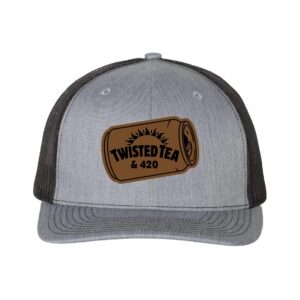
Twisted Teas and 420 Hat, Richardson Hat, Beer Hat, Marijuana Hat, Cannabis Cap, Richardson Cap, Richardson 112, Heather Grey Black
$20.99
Buy Now
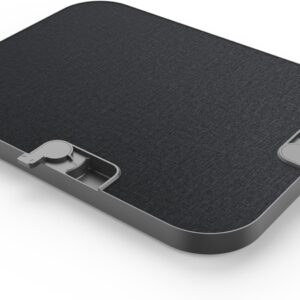
Two-Way Appliance Rolling Tray,16.9″x12.8″x0.9″ Sliding Tray with 8 Wheels Load 110LBS, Extra Large Appliance Slider for Heavy Duty Stand Mixer Air Fryer Coffee Maker and Blender
$31.99 Original price was: $31.99.$20.99Current price is: $20.99.
Buy Now
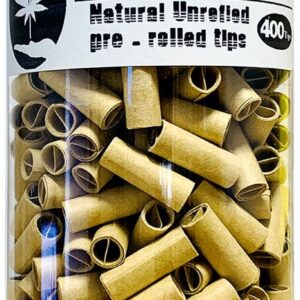
UBUNG | 400 Tips | Ø7mm Pre Rolled Tips | Unbleached Rolling Paper Joints | Suitable for Pre Rolled Cones Rolling Papers | Suitable for most Rolling Machine Filter Tips
$9.99
Buy Now
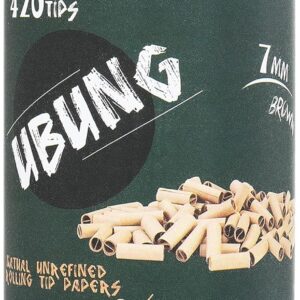
UBUNG | 420 Tips | Ø7mm Pre Rolled Tips | Filter Tips Made with Unbleached Paper | Suitable for Most Pre Roll Machine and Rolling Papers
$9.99
Buy Now
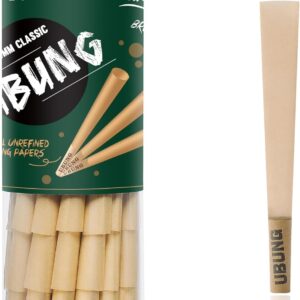
UBUNG 100 Pcs 11/4 Size Cones, Brown Pre Rolled Cones with Tips, 84mm Cones Rolling Papers with Tips
$11.99
Buy Now
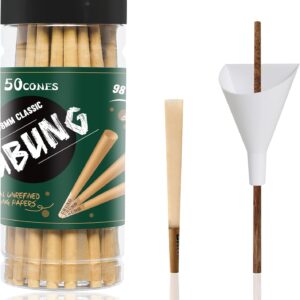
UBUNG 50 Pcs 98 Size Cones, Brown 98 Special Size Pre Rolled Cones With Tips Includes Loader Funnel And Push Rod, 98 mm Slow Type Brown Rolling Papers
$8.99
Buy Now
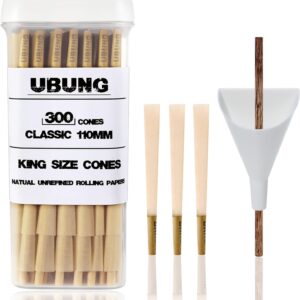
UBUNG Brown Cones, 300 Pcs King Size Brown Pre Rolled Cones With Tips, Slow Type Rolling Paper, Length 4.25 in / 108 mm, Including 1 Cone Loader And 1 Push Rod
$26.99
Buy Now

UBUNG CONES | 50 Pack | King Size Purple Pre Rolled Cones with Tips | 108mm Slow Type Purple Rolling Paper with Cone Loader
$9.99
Buy Now
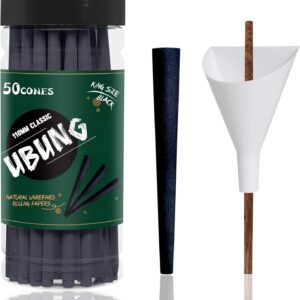
UBUNG King Size Black Pre Rolled Cones, 50 Pcs with Tips, 108mm Slow Type Black Rolling Papers, Includes Cone Loader and Push Rod
$9.99
Buy Now
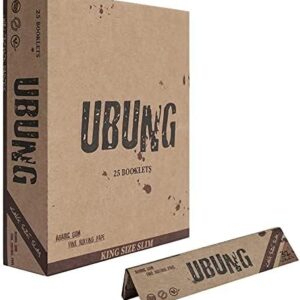
UBUNG King Size Rolling Papers, A total of 800 sheets of paper, 25 Booklets with 32 Papers per Booklet, 108 mm * 44 mm, Suitable for most Rolling Machine
$19.07 Original price was: $19.07.$8.99Current price is: $8.99.
Buy Now
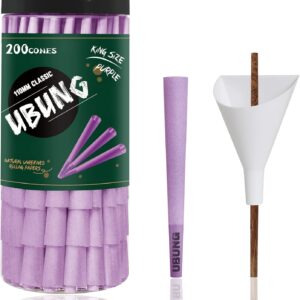
UBUNG Purple Cones, 200 Pcs King Size Purple Pre Rolled Cones with Tips, 108mm Slow Type Purple Rolling Papers, Including 1 Cone Loader And 1 Push Rod
$46.99 Original price was: $46.99.$18.99Current price is: $18.99.
Buy Now
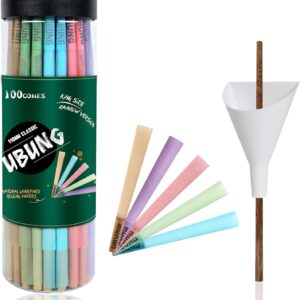
UBUNG Rainbow Cones 100 Pcs, King Size Colorful Pre Rolled Cones with Tips(5 Colors), 108mm Slow Type Rolling Papers, Including 1 Cone Loader And 1 Push Rod
$13.99
Buy Now
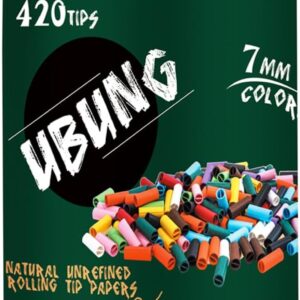
UBUNG Tips 420 Pack Ø7mm Pre Rolled Tips in 11 Colors | These Multiple Colored Filter Tips Are Suitable For Most Pre Roll Machine And Rolling Papers
$9.99
Buy Now
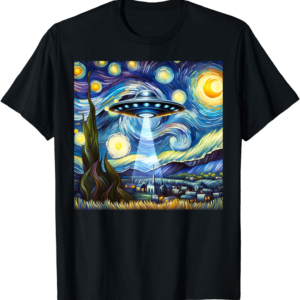
UFO Starry Night Alien Van Gogh Sky Painting Art UFO Alien T-Shirt
$19.99
Buy Now
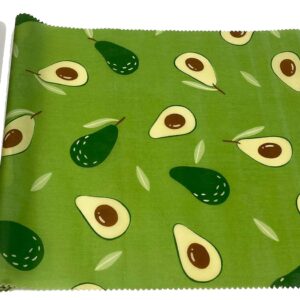
UGOS Organic Beeswax Food Wraps Roll – Reusable Bees Wax Paper Wrap (Green Avocado)
$14.99
Buy Now
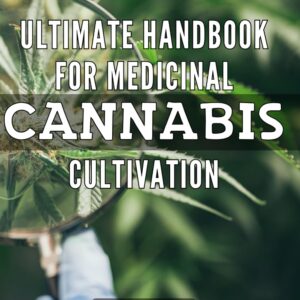
Ultimate Handbook for Medicinal Cannabis Cultivation: Master the Art of Growing Medicinal Cannabis: The Complete Guide for Cultivators and Enthusiasts
$12.95
Buy Now
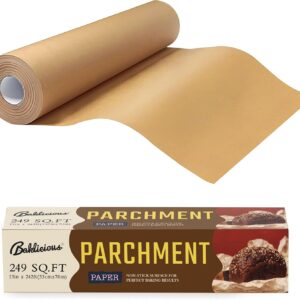
Unbleached Parchment Paper Roll for Baking, 13 in x 242 Ft, 249 Sq.Ft, Baklicious Non-stick Baking Parchment Paper for Baking, Cookies, Bread, Oven, Air Fryer, Steamer, Baking paper
$19.79
Buy Now
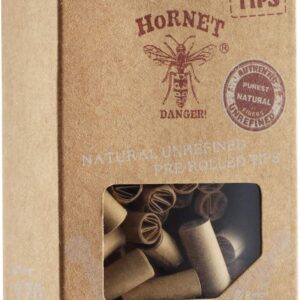
Unbleached Pre-Rolled Tips, Unrefined Filters, Ø8mm Slim Rolling Paper Tips (120 Tips)
$7.99 Original price was: $7.99.$6.98Current price is: $6.98.
Buy Now

Understanding the Basics of Cannabis Cultivation: Complete Quick Guide
$5.99
Buy Now

Uni-Sex Post Shoulder Surgery Shirt & Rehab Shirt with Stick On Fasteners, Convenient and Quick (X-Large, Black)
$27.99 Original price was: $27.99.$25.99Current price is: $25.99.
Buy Now
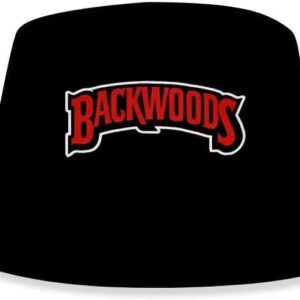
Unisex Backwoods Hats Sun Hats Hip Hop Hats Bucket Hats Fishermans Hats Summer Hats Outdoor Travel Beach
$10.99
Buy Now
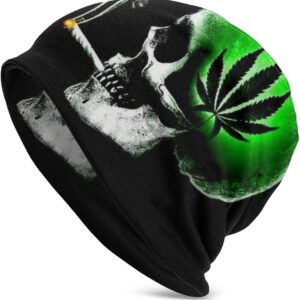
Unisex Beanie Caps 3D Green Marijuana Leaf Weed Smoking Skull Knit Hat Skull Cap Winter Summer Warm Womens Mens Hats
$10.99 Original price was: $10.99.$9.99Current price is: $9.99.
Buy Now

USmania Marijuana Cannabis Embroidered hat Washed Cap Cotton hat dad Cap dad hat
$15.95
Buy Now
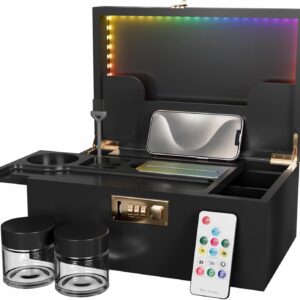
Usoway Bamboo Storage Box With Colored LED Lights – 358 Kinds Cool Light Effects, Premium Decorative Wooden Box With Combination Lock, Storage Box Set With Sliding Tray and Accessories (Black)
$69.99 Original price was: $69.99.$49.99Current price is: $49.99.
Buy Now
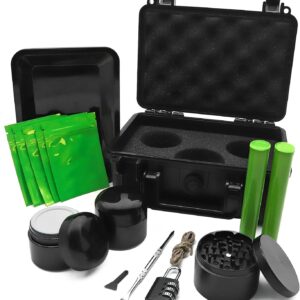
Vakuny Smell Proof Storage Box – ABS Plastic Storage Container with Lock – Portable Waterproof Box – Black Padded Storage Box – 14 Piece Accessories Kit Set Suit for Travel Gifts
$124.99 Original price was: $124.99.$29.99Current price is: $29.99.
Buy Now

Valentine’s Day Rolling Tray Set with One Accessories, Love Heart Metal Rolling Tray Combo Kit Ideal for Gifts, Easy to Carry
$15.99 Original price was: $15.99.$14.99Current price is: $14.99.
Buy Now
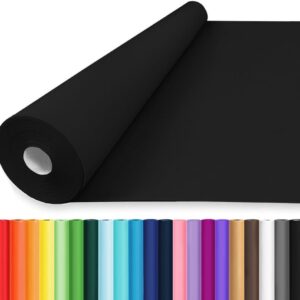
Vanhench 30″ x 2520″ (210′) Black Wrapping Paper, Solid Color Art Kraft Paper for Bouquet Flower Crafts Packing, Poster, Bulletin Board, Floor Covering & Table Runner
$34.99
Buy Now
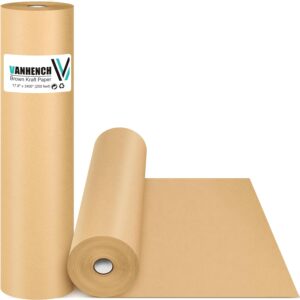
Vanhench Brown Large Kraft Paper Roll 17.8″x 2400″, Craft Paper Roll for Bulletin Board Kids Arts Crafts Packing Wrap Moving Shipping Poster Floor Covering Crafting Drawing Craft Table
$16.99
Buy Now

VATPAVE Mens Front Pocket Hawaiian Shirts Casual Floral Shirts Short Sleeve Button Down Beach Tropical Shirts
$25.99
Buy Now
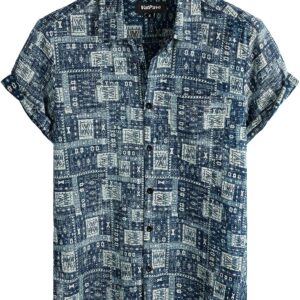
VATPAVE Mens Front Pocket Hawaiian Shirts Casual Floral Shirts Short Sleeve Button Down Beach Tropical Shirts
$25.99
Buy Now
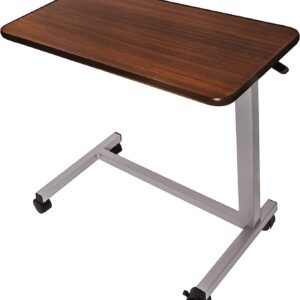
Vaunn Medical Adjustable Overbed Bedside Table With Wheels (Hospital and Home Use)
$99.98 Original price was: $99.98.$64.99Current price is: $64.99.
Buy Now

VEVOR Lab Cart, Stainless Steel Mayo Tray Stand 18 x 14 in Trolley Mayo Stand, Adjustable Height 32-51 in Instrument Tray with Removable Tray & 4 Omnidirectional Wheels, Ideal for Home Equipment
$59.99 Original price was: $59.99.$55.30Current price is: $55.30.
Buy Now
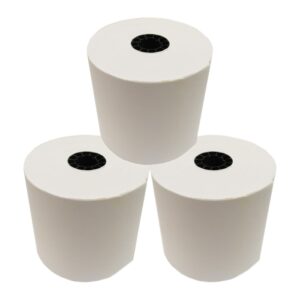
Victor Thermal Paper Roll For Printing Calculators & Cash Registers, 3 Pack, 165 ft (70803)
$9.97
Buy Now

Vin Scully Baseball Hall of Fame Broadcaster Men’s T-Shirt
$19.95
Buy Now
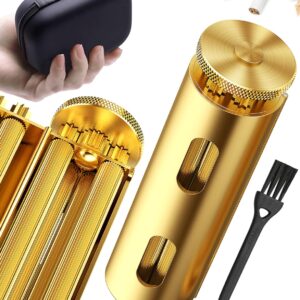
Vintage Cigarette Roller, Brass Cigarette Rolling Machine, Pure Copper Joint Roller Machine, Solid Brass Roller, Use with 70 mm Papers, Elegant and Luxurious Tobacco Roller for Men and Women
$29.98
Buy Now

Vintage Puzzles for Adults Cannabis and Into The Garden Jigsaw Puzzles Family Puzzle to Enjoy Adult Decompression Education Gift for DIY Intellective Educational Game Gift for Girls Boys 500 Pieces
$16.99
Buy Now
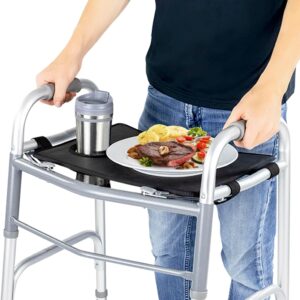
Vive Walker Tray for Folding Walker – (w/Cup Holder) – Adult Mobility Accessories – Fits Standard Walkers – Medical Table for Seniors Non Slip Mat for Food – Removable & Easy Assembly (Black)
$24.99
Buy Now

VIVOSUN 1-Pair 1/8 Inch Adjustable Grow Light Hanger, Heavy Duty Rope Hanger with Reinforced Metal Gears, 8Ft. Long and 150 lbs Weight Capacity Rope for Grow Light, Inline Fan, Filters
$7.99 Original price was: $7.99.$7.49Current price is: $7.49.
Buy Now
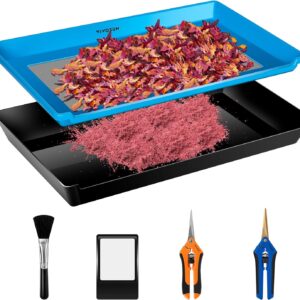
VIVOSUN Heavy Duty 2-in-1 Trimming Tray, Dry Sift Screen Set with 150 Micron Fine Mesh Screen and 2 Trimming Scissors, Blue
$64.99 Original price was: $64.99.$54.99Current price is: $54.99.
Buy Now
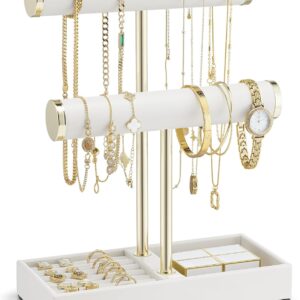
Vlando 2 Tier Bracelet Holder 0rganizer with Tray – Leather Jewelry Stand Organizer for Women – Jewelry Holder Display for Necklace, Watches, Rings, Earrings, Bangle, Scrunchie – White
$17.99
Buy Now
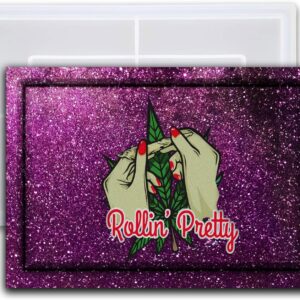
Vusnud Rolling Tray Resin Mold, Large Silicone Epoxy Resin Mold Tray, Epoxy Molds for Resin Casting
$49.99 Original price was: $49.99.$8.99Current price is: $8.99.
Buy Now

Vxchkerm Skull and Crossbones Baseball Cap for Men Women, Funny Adjustable Washed Denim Cotton Embroidered Skeleton Hat
$19.99 Original price was: $19.99.$17.99Current price is: $17.99.
Buy Now

Waking Up to Weed: How Cannabis Can Be Key to Feeling and Aging Better —A Guide to New Uses and Benefits of Marijuana for Your Body, Mind & Life
$17.95
Buy Now
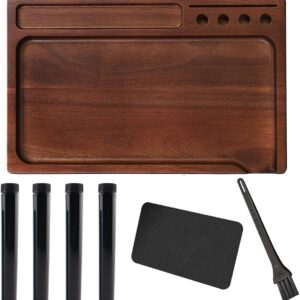
Walnut Rolling Tray 11″x7″ Tray Rolling Tray Set with Funnel *4, Cleaning Brush and Scoop Card – Accessories for Rolling Papers, Grinders – Tray with Smooth Rounded Edges
$59.99 Original price was: $59.99.$23.98Current price is: $23.98.
Buy Now

WARNING Behind This Door I may be GETTING HIGH – Enter At Yor Own Risk – Marijuana Cannabis Funny Metal Sign for garage, man cave ideas, yard stuff or wall. 420 blaze it friendly gift by Custom Kraze
$11.99
Buy Now
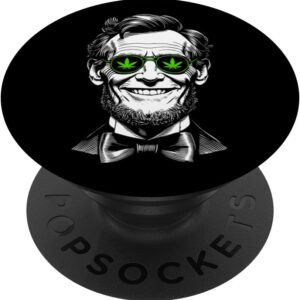
Weed Abraham Lincoln Funny 4th Of July 420 Stoner Marijuana PopSockets Standard PopGrip
$14.99
Buy Now

Weed Bear Herb Bear Don’t Care Funny Bear Marijuana Cannabis T-Shirt
$17.99
Buy Now

Weed Cannabis 420 Baseball Cap THC Healthcare Dad Hats for Women Graphic Denim Baseball Cap Adjustable
$13.99
Buy Now

Weed Cannabis 420 Bucket Hat Bucket Hat Packable Women Hat for Fishing Accessories for Travel Must Haves Wash Black
$16.99
Buy Now

Weed Cannabis Healthcare Medical THC Marijuana Stoner Gift T-Shirt
$15.90
Buy Now

Weed Emoji Phone Accessories for 420 Stoners and Potheads PopSockets Swappable PopGrip
$15.85
Buy Now

Weed Fairy Marijuana Fantasy Leaf Stoner Pot Smoker Cannabis T-Shirt
$14.99
Buy Now

Weed Funny Cannabis Marijuana Leaf Heartbeat Stoner Tie Dye T-Shirt
$13.38
Buy Now

Weed Heartbeat Marijuana Cannabis Men’s Mesh Back Trucker Hat Baseball Cap
$27.99
Buy Now

Weed Leaf Cannabis Boob T Shirt Cute Sexy
$14.99
Buy Now

Weed Leaf Heartbeat Marijuana Leaf Cannabis Heartbeat 420 T-Shirt
$13.98
Buy Now
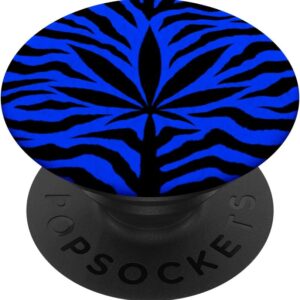
Weed Marijuana Accessories for Cannabis Stoner Blue Tiger PopSockets Swappable PopGrip
$14.99
Buy Now

Weed Octopus – Marihuana Kraken – Cannabis Accessories PopSockets Swappable PopGrip
$14.99
Buy Now

Weed Pot Leaf Marijuana Cannabis Men’s Mesh Back Trucker Hat Baseball Cap
$27.99
Buy Now

Weed Purple Stoner Marijuana Cannabis Pot Gift PopSockets PopGrip: Swappable Grip for Phones & Tablets
$14.95
Buy Now

Weed smoking caterpillar and Alice In Wonderland PopSockets PopGrip: Swappable Grip for Phones & Tablets
$14.99
Buy Now

Weed Smoking Turtle Turtley High THC CBD Marihuana Stoner PopSockets Swappable PopGrip
$14.99
Buy Now
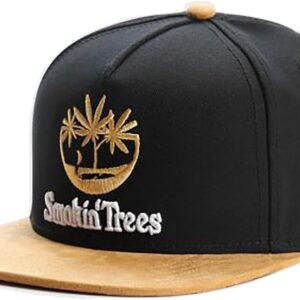
Weed Snapback Hat, Pot Leaf Hats, Marijuana Leaf Cap, Cannabis Flat Bill Baseball Caps, Weed Gifts for Stoners
$9.99
Buy Now
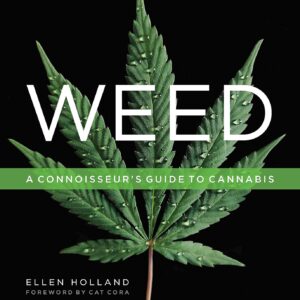
Weed: A Connoisseur’s Guide to Cannabis
$40.00 Original price was: $40.00.$28.03Current price is: $28.03.
Buy Now

Weed: Cannabis Culture in the Americas
$18.99 Original price was: $18.99.$11.70Current price is: $11.70.
Buy Now
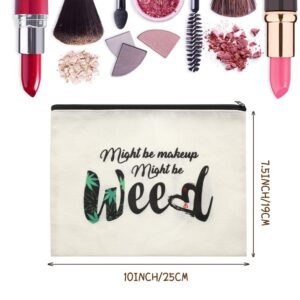
Weewooday 2 Pcs Leaf Makeup Bags Funny Might Be Makeup Might Be Weed Bag Cosmetic Zipper Purse Weed Gifts for Women Vacation Travel
$6.99 Original price was: $6.99.$5.99Current price is: $5.99.
Buy Now

WEIGHTMAN Digital Scale Gram, 200g/0.01g Pocket Scale Gold Titanium Plating, LCD Backlit Display, Mini Jewelry Scale with 6 Units, Auto Off, Tare Function for Food, Coins, Battery Included
$19.99 Original price was: $19.99.$9.99Current price is: $9.99.
Buy Now

What’s Wrong with My Marijuana Plant?: A Cannabis Grower’s Visual Guide to Easy Diagnosis and Organic Remedies
$19.99
Buy Now
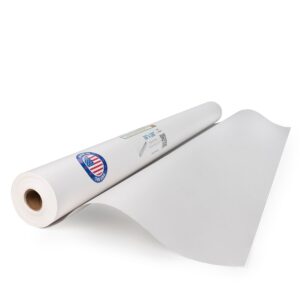
White Butcher Paper 36″ x 2160″ (180 feet) – Natural Butcher Paper Roll for Meat and Fish – Uncoated, Unwaxed & Food-Grade Material for Smoker, Grilling & BBQ by IDL Packaging
$39.95
Buy Now
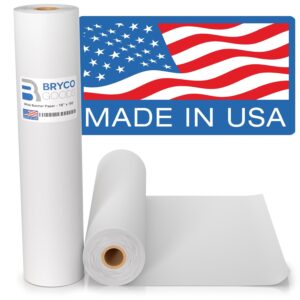
White Kraft Butcher Paper Roll – 18” x 150′ – Versatile & Durable – Ideal for Packaging, Grilling, Smoking Meat and BBQ – Unwaxed & Uncoated Butcher Paper for Sublimation – Made in USA
$14.97
Buy Now

White Kraft Paper Roll 15″x 590″ Wrapping Packing Paper Roll
$6.99
Buy Now
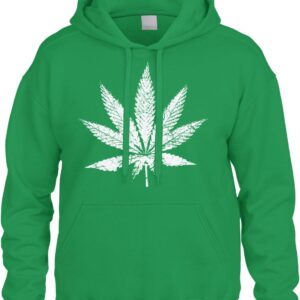
White Weed Marijuana Leaf Cannabis 420 Sweatshirt Hoodie Hoody
$27.95
Buy Now
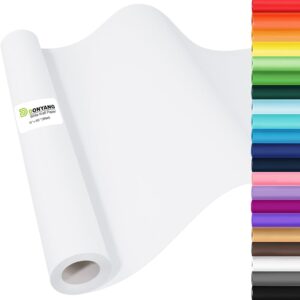
White Wrapping Paper Craft Paper Kraft Paper Roll 15″ x 450″, Bulletin Board Paper, Arts & Crafts, Gift Wrapping Packing Painting Drawing Paint Easel Poster Chart Decorative Paper, Kids Art Supplies
$6.99 Original price was: $6.99.$5.94Current price is: $5.94.
Buy Now
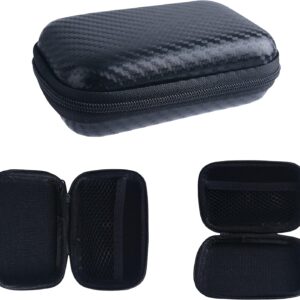
Wolfteeth Mini 4.7 inch Smell Proof Holder, Vapor Carrying Case, Small Travel Case, Black (Empty)
$14.99 Original price was: $14.99.$6.89Current price is: $6.89.
Buy Now

Women Plus Size Pride Shirts Gay Pride Mom Tshirt LGBT Equality tees Rainbow Flag Proud Ally Letter Print Tops(2-5X)
$19.99
Buy Now
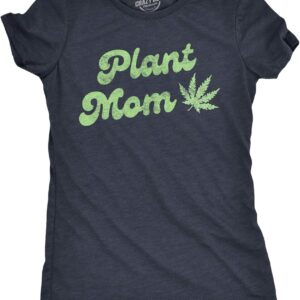
Womens Plant Mom Tshirt Funny 420 Marijauana High Cannabis Mothers Day Graphic Novelty Tee
$12.99
Buy Now

Wood Appliance Sliders with 360′ Wheels, Sliding Tray for Coffee Maker & Heavy Kitchen Appliances,Countertop Appliance slider for Kitchen Appliance, Premium Wood Rolling Tray,No Assemble (Wide-Large)
$45.99 Original price was: $45.99.$39.99Current price is: $39.99.
Buy Now
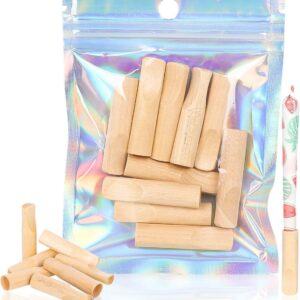
Wood Rolling Tips for Cigarette or Pre Rolling Cones (Total-10pcs, 8mm)
$5.99
Buy Now

Wooden Rolling Tray – 3 in 1 Folding Design Set with Magnetic Lid – Big & Small Trays + Removable Metal Tray – Portable Accessory Kit for Car, Travel & Home – Premium Acacia Wood
$59.99 Original price was: $59.99.$44.99Current price is: $44.99.
Buy Now
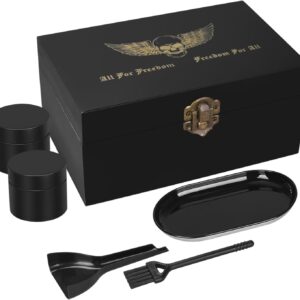
Wooden Storage Box with Rolling Tray – Decorative Box Set – Wooden Container with Buckle – Storage Wood Box and Accessories – Box Kit with 2 Storage Jars
$49.94 Original price was: $49.94.$17.99Current price is: $17.99.
Buy Now
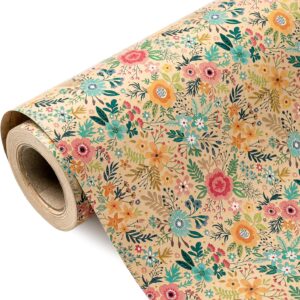
WRAPAHOLIC Kraft Floral Wrapping Paper Roll – Mini Roll – 17 Inch x 9.8 Feet – Spring Summer Garden Flower Design Perfect for Wedding, Bridal Shower, Birthday
$6.99
Buy Now
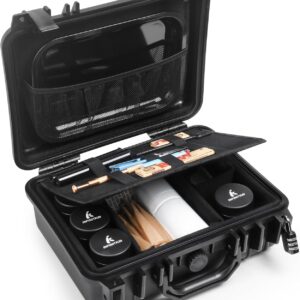
XL Smell Proof Box | Lockable Smell Proof Stash Box – Airtight, Waterproof & Crushproof for Home, Travel & Camping, Great Gift Choice
$68.99
Buy Now
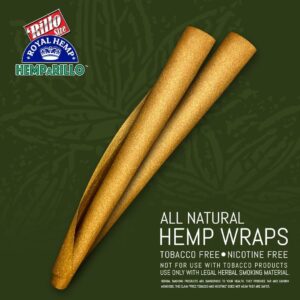
XXL Size Hemp Wraps 2 Count Per Sleeve Pack of 25 (Sour Apple)
$19.67
Buy Now

XYIYI Cute Bucket Hat Beach Fisherman Hats for Women, Reversible Double-Side-Wear
$14.92
Buy Now
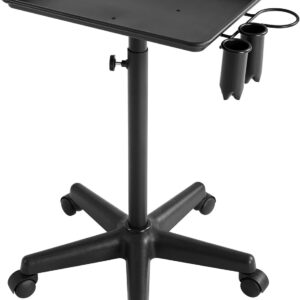
Yaheetech Rolling Salon Tray – Aluminum Trolley Cart Equipment on Wheels & Adjustable Height Mobile Beauty Salon Spa Stools Service Instrument Storage Tray w/Accessory Caddy – Black
$49.79 Original price was: $49.79.$49.49Current price is: $49.49.
Buy Now
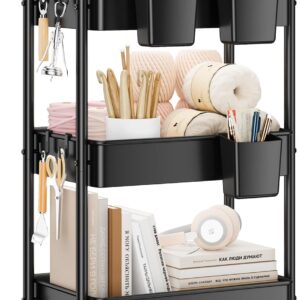
YASONIC 3 Tier Rolling Cart – Metal Utility Cart with Wheels, Hanging Cups, Hooks, Heavy Duty Mesh Rolling Storage Cart Organizer, Craft Cart for Kitchen Office, Lightweight and Sturdy
$36.96 Original price was: $36.96.$30.99Current price is: $30.99.
Buy Now

Yep I Talk To Chickens Shirt | Cute Chicken Buffs Tee Gift T-Shirt
$21.99
Buy Now
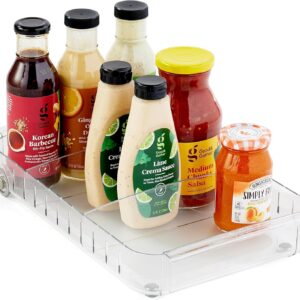
YouCopia RollOut Fridge Caddy BPA-Free Clear Rolling Refrigerator Organizer Bin with Adjustable Dividers and Handles, 9″ Wide
$29.99 Original price was: $29.99.$19.99Current price is: $19.99.
Buy Now

YRYM HT White Kraft Butcher Paper Roll -18 inch x 2100 inch (176 ft) Food Grade White Wrapping Paper for Meats of All Varieties – Unbleached Unwaxed and Uncoated
$17.99
Buy Now
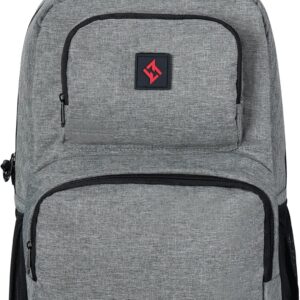
zazzy Smell Proof Backpack with Lock Carbon Fiber Backpack with Combination Lock Odor Proof Bags Travel Backpack for Men & Women
$40.99
Buy Now
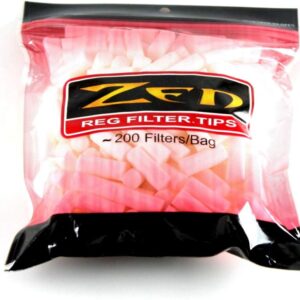
Zen Cigarette Filter Tips Bundle – 5 Bags – 1000 Filter Tips – Regular
$9.26
Buy Now
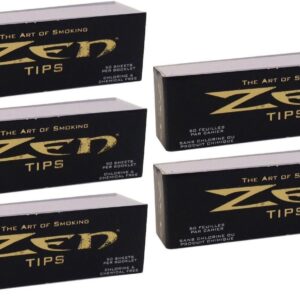
Zen Roll Your Own Cigarette Paper Filter Rolling Tips (5)
$22.99 Original price was: $22.99.$5.35Current price is: $5.35.
Buy Now
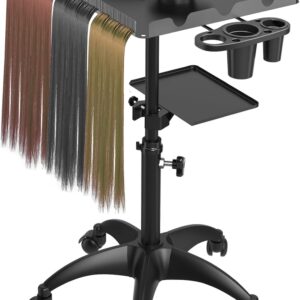
ZHOOGE Hairstylist Rolling Cart, Salon Trolley With Storage Platform and Hair Separator Stand, Coloring Tray With Dye Bowls and Tools, Black
$49.98
Buy Now
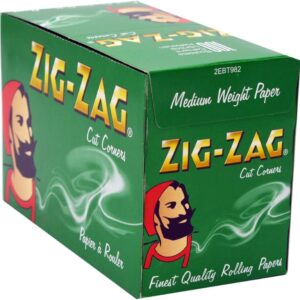
Zig Zag Green Box of 100 Rolling Paper Books
$25.35
Buy Now

Zig Zag Ultra Thin Cigarette Rolling Papers, 1 1/2 Sizes, 3pk
$14.47
Buy Now
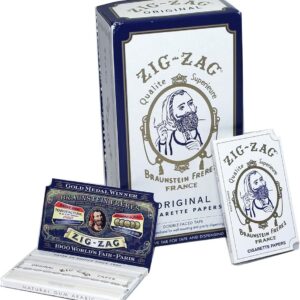
Zig Zag White Single Wide Rolling Papers (32 Leaves per Book) 24pk Display
$62.32
Buy Now
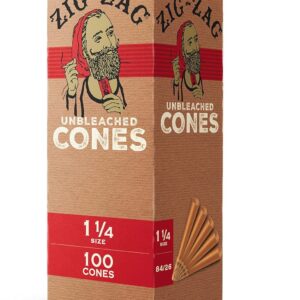
ZIG-ZAG 1 ¼-Inch Pre Rolled Cones – 100 Pack – Natural Unbleached Rolling Papers – Easy to Use & Convenient Bulk Pack- prerolled
$19.99 Original price was: $19.99.$18.99Current price is: $18.99.
Buy Now
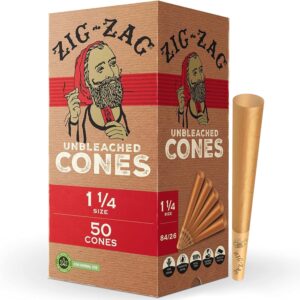
ZIG-ZAG 1 ¼-Inch Pre Rolled Cones – 50 Pack – Natural Unbleached Rolling Papers – Easy to Use & Convenient Bulk Pack- prerolled
$9.99
Buy Now
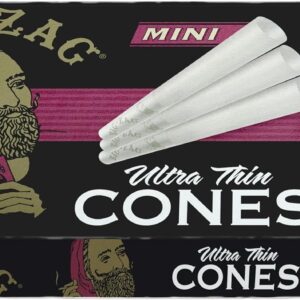
Zig-Zag 70mm Ultra Thin Pre Rolled Cones – 24 Pack Box | Premium Quality | Slow Burn | Easy to Fill | Versatile Rolling Papers | 24 Rolling Papers
$6.92
Buy Now
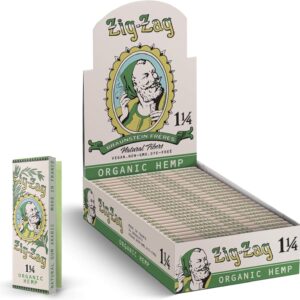
ZIG-ZAG Hemp Rolling Papers 1¼ – Limited Edition Vintage (24 Booklets) – 32 Sheets Each
$24.99
Buy Now
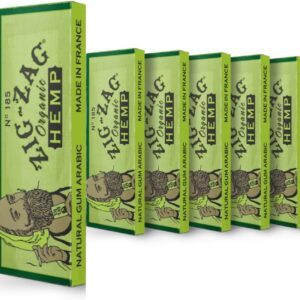
ZIG-ZAG Hemp Rolling Papers 1¼ Size (6 Bookets) – 32 Sheets Each
$9.84
Buy Now

ZIG-ZAG Hemp Rolling Papers King Size (24 Booklets) – 32 Sheets Each
$28.99
Buy Now

ZIG-ZAG Hemp Rolling Papers King Size (6 Booklets) – 32 Sheets Each
$9.99
Buy Now

ZIG-ZAG Hemp Wraps 25-Pack – Natural (2 Wraps Per Pack) 100% Natural, Slow-Burning Hemp Wraps
$16.99
Buy Now

ZIG-ZAG Hemp Wraps 6-Pack – Island Vibes (2 Wraps Per Pack) 100% Natural, Slow-Burning Hemp Wraps
$6.99
Buy Now

ZIG-ZAG King Size Pre Rolled Cones – 75 Pack – Natural Unbleached Rolling Papers – Easy to Use & Convenient Bulk Pack – Prerolled
$9.99
Buy Now

Zig-Zag King Size Rolling Papers – Original Premium, Slow Even Burn, Consistent Seal – 6 Booklets (32 Sheets/Booklet)
$9.99
Buy Now
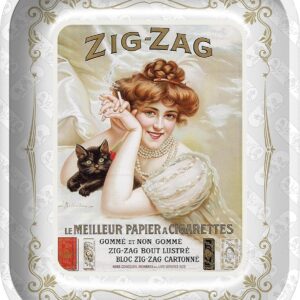
ZIG-ZAG Large Metal Rolling Tray – Vintage White – Elegant Design, Sleek Finish, Smooth Rounded Corners
$12.94
Buy Now
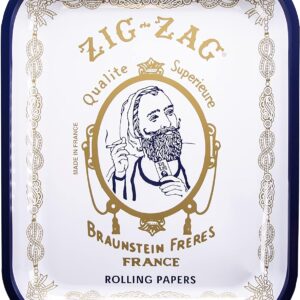
ZIG-ZAG Large Metal Rolling Tray – White, 13.4″ x 10.8″ – Durable and Stylish
$10.74
Buy Now

Zig-Zag Mini Palm Rolls (5 Pack) – Blueberry Flavor – Natural Pre Wrap Palm Leafs Pre Rolled Cones – Palm Cones
$6.49
Buy Now

ZIG-ZAG Pre Rolled Cones – King Size, Natural Unbleached – Bulk Pack of 100 – Easy & Convenient – Prerolled
$19.99
Buy Now

ZIG-ZAG Pre Rolled Cones – King Size, Natural Unbleached – Bulk Pack of 50 – Easy & Convenient – Prerolled
$9.99
Buy Now

ZIG-ZAG Pre Rolled Cones – Ultra Thin Cones 1 1/4 Size – 24 Cones
$6.94
Buy Now

ZIG-ZAG Pre Rolled Cones – Ultra Thin Cones 1 1/4 Size – 24 Pack (6 Cones Per Pack) 144 Cones
$28.99 Original price was: $28.99.$24.20Current price is: $24.20.
Buy Now

ZIG-ZAG Rolling Paper Combo Unbleached – 1 1/4 Size – 24 Pack (50 Sheets & Tips) – Slow Burning Rolling Papers with Filter Tips
$25.99
Buy Now

ZIG-ZAG Rolling Paper Combo Unbleached – 1 1/4 Size – 5 Pack (50 Sheets & Tips) – Slow Burning Rolling Papers with Filter Tips
$8.99
Buy Now

ZIG-ZAG Rolling Paper Hemp Combo – 1 1/4 Size – 24 Pack (50 Sheets & Tips) – Slow Burning Hemp Rolling Papers with Filter Tips
$25.99
Buy Now

ZIG-ZAG Rolling Paper Hemp Combo – 1 1/4 Size – 5 Pack (50 Sheets & Tips) – Slow Burning Hemp Rolling Papers with Filter Tips
$8.99
Buy Now
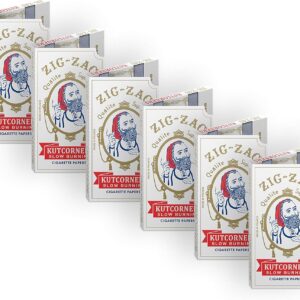
ZIG-ZAG Rolling Papers – Original Kutcorner – 70mm – Easy to Use – Natural Gum Arabic – Slow Burning (6 Pack)
$9.99
Buy Now
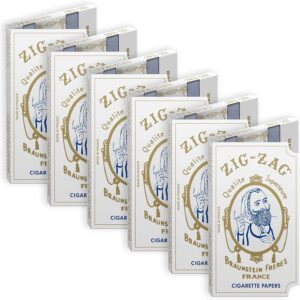
ZIG-ZAG Rolling Papers – Original White 70 mm Paper – Natural Gum Arabic – Thin Glue Sealing Line – 6 Booklets with 32 Papers per Booklet,32 Count (Pack of 6)
$12.99 Original price was: $12.99.$9.99Current price is: $9.99.
Buy Now
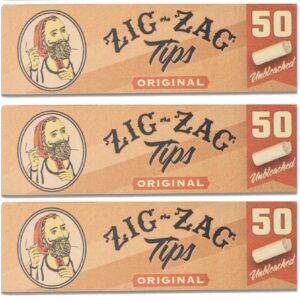
Zig-Zag Rolling Papers – Unbleached Filter Tips – Original Size – 5 Pack (50 Tips/Pack)
$3.99
Buy Now
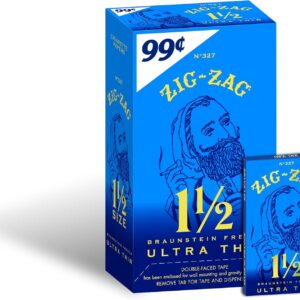
ZIG-ZAG Rolling Papers 1 ½ Ultra Thin Blue (24 Booklets) – 32 Sheets Each (Pre-Priced at $0.99 Each)
$24.99
Buy Now
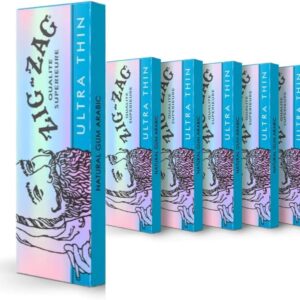
ZIG-ZAG Rolling Papers 1 ¼ Ultra-Thin (6 Booklets) – 32 Sheets Each – Slow Burning Rolling Papers
$9.99
Buy Now
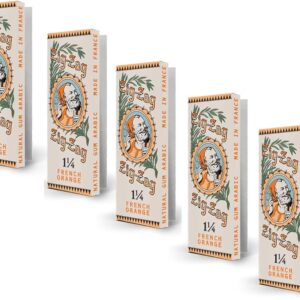
ZIG-ZAG Rolling Papers 1¼ French Orange – Limited Edition Vintage (5 Booklets) – 32 Papers Each
$9.99
Buy Now
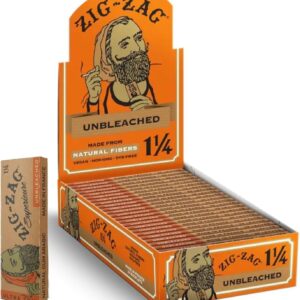
ZIG-ZAG Rolling Papers 1¼ Unbleached (24 Booklets) – 32 Sheets Each
$28.99
Buy Now
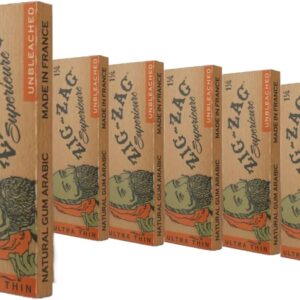
ZIG-ZAG Rolling Papers 1¼ Unbleached (6 Booklets) – 50 Sheets Each
$8.99
Buy Now
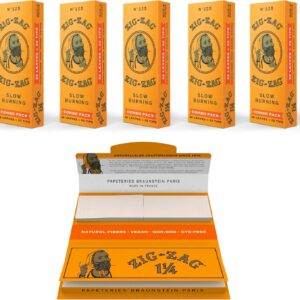
ZIG-ZAG Rolling Papers Combo – French Orange 1 1/4 (5 Booklets) – 32 Sheets Each & Tips
$8.99
Buy Now
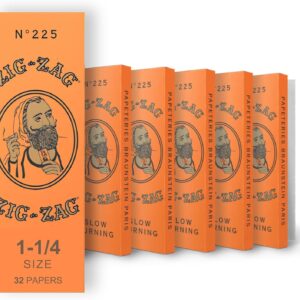
ZIG-ZAG Rolling Papers French Orange 1 1/4 ( 6 Booklets)
$13.99 Original price was: $13.99.$8.94Current price is: $8.94.
Buy Now
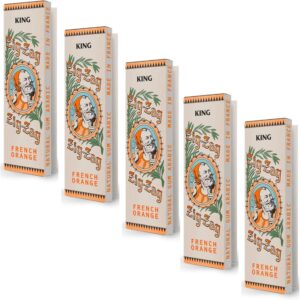
ZIG-ZAG Rolling Papers King Size French Orange – Limited Edition Vintage (5 Booklets) – 32 Papers Each
$9.99
Buy Now
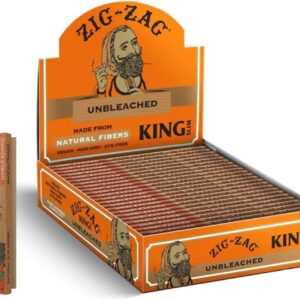
ZIG-ZAG Rolling Papers King Size Unbleached (24 Booklets) – 32 Sheets Each
$27.55
Buy Now

ZIG-ZAG Rolling Papers Kutcorners – Limited Edition Vintage (5 Booklets) 70MM – Premium Rolling Papers
$9.99
Buy Now

ZIG-ZAG Rolling Papers Original White – Limited Edition Vintage (5 Booklets) 70MM – Premium Rolling Papers
$9.99
Buy Now
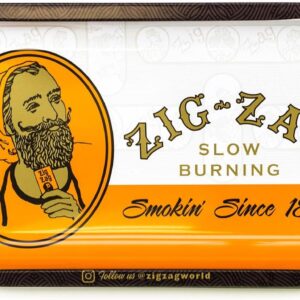
Zig-Zag Small Metal Rolling Tray – Classic Design, 10.75″ x 6.5″ – Perfect for Enthusiasts
$9.47 Original price was: $9.47.$6.99Current price is: $6.99.
Buy Now
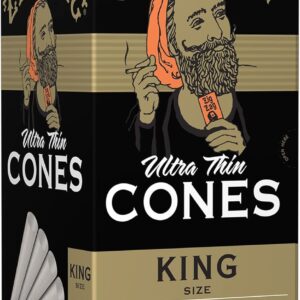
Zig-Zag Ultra Thin Pre Rolled Cones, King Size, Bulk Pack of 800, Easy to Fill, Prerolled
$73.79
Buy Now
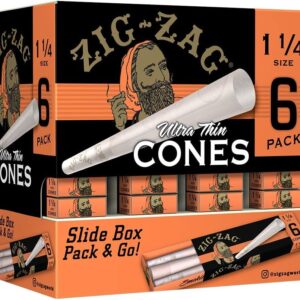
Zig-Zag Ultra Thin Pre Rolled Paper Cones, 1 1/4 Size, 36 Packs (6 Cones Each), Prerolled
$41.99
Buy Now
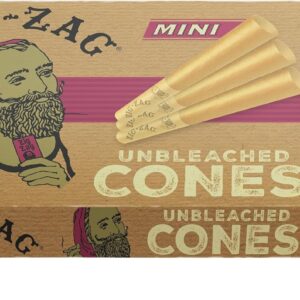
Zig-Zag Unbleached Pre Rolled Cones – 70mm, 24 Pack Box & Bulk Carton (288 Cones) | Premium Quality, Slow Burn, Easy Fill | prerolled
$6.94
Buy Now
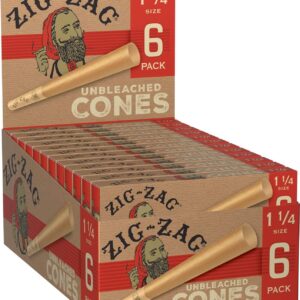
Zig-Zag Unbleached Pre Rolled Paper Cones – 1 1/4 Size (84mm) – 24 Packs of 6 (144 Total Cones) – Prerolled
$27.79
Buy Now
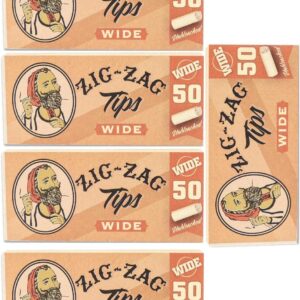
Zig-Zag Unbleached Rolling Paper Tips – Wide Size, Natural Fiber, 5 Pack (50 Tips Each)
$3.99
Buy Now
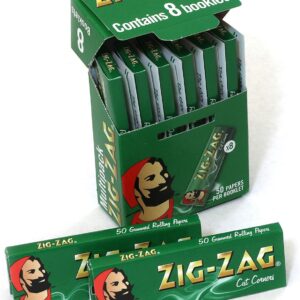
ZIG-ZAG, 8 booklets x Green Cut Corners Regular Size 70mm Multipack of Papers
$9.93
Buy Now
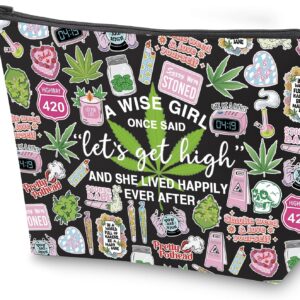
ZJXHPO Funny Marijuana Weed Leaf Makeup Cosmetic Bag Let’s Get High Makeup Bag Weed Gift 420 Gift (BL Let’s get high)
$12.99
Buy Now
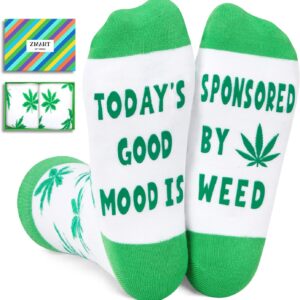
Zmart Funny Gifts Plant Succulent Sunflower Pot Leaf Yoga Lovers, Novelty Plant Succulent Sunflower Pot Leaf Yoga Socks
$9.99
Buy Now
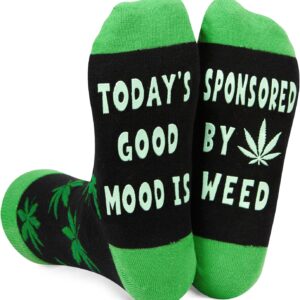
Zmart Funny Weed Gift For Men Women, Marijuana Gift Cannabis Gifts 420 Gifts For Stoners Pot Leaf Gift, Weed Socks Marijuana Socks Pot Leaf Socks
$11.99 Original price was: $11.99.$9.99Current price is: $9.99.
Buy Now
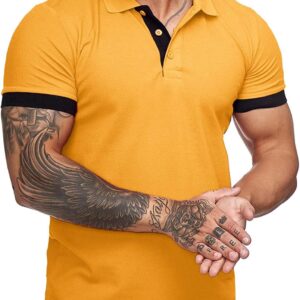
Zuoyouzi Men’s Short Sleeve Casual Slim Fit Polo Shirts Basic Designed Classic Cut Cotton Shirts
$17.99
Buy Now
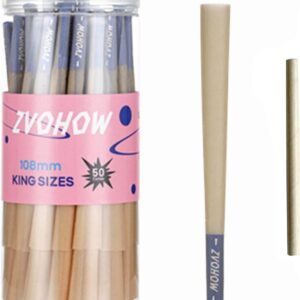
ZVOHOW Classic Pre rolled Cones 50 PACKS – King Size (108mm) Pre Rolling Papers With Tips and Kraft Paper Stick – Classic Rolled Cones Rolling Papers (Brwon 50Pack)
$6.59 Original price was: $6.59.$5.99Current price is: $5.99.
Buy Now

Author: mscannabiz.com
MScannaBIZ for all you Mississippi Cannabis News and Information.
You may like
Mississippi Cannabis News
Mississippi Choctaws to Elect Tribal Council Representatives
Published
1 day agoon
June 17, 2025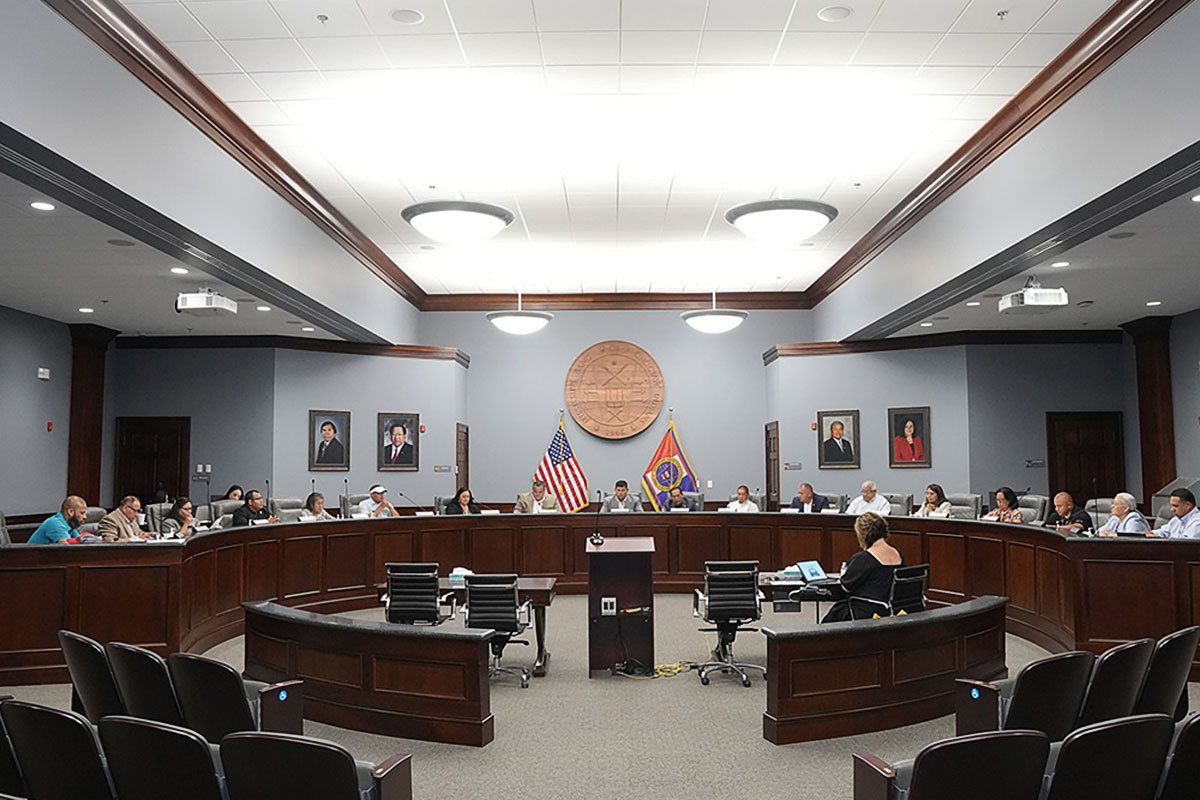
Members of the Mississippi Band of Choctaw Indians will vote on Tuesday, June 10, to elect members of the Choctaw Tribal Council to represent six communities located in the east-central part of the state. Voters will also decide on a referendum issue of marijuana decriminalization and the development of regulations regarding marijuana on tribal lands.
The unicameral Choctaw Tribal Council governs 33,000 acres of land, the tribe’s online profile says. Seventeen members from eight communities serve staggered four-year terms on the council, with elections every two years. The tribe also holds tribal chief elections every four years. This year, nine seats are up for re-election and the other eight seats, along with the tribal chief, will be up for election in 2027.
The tribal chief chairs the quarterly tribal council meetings. Once the voters elect the representatives in June and they are seated in July, barring any challenges or runoffs that must be resolved within 30 days, the newly convened council will select the offices of vice-chief, secretary-treasurer and chair of committee systems from among its members. Tribal Council Members Ronnie Henry and Angela Hundley from the Neshoba County community of Bogue Chitto currently serve as vice-chief and committee systems chair, respectively, while Crystal Ridge Council Member Christopher Eaves of Winston County serves as Secretary-Treasurer.
Requirements for Candidates
The Tribal Election Committee oversees the election process. Its members vet the candidates and ensure they meet the requirements for tribal council candidacy. Choctaw Constitution Article IV § 5, says candidates must be 21, have no felonies, have obtained a high school diploma or GED equivalent, have resided for at least in the community they intend to represent for at least six months before the election, and must secure endorsement-signatures from at least 10 registered voters from their communities. This last requirement does not apply to the two smallest communities, Crystal Ridge in Winston County and Bogue Homa in Jones County.
Where to Vote
The voting booths in each community will be held at their community’s CERF building.
- Bogue Chitto CERF is located on Big Creek Circle, Philadelphia, Miss.
- Henning CERF is located near 1230 Highway 87 W, Henning, Tenn. (Henning’s tallies will count separately and eventually be added to Bogue Chitto’s overall total)
- Crystal Ridge CERF is located off Joe Wray Rd., Preston, Miss.
- Conehatta CERF is located at 374 Campus Dr., Conehatta, Miss.
- Pearl River CERF is located on Industrial Rd., Philadelphia, Miss.
- Standing Pine CERF is located at the elementary school campus, 538 Highway 487, Carthage, Miss.
- Tucker CERF is located at the old school campus, Highway 19 S, Philadelphia, Miss.

The communities that are not voting for a tribal council representative this cycle, but are still able to vote on the Marijuana Referendum 2025-01 are at the following locations:
- Red Water CERF is located on Red Water Rd. off Highway 35 N, Carthage, Miss.
- Bogue Homa CERF is located on Tomechi Anowa Dr., Heidelberg, Miss.
The Candidates
In April, the TEC released the official candidate list for the 2025 election. Forty-nine candidates are running for nine positions in six tribal communities. Some communities with three representatives elect two this year and will elect their third two years later.
The Mississippi Free Press offered candidates the opportunity to respond to a questionnaire about their views on issues facing community members. Responses from those who responded are linked in the lists below.
The list of candidates for positions on the ballot this year is below. Incumbents are denoted with an asterisk.*
Bogue Chitto Community, Neshoba County: 3 Representatives, 2 positions
Kendrick Bell
Jeremiah Harrison
Kinsey Henry
Angela Hundley* (also serves as committee systems chair)
Randy Jim
Natasha John
Jamion Johnson
Davita McClelland
Jackson Thompson, Jr.
Kendall Wallace*
Kenneth Wallace
Treundes Willis
Bogue Chitto Tribal Council Member Ronnie Henry is the vice-chief and his position will be up in 2027.
Conehatta Community, Newton County: 3 Representatives, 2 Positions
Max Anderson
Tarina Anderson
Trinesa Barojas
Emerson Billy
Hannah Charlie
Shaun Grant
Jeron Johnson
Hilda Nickey*
Gregory Shoemake*
Crystal Ridge Community, Winston County: 1 Representative, 1 Position
Christopher Eaves* (also serves as the secretary-treasurer)
Alexander Hickman
Rosa Kanagy
Tim Willis
Pearl River Community (headquarters), Neshoba County: 3 Representatives, 2 Positions
Collins Billy, Jr.
Robert Briscoe
Mindy Davis
Asa Jimmie
Speedy X. Lewis
Deborah Martin*
Robert Martin
Lola Parkerson
Benjamin Stephens
Nickolas Stephens
Jerod Thompson
Austin Tubby
Shelley Tubby
Kent Wesley*
Standing Pine Community- Leake County – 2 Representatives; 1 position
Betty Allen
Louie Charlie
Lalaina Denson
Benjamin Farve
Ashley Primer
Jalen Tangle
Incumbent Loriann Ahshapanek is not running for re-election.
Tucker Community – Neshoba County – 2 Representatives; 1 position
Autumn McMillan
Demando Mingo*
Eric Nickey
Layla Taylor
The communities of Red Water (Leake County, two representatives) and Bogue Homa (Jones County, one representative) do not vote during midterms; their representatives’ terms end in chief election years, with the next being in 2027. However, this year, all communities will be going to the polls due to the marijuana referendum issue.
Registering to Vote
Voter registration is open year-round at the tribal election office in Pearl River. The Tribal Election Council also holds voter registration drives in each community. However, voters must register 30 days before an election. The deadline to register for the June 10 election was Friday, May 9, 2025, at 5:00 pm.
Related

Author: mscannabiz.com
MScannaBIZ for all you Mississippi Cannabis News and Information.
Mississippi Cannabis News
Mississippi AG Limits Sale of Consumable Hemp Products
Published
1 day agoon
June 17, 2025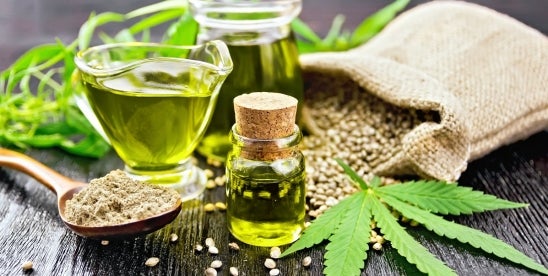
All participants of Mississippi’s cannabis industry should take notice of an opinion the Mississippi Attorney General’s Office published on June 11, 2025. The opinion answered three questions Mississippi Rep. Lee Yancey presented: (1) Is the sale of non-FDA approved hemp-derived products designed for human ingestion and/or consumption prohibited in Mississippi; (2) is the possession of non-FDA approved hemp-derived products designed for human ingestion and/or consumption prohibited in Mississippi; and (3) if the answer to the first two questions is yes, are municipalities authorized to enact rules and regulations that prohibit or penalize the sale and/or possession of the same?
The attorney general, relying on Mississippi’s Uniform Controlled Substances Law (MSCSL), answered the first two questions in the affirmative, concluding that the terms of the MSCSL prohibited the sale and possession of such products unless they were being sold or possessed pursuant to the provisions of Mississippi’s medical cannabis laws and regulations. The opinion, however, notes its limitations by acknowledging that components of the analysis are controlled by federal law: “[A] complete response to [Yancey’s] request is outside the scope of an official opinion.”
The opinion focuses on two exemptions to the MSCSL’s prohibition of THC but recognizes a third. THC, the psychoactive ingredient in cannabis, is illegal under the terms of the MSCSL, however, several exemptions to this prohibition exist. Two of these exemptions, forming the basis of the AG’s opinion, make an allowance for hemp products that have been approved for human ingestion and/or consumption by the FDA or products possessed or sold under Mississippi’s medical cannabis laws. The third exemption (mentioned briefly in the opinion) exempts “hemp,” as defined and regulated under the Mississippi Hemp Cultivation Act (MHCA), from the MSCSL. The MHCA defines hemp in a manner similar to the 2018 Farm Bill, stating that hemp includes all derivatives, extracts and isomers. While many have interpreted the third exemption as allowing the sale and possession of hemp as long as it meets the MHCA’s definition (an interpretation adopted across the country under the Farm Bill’s same definition of hemp), the Attorney General’s Office appears to take a different stance.
In a footnote, the attorney general seems to suggest that since the MHCA has not been fully implemented, the exemption referencing the act may not apply. This positioning points towards the attorney general’s stance being that unless a hemp product is approved for human consumption by the FDA or handled pursuant to Mississippi’s medical cannabis laws, its sale and possession are prohibited by the MSCSL – regardless of what the hemp cultivation act says. That said, the opinion reiterates that because the cultivation of hemp in Mississippi “is legalized, licensed, and controlled by federal law [and] this office cannot opine on questions of federal law [,]… to the extent federal law controls the issues presented in your request, a complete response is outside the scope of an official opinion.”
The opinion, while briefly referencing the MHCA, does not explain additional exemptions to the definitions of both THC and marijuana under the MSCSL for hemp. Again, the opinion generally acknowledges that hemp, as defined in the MHCA and 2018 Farm Bill, is not controlled under MSCSL. But because such analysis is, at least in part, controlled by federal law, the opinion ends its discussion with just these acknowledgments.
While the AG’s opinions are not considered binding precedent, this opinion undoubtedly garnered the attention of Mississippi’s consumable hemp industry and medical cannabis industry alike and rightly so. There’s also little doubt that the opinion will be used as support next legislative session when yet another hemp bill is introduced.
Listen to this post

Author: mscannabiz.com
MScannaBIZ for all you Mississippi Cannabis News and Information.
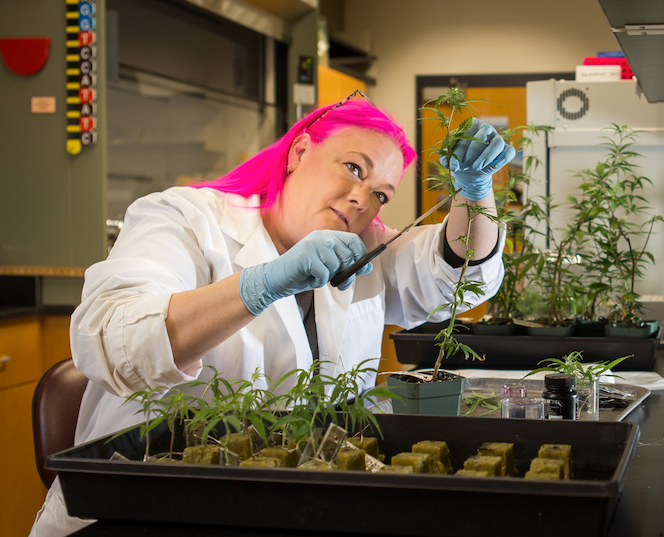
In our Women in Grow: Leadership in Cannabis Genetics and Cultivation supplement, Cannabis Science and Technology interviewed researcher and educator Anna Schwabe, PhD, Associate Lecture Professor at the University of Colorado and Chief Operating Officer of CannaGen, an online cannabis genetic marketplace for licensed breeders, nurseries, and cultivators.
In this video clip, Dr. Schwabe shares details from various studies comparing cannabis DNA from various sample of strains and the impact in the industry. One study aimed to see if the different genetics each smelled different.
Check out our interactive supplement to read the full expert interviews, including an interview with hemp specialist Daniela Vergara, PhD.
Transcription
Sebastian Krawiec, Managing Editor of Cannabis Science and Technology: What did you find once you started exploring the DNA of the cannabis plant?
Anna Schwabe: So that’s a really good question. I started with the “is Blue Dream, Blue Dream everywhere you go?” question. And that led into another project, which led into another project, and it all just like snowballed. But is Blue Dream Blue Dream, no matter where you purchase it? I got in my car, drove around multiple states – there were three states that I covered – buying at dispensaries. I didn’t tell them who I was, I didn’t tell them I’m a researcher, I didn’t tell them I’m going to be doing genetic testing on your consumable cannabis flower that I’m purchasing, and I ended up with 122 samples that spanned 30 different strains. Some strains had nine or 10 samples, other strains just had two. But really, the question that I was asking is, “are they identical? Are they genetically identical or highly similar genetically within strains?” So, if I have eight samples of Blue Dream from different places, do they all look the same genetically? And the answer generally is no. Blue Dream was one of the better ones. There were, I think, seven that were genetically pretty much identical, but there was one that was completely different. And that was true for 27 of the 30 strains that I had. The three that were genetically cohesive, there was only two or three samples in those three strains. So if you expanded that out, I would assume that we’d find things that didn’t belong. It was really just “one of these things is not like the other,” and sometimes they were all different from each other. It just depended on the strength, like Girl Scout Cookies was all over the place.
After I did that, I had an undergraduate student approached me, and he was a double major chemistry and biology. He was working in the chemistry lab on THC and CBD, but he also wanted to do some biology stuff, some genetic stuff. So I devised a project for him where we had a bunch of samples that didn’t go into that genetic identity study. And I was like, well, let’s just see what we’ve got, because we’ve got some wild cultivated, what we assume to be hemp. We’ve got some cultivated hemp. We’ve got some CBD dominant stuff. We’ve got indica, hybrid, sativa. And then we had these two samples from the University of Mississippi, which had been provided under their research program, called “research grade marijuana,” and we just wanted to see where that that fit in the genetic spectrum of cannabis. And so the undergraduate, he did all the work for that. He did all the DNA extractions, he helped with analyzing the data, he even helped with making figures and things like that, and then we did publish that. So kudos to Connor, because that was a super fun project and really exciting for an undergrad to do, right? It’s out there to read, but basically, we found that the University of Mississippi was providing material that really isn’t close to anything you can find on the retail marijuana side, which was an interesting thing to find.
Then we wanted to know, so when we know that there is something that’s genetically not the same as other things, like, if we had five Blue Dreams and one of them was genetically different, would it also smell different? Would people be able to pick up on that, or do they all smell the same? So maybe that’s why it got labeled as Blue Dream, because it seems to be the same. We did some organoleptic study where we had people sniffing cannabis, which was a really interesting study, because yes, people could smell the genetic difference. They did smell different, but also there was a huge amount of variation for even the ones that were genetically identical, which is really important to know, because, it’s not just the genotype that makes up a phenotype, which is the physical characteristics of any organism. It’s also the environment that feeds into how – and we know this through twin studies, right? You’re a unique individual, and even when you share a genotype, you’re not going to express all the same things, because the environment plays a lot into that. So anyway, so that was a fun one, too.
Then I wanted to look at, okay, well, so people can smell it. What do the actual chemicals look like? So we measured the terpenes and the cannabinoids and found that there’s a ton of variation in that. So here’s the cannabinoids, and the samples that we tested, they were coming back around 13% or 15% and I don’t remember buying anything that was this low in THC. This is kind of weird. So I gathered all of my packaging and figured out the average of the THC of the 15 samples that we use for the smell study was 13.3%. But on the packaging, it was saying things like, 22%, 25%, 28%, even 31% and I was like, these are different. So then that prompted me to go and buy more, test more, and did another study and found that, on average, the THC that’s printed on a label is approximately 30% higher than what’s in the package. Not 30% total, it wouldn’t be 15% plus 30%. It’s 30% of what is reported. So 15% plus another 30% of that on top of it. That’s really interesting in that, as we all know, it has blown up with lab shopping and THC inflation. I noticed that in 2018, so it’s been a while. It’s problematic because for most people, it might just equal not having expected effects. But there are people who make their own medicine that use those numbers to get the right dose. Also, it means that we’ve got a problem in the industry, that we’re lying to consumers about stuff. Is it just THC, or is it more? Are we lying about yeast and mold counts? Are we lying about heavy metals? Are we lying about pesticides? And it creates distrust from consumers when we’re not generating accurate results for them to make their purchasing decisions off of. So it is a little bit of a big deal. So that’s kind of how the whole pathway went down my PhD route.

Author: mscannabiz.com
MScannaBIZ for all you Mississippi Cannabis News and Information.

Trump’s Pollster Says Texas Hemp Ban Bill Faces ‘Bipartisan Opposition’ From Voters As Governor Nears Deadline To Act

Police bodycam captures £700k cannabis raid

Rhode Island Hemp Drinks Ban Bill Scaled Back To Instead Request Officials Make Recommendations For Intoxicating Product Rules

Minnesota Officials Award State’s First Marijuana Business License

Colorado Governor Grants Mass Psilocybin Pardon Following Voters’ Approval Of Psychedelics Legalization At The Ballot

Grön, Head Change Debut Exclusive Solventless Edibles in Missouri

Consumable Hemp Products Illegal Without FDA Approval, Mississippi AG Says

North Carolina Senators Advance Hemp THC Restrictions

Texas Military Veterans Say Potential Ban On Hemp-Derived THC Could Drive Them Back To Opioids Or The Illicit Marijuana Market

Fluence Debuts SPYDR 3: Pioneering Fixture Upgrades Output and Efficiency for Cannabis Growers

Maine Credit Union Dropping Medical Cannabis Caregiver Accounts

Iowa Lawmaker Surprised By Governor’s ‘Unexpected’ Veto Of Psilocybin Bill

How To Avoid Post Cannabis Grogginess

Minnesota Adult-Use Dispensary Island Peži Celebrates 1st Anniversary

Cannabis consumers unhappy with Trump, poll shows (Newsletter: June 18, 2025)

Marijuana And Drug Groups Press Meta About Shadowbanning And Censorship Of Content On Facebook And Instagram

DEA Museum Highlights Pen That Nixon Used To Sign Modern War On Drugs Into Law

CBD From Cannabis Could Help Reduce Alcohol Binge Drinking, Study Shows

Gen Z Is Ditching Relationship Labels While Millennials

Florida Lawmakers Pass Bill To Revoke Medical Marijuana Cards From People With Drug Convictions, Sending It To DeSantis’s Desk

North Carolina Lawmakers Advance Bill To Regulate Hemp THC Products And Restrict Kratom

Alaska Activists Launch Campaign To Put Psychedelics Legalization Measure On 2026 Ballot

Best dab rigs of 2025 by Leafly

High Times Magazine Acquired for $3.5M by RAW Rolling Papers Owner

Alert: Department of Cannabis Control updates data dashboards with full data for 2023

Connecticut Appoints The US’s First Cannabis Ombudsperson – Yes there is a pun in there and I’m Sure Erin Kirk Is Going To Hear It More Than Once!

5 best CBD creams of 2024 by Leafly

Free delta-9 gummies from Bay Smokes

EU initiative begins bid to open access to psychedelic therapies
New Study Analyzes the Effects of THCV, CBD on Weight Loss

Mississippi city official pleads guilty to selling fake CBD products

Curaleaf Start Process Of Getting Their Claws Into The UK’s National Health System – With Former MP (Resigned Today 30/5/24) As The Front Man

May 2024 Leafly HighLight: Pink Runtz strain

Horn Lake denies cannabis dispensary request to allow sale of drug paraphernalia and Sunday sales | News

5 best autoflower seed banks of 2024 by Leafly

Discover New York’s dankest cannabis brands [September 2024]

Press Release: CANNRA Calls for Farm Bill to Clarify Existing State Authority to Regulate Hemp Products

Local medical cannabis dispensary reacts to MSDH pulling Rapid Analytics License – WLBT

Nevada CCB to Accept Applications for Cannabis Establishments in White Pine County – “Only one cultivation and one production license will be awarded in White Pine County”

The Daily Hit: October 2, 2024

6 best CBD gummies of 2024 by Leafly

5 best THC drinks of 2024 by Leafly

5 best delta-9 THC gummies of 2024 by Leafly

Weekly Update: Monday, May 13, 2024 including, New Guide for Renewals & May Board meeting application deadline

People In This State Googled ‘Medical Marijuana’ The Most, Study Shows

PRESS RELEASE : Justice Department Submits Proposed Regulation to Reschedule Marijuana

Press Release: May 9, STIIIZY and Healing Urban Barrios hosted an Expungement Clinic & Second Chance Resource Fair

Thailand: Pro-cannabis advocates rally ahead of the government’s plan to recriminalize the plant
Trending
-

 California Cannabis Updates1 year ago
California Cannabis Updates1 year agoAlert: Department of Cannabis Control updates data dashboards with full data for 2023
-

 Breaking News1 year ago
Breaking News1 year agoConnecticut Appoints The US’s First Cannabis Ombudsperson – Yes there is a pun in there and I’m Sure Erin Kirk Is Going To Hear It More Than Once!
-

 best list11 months ago
best list11 months ago5 best CBD creams of 2024 by Leafly
-

 Bay Smokes12 months ago
Bay Smokes12 months agoFree delta-9 gummies from Bay Smokes
-

 Business9 months ago
Business9 months agoEU initiative begins bid to open access to psychedelic therapies
-

 cbd1 year ago
cbd1 year agoNew Study Analyzes the Effects of THCV, CBD on Weight Loss
-

 Mississippi Cannabis News1 year ago
Mississippi Cannabis News1 year agoMississippi city official pleads guilty to selling fake CBD products
-

 Breaking News1 year ago
Breaking News1 year agoCuraleaf Start Process Of Getting Their Claws Into The UK’s National Health System – With Former MP (Resigned Today 30/5/24) As The Front Man







